
The Project Gutenberg EBook of Scenes and Characters from the Works of
Charles Dickens, by Charles Dickens
This eBook is for the use of anyone anywhere at no cost and with
almost no restrictions whatsoever. You may copy it, give it away or
re-use it under the terms of the Project Gutenberg License included
with this eBook or online at www.gutenberg.org
Title: Scenes and Characters from the Works of Charles Dickens
Being Eight Hundred and Sixty-six Pictures Printed From
the Original Wood Blocks
Author: Charles Dickens
Illustrator: Various Artists
Release Date: July 13, 2013 [EBook #43207]
Language: English
Character set encoding: ISO-8859-1
*** START OF THIS PROJECT GUTENBERG EBOOK SCENES, CHARACTERS FROM DICKENS ***
Produced by Chris Curnow, Emmy and the Online Distributed
Proofreading Team at http://www.pgdp.net (This file was
produced from images generously made available by The
Internet Archive)

| FRED BARNARD | GORDON THOMSON |
| HABLOT K. BROWNE (Phiz) | J. McL. RALSTON |
| J. MAHONEY | H. FRENCH |
| CHARLES GREEN | E. G. DALZIEL |
| A. B. FROST | F. A. FRASER |
| and SIR LUKE FILDES | |
| Title Design | By Gordon Thomson | |||
| Sketches by Boz | 34 | Illustrations | by | Fred Barnard |
| The Pickwick Papers | 57 | " | " | Phiz |
| Oliver Twist | 28 | " | " | J. Mahoney |
| Nicholas Nickleby | 59 | " | " | Fred Barnard |
| Master Humphrey's Clock and other Stories | 9 | " | " | Fred Barnard |
| The Old Curiosity Shop | 39 | " | " | Charles Green |
| Barnaby Rudge | 46 | " | " | Fred Barnard |
| American Notes | 10 | " | " | A. B. Frost |
| Martin Chuzzlewit | 59 | " | " | Fred Barnard |
| Christmas Books | 28 | " | " | Fred Barnard |
| Pictures from Italy | 8 | " | " | Gordon Thomson |
| Dombey and Son | 62 | " | " | Fred Barnard |
| David Copperfield | 61 | " | " | Fred Barnard |
| A Child's History of England | 15 | " | " | J. McL. Ralston |
| Bleak House | 61 | " | " | Fred Barnard |
| Hard Times | 20 | " | " | H. French |
| Little Dorrit | 58 | " | " | J. Mahoney |
| Reprinted Pieces | 9 | " | " | E. G. Dalziel |
| A Tale of Two Cities | 25 | " | " | Fred Barnard |
| Uncommercial Traveller | 26 | " | " | E. G. Dalziel |
| Great Expectations | 30 | " | " | F. A. Frazer |
| Our Mutual Friend | 58 | " | " | J. Mahoney |
| Christmas Stories | 23 | " | " | E. G. Dalziel |
| Edwin Drood | 12 | " | " | Luke Fildes |
| Life of Dickens | 28 | " | " | Fred Barnard |
It happens, however, that there does exist a series of Dickens illustrations, now in some danger of being unduly neglected, in which the artists were wonderfully happy in preserving[x] the original features of Phiz and Cruikshank's interpretations, while they toned down the more extravagant details and brought imagination into closer harmony with reality. These were the illustrations to the square-shaped "Household Edition," published in 1870, just after the great novelist's death—and now reissued in this Dickens picture-book, in the hope that those who love the stories may like to possess in separate form what is, perhaps, the best pictorial accompaniment that the novels ever received. At the time of its first publication, the "Household Edition" enjoyed an enormous success. At the moment the name of Dickens was on every one's lips, and the fact that this splendidly illustrated reprint was issued in penny numbers and sixpenny parts placed it within reach of even the most humbly stocked purse. Its sale was stupendous, and the familiar green-covered pamphlets percolated through every town and village where the English tongue is spoken. The original copies may still be met with, under many a country timbered roof, carefully treasured as one of the most cherished household possessions.
Undoubtedly, a great part of the success was due to the art of the illustrators. To begin with, there was an unusually liberal display of pictures—the edition, as a whole, containing close upon nine hundred. But more important than the number were the truth and sincerity of the interpretations—qualities which helped to give a new life to characters already secure of immortality. First and foremost, of course, the edition will always be associated with the memory of Fred Barnard, whose pictures are the outstanding feature of the present volume. Barnard seemed destined by nature to illustrate Dickens; the spirit of "Boz" ran again in his veins. And nothing in his work is more impressively ingenious than the skill with which he took the types already created by his predecessors, preserved[xi] their characteristics, so that each was unmistakably himself, and yet by the illuminating touch of genius transferred them every one from the realm of caricature to that of portraiture. Not far inferior to him was that admirable draughtsman, Charles Green, who exactly adopted Barnard's attitude to the originals. The reader who will compare Green's illustrations to "The Old Curiosity Shop" with Phiz's, will scarcely fail to notice with interest how often Green has chosen the same subject as his predecessor, and all but treated it in the same manner, save that a twisted grotesque suddenly becomes, under the magic of his wand, a natural human being. His picture of Sally Brass and the Marchioness is a remarkable instance in point: but there are many others equally eloquent of his sympathetic and interpretative method. Nor should the work of Mahony, A. B. Frost, Gordon Thomson and others be forgotten, for each in his own way has helped to make this volume, what its publishers confidently claim it to be, a collection of Dickens pictures unrivalled for humour, pathos, character, and interpretative skill. In the certainty that such a gallery of good work can hardly fail to find appreciators, the volume is now offered to all lovers of the most widely popular author of the Victorian Era.

 The Half-pay Captain completely effaced the old lady's name from the
brass door-plate in his attempts to polish it with aqua-fortis—Our Parish, chap. ii.
The Half-pay Captain completely effaced the old lady's name from the
brass door-plate in his attempts to polish it with aqua-fortis—Our Parish, chap. ii.
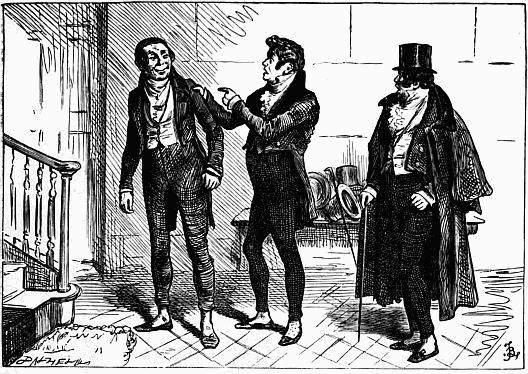
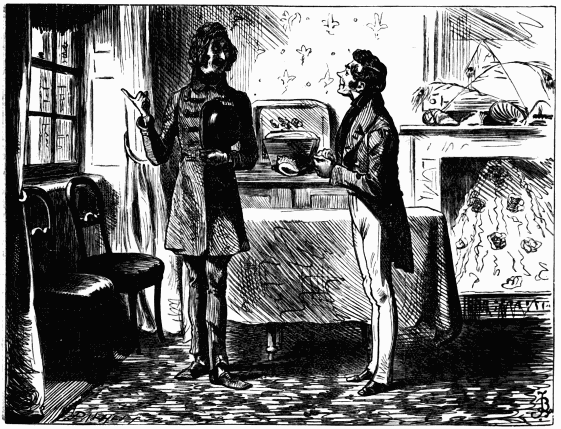 When he first came to look at the lodgings, he inquired most particularly whether he was
sure to be able to get a seat in the Parish Church—Our Parish, chap. vii.
When he first came to look at the lodgings, he inquired most particularly whether he was
sure to be able to get a seat in the Parish Church—Our Parish, chap. vii.
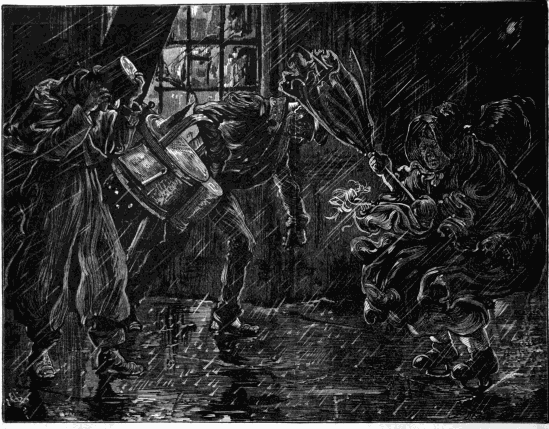
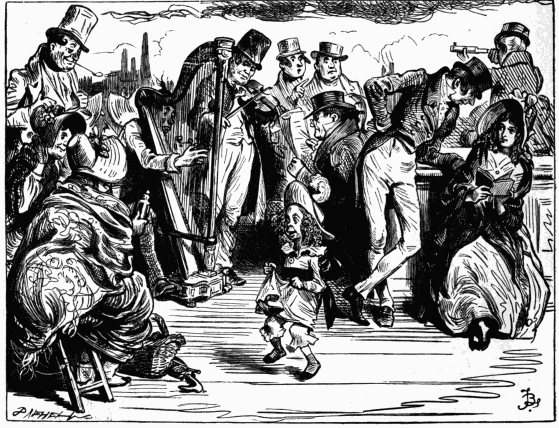 The Gravesend boat.—Scenes, chap. x.
The Gravesend boat.—Scenes, chap. x.
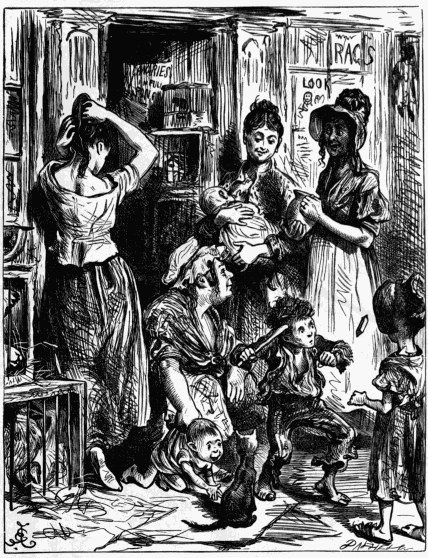 Different women of the House gossiping on the steps . . . the native
Diallers—Scenes, chap. v.
Different women of the House gossiping on the steps . . . the native
Diallers—Scenes, chap. v.
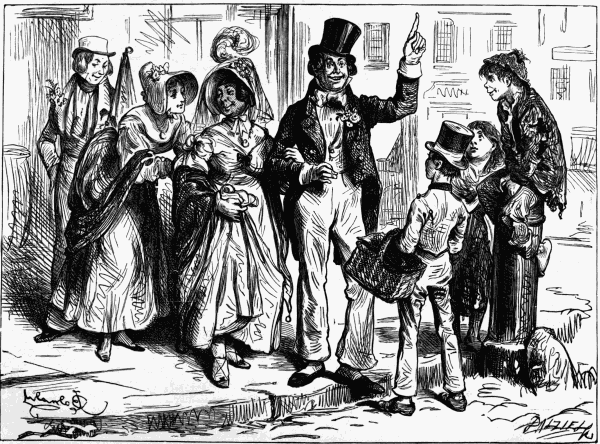 It was a wedding party and sketched from one of the interior streets near Fitzroy Square—Scenes, chap. vii.
It was a wedding party and sketched from one of the interior streets near Fitzroy Square—Scenes, chap. vii.
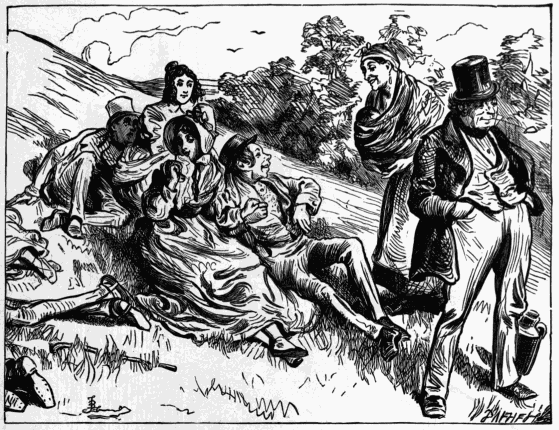
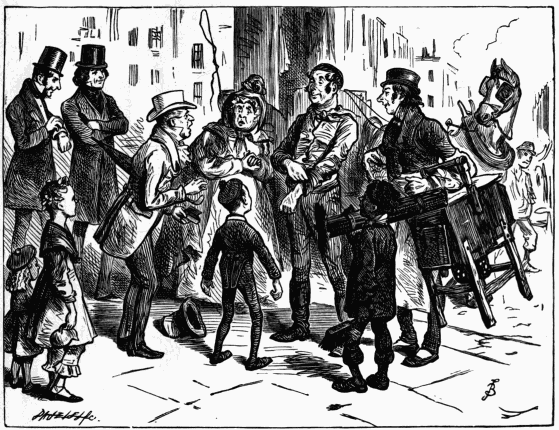 "I may as well get board, lodgin', and washin' till then, out of the country, as pay for it
myself; consequently here goes"—Scenes, chap. xvii.
"I may as well get board, lodgin', and washin' till then, out of the country, as pay for it
myself; consequently here goes"—Scenes, chap. xvii.
 "His line is genteel comedy—his father's coal and potato. He does
Alfred Highflier in the last piece, and very well he'll do it—at the
price."—Scenes, chap. xiv.
"His line is genteel comedy—his father's coal and potato. He does
Alfred Highflier in the last piece, and very well he'll do it—at the
price."—Scenes, chap. xiv.
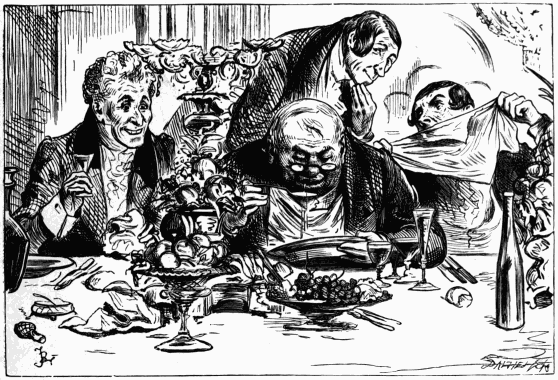
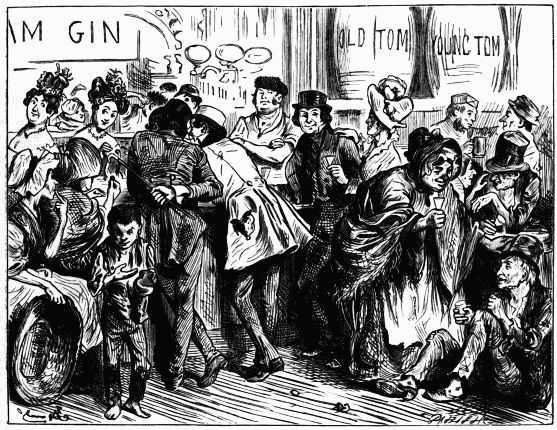 A gin-shop—Scenes, chap. xxii.
A gin-shop—Scenes, chap. xxii.
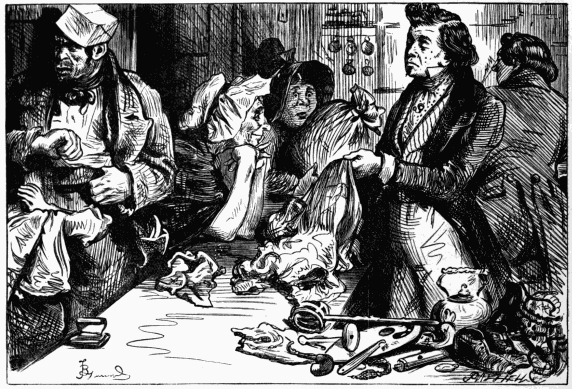
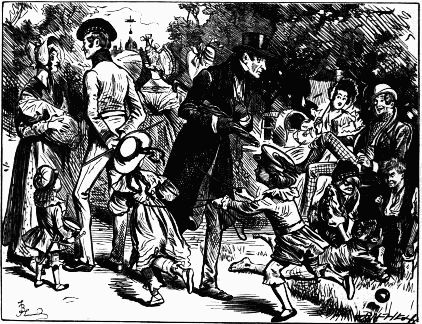 Children were playing on the grass; groups . . . chatting and laughing; but the man walked
steadily up and down, unheeding and unheeded—Characters, chap. i.
Children were playing on the grass; groups . . . chatting and laughing; but the man walked
steadily up and down, unheeding and unheeded—Characters, chap. i.
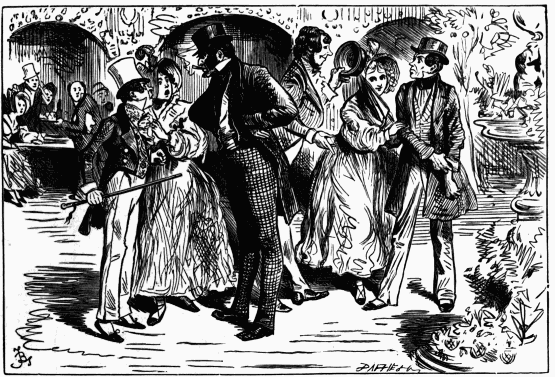
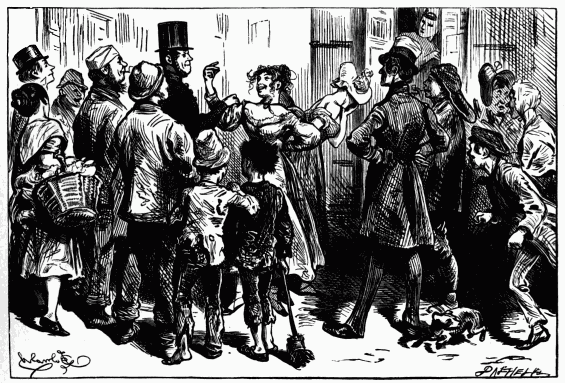 The Prisoners' van—Characters, chap. xii.
The Prisoners' van—Characters, chap. xii.
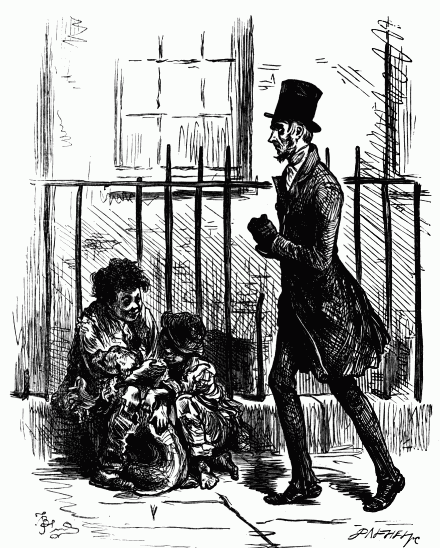 Hurrying along a by-street, keeping as close as he can to the area
railings, a Man of about forty or fifty, clad in an old rusty
suit of threadbare black cloth—Characters, chap. x.
Hurrying along a by-street, keeping as close as he can to the area
railings, a Man of about forty or fifty, clad in an old rusty
suit of threadbare black cloth—Characters, chap. x.
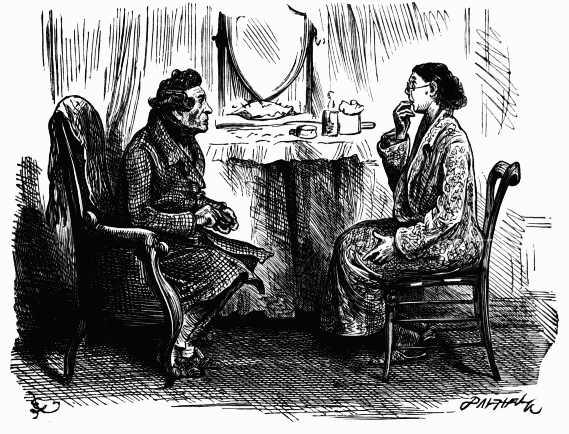
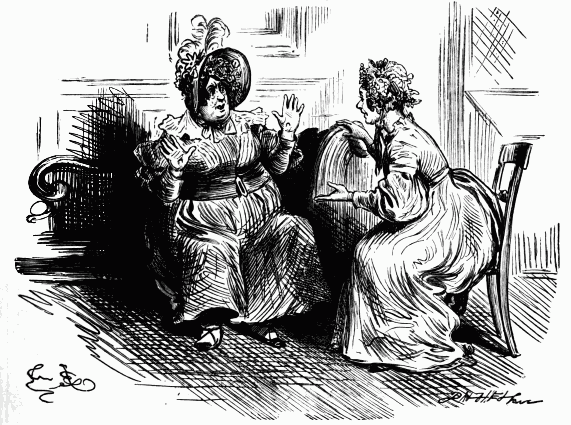 "No what?" inquired Mrs. Bloss with a look of the most indescribable alarm
"No stomach," repeated Mrs. Tibbs with a shake of the head—Tales, chap. i.
"No what?" inquired Mrs. Bloss with a look of the most indescribable alarm
"No stomach," repeated Mrs. Tibbs with a shake of the head—Tales, chap. i.
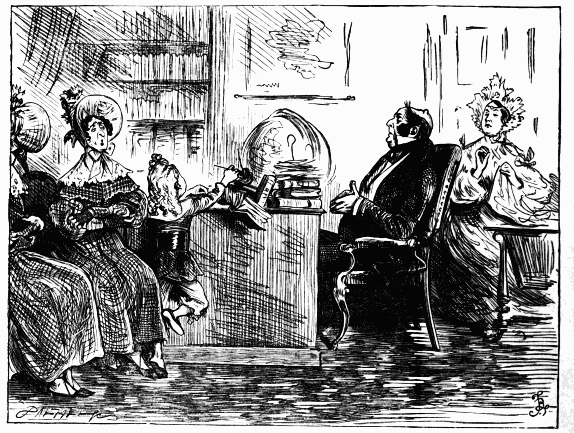
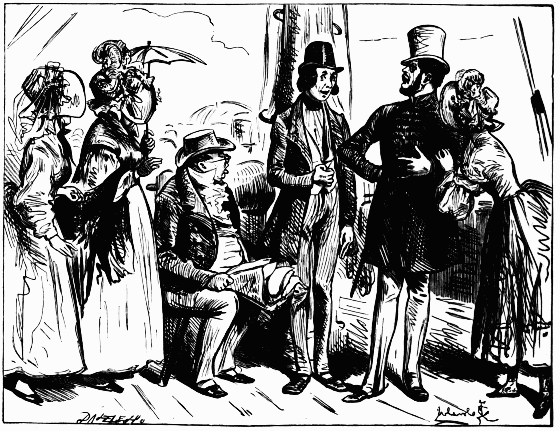 "So exactly the air of the Marquis," said the Military Gentleman—Tales, chap. iv.
"So exactly the air of the Marquis," said the Military Gentleman—Tales, chap. iv.
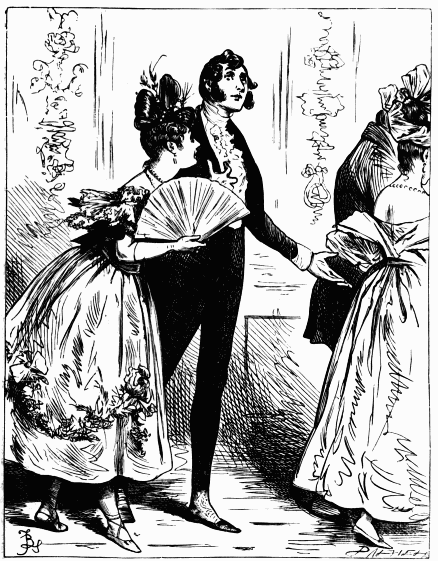 "How delightful, how refreshing it is, to retire from the cloudy storms,
the vicissitudes, and the troubles of life, even if it be but for a few
fleeting moments."—Tales, chap. v.
"How delightful, how refreshing it is, to retire from the cloudy storms,
the vicissitudes, and the troubles of life, even if it be but for a few
fleeting moments."—Tales, chap. v.
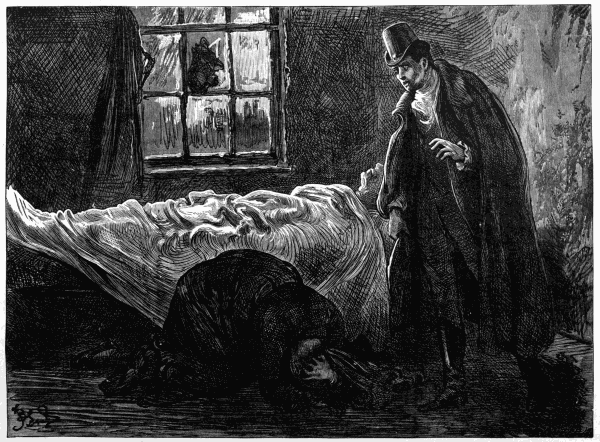 "Who was he?" inquired the Surgeon. "My Son!" rejoined the Woman; and fell senseless at his feet—Tales, chap. vi.
"Who was he?" inquired the Surgeon. "My Son!" rejoined the Woman; and fell senseless at his feet—Tales, chap. vi.
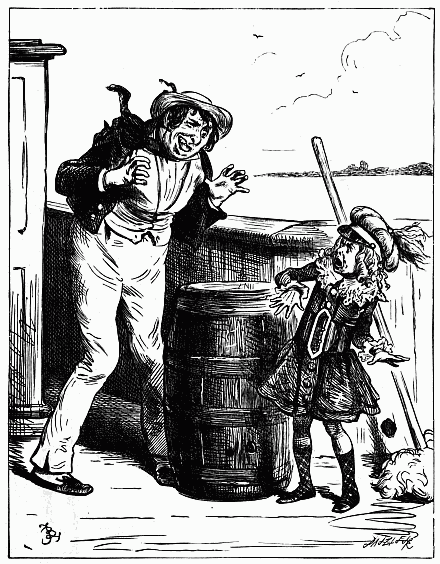 The facetious Hardy, in fulfilment of his promise, had watched the Child to
a remote part of the vessel, and, suddenly appearing before him with the
most awful contortions of visage, had produced his paroxysms of terror—Tales,
chap. vii.
The facetious Hardy, in fulfilment of his promise, had watched the Child to
a remote part of the vessel, and, suddenly appearing before him with the
most awful contortions of visage, had produced his paroxysms of terror—Tales,
chap. vii.
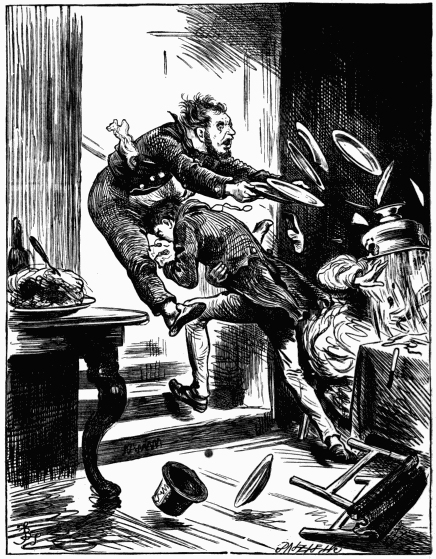 One Gentleman was observed suddenly to rush from table without the slightest
ostensible reason, and dart up the steps with incredible swiftness, thereby
greatly damaging both himself and the Steward, who happened to be coming
down at the same moment—Tales, chap. vii.
One Gentleman was observed suddenly to rush from table without the slightest
ostensible reason, and dart up the steps with incredible swiftness, thereby
greatly damaging both himself and the Steward, who happened to be coming
down at the same moment—Tales, chap. vii.
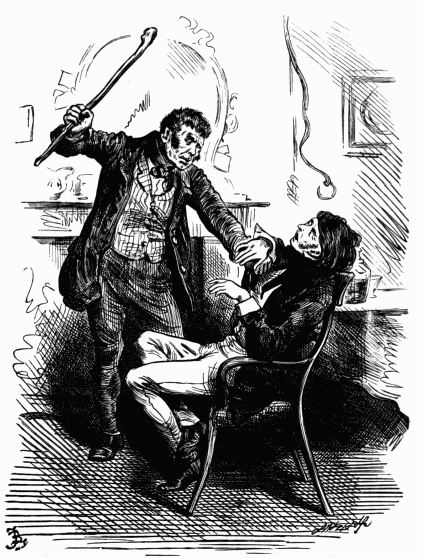 "Leave that 'ere bell alone, you wretched loo-nattic!" said the Boots,
suddenly forcing the unfortunate Trott back into his chair, and brandishing
the stick aloft—Tales, chap. viii.
"Leave that 'ere bell alone, you wretched loo-nattic!" said the Boots,
suddenly forcing the unfortunate Trott back into his chair, and brandishing
the stick aloft—Tales, chap. viii.
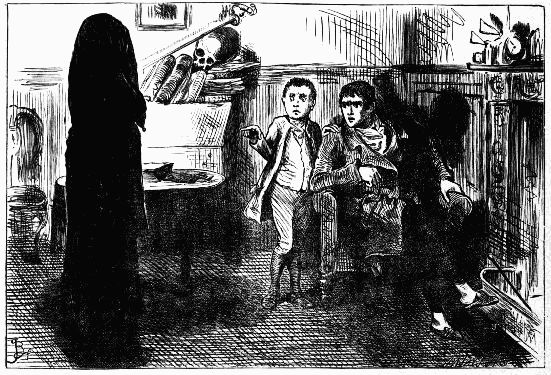
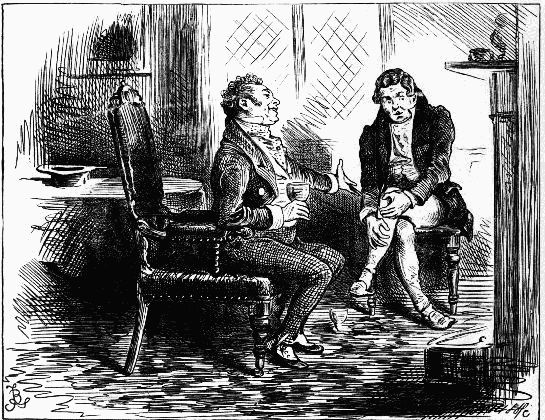 "Why," replied Mr. Walkins Tottle evasively; for he trembled violently, and felt a sudden
tingling throughout his whole frame; "Why—i should certainly—at least, i think i should
like——"—Tales, chap. x. 1
"Why," replied Mr. Walkins Tottle evasively; for he trembled violently, and felt a sudden
tingling throughout his whole frame; "Why—i should certainly—at least, i think i should
like——"—Tales, chap. x. 1
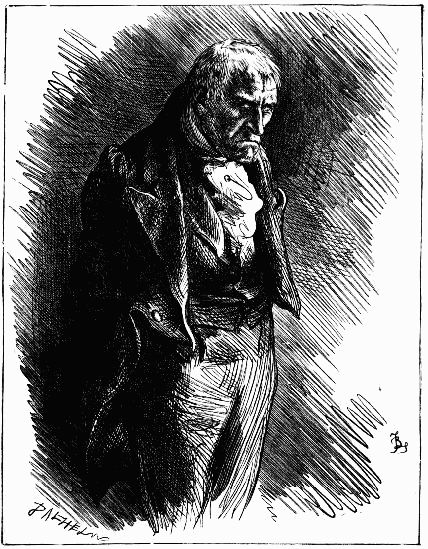 Mr. Nicodemus Dumps . . . cross, cadaverous, odd and ill-natured—Tales,
chap. xi.
Mr. Nicodemus Dumps . . . cross, cadaverous, odd and ill-natured—Tales,
chap. xi.
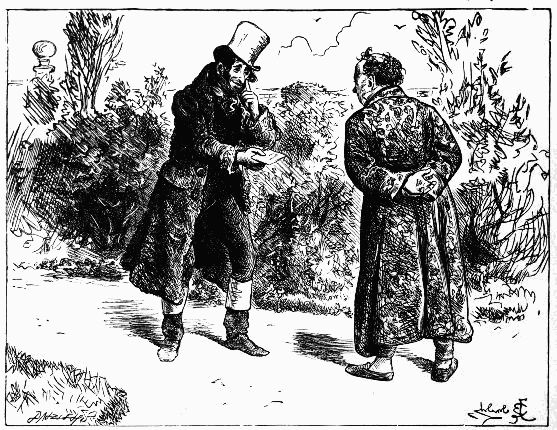
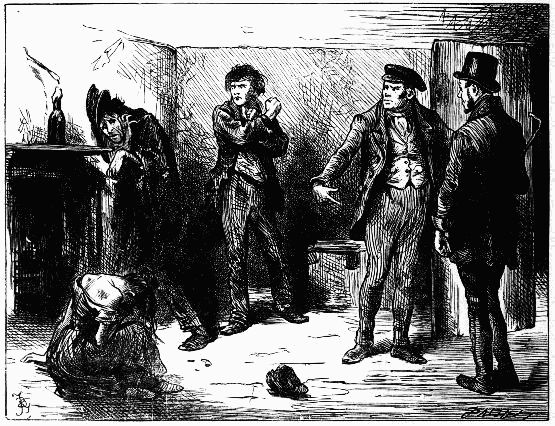 He raised his manacled hands in a threatening attitude, fixed his eyes on his shrinking
Parent and slowly left the room—Tales, chap. xii.
He raised his manacled hands in a threatening attitude, fixed his eyes on his shrinking
Parent and slowly left the room—Tales, chap. xii.
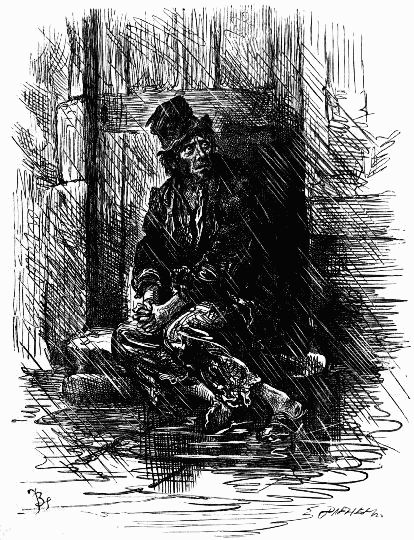 Looks that he had long forgotten were fixed upon him once more; voices
long since hushed in death sounded in his ears like the music of village
bells—Tales, chap. xii.
Looks that he had long forgotten were fixed upon him once more; voices
long since hushed in death sounded in his ears like the music of village
bells—Tales, chap. xii.
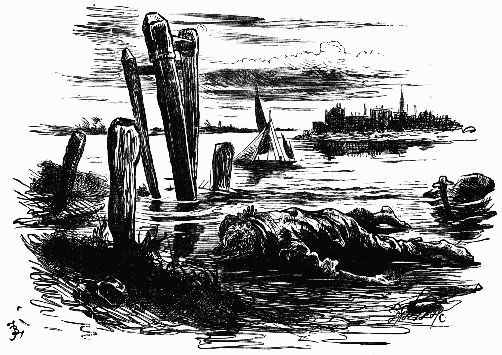 The body was washed ashore, some miles down the river, a swollen disfigured mass—Tales, chap. xii.
The body was washed ashore, some miles down the river, a swollen disfigured mass—Tales, chap. xii.
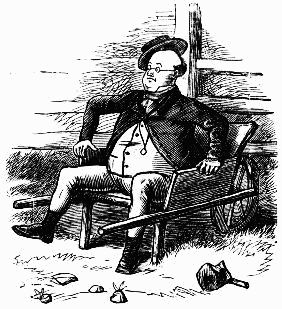
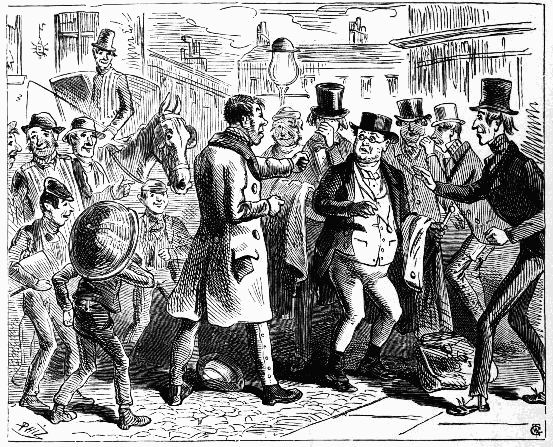
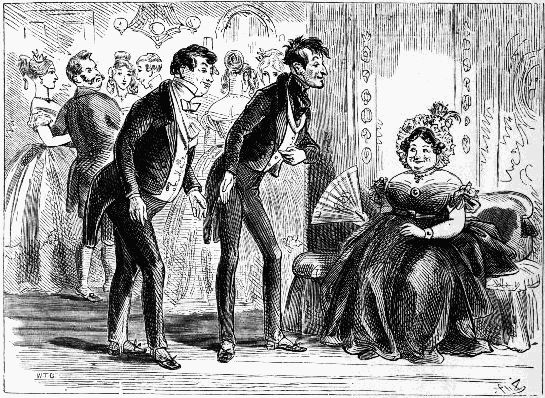 "What! introducing his friend!"—Chap. ii.
"What! introducing his friend!"—Chap. ii.
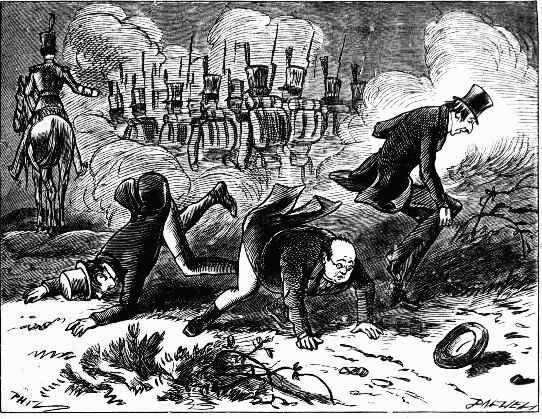
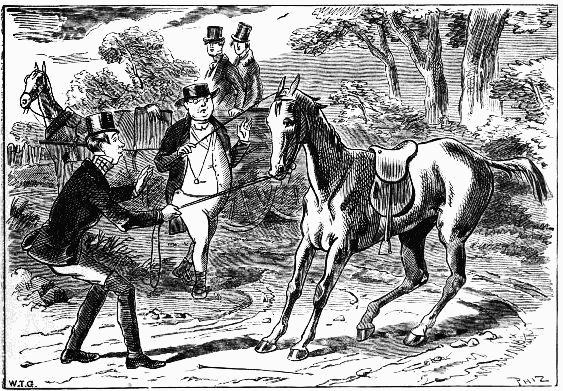 The horse no sooner beheld Mr. Pickwick advancing with the chaise whip in his hand—Chap. v.
The horse no sooner beheld Mr. Pickwick advancing with the chaise whip in his hand—Chap. v.
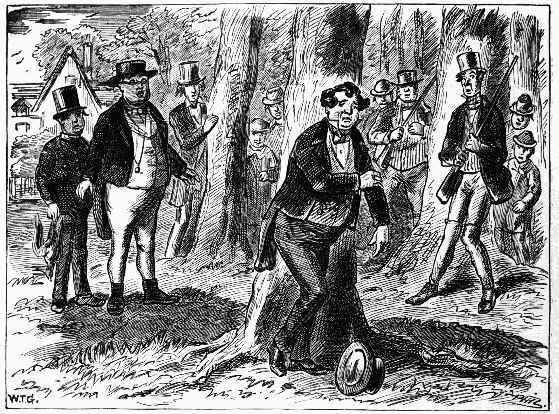
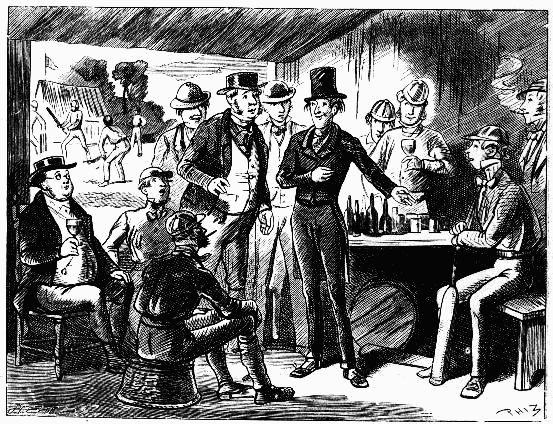 Mr. Wardle looked on, in silent wonder—Chap. vii.
Mr. Wardle looked on, in silent wonder—Chap. vii.
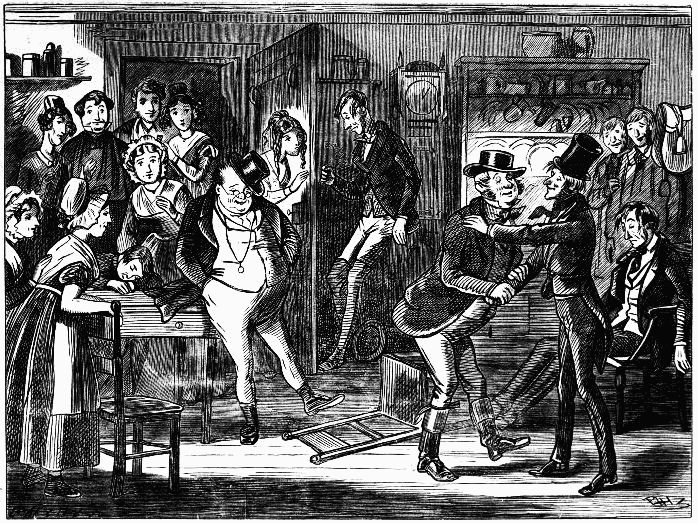 Old Mr. Wardle, with a highly-inflamed countenance, was grasping the hand of a strange gentleman—Chap. viii.
Old Mr. Wardle, with a highly-inflamed countenance, was grasping the hand of a strange gentleman—Chap. viii.
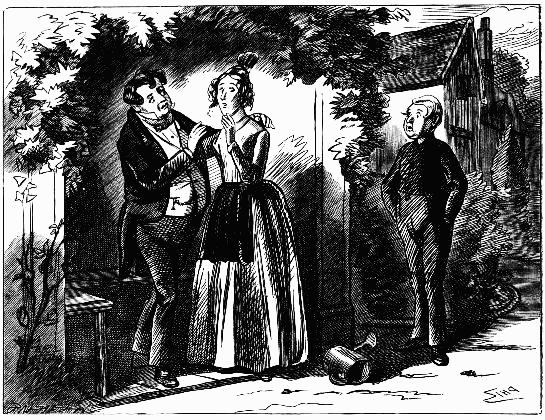
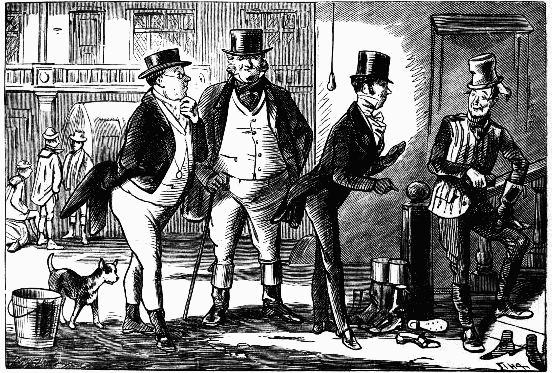 Sam stole a look at the inquirer—Chap. x.
Sam stole a look at the inquirer—Chap. x.
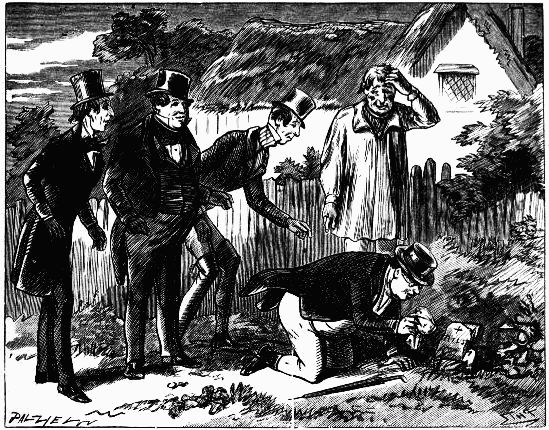
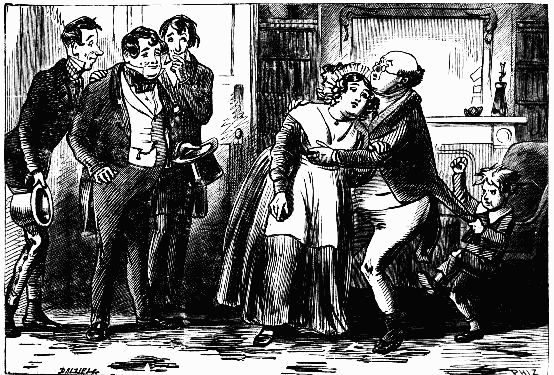 "Take this little villain away," said the agonised Mr. Pickwick—Chap. xii.
"Take this little villain away," said the agonised Mr. Pickwick—Chap. xii.
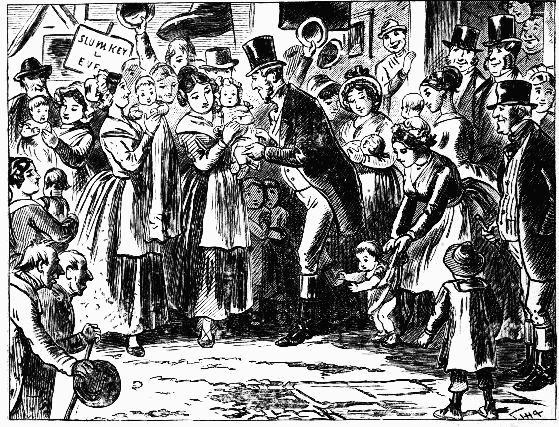
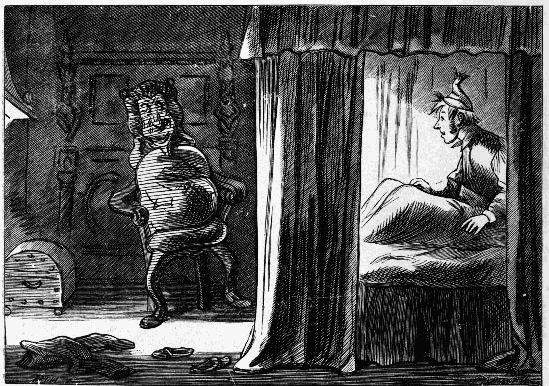 The chair was an ugly old gentleman; and what was more, he was winking at Tom Smart—Chap. xiv.
The chair was an ugly old gentleman; and what was more, he was winking at Tom Smart—Chap. xiv.
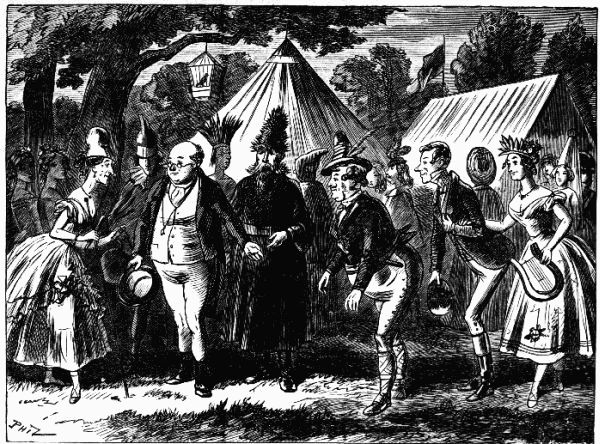 "Permit me to introduce my friends—Mr. Tupman—Mr. Winkle—Mr. Snodgrass"—Chap. xv.
"Permit me to introduce my friends—Mr. Tupman—Mr. Winkle—Mr. Snodgrass"—Chap. xv.

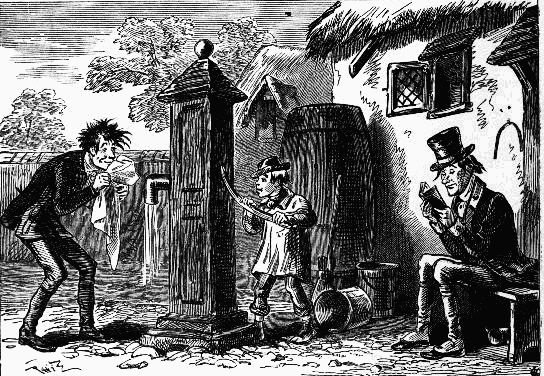 Mr. Weller was dispelling all the feverish remains of the previous evening's conviviality, . . . when
he was attracted by the appearance of a young fellow in mulberry-coloured livery—Chap. xvi.
Mr. Weller was dispelling all the feverish remains of the previous evening's conviviality, . . . when
he was attracted by the appearance of a young fellow in mulberry-coloured livery—Chap. xvi.
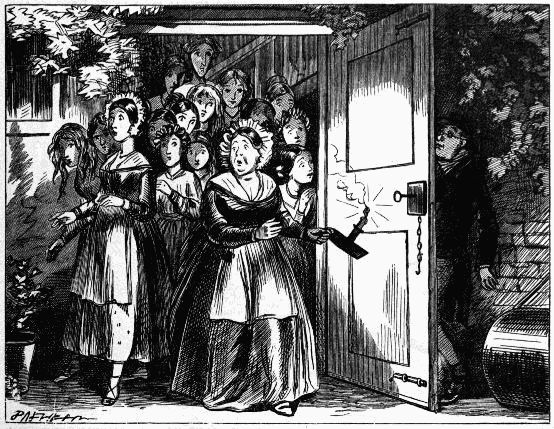
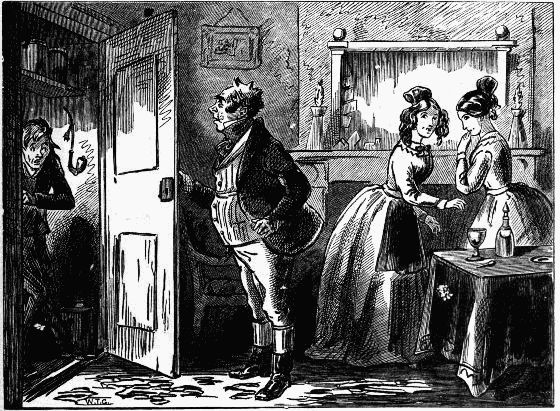 Old Lobbs gave it one tug, and open it flew, disclosing Nathaniel Pipkin standing bolt upright inside,
and shaking with apprehension from head to foot—Chap. xvii.
Old Lobbs gave it one tug, and open it flew, disclosing Nathaniel Pipkin standing bolt upright inside,
and shaking with apprehension from head to foot—Chap. xvii.
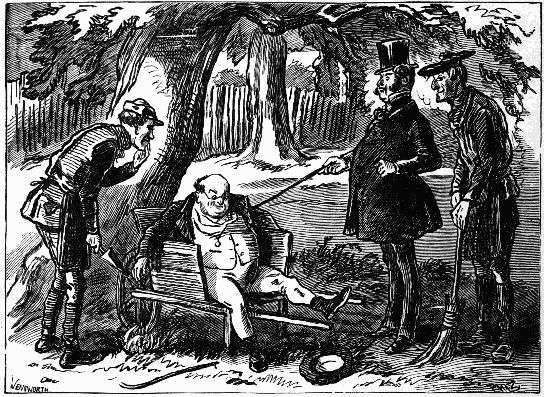
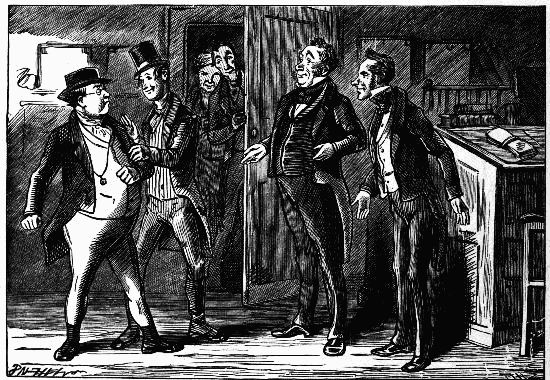 "You just come away," said Mr. Weller. "Battledore and Shuttlecock's a wery good game, when you
an't the shuttlecock and two lawyers the battledores"—Chap. xx.
"You just come away," said Mr. Weller. "Battledore and Shuttlecock's a wery good game, when you
an't the shuttlecock and two lawyers the battledores"—Chap. xx.
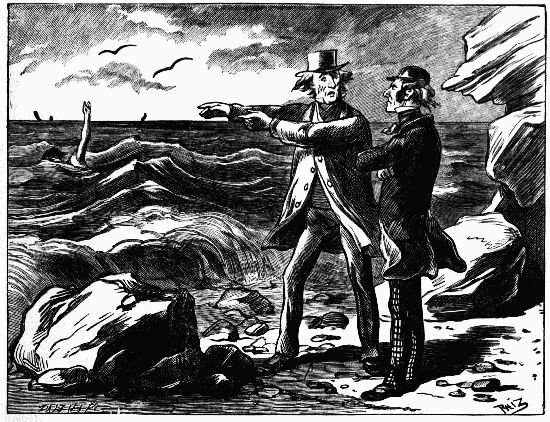
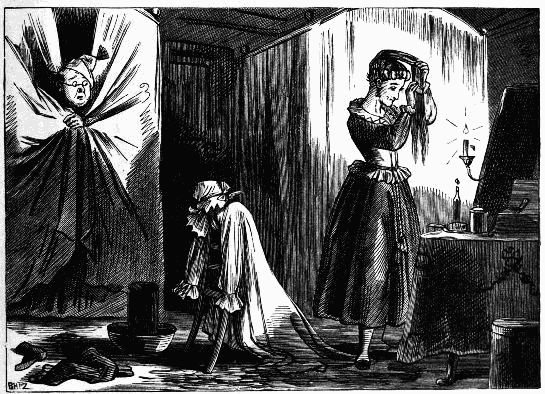 Standing before the dressing-glass was a middle-aged lady in yellow curl-papers, busily engaged in
brushing what ladies call their "back hair"—Chap. xxii.
Standing before the dressing-glass was a middle-aged lady in yellow curl-papers, busily engaged in
brushing what ladies call their "back hair"—Chap. xxii.
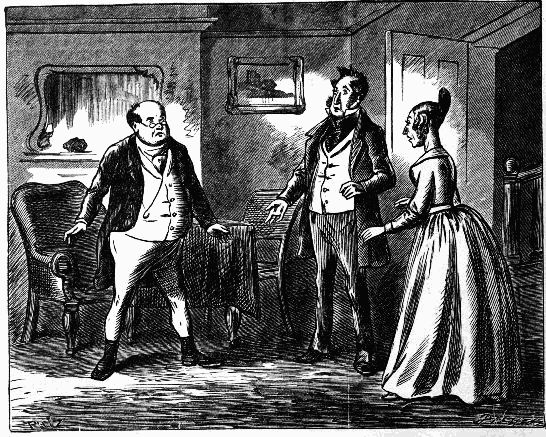
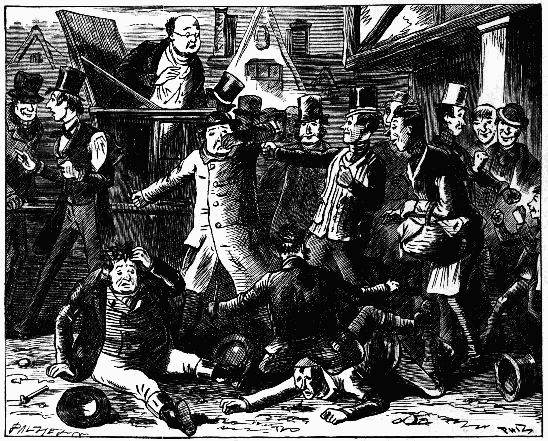 A compliment which Mr. Weller Returned by knocking him down out of hand: having previously, with
the utmost consideration, knocked down a chairman for him to lie upon—Chap. xxiv.
A compliment which Mr. Weller Returned by knocking him down out of hand: having previously, with
the utmost consideration, knocked down a chairman for him to lie upon—Chap. xxiv.
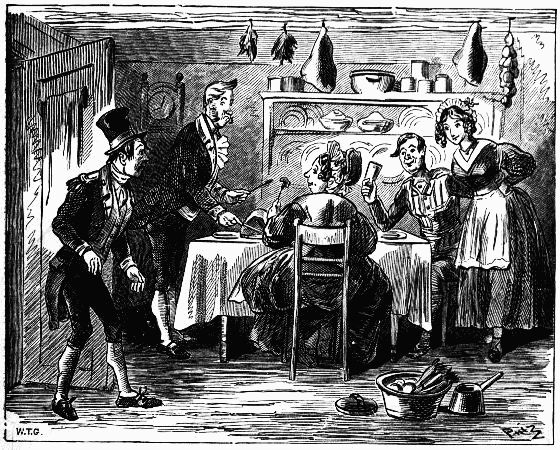
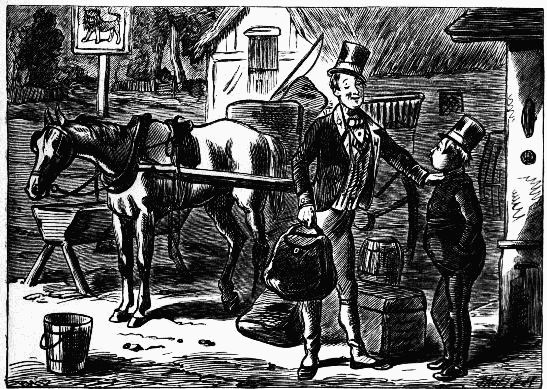 Sam looked at the fat boy with great astonishment, but without saying a word—Chap. xxviii.
Sam looked at the fat boy with great astonishment, but without saying a word—Chap. xxviii.
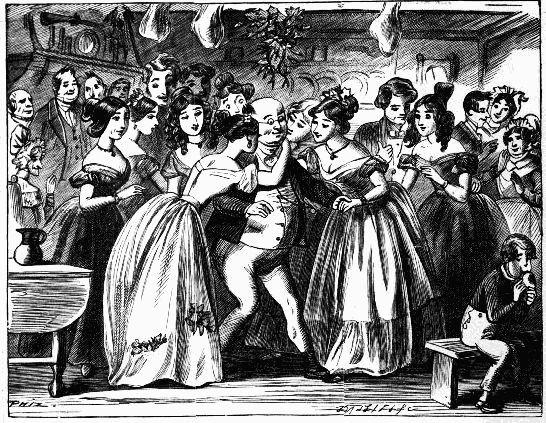
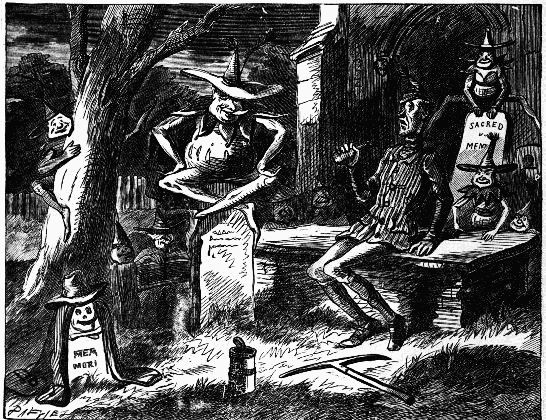 Seated on an upright tombstone, close to him, was a strange unearthly figure—Chap. xxix.
Seated on an upright tombstone, close to him, was a strange unearthly figure—Chap. xxix.
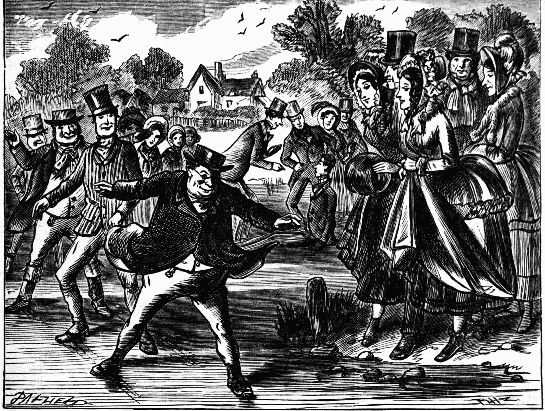
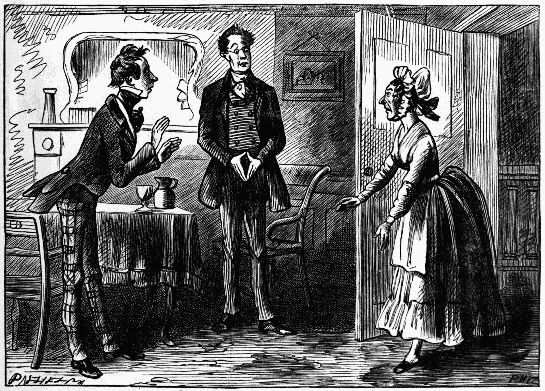 A little fierce woman bounced into the room, all in a tremble with passion, and pale with rage—Chap. xxxii.
A little fierce woman bounced into the room, all in a tremble with passion, and pale with rage—Chap. xxxii.
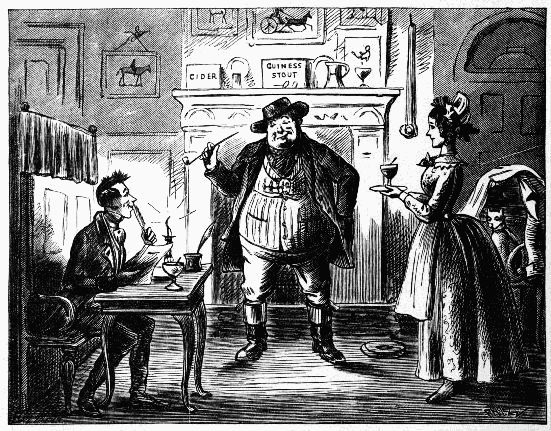
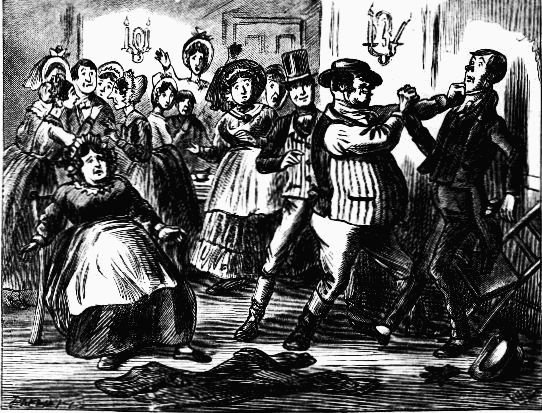 Before Sam could interfere to prevent it, his heroic parent had penetrated into a remote corner of
the room, and attacked the Reverend Mr. Stiggins with manual dexterity—Chap. xxxiii.
Before Sam could interfere to prevent it, his heroic parent had penetrated into a remote corner of
the room, and attacked the Reverend Mr. Stiggins with manual dexterity—Chap. xxxiii.
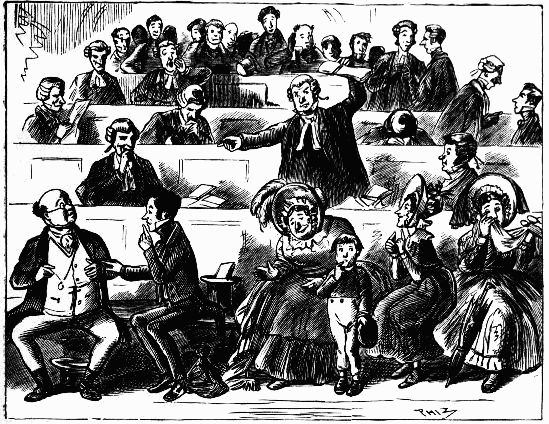
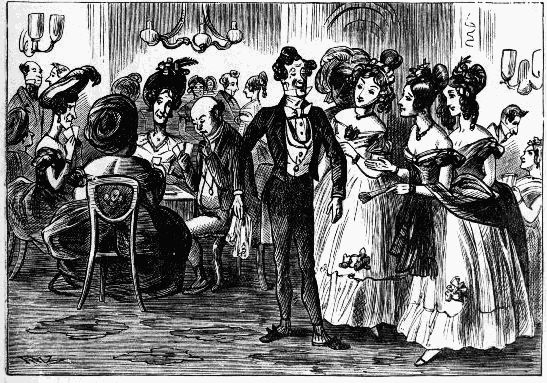 Poor Mr. Pickwick! he had never played with three thorough-paced female card-players before—Chap. xxxv.
Poor Mr. Pickwick! he had never played with three thorough-paced female card-players before—Chap. xxxv.
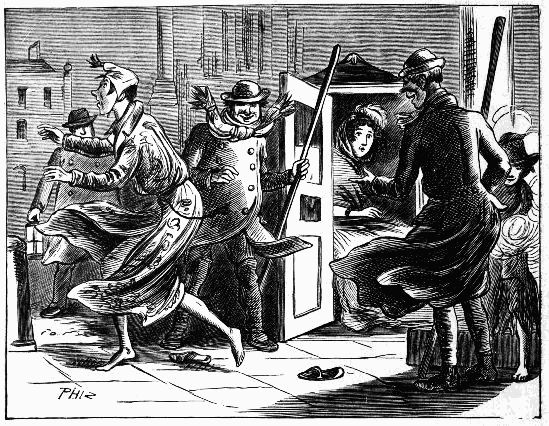
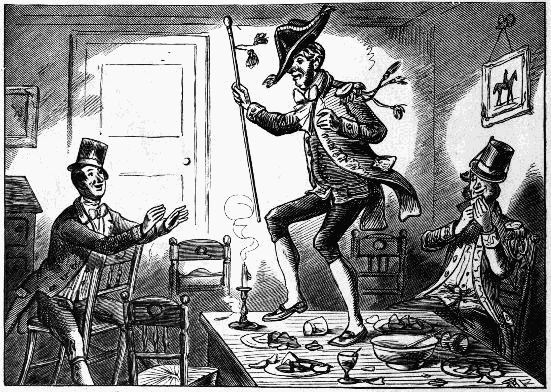 Mr. Tuckle, dressed out with the cocked-hat and stick, danced the frog hornpipe among the shells on
the table—Chap. xxxvii.
Mr. Tuckle, dressed out with the cocked-hat and stick, danced the frog hornpipe among the shells on
the table—Chap. xxxvii.

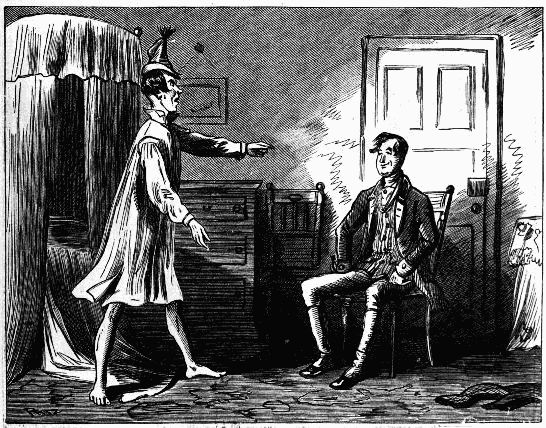 "Unlock that door, and leave this room immediately, sir," said Mr. Winkle—Chap. xxxviii.
"Unlock that door, and leave this room immediately, sir," said Mr. Winkle—Chap. xxxviii.
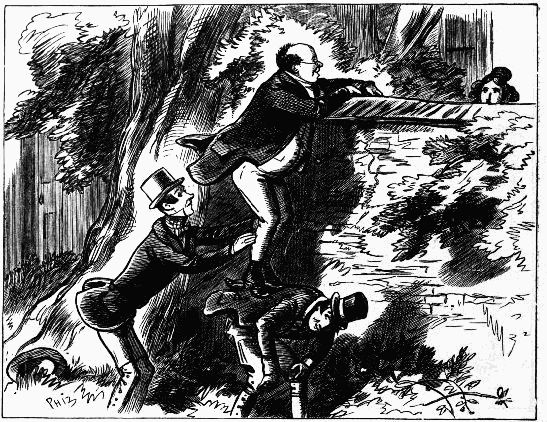
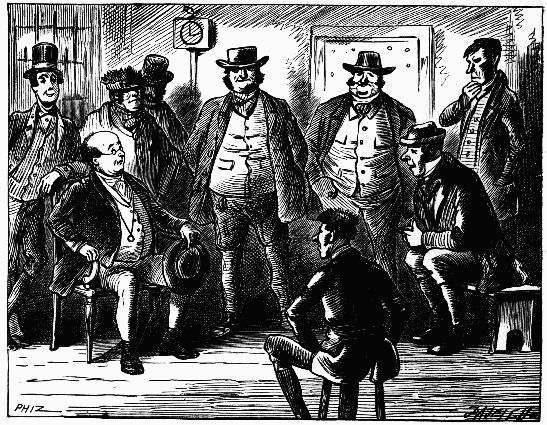 Mr. Pickwick sitting for his portrait—Chap. xl.
Mr. Pickwick sitting for his portrait—Chap. xl.
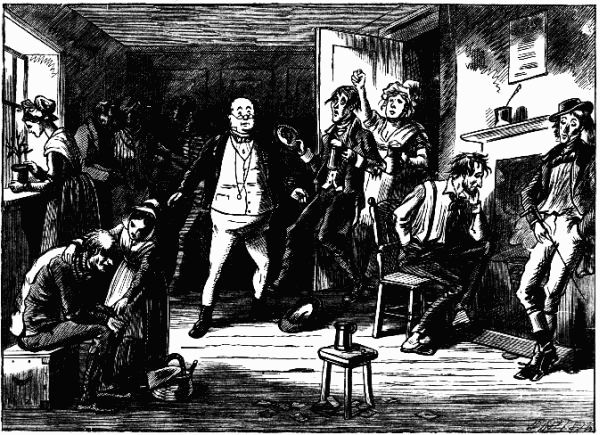 Letting his hat fall on the floor, he stood perfectly fixed and immovable with astonishment—Chap. xlii.
Letting his hat fall on the floor, he stood perfectly fixed and immovable with astonishment—Chap. xlii.
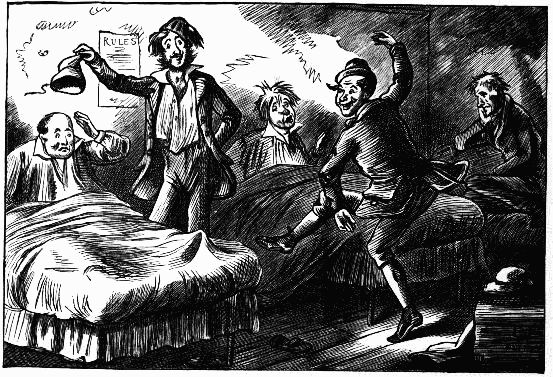
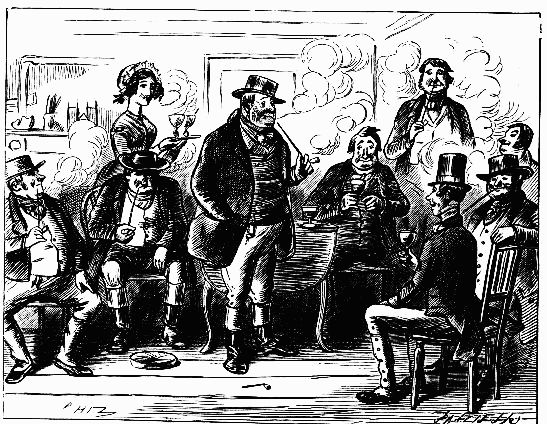 Sam, having been formally introduced . . . . as the offspring of Mr. Weller, of the Belle Savage, was
treated with marked distinction—Chap. xliii.
Sam, having been formally introduced . . . . as the offspring of Mr. Weller, of the Belle Savage, was
treated with marked distinction—Chap. xliii.
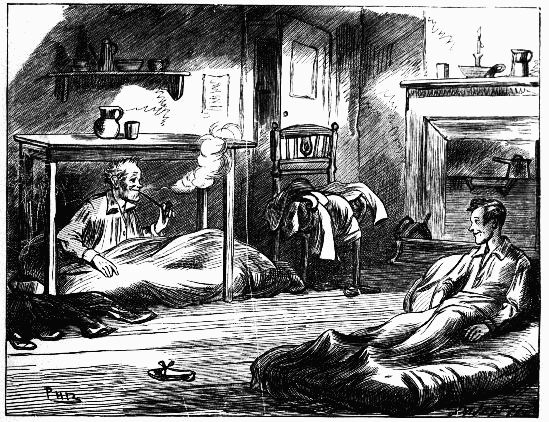
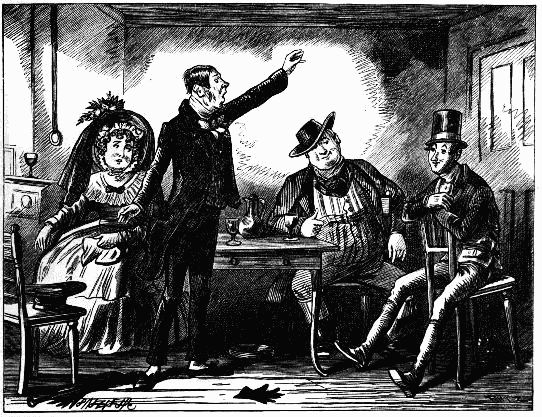 Mr. Stiggins, getting on his legs as well as he could, proceeded to deliver an edifying discourse for
the benefit of the company—Chap. xlv.
Mr. Stiggins, getting on his legs as well as he could, proceeded to deliver an edifying discourse for
the benefit of the company—Chap. xlv.
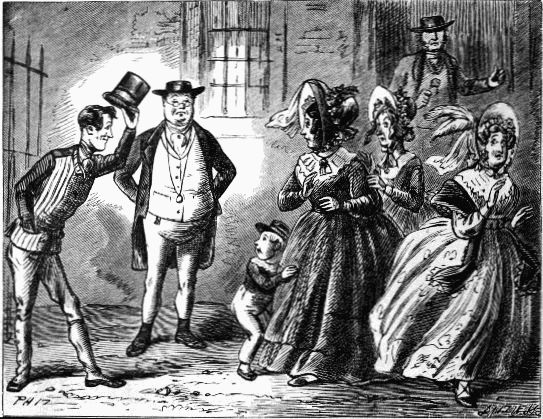
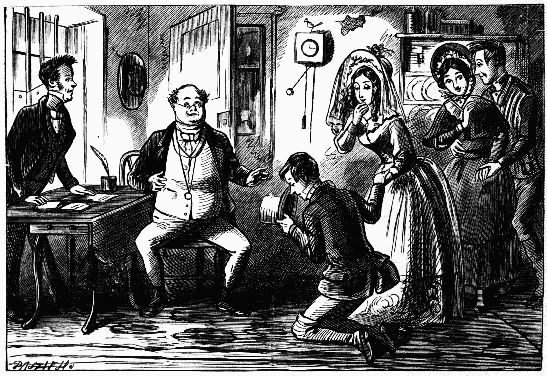 Mr. Pickwick could scarcely believe the evidence of his own senses—Chap. xlvii.
Mr. Pickwick could scarcely believe the evidence of his own senses—Chap. xlvii.
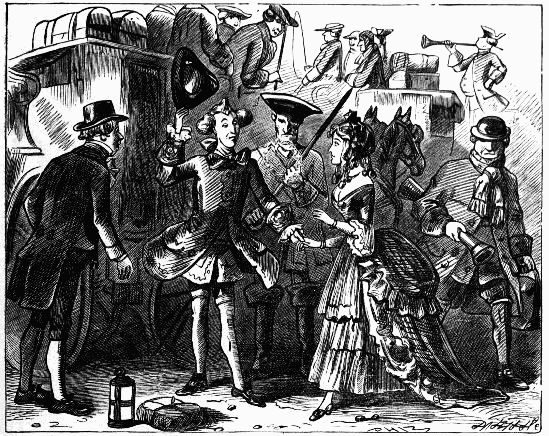
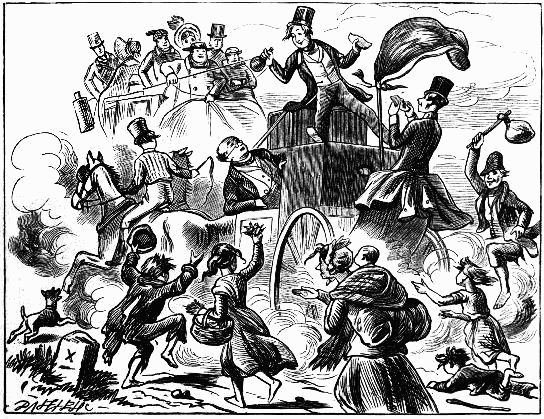 Mr. Bob Sawyer was seated: not in the dickey, but on the roof of the chaise—Chap. l.
Mr. Bob Sawyer was seated: not in the dickey, but on the roof of the chaise—Chap. l.
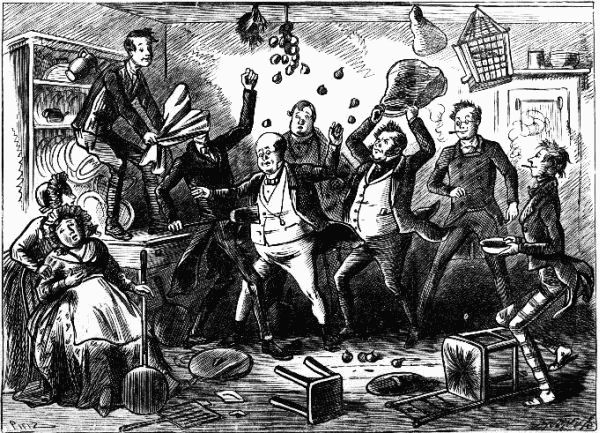 Snatching up a meal-sack, effectually stopped the conflict by drawing it over the head and shoulders of the mighty Pott—Chap. ii.
Snatching up a meal-sack, effectually stopped the conflict by drawing it over the head and shoulders of the mighty Pott—Chap. ii.
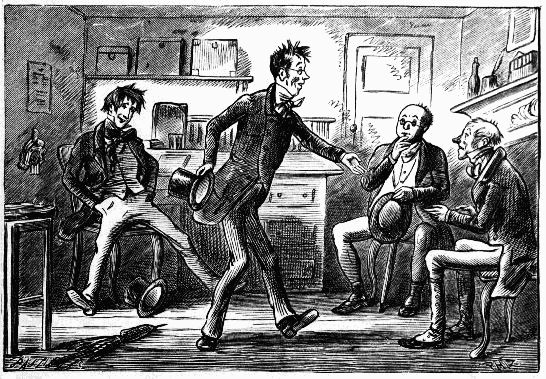
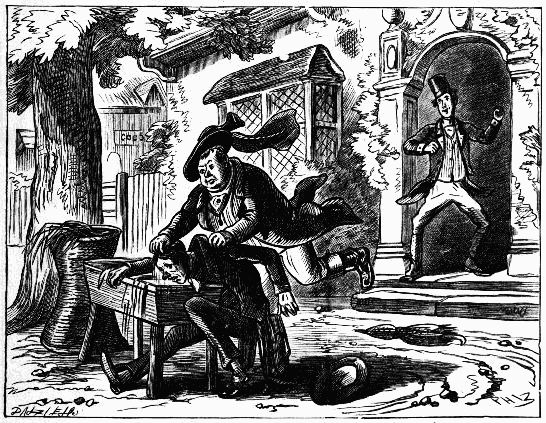 It was a still more exciting spectacle to behold Mr. Weller . . . . immersing Mr. Stiggins's head in
a horse-trough full of water, and holding it there until he was half suffocated—Chap. lii.
It was a still more exciting spectacle to behold Mr. Weller . . . . immersing Mr. Stiggins's head in
a horse-trough full of water, and holding it there until he was half suffocated—Chap. lii.
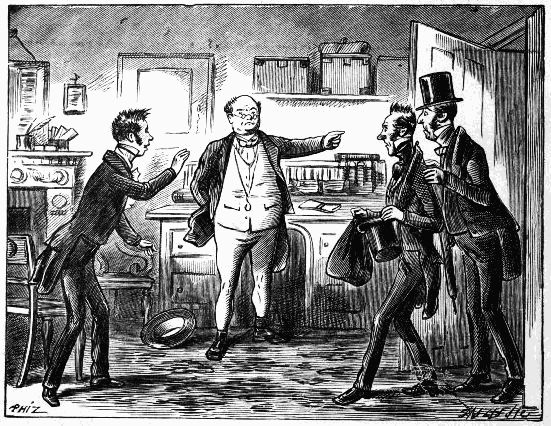
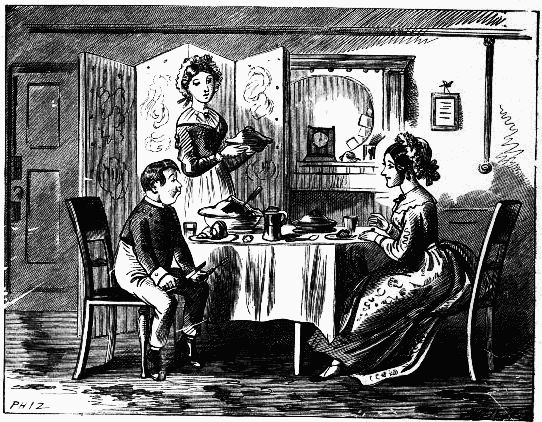 "I say, how nice you look!"—Chap. liv.
"I say, how nice you look!"—Chap. liv.
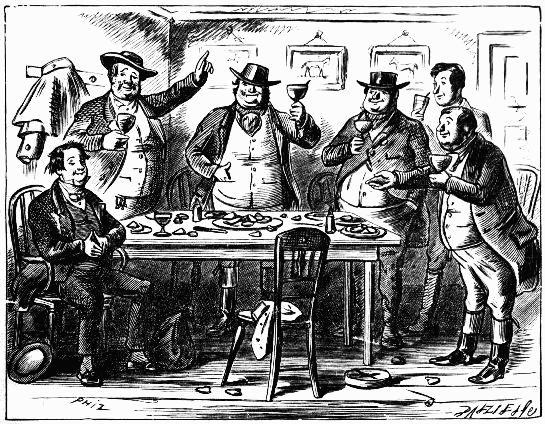
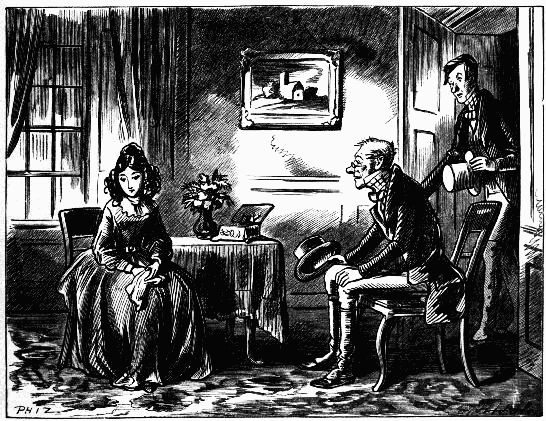 The words were scarcely out of the old gentleman's lips, when footsteps were heard ascending the
stairs—Chap. lvi.
The words were scarcely out of the old gentleman's lips, when footsteps were heard ascending the
stairs—Chap. lvi.
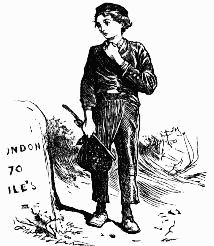

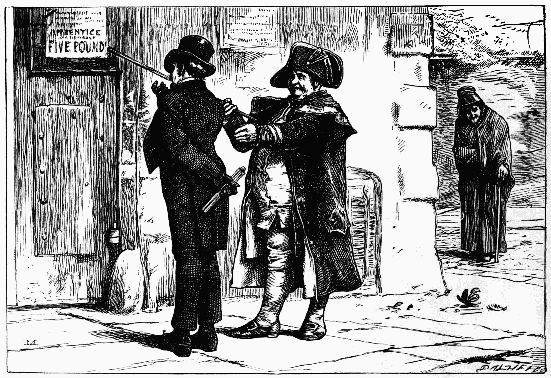 "Liberal terms, Mr. Sowerberry, liberal terms!"—Chap. iv.
"Liberal terms, Mr. Sowerberry, liberal terms!"—Chap. iv.
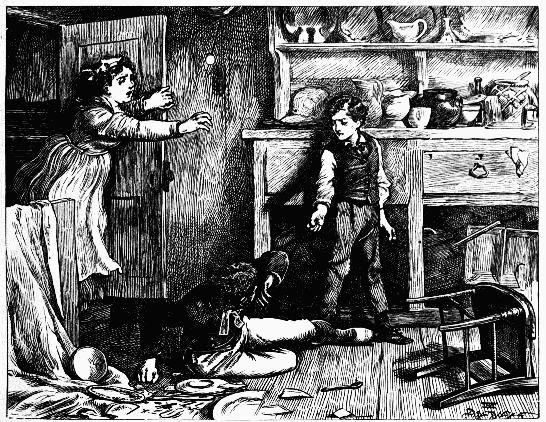
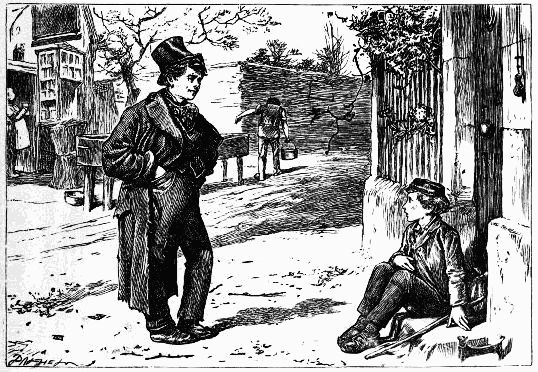 "Hullo, my covey! What's the row?"—Chap. viii.
"Hullo, my covey! What's the row?"—Chap. viii.

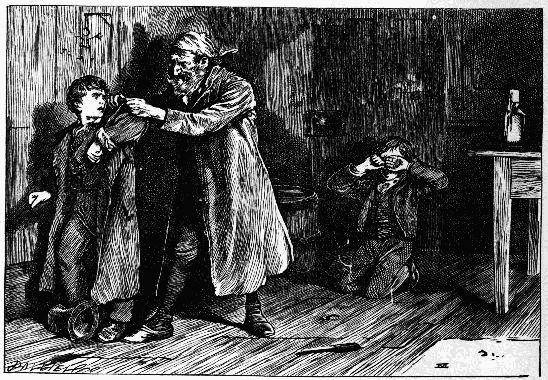
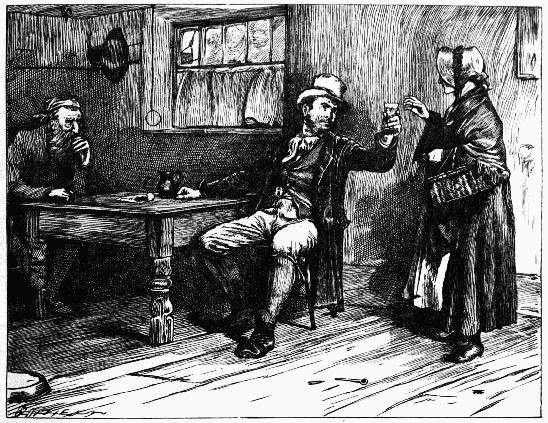
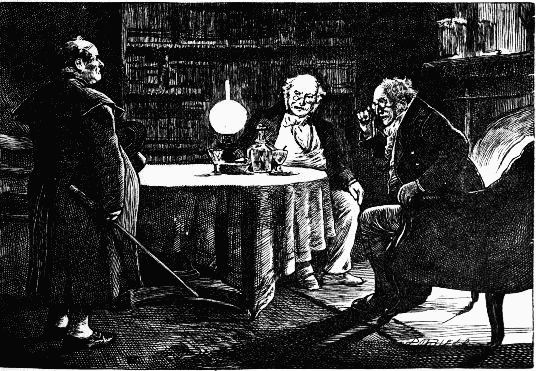 "A beadle! A parish beadle, or I'll eat my head"—Chap. xvii.
"A beadle! A parish beadle, or I'll eat my head"—Chap. xvii.
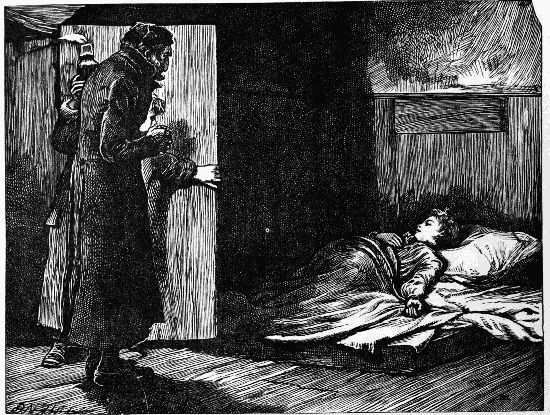
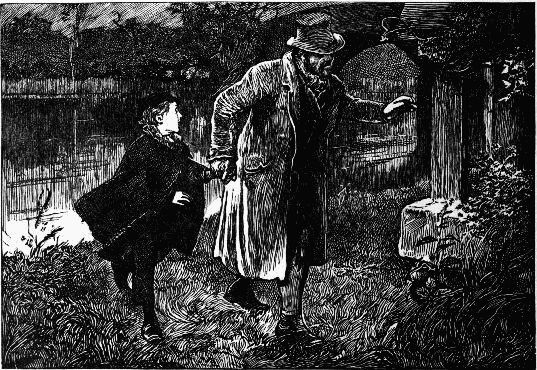 Sikes, with Oliver's hands still in his, softly approached the low porch—Chap. xxi.
Sikes, with Oliver's hands still in his, softly approached the low porch—Chap. xxi.
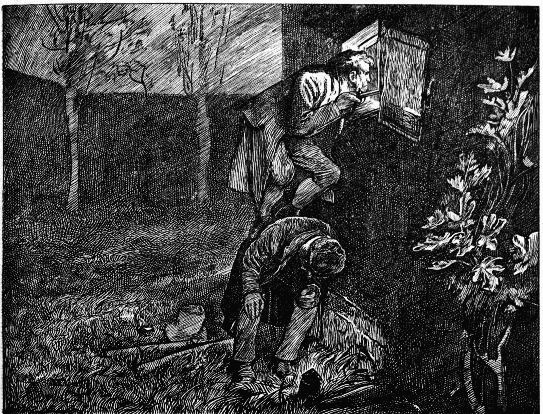
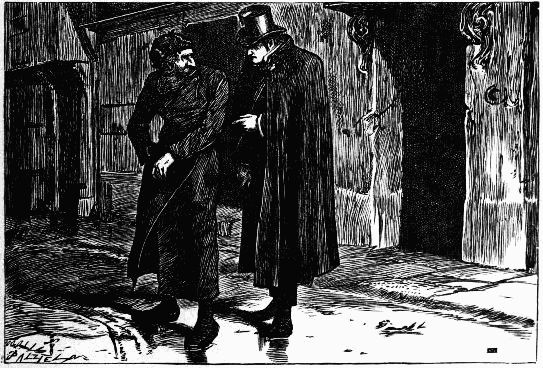 "Fagin!" whispered a voice close to his ear—Chap. xxvi.
"Fagin!" whispered a voice close to his ear—Chap. xxvi.
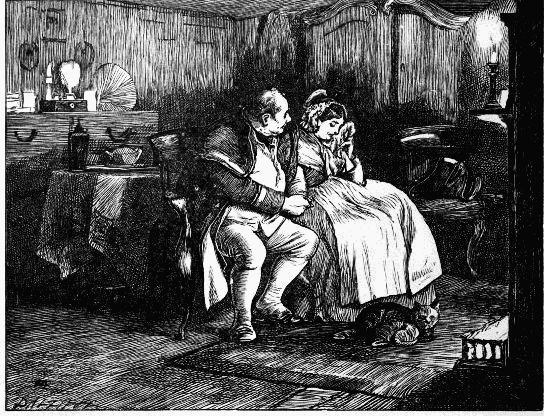
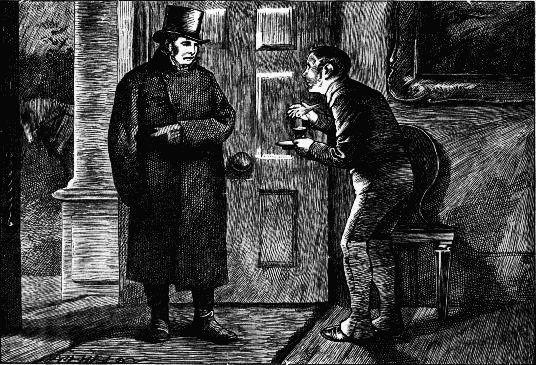 "Just send somebody out to relieve my mate, will you, young man?"—Chap. xxxi.
"Just send somebody out to relieve my mate, will you, young man?"—Chap. xxxi.
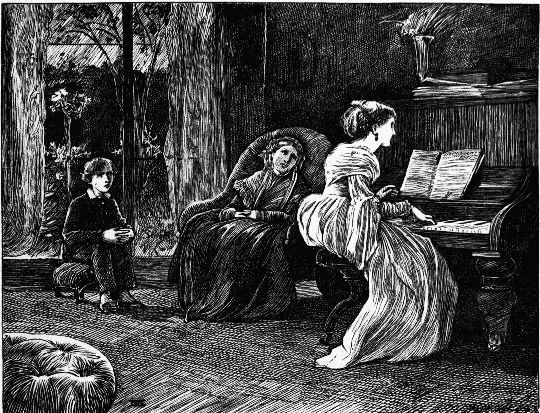
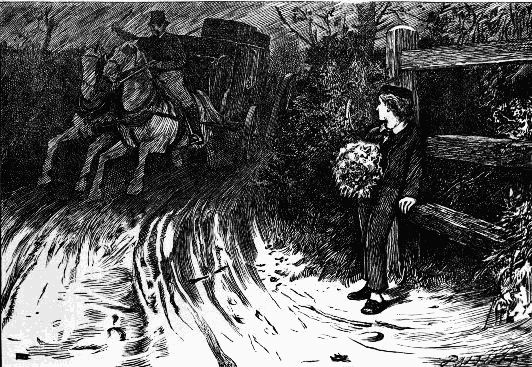 Looking round, he saw that it was a post-chaise, driven at great speed—Chap. xxxiv.
Looking round, he saw that it was a post-chaise, driven at great speed—Chap. xxxiv.
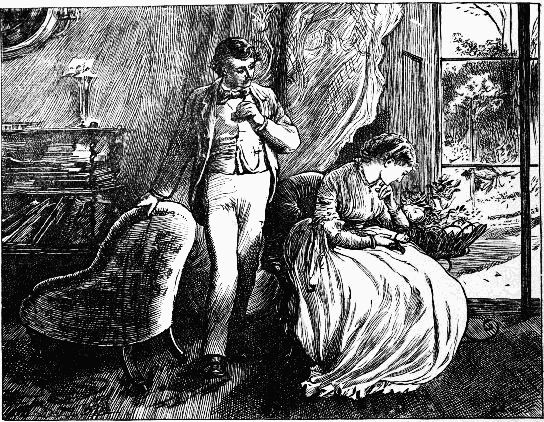
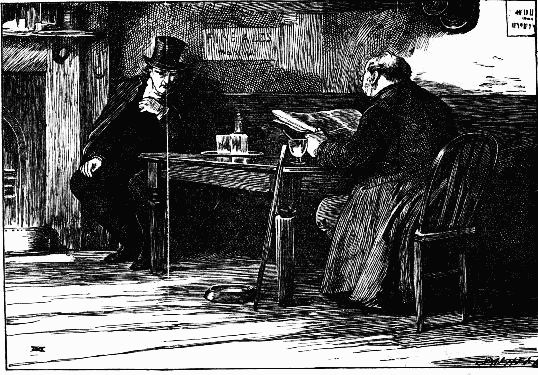 "Were you looking for me," he said, "when you peered in at the window?"—Chap. xxxvii.
"Were you looking for me," he said, "when you peered in at the window?"—Chap. xxxvii.
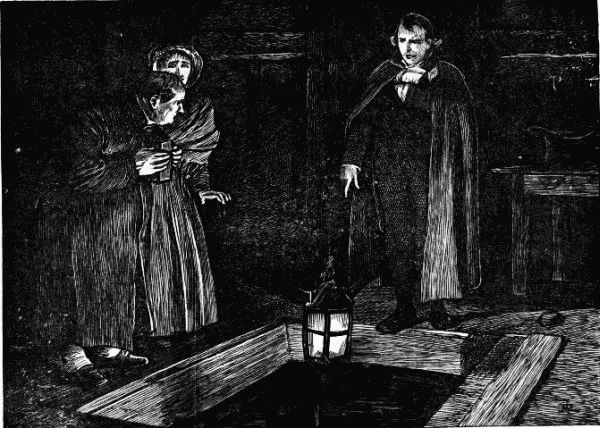 The evidence destroyed—Chap. xxxviii.
The evidence destroyed—Chap. xxxviii.
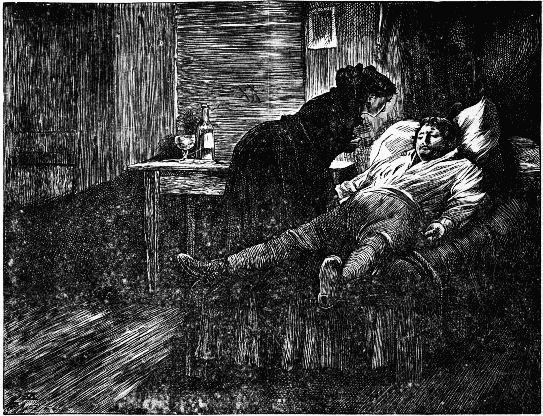
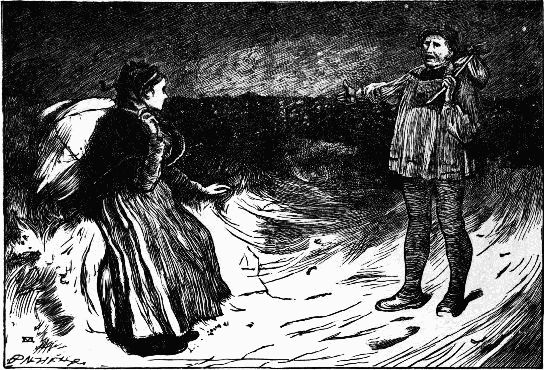 "Look there! Those are the lights of London"—Chap. xlii.
"Look there! Those are the lights of London"—Chap. xlii.
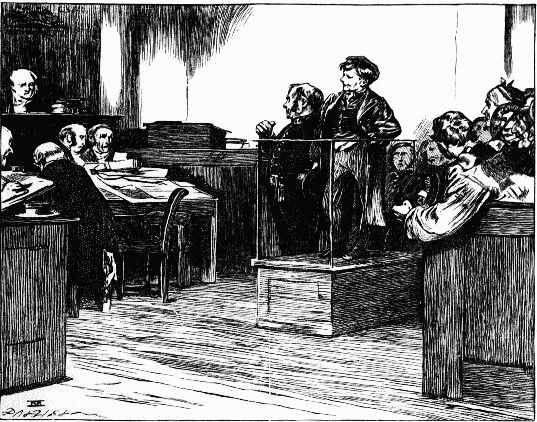
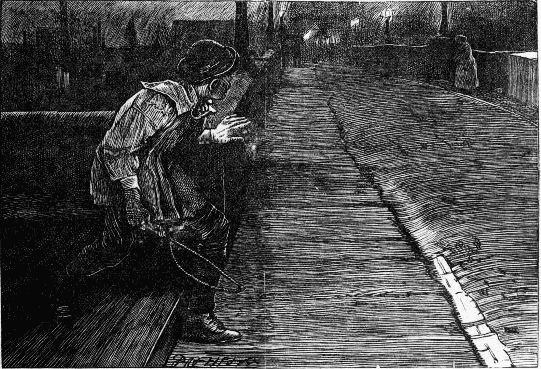 When she was about the same distance in advance as she had been before, he slipped quietly down,
and followed her again—Chap. xlvi.
When she was about the same distance in advance as she had been before, he slipped quietly down,
and followed her again—Chap. xlvi.

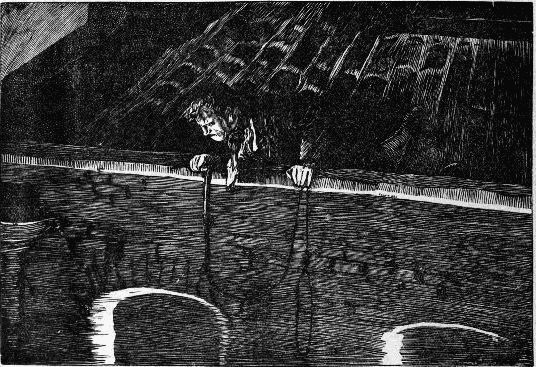 And creeping over the tiles, looked over the low parapet—Chap. l.
And creeping over the tiles, looked over the low parapet—Chap. l.
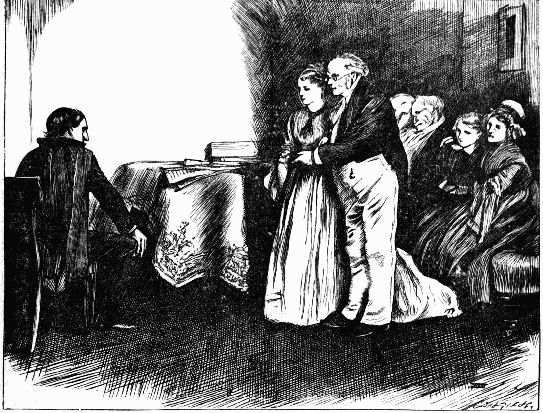
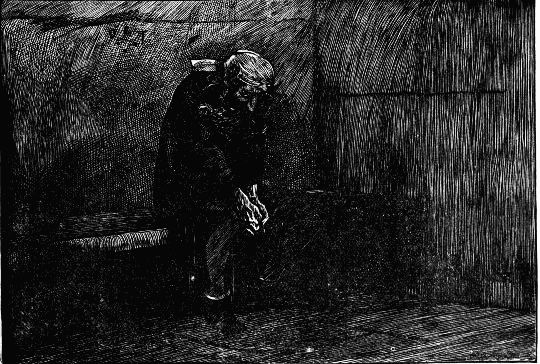 He sat down on the stone bench opposite the door—Chap. lvi.
He sat down on the stone bench opposite the door—Chap. lvi.
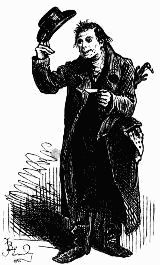
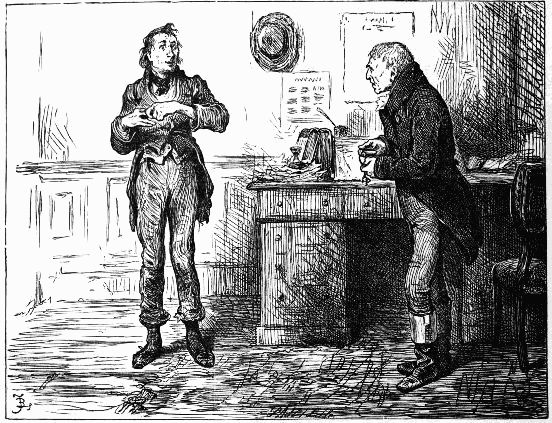
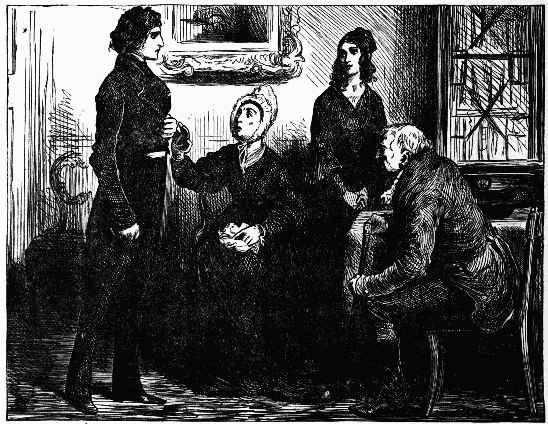 The Uncle and Nephew looked at each other for some seconds without speaking—Chap. iii.
The Uncle and Nephew looked at each other for some seconds without speaking—Chap. iii.
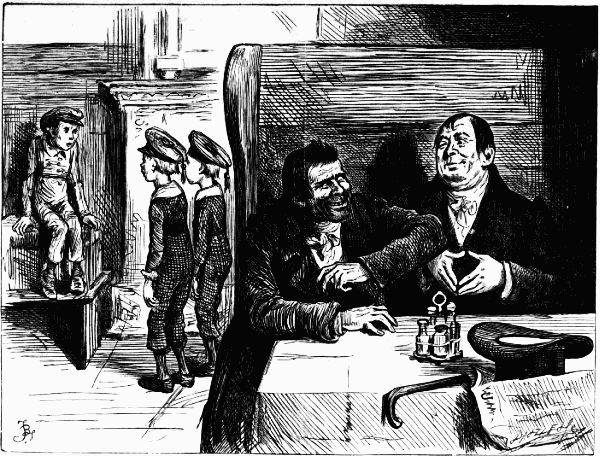 The schoolmaster and his companion looked steadily at each other for a few seconds, and then exchanged a very meaning smile—Chap. iv.
The schoolmaster and his companion looked steadily at each other for a few seconds, and then exchanged a very meaning smile—Chap. iv.
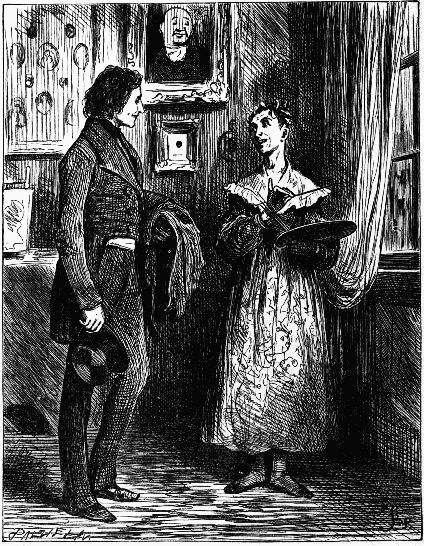 "Snubs and Romans are plentiful enough, and there are flats of all sorts
and sizes when there's a meeting at Exeter Hall"—Chap. v.
"Snubs and Romans are plentiful enough, and there are flats of all sorts
and sizes when there's a meeting at Exeter Hall"—Chap. v.
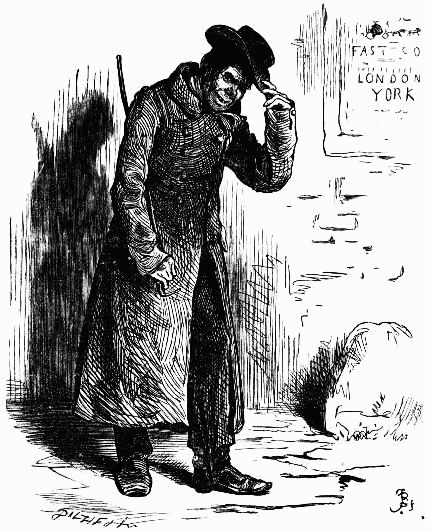 "Very glad to make your acquaintance, Miss," said Squeers, raising his hat an
inch or two—Chap. v.
"Very glad to make your acquaintance, Miss," said Squeers, raising his hat an
inch or two—Chap. v.
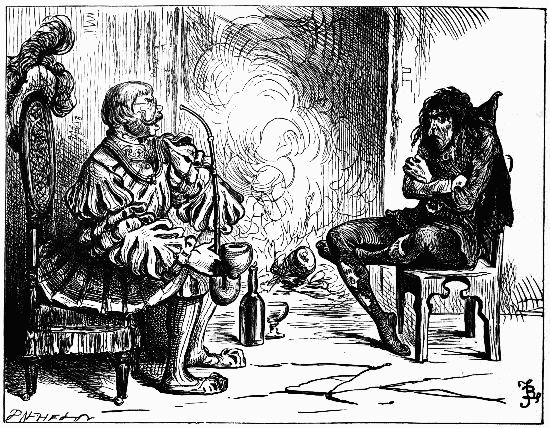
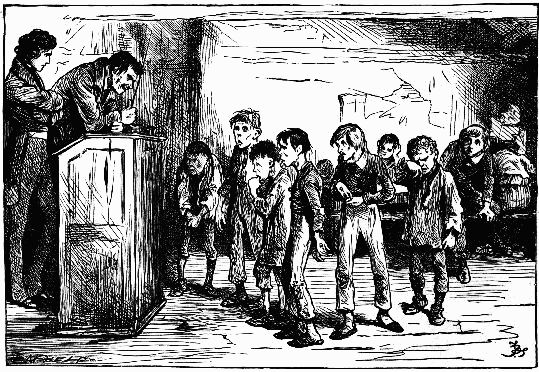 The first class English spelling and philosophy—Chap. viii.
The first class English spelling and philosophy—Chap. viii.
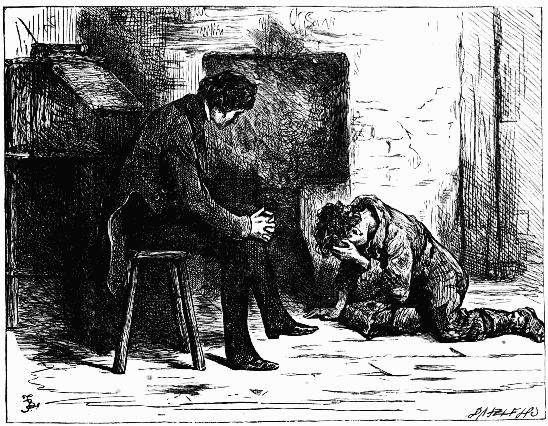
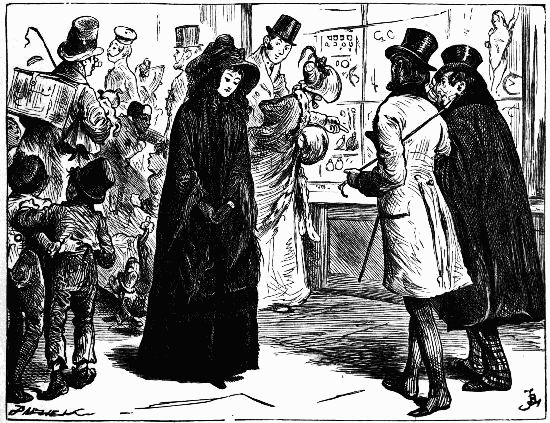 Kate walked sadly back to their lodgings in the Strand—Chap. x.
Kate walked sadly back to their lodgings in the Strand—Chap. x.
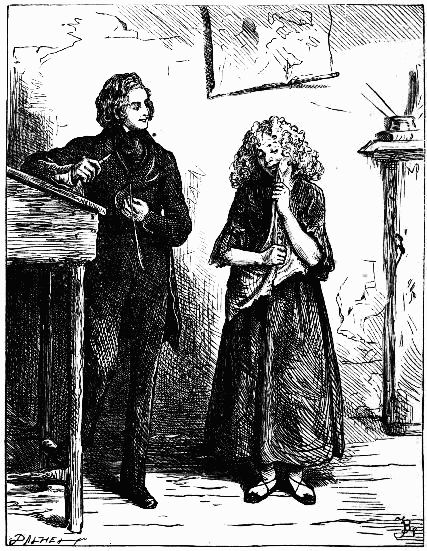 "Oh! as soft as possible, if you please"—Chap. ix.
"Oh! as soft as possible, if you please"—Chap. ix.
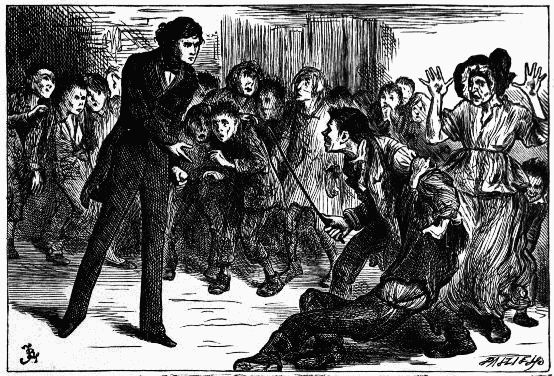
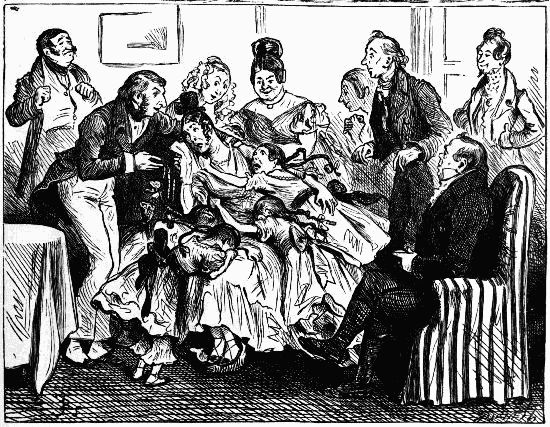 "I can—not help it, and it don't signify," sobbed Mrs. Kenwigs. "Oh! they're too beautiful to live,
much too beautiful!"—Chap. xiv.
"I can—not help it, and it don't signify," sobbed Mrs. Kenwigs. "Oh! they're too beautiful to live,
much too beautiful!"—Chap. xiv.
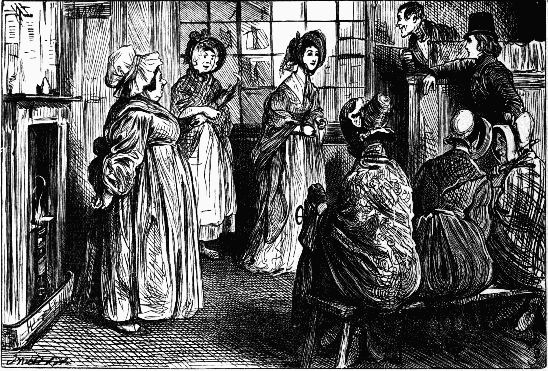
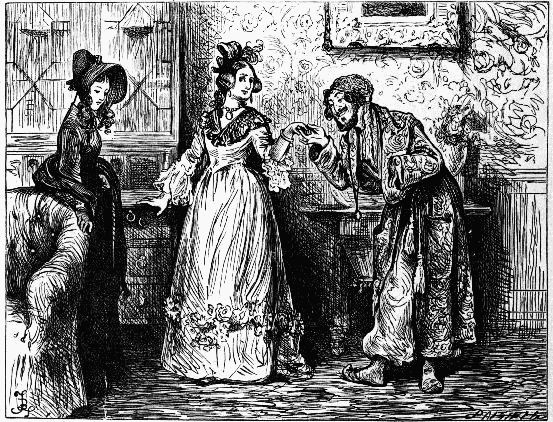 "I don't forget you, my soul, and never shall, and never can," said Mantalini, kissing his wife's hand
and grimacing aside to Miss Nickleby, who turned away—Chap. xvii.
"I don't forget you, my soul, and never shall, and never can," said Mantalini, kissing his wife's hand
and grimacing aside to Miss Nickleby, who turned away—Chap. xvii.
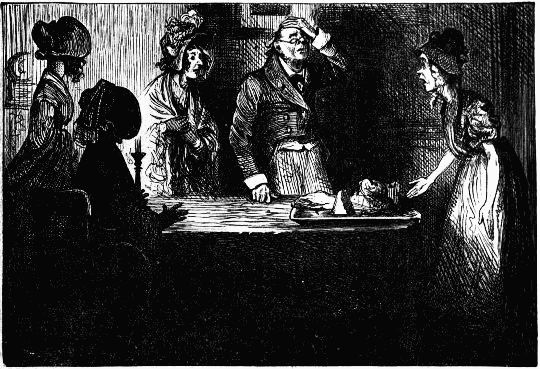
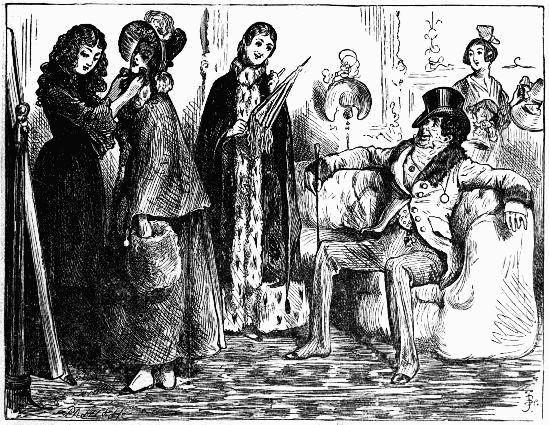 "I am afraid you have been giving her some of your wicked looks, my lord," said the intended—Chap. xviii.
"I am afraid you have been giving her some of your wicked looks, my lord," said the intended—Chap. xviii.
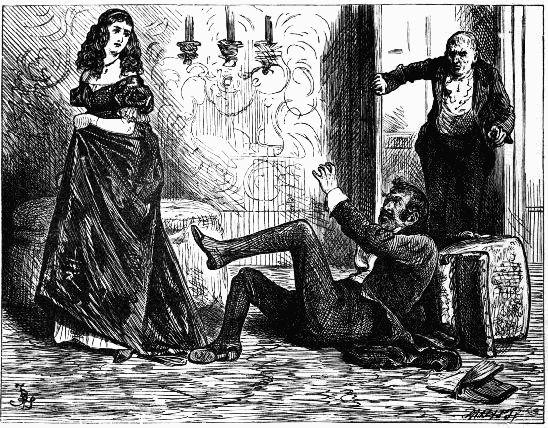
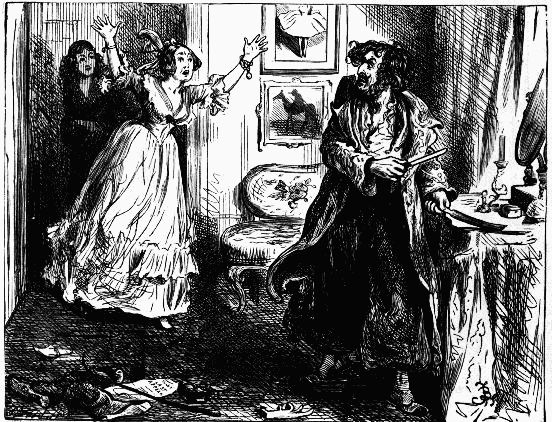 The dressing-room door being hastily flung open, Mr. Mantalini was disclosed to view, with his shirt
collar symmetrically thrown back: putting a fine edge to a breakfast knife by means of his razor
strop—Chap. xxi.
The dressing-room door being hastily flung open, Mr. Mantalini was disclosed to view, with his shirt
collar symmetrically thrown back: putting a fine edge to a breakfast knife by means of his razor
strop—Chap. xxi.
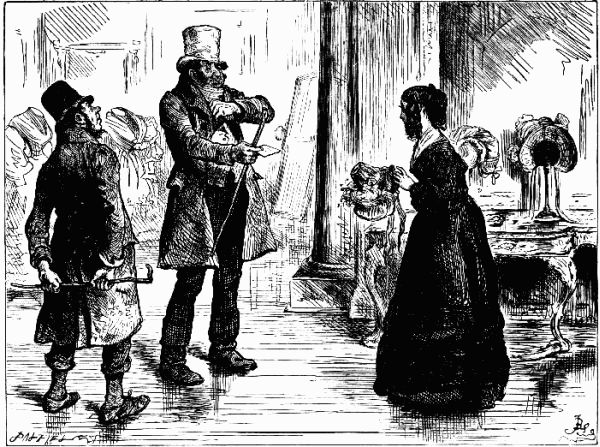 "You can just give him that ere card, and tell him if he wants to speak to me, and save trouble, here I am, that's all"—Chap. xxi.
"You can just give him that ere card, and tell him if he wants to speak to me, and save trouble, here I am, that's all"—Chap. xxi.
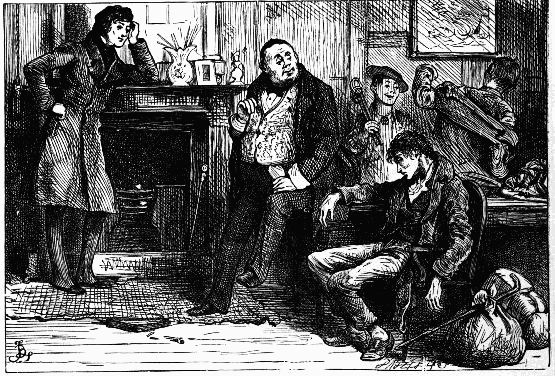
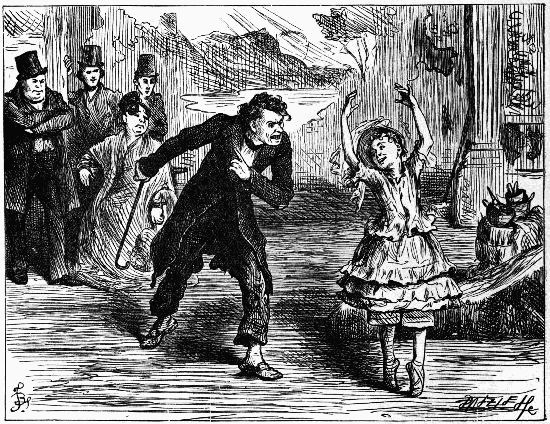 The Indian savage and the maiden—Chap. xxiii.
The Indian savage and the maiden—Chap. xxiii.
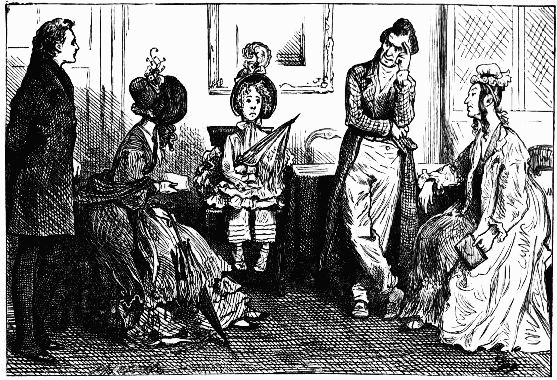
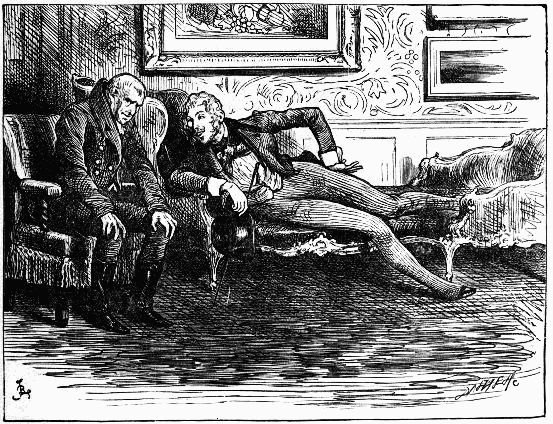 "Nickleby," said his client, throwing himself along the sofa on which he had been previously seated,
so as to bring his lips nearer to the old man's ear, "what a pretty creature your niece is!"—Chap. xxvi.
"Nickleby," said his client, throwing himself along the sofa on which he had been previously seated,
so as to bring his lips nearer to the old man's ear, "what a pretty creature your niece is!"—Chap. xxvi.
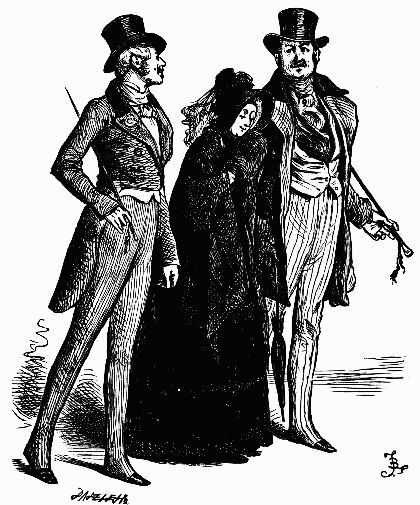 Sir Mulberry Hawk and his friend exchanged glances over the top of the
bonnet—Chap. xxvi.
Sir Mulberry Hawk and his friend exchanged glances over the top of the
bonnet—Chap. xxvi.
 "I see how it is," said poor Noggs, drawing from his pocket what seemed to be
a very old duster, and wiping Kate's eyes with it as gently as if she were an
infant—Chap. xxviii.
"I see how it is," said poor Noggs, drawing from his pocket what seemed to be
a very old duster, and wiping Kate's eyes with it as gently as if she were an
infant—Chap. xxviii.
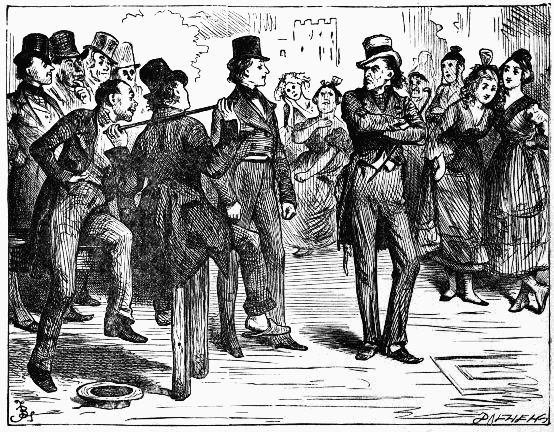
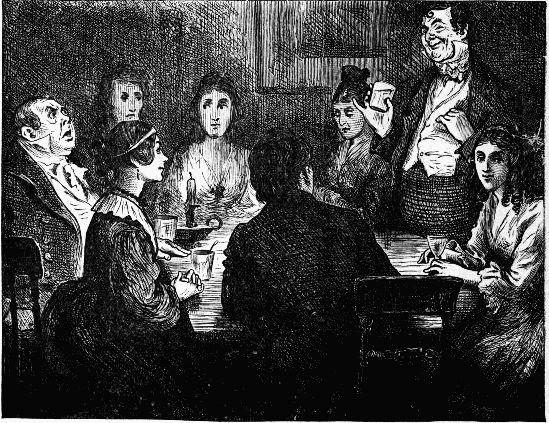 Mr. Snevellicci repeated the wink, and, drinking to Mrs. Lilyvick in dumb-show, actually blew her a
kiss—Chap. xxx.
Mr. Snevellicci repeated the wink, and, drinking to Mrs. Lilyvick in dumb-show, actually blew her a
kiss—Chap. xxx.
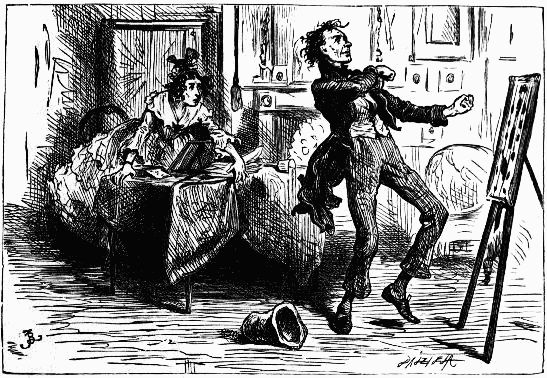
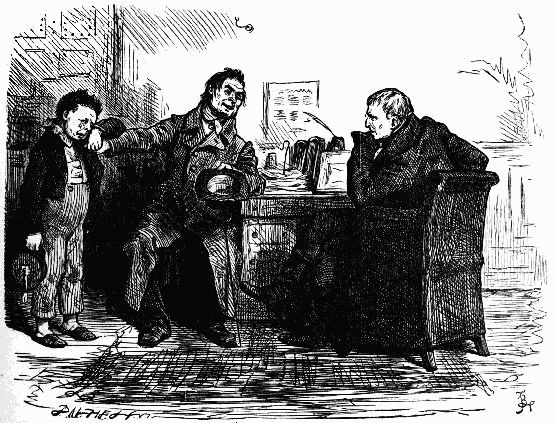 "Look at them tears, Sir!" said Squeers with a triumphant air, as master Wackford wiped his eyes with
the cuff of his jacket; "there's oiliness"—Chap. xxxiv.
"Look at them tears, Sir!" said Squeers with a triumphant air, as master Wackford wiped his eyes with
the cuff of his jacket; "there's oiliness"—Chap. xxxiv.
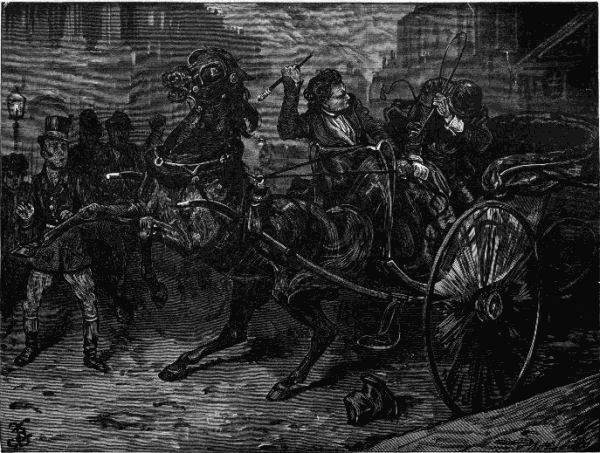 Sir Mulberry, shortening his whip, applied it furiously to the head and shoulders of Nicholas. It was broken in the struggle:
Nicholas gained the heavy handle, and with it laid open one side of his antagonist's face from the eye to the lip—Chap. xxxii.
Sir Mulberry, shortening his whip, applied it furiously to the head and shoulders of Nicholas. It was broken in the struggle:
Nicholas gained the heavy handle, and with it laid open one side of his antagonist's face from the eye to the lip—Chap. xxxii.
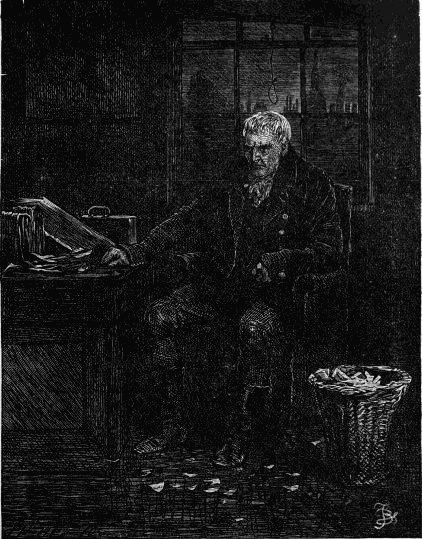 Night found him, at last, still harping on the same theme, and still pursuing
the same unprofitable reflections—Chap. xxxiv.
Night found him, at last, still harping on the same theme, and still pursuing
the same unprofitable reflections—Chap. xxxiv.
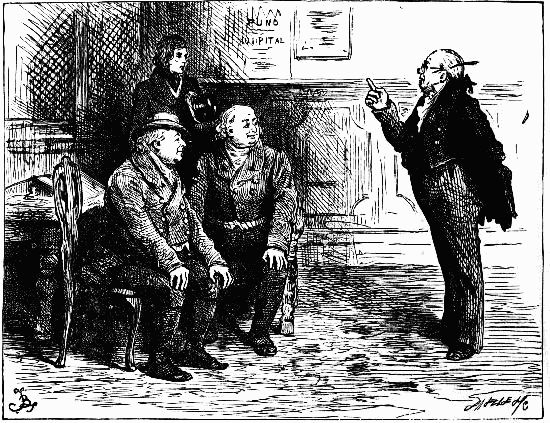
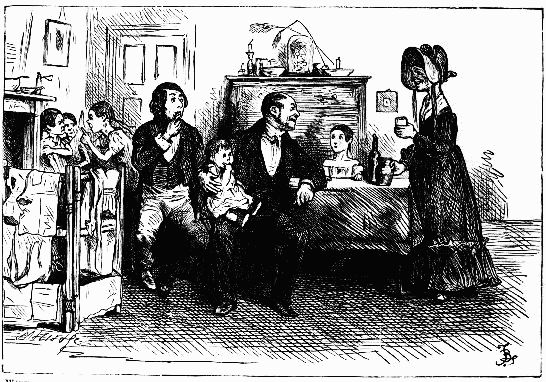 With this the doctor laughed; but he didn't laugh half as much as a married friend of Mrs.
Kenwigs's, who had just come in from the sick chamber—Chap. xxxvi.
With this the doctor laughed; but he didn't laugh half as much as a married friend of Mrs.
Kenwigs's, who had just come in from the sick chamber—Chap. xxxvi.
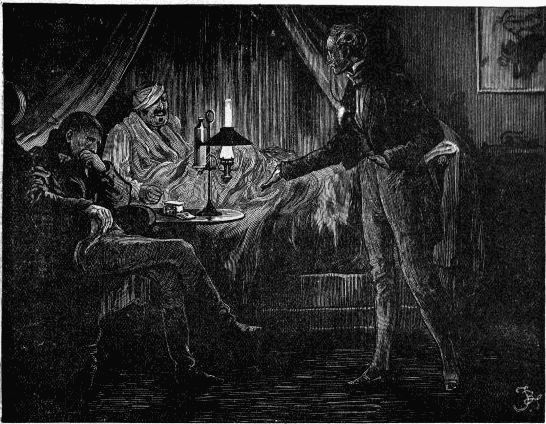
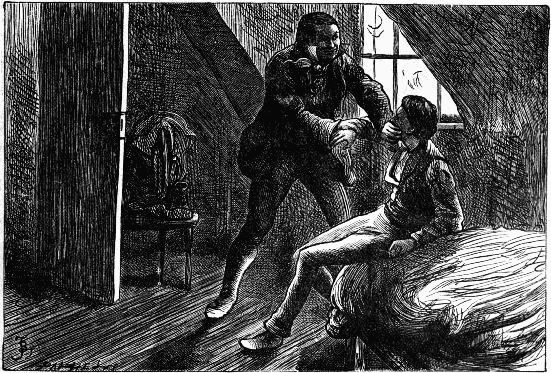 Darting in, covered Smike's mouth with his huge hand before he could utter a sound—Chap. xxxix.
Darting in, covered Smike's mouth with his huge hand before he could utter a sound—Chap. xxxix.
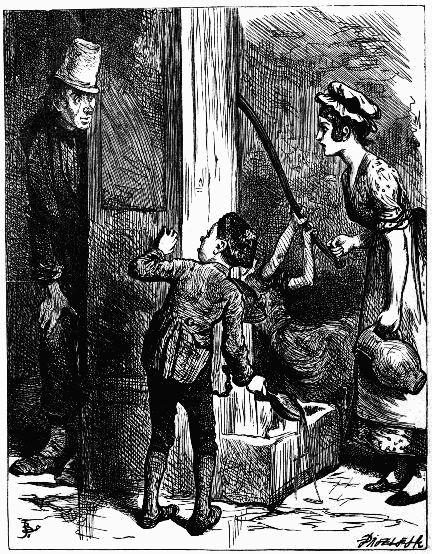 The meditative ogre—Chap. xl.
The meditative ogre—Chap. xl.
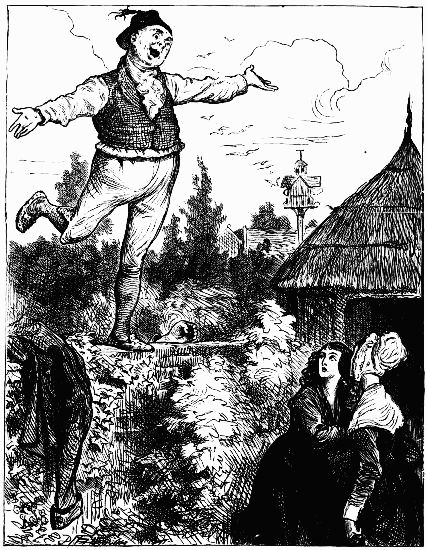 Concluded by standing on one leg, and repeating his favourite bellow with
increased vehemence—Chap. xli.
Concluded by standing on one leg, and repeating his favourite bellow with
increased vehemence—Chap. xli.
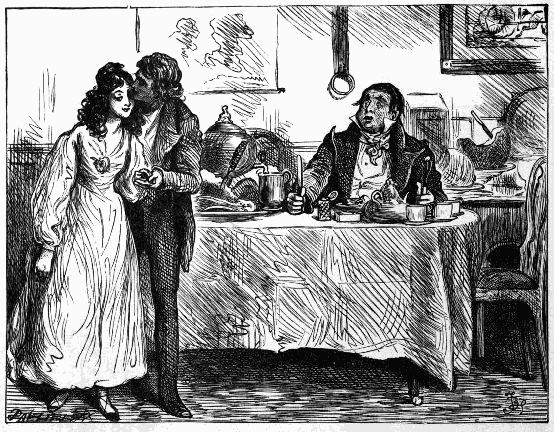
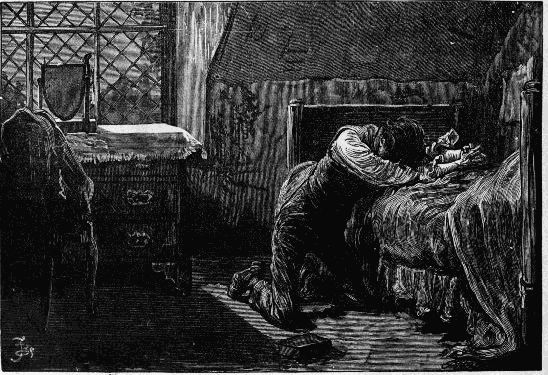 Fell upon his face in a passion of bitter grief—Chap. xliii.
Fell upon his face in a passion of bitter grief—Chap. xliii.
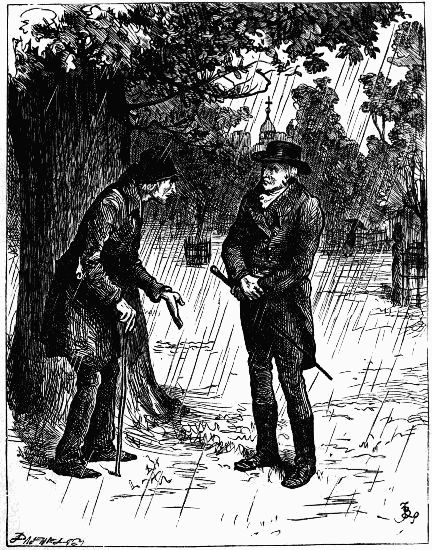 "I am a most miserable and wretched outcast, nearly sixty years old, and as
destitute and helpless as a child of six"—Chap. xliv.
"I am a most miserable and wretched outcast, nearly sixty years old, and as
destitute and helpless as a child of six"—Chap. xliv.
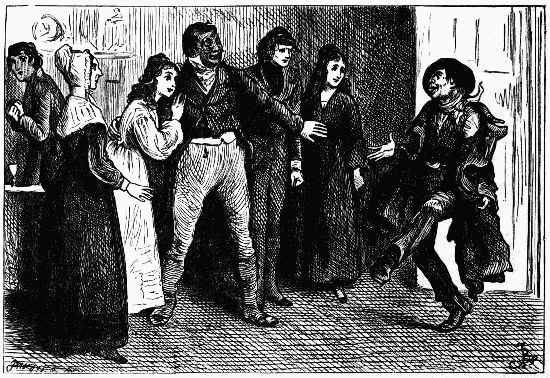
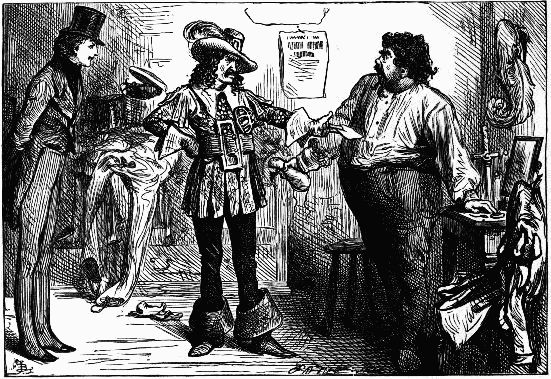 Was presently conducted by a robber, with a very large belt and buckle round his waist, and very
large leather gauntlets on his hands, into the presence of his former manager—Chap. xlviii.
Was presently conducted by a robber, with a very large belt and buckle round his waist, and very
large leather gauntlets on his hands, into the presence of his former manager—Chap. xlviii.
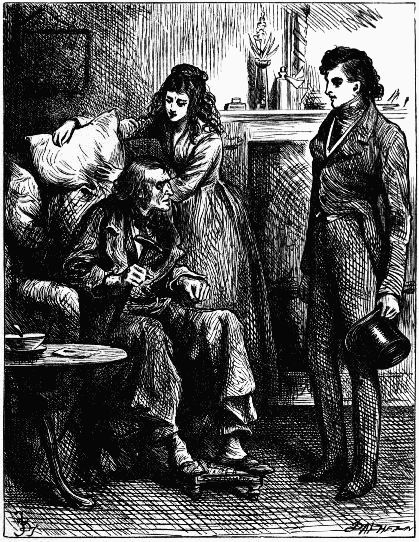 "No matter! do you think you bring your paltry money here as a favour or a
gift; or as a matter of business, and in return for value received"—Chap. xlvi.
"No matter! do you think you bring your paltry money here as a favour or a
gift; or as a matter of business, and in return for value received"—Chap. xlvi.
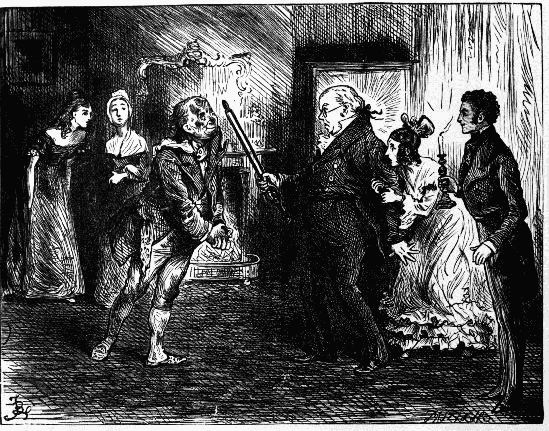
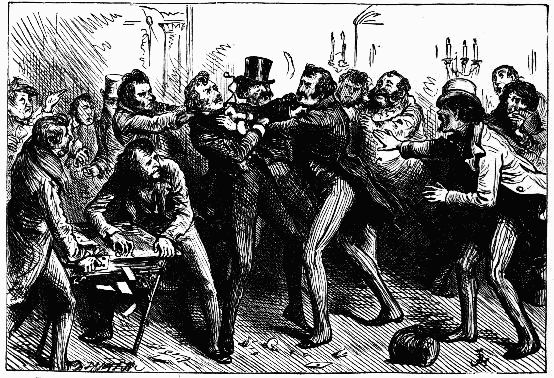 Two men, seizing each other by the throat, struggled into the middle of the room—Chap. l.
Two men, seizing each other by the throat, struggled into the middle of the room—Chap. l.
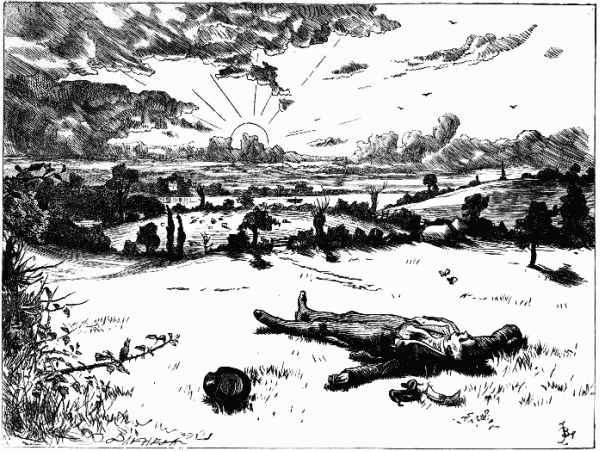 All the light and life of day came on; and amidst it all, and pressing down the grass whose every blade bore twenty tiny lives,
lay the dead man, with his stark and rigid face turned upwards to the sky—Chap. l.
All the light and life of day came on; and amidst it all, and pressing down the grass whose every blade bore twenty tiny lives,
lay the dead man, with his stark and rigid face turned upwards to the sky—Chap. l.
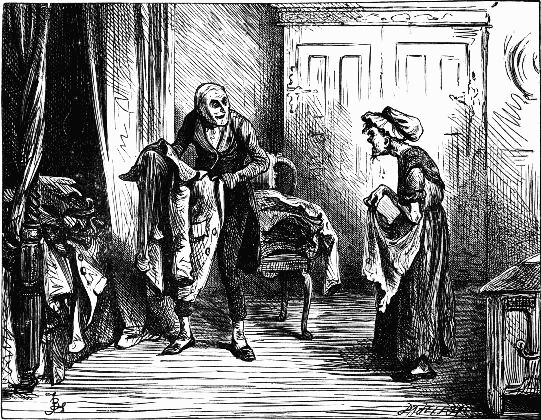
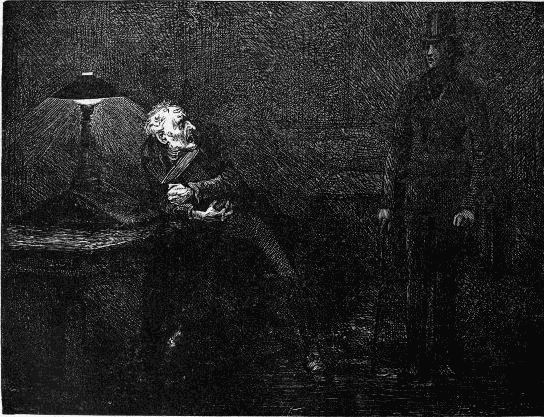 "Thieves! thieves!" shrieked the usurer, starting up and folding his book to his breast; "robbers!
murder!"—Chap. liii.
"Thieves! thieves!" shrieked the usurer, starting up and folding his book to his breast; "robbers!
murder!"—Chap. liii.
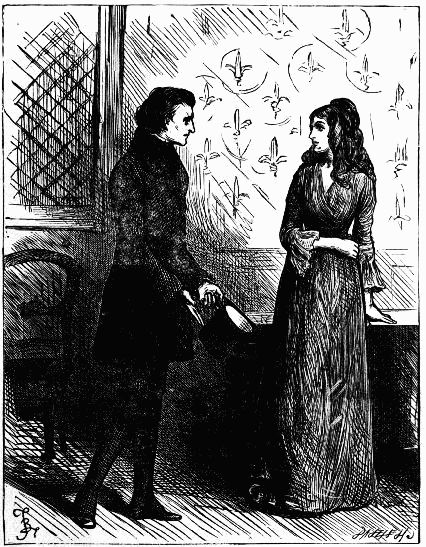 "I must beseech you to contemplate again the fearful course to which you have
been impelled"—Chap. liii.
"I must beseech you to contemplate again the fearful course to which you have
been impelled"—Chap. liii.
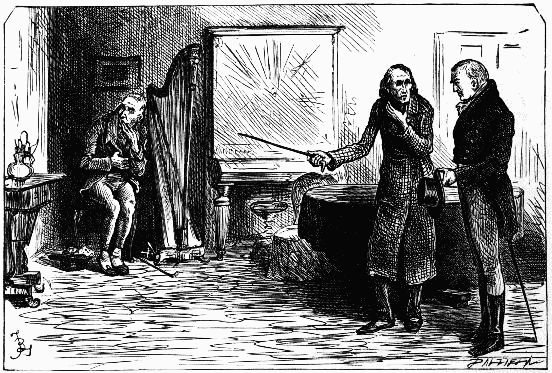
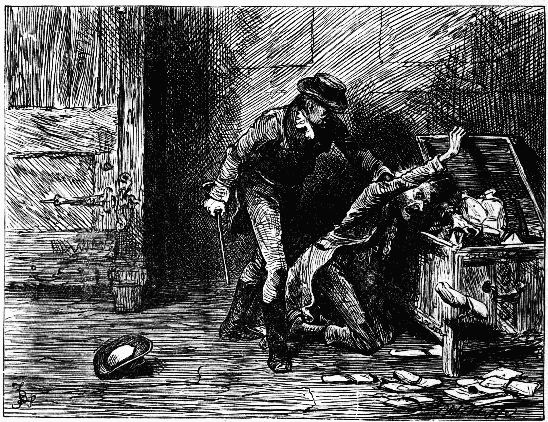 "There is something missing, you say," said Ralph, shaking him furiously by the collar. "What is it?"—Chap. lvi.
"There is something missing, you say," said Ralph, shaking him furiously by the collar. "What is it?"—Chap. lvi.
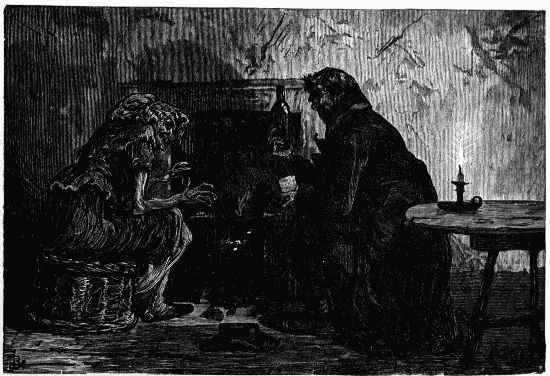
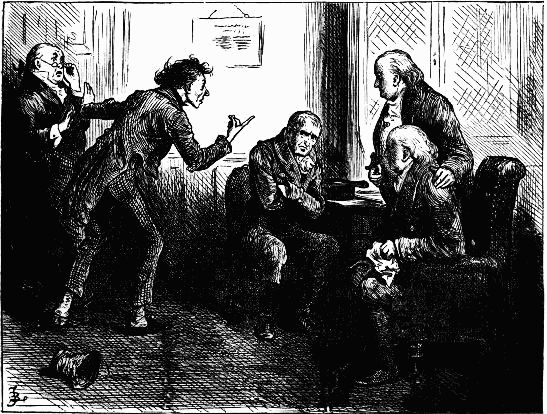 "Who tampered with a selfish father, urging him to sell his daughter to old Arthur Gride, and
tampered with Gride too, and did so in the little office, with a closet in the room"—Chap. lix.
"Who tampered with a selfish father, urging him to sell his daughter to old Arthur Gride, and
tampered with Gride too, and did so in the little office, with a closet in the room"—Chap. lix.
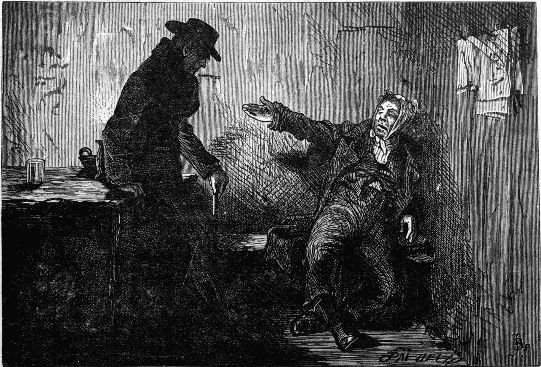 "Total, all up with Squeers!"—Chap. lx.
"Total, all up with Squeers!"—Chap. lx.
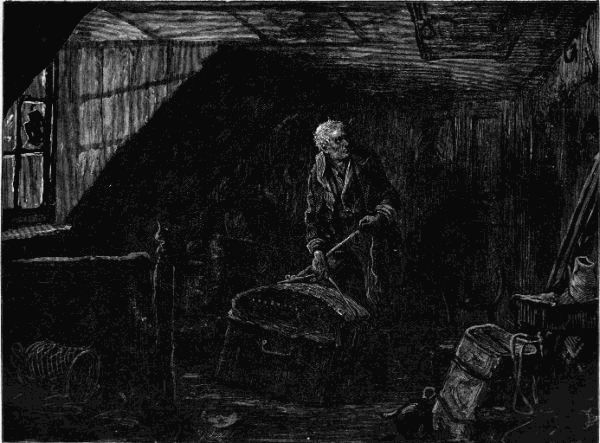 Ralph makes one last appointment—and keeps it—Chap. lxii.
Ralph makes one last appointment—and keeps it—Chap. lxii.
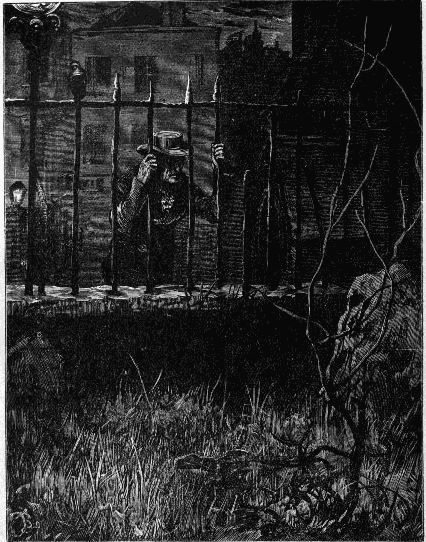 Clasping the iron railings with his hands, looked eagerly in, wondering which
might be his grave—Chap. lxii.
Clasping the iron railings with his hands, looked eagerly in, wondering which
might be his grave—Chap. lxii.
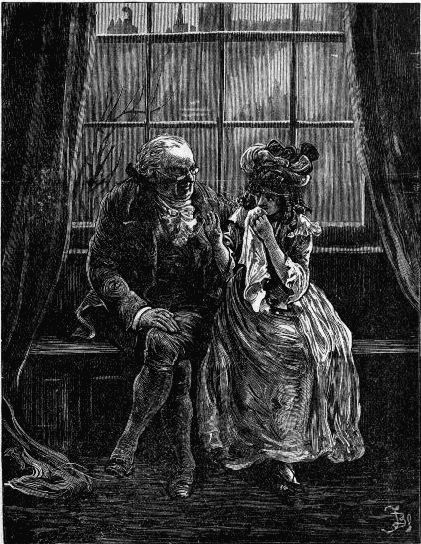 "Oh, Mr. Linkinwater, you're joking!" "No, no, I'm not. I'm not indeed," said Tim.
"I will, if you will. Do, my dear!"—Chap. lxiii.
"Oh, Mr. Linkinwater, you're joking!" "No, no, I'm not. I'm not indeed," said Tim.
"I will, if you will. Do, my dear!"—Chap. lxiii.
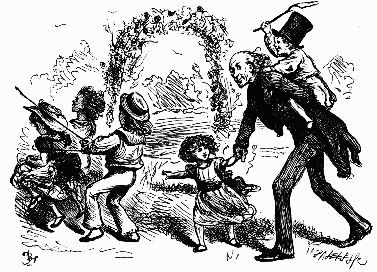 The little people could do nothing without dear Newman Noggs—Chap. lxv.
The little people could do nothing without dear Newman Noggs—Chap. lxv.
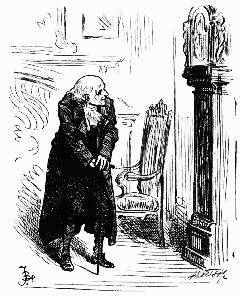
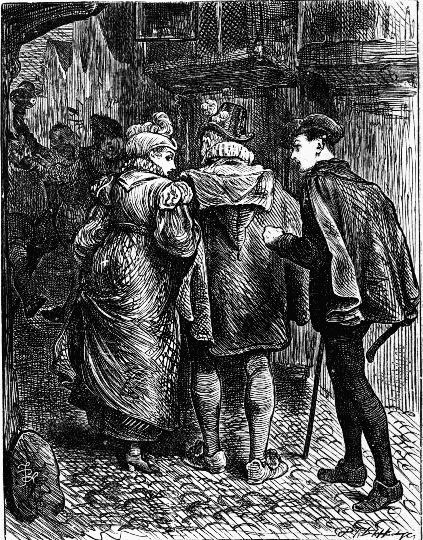 At such times, or when the shouts of straggling brawlers met her ear, the
Bowyer's daughter would look timidly back at Hugh, beseeching him to draw
nearer.—Master Humphrey's Clock, chap. i.
At such times, or when the shouts of straggling brawlers met her ear, the
Bowyer's daughter would look timidly back at Hugh, beseeching him to draw
nearer.—Master Humphrey's Clock, chap. i.
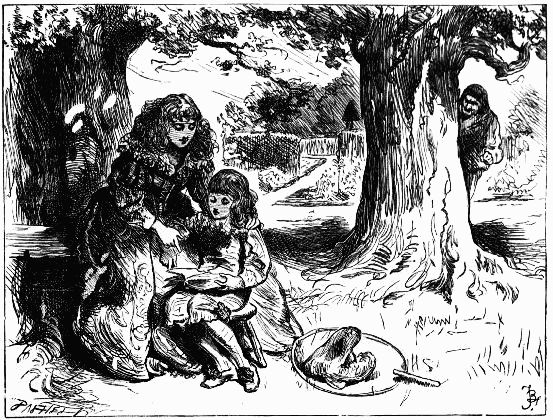
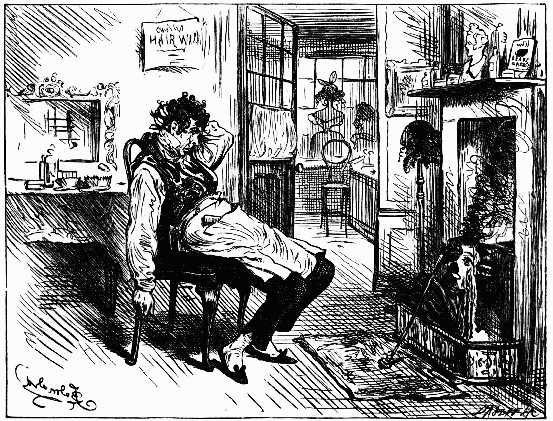 "Vith these vords he rushes into the shop, breaks the dummy's nose with a blow of his curlin'-irons,
melts him down at the parlour fire, and never smiles afterwards."—Master Humphrey's Clock, chap. v.
"Vith these vords he rushes into the shop, breaks the dummy's nose with a blow of his curlin'-irons,
melts him down at the parlour fire, and never smiles afterwards."—Master Humphrey's Clock, chap. v.
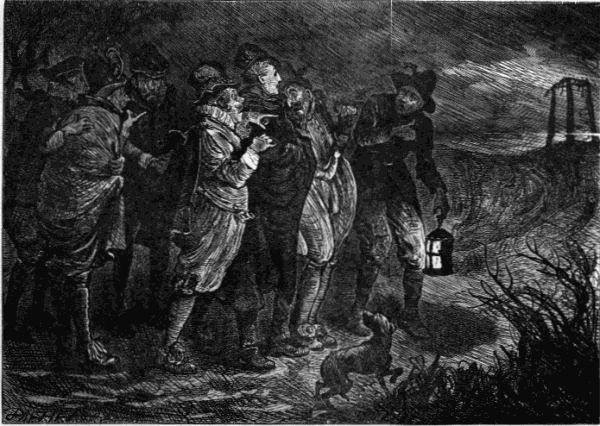 At last they made a halt at the opening of a lonely, desolate space, and, pointing to a black object at some distance, asked
Will if he saw that yonder.—Master Humphrey's Clock, chap. iii.
At last they made a halt at the opening of a lonely, desolate space, and, pointing to a black object at some distance, asked
Will if he saw that yonder.—Master Humphrey's Clock, chap. iii.
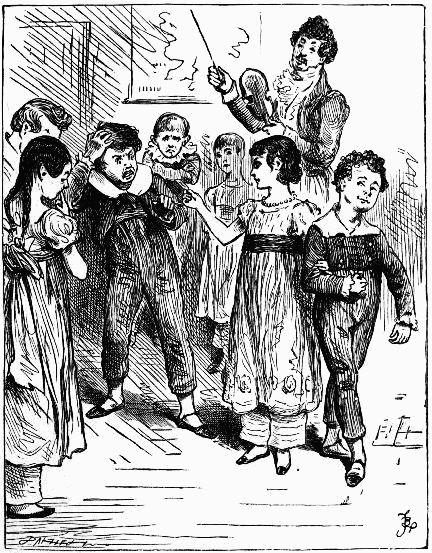 "With a look of scorn, she put into my hand a bit of paper, and took another
partner. On the paper was pencilled, 'Heavens! Can I write the word? Is my
husband a cow?'"—Holiday Romance, Part i.
"With a look of scorn, she put into my hand a bit of paper, and took another
partner. On the paper was pencilled, 'Heavens! Can I write the word? Is my
husband a cow?'"—Holiday Romance, Part i.
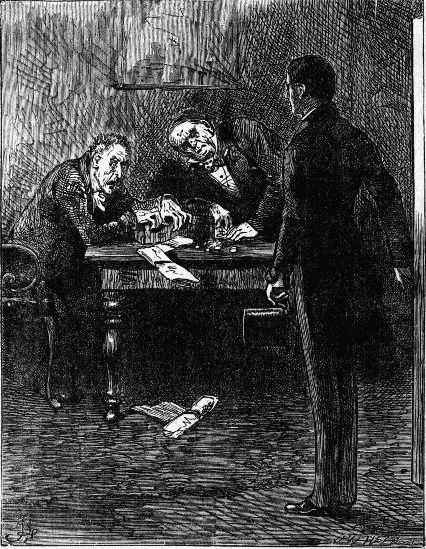 "What is the matter?" asked Brother Haukyard.
"Ay! what is the matter?" asked Brother Gimblet.—George Silverman's Explanation, chap. vi.
"What is the matter?" asked Brother Haukyard.
"Ay! what is the matter?" asked Brother Gimblet.—George Silverman's Explanation, chap. vi.
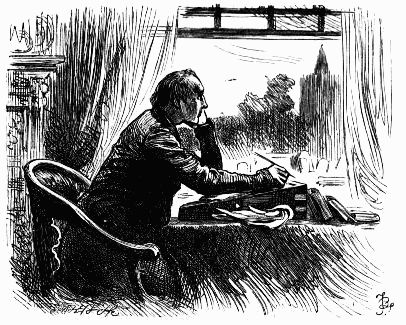
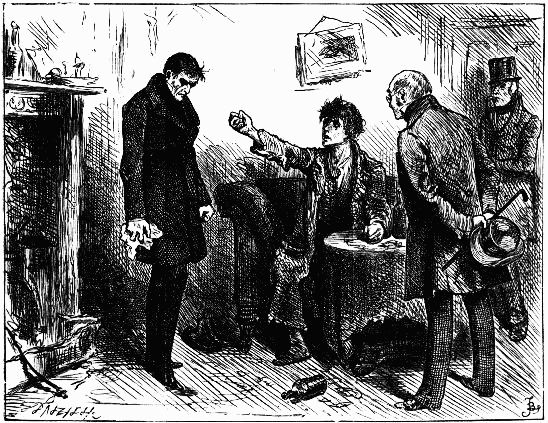 "You shall see me once again in the body, when you are tried for your life. You shall see me once
again in the spirit, when the cord is round your neck and the crowd are crying against you."—Hunted
Down, chap. v.
"You shall see me once again in the body, when you are tried for your life. You shall see me once
again in the spirit, when the cord is round your neck and the crowd are crying against you."—Hunted
Down, chap. v.
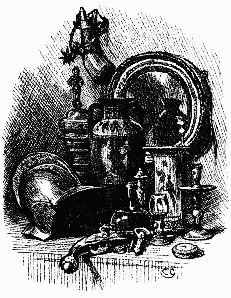
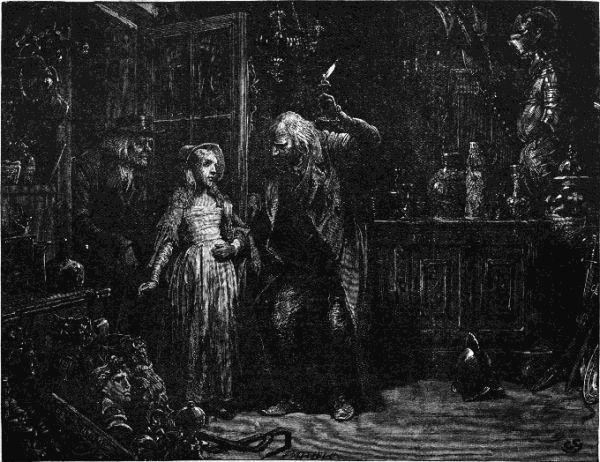 The door being opened, the child addressed him as her grandfather—Chap. i.
The door being opened, the child addressed him as her grandfather—Chap. i.
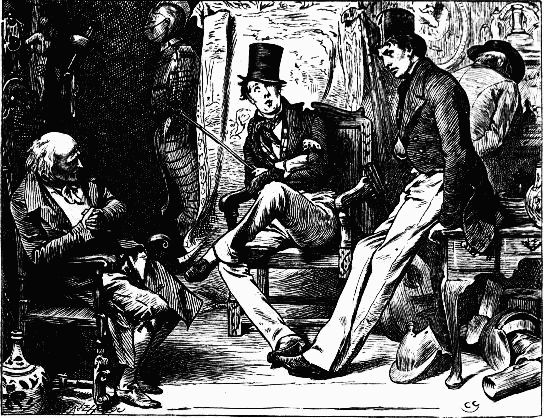
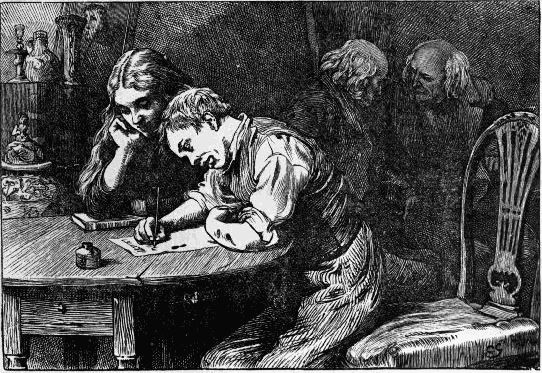 When he did sit down, he tucked up his sleeves and squared his elbows and put his face close to the
copy-book—Chap. iii.
When he did sit down, he tucked up his sleeves and squared his elbows and put his face close to the
copy-book—Chap. iii.
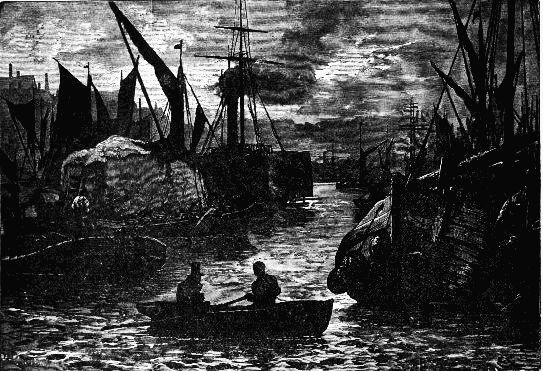
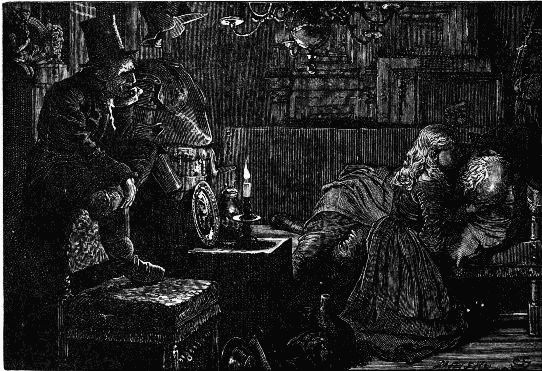 He soon cast his eyes upon a chair, into which he skipped with uncommon agility, and, perching himself
on the back with his feet upon the seat, was thus enabled to look on—Chap. ix.
He soon cast his eyes upon a chair, into which he skipped with uncommon agility, and, perching himself
on the back with his feet upon the seat, was thus enabled to look on—Chap. ix.
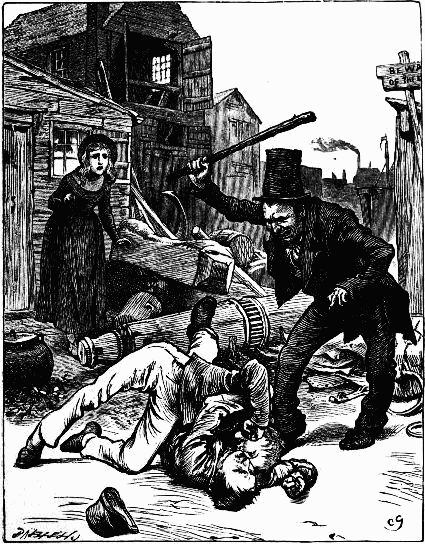 "I'll beat you to pulp, you dogs"—Chap. vi.
"I'll beat you to pulp, you dogs"—Chap. vi.
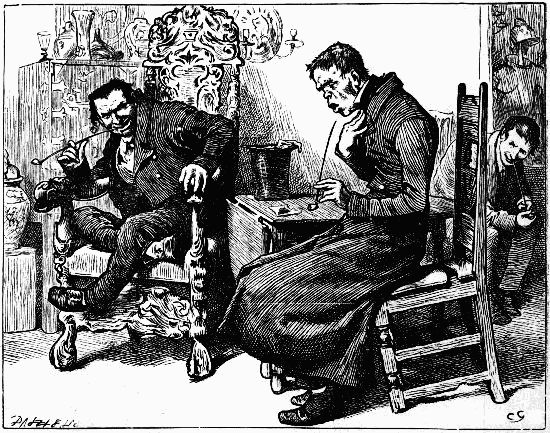
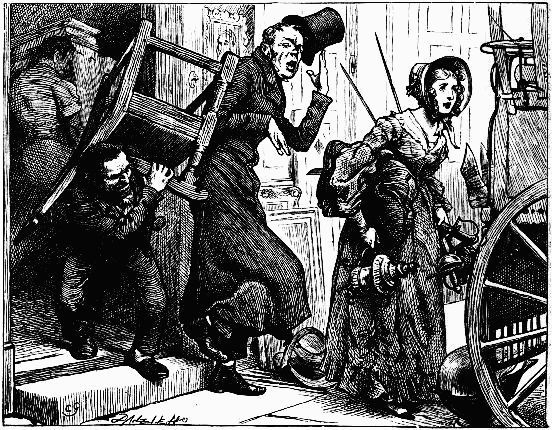 Not to be behindhand in the bustle, Mr. Quilp went to work with surprising vigour—Chap. xiii.
Not to be behindhand in the bustle, Mr. Quilp went to work with surprising vigour—Chap. xiii.
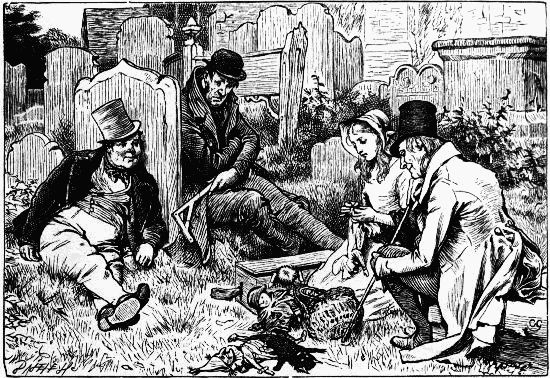
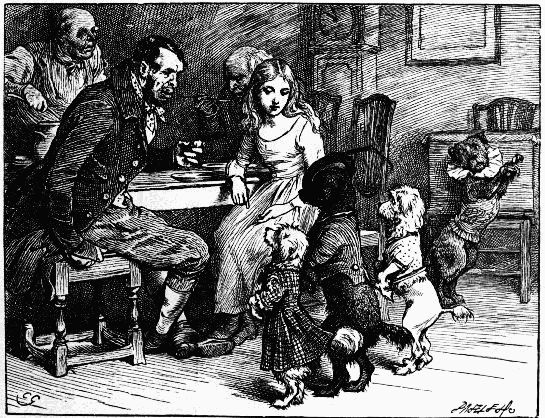 "Now, gentlemen," said Jerry, looking at them attentively, "the dog whose name's called, eats"—Chap. xviii.
"Now, gentlemen," said Jerry, looking at them attentively, "the dog whose name's called, eats"—Chap. xviii.
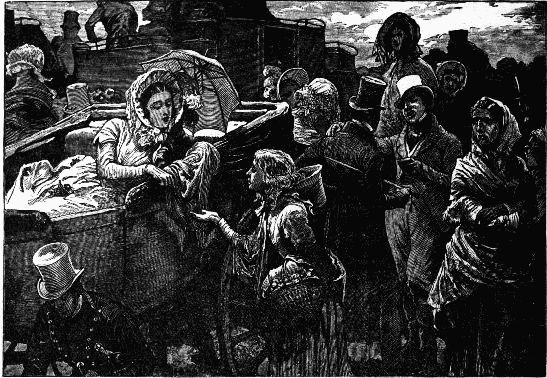
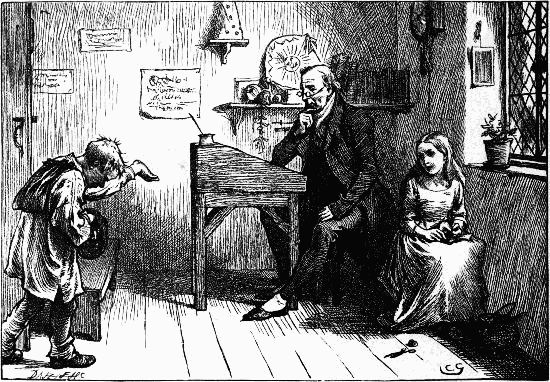 A small white-headed boy with a sunburnt face appeared at the door while he was speaking, and
stopping there to make a rustic bow, came in—Chap. xxv.
A small white-headed boy with a sunburnt face appeared at the door while he was speaking, and
stopping there to make a rustic bow, came in—Chap. xxv.
 And then they went on arm-in-arm, very lovingly together—Chap. xxiii.
And then they went on arm-in-arm, very lovingly together—Chap. xxiii.
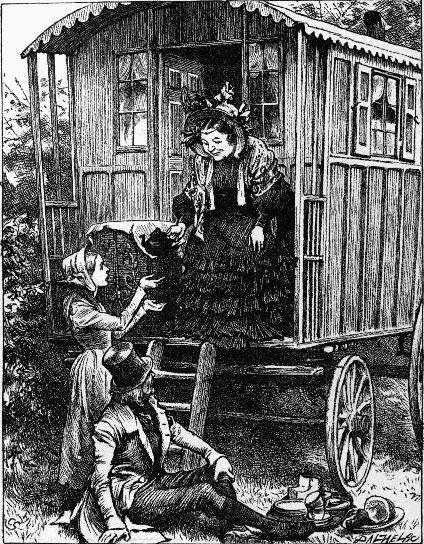 She handed down to them the tea-tray, the bread and butter, the knuckle of
ham, and, in short, everything of which she had partaken herself—Chap. xxvi.
She handed down to them the tea-tray, the bread and butter, the knuckle of
ham, and, in short, everything of which she had partaken herself—Chap. xxvi.
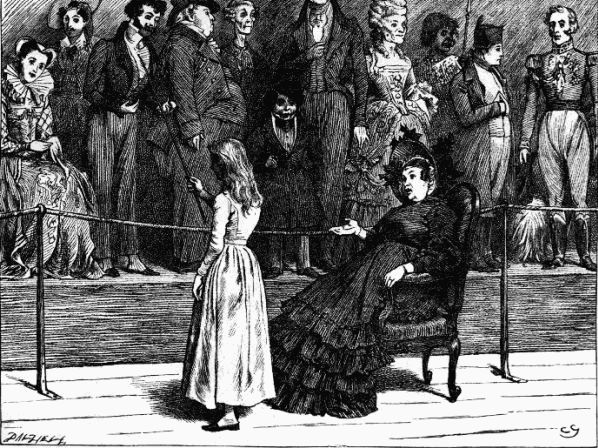 "That, ladies and gentlemen," said Mrs. Jarley, "is Jasper Packlemerton of atrocious memory"—Chap. xxviii.
"That, ladies and gentlemen," said Mrs. Jarley, "is Jasper Packlemerton of atrocious memory"—Chap. xxviii.
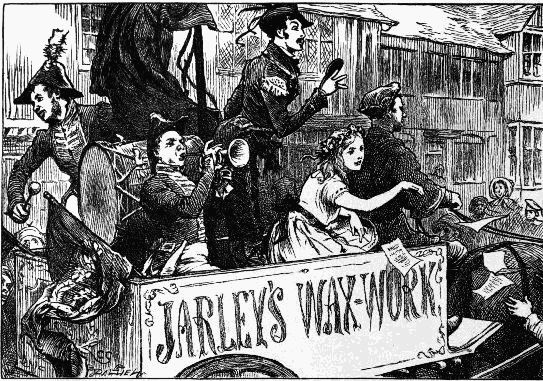
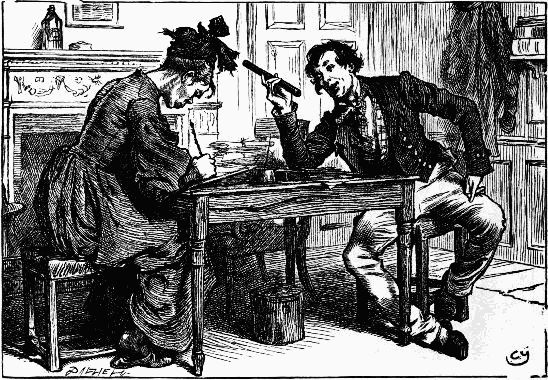 In some of these flourishes it went close to Miss Sally's head—Chap. xxxiii.
In some of these flourishes it went close to Miss Sally's head—Chap. xxxiii.
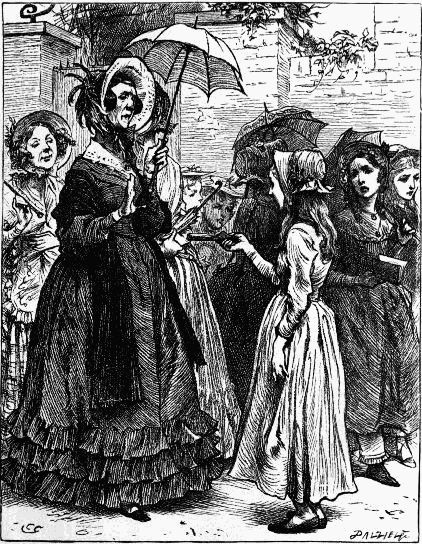 "You're the wax-work child, are you not?"—Chap. xxxi.
"You're the wax-work child, are you not?"—Chap. xxxi.
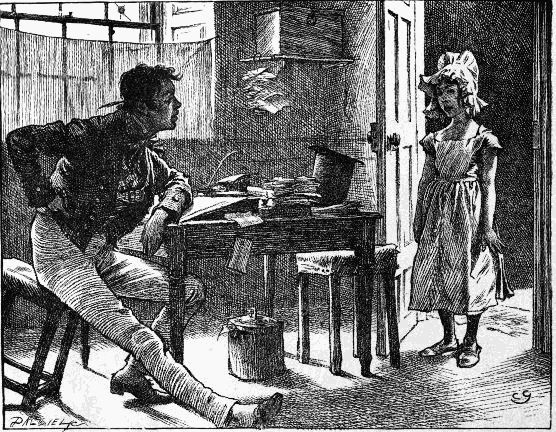
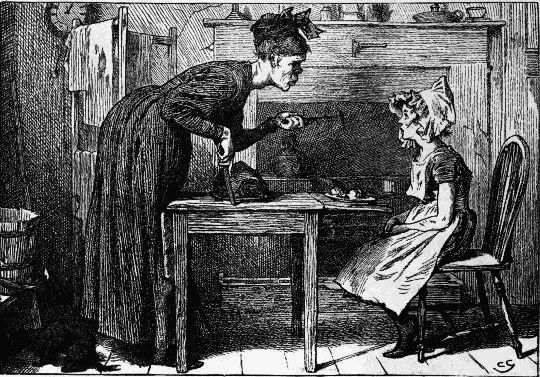 "Do you see this?"—Chap. xxxvi.
"Do you see this?"—Chap. xxxvi.
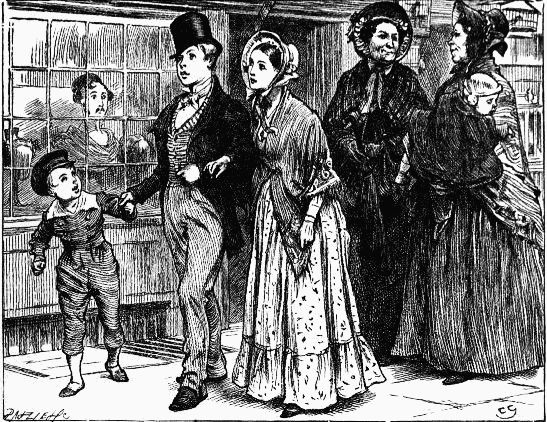
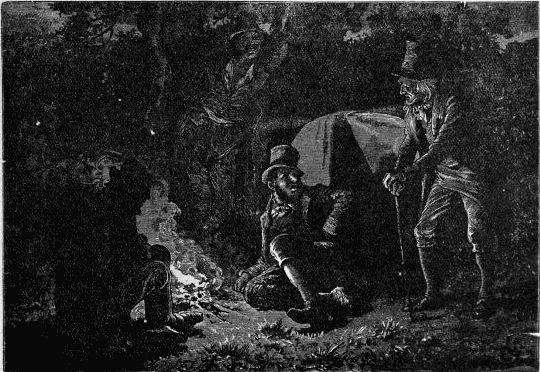 The old man stood helplessly among them for a little time—Chap. xiii.
The old man stood helplessly among them for a little time—Chap. xiii.
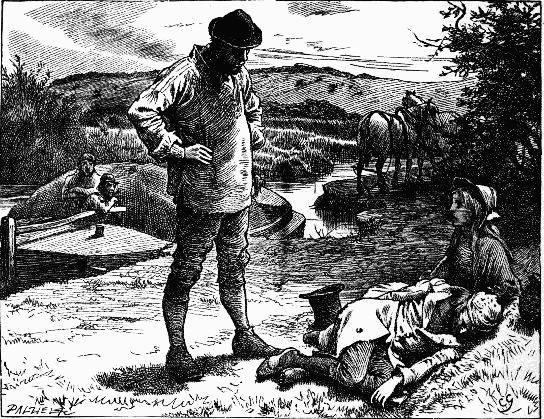
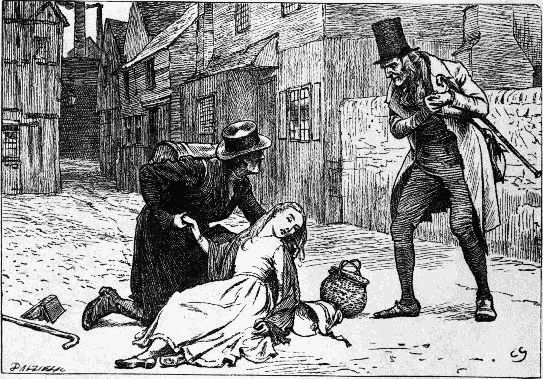 "She is quite exhausted," said the schoolmaster—Chap. xlvi.
"She is quite exhausted," said the schoolmaster—Chap. xlvi.
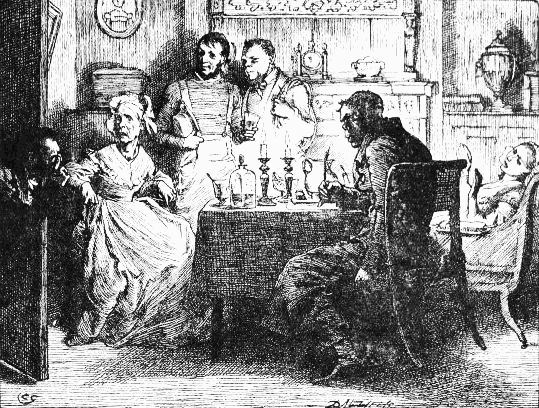
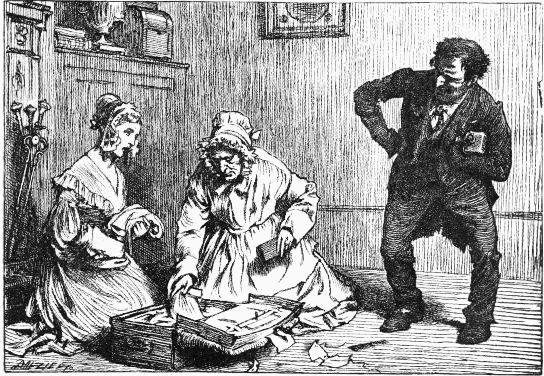 Both mother and daughter, trembling with terror and cold, . . . . obeyed Mr. Quilp's directions in
submissive silence—Chap. l.
Both mother and daughter, trembling with terror and cold, . . . . obeyed Mr. Quilp's directions in
submissive silence—Chap. l.
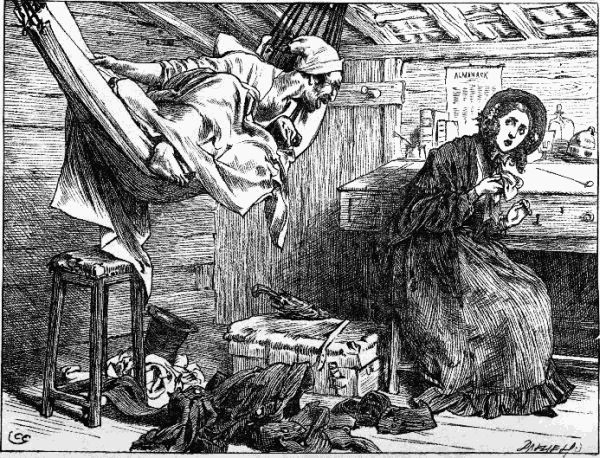 "Halloa!"—Chap. l.
"Halloa!"—Chap. l.
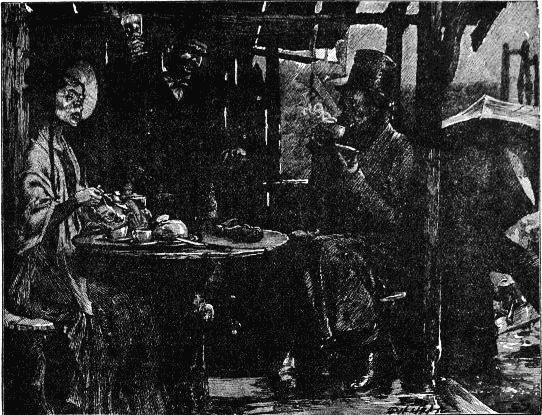
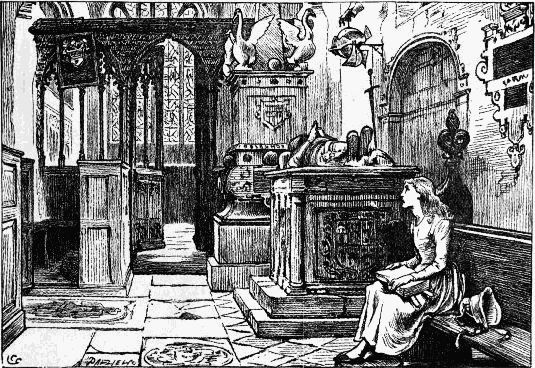 The child sat down in this old silent place—Chap. liii.
The child sat down in this old silent place—Chap. liii.
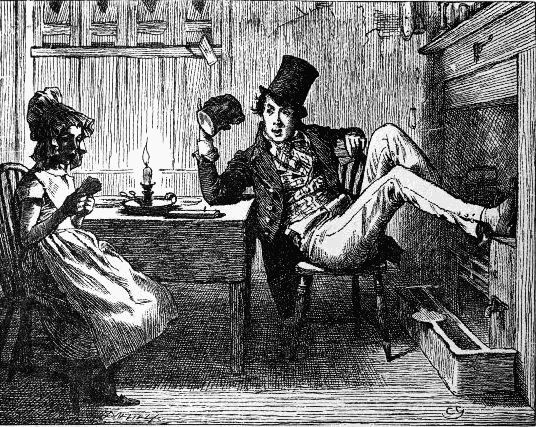
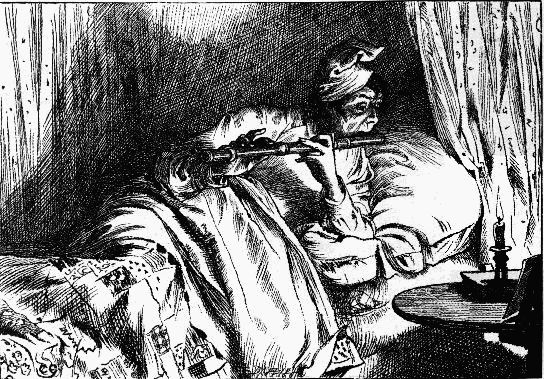 The air was, "Away with Melancholy"—Chap. lvlli.
The air was, "Away with Melancholy"—Chap. lvlli.
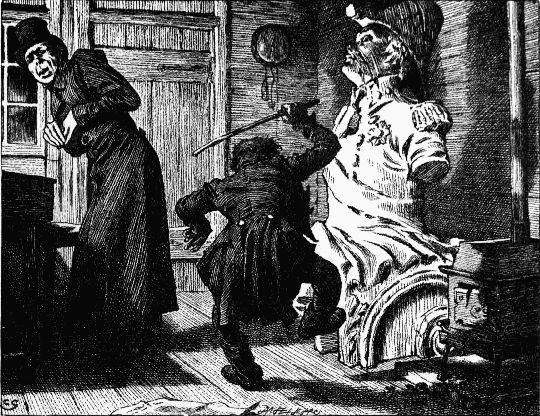
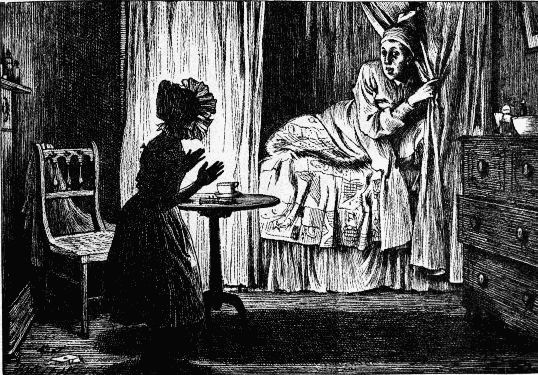 The Marchioness jumped up quickly, and clapped her hands—Chap. lxiv.
The Marchioness jumped up quickly, and clapped her hands—Chap. lxiv.
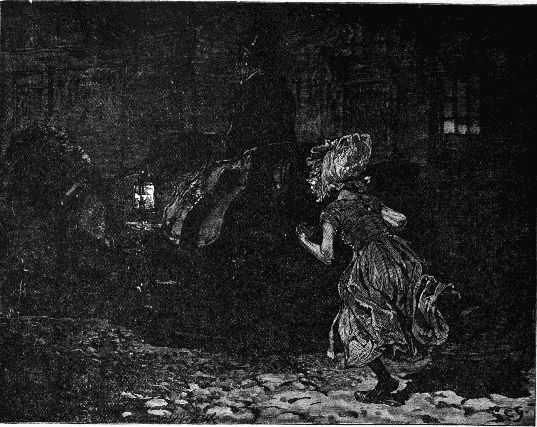
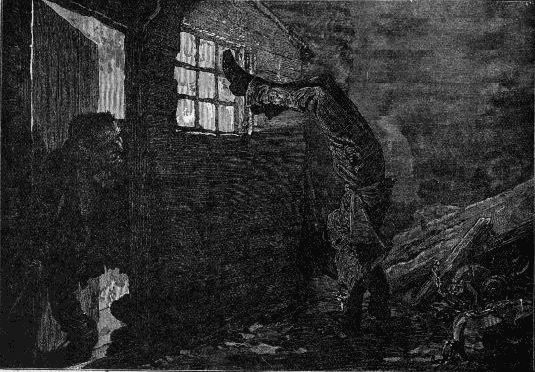 Tom immediately walked upon his hands to the window, and—if the expression be allowable—looked
in with his shoes—Chap. lxvii.
Tom immediately walked upon his hands to the window, and—if the expression be allowable—looked
in with his shoes—Chap. lxvii.
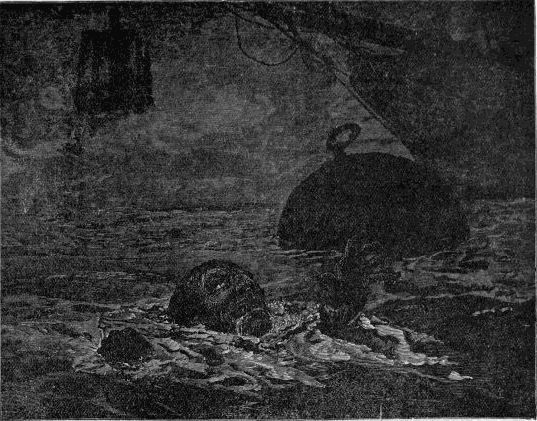
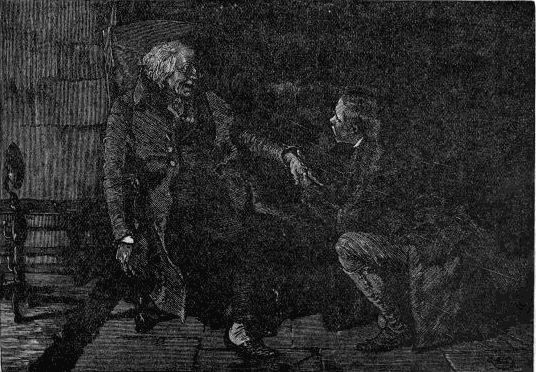 "Master!" he cried, stooping on one knee and catching at his hand. "Dear Master! speak to me!"—Chap. lxxi.
"Master!" he cried, stooping on one knee and catching at his hand. "Dear Master! speak to me!"—Chap. lxxi.
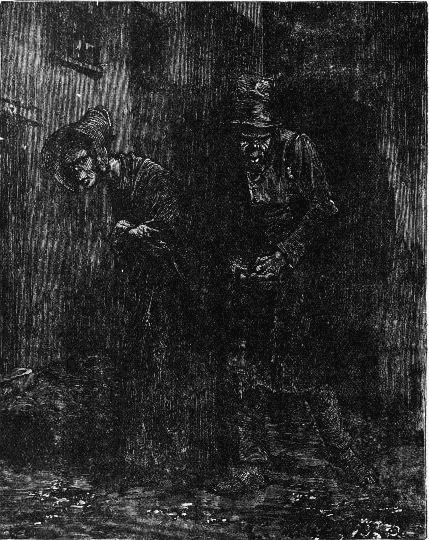 Two wretched people were more than once observed to crawl at dusk from the
inmost recesses of St. Giles's—Chap. lxxiii.
Two wretched people were more than once observed to crawl at dusk from the
inmost recesses of St. Giles's—Chap. lxxiii.
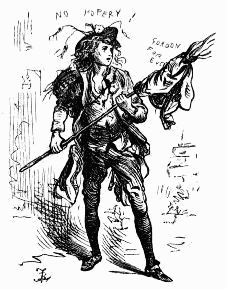
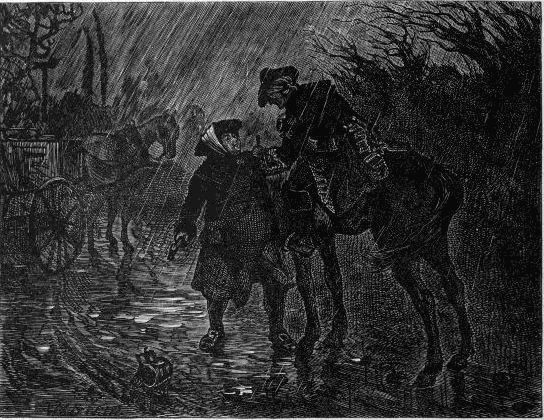
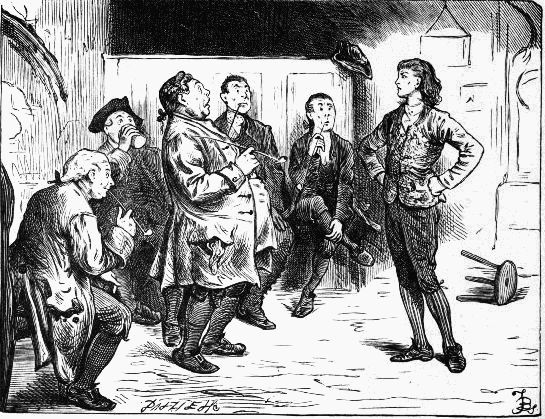 "Does the boy know what he's a-saying of!" cried the astonished John Willett—Chap. iii.
"Does the boy know what he's a-saying of!" cried the astonished John Willett—Chap. iii.
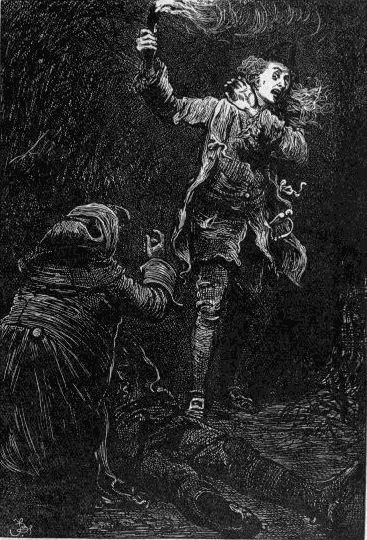 "I can't touch him!" cried the idiot, falling back and shuddering as
with a strong spasm; "he's bloody!"—Chap. iii.
"I can't touch him!" cried the idiot, falling back and shuddering as
with a strong spasm; "he's bloody!"—Chap. iii.
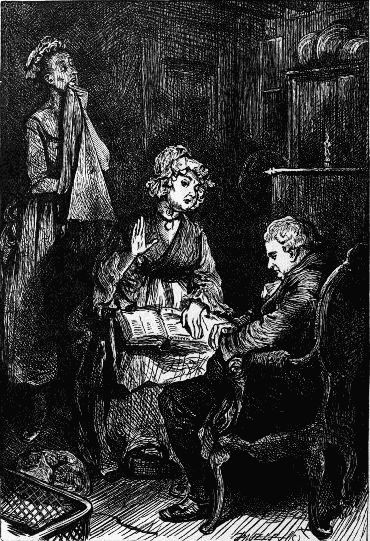 "If I am ever," said Mrs. V.,—not scolding, but in a sort of monotonous
remonstrance—"in spirits, if i am ever cheerful, if I am ever more
than usually disposed to be talkative and comfortable, this is the
way I am treated"—Chap. vii.
"If I am ever," said Mrs. V.,—not scolding, but in a sort of monotonous
remonstrance—"in spirits, if i am ever cheerful, if I am ever more
than usually disposed to be talkative and comfortable, this is the
way I am treated"—Chap. vii.
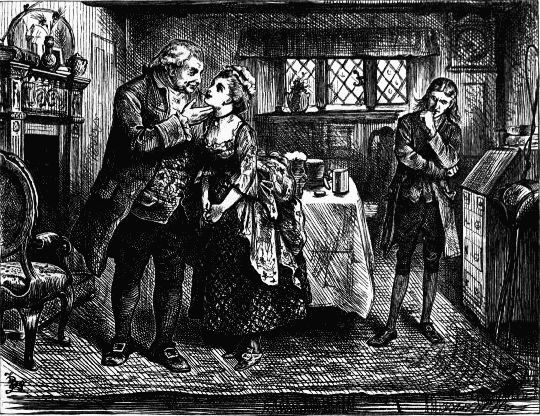
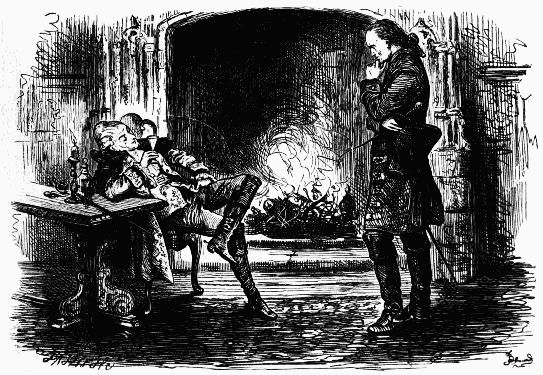 "Chester," said Mr. Haredale after a short silence, during which he had eyed his smiling face from
time to time intently, "you have the head and heart of an evil spirit in all matters of deception"—Chap. xii.
"Chester," said Mr. Haredale after a short silence, during which he had eyed his smiling face from
time to time intently, "you have the head and heart of an evil spirit in all matters of deception"—Chap. xii.
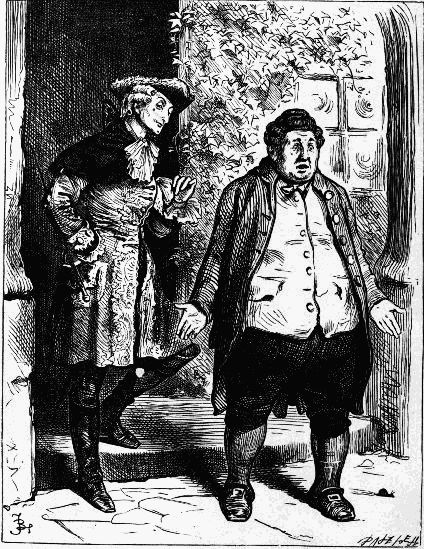 "He melts, I think. He goes like a drop of froth. You look at him, and there
he is. You look at him again, and—there he isn't"—Chap. x.
"He melts, I think. He goes like a drop of froth. You look at him, and there
he is. You look at him again, and—there he isn't"—Chap. x.
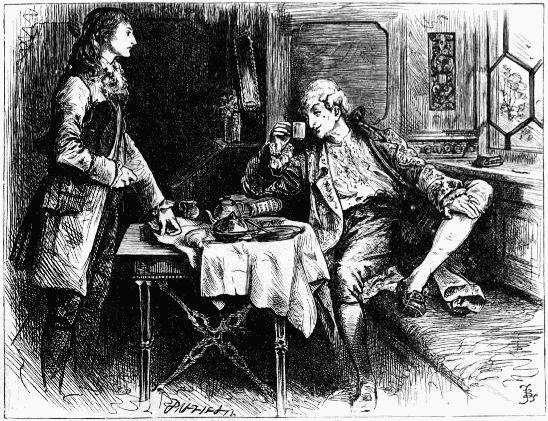
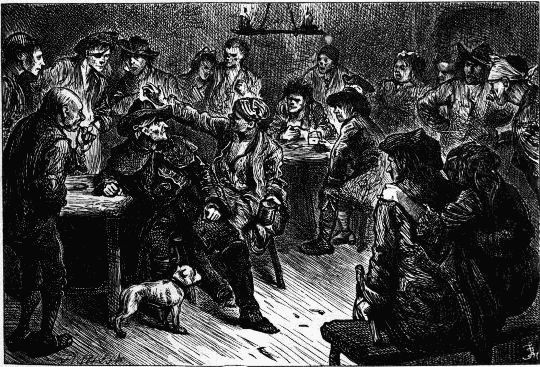 "Come, come, master," cried the fellow, urged on by the looks of his comrades, and slapping him on the
shoulder; "Be more companionable and communicative. Be more the gentleman in this good company"—Chap. xvi.
"Come, come, master," cried the fellow, urged on by the looks of his comrades, and slapping him on the
shoulder; "Be more companionable and communicative. Be more the gentleman in this good company"—Chap. xvi.
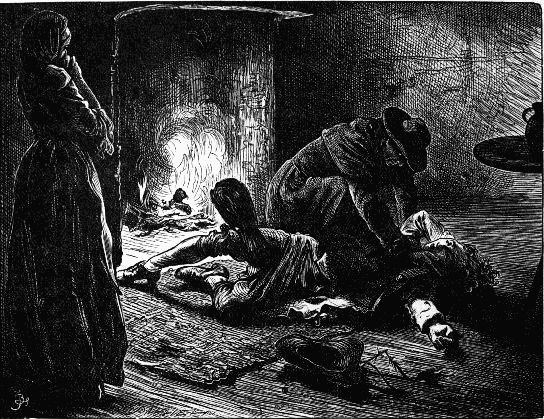
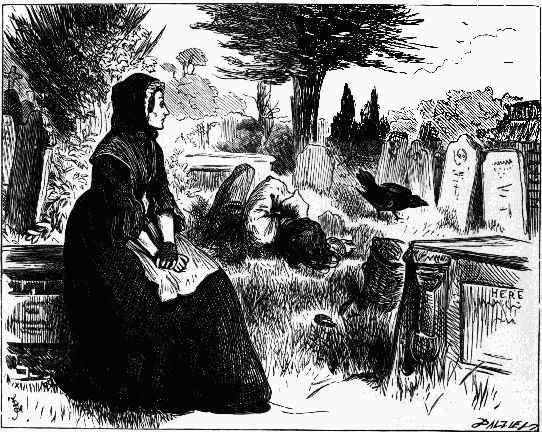 She sat here, thoughtful and apart, until their time was out—Chap. xxv.
She sat here, thoughtful and apart, until their time was out—Chap. xxv.
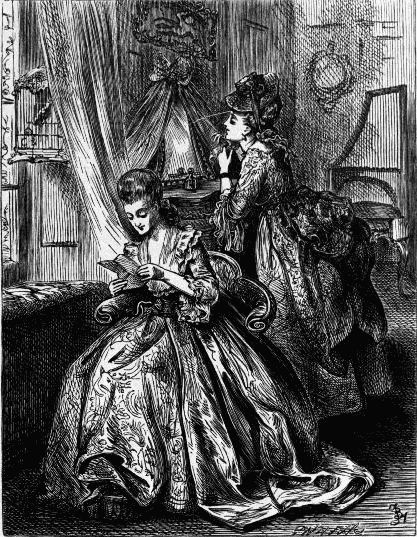 Emma Haredale and Dolly Varden—Chap. xx.
Emma Haredale and Dolly Varden—Chap. xx.
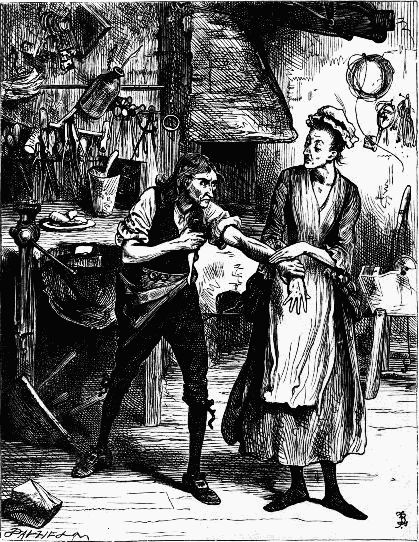 "Huff or no huff," said Mr. Tappertit, detaining her by the wrist. "What do
you mean, Jezebel! what were you going to say! Answer me!"—Chap. xxii.
"Huff or no huff," said Mr. Tappertit, detaining her by the wrist. "What do
you mean, Jezebel! what were you going to say! Answer me!"—Chap. xxii.
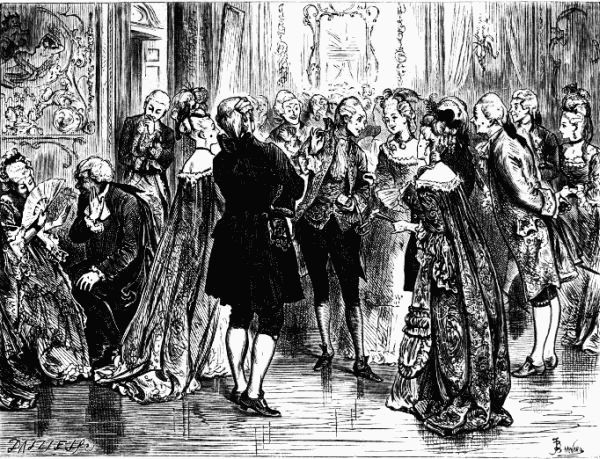 How the accomplished gentleman spent the evening in the midst of a dazzling and brilliant circle—Chap. xxiv.
How the accomplished gentleman spent the evening in the midst of a dazzling and brilliant circle—Chap. xxiv.
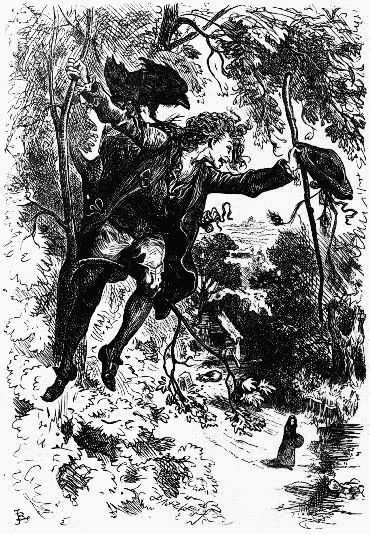 Now he would call to her from the topmost branch of some high tree
by the roadside—Chap. xxv.
Now he would call to her from the topmost branch of some high tree
by the roadside—Chap. xxv.
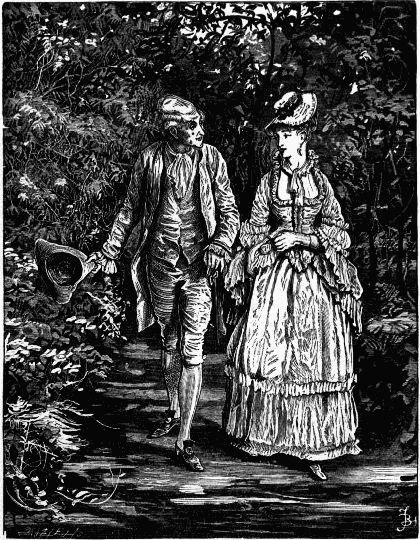 "I beg pardon—do I address Miss Haredale!"—Chap. xxix.
"I beg pardon—do I address Miss Haredale!"—Chap. xxix.
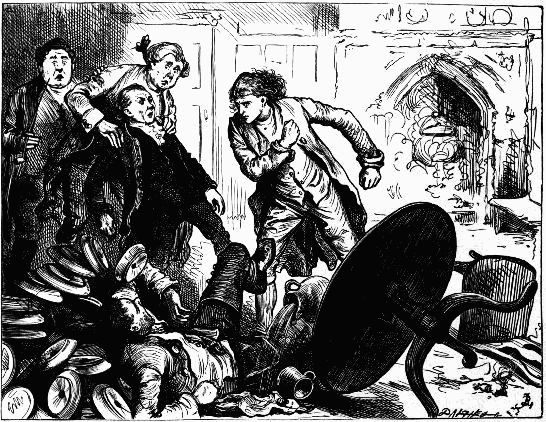
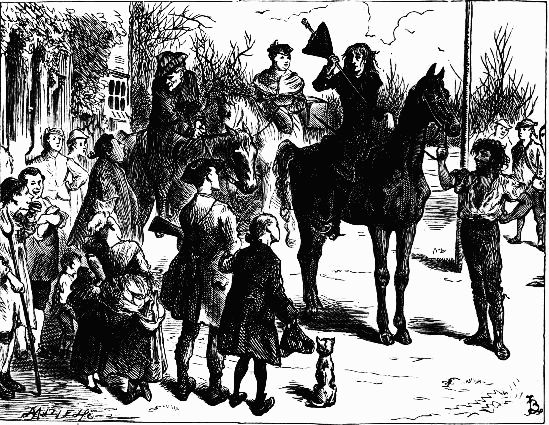 Lord George Gordon leaving the Maypole—Chap. xxxvii.
Lord George Gordon leaving the Maypole—Chap. xxxvii.
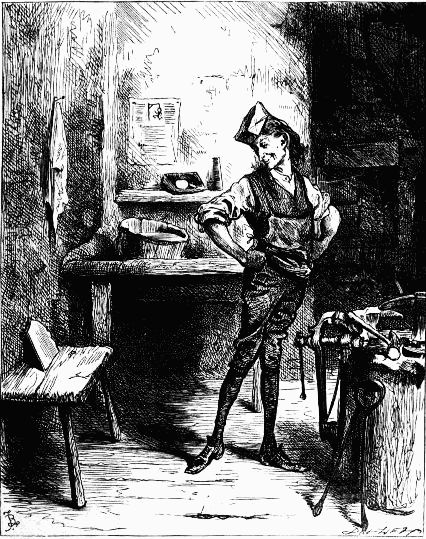 "If they're a dream," said Sim, "let sculptures have such wisions, and chisel'em
out when they wake. This is reality. Sleep has no such limbs as them"—Chap. xxxi.
"If they're a dream," said Sim, "let sculptures have such wisions, and chisel'em
out when they wake. This is reality. Sleep has no such limbs as them"—Chap. xxxi.
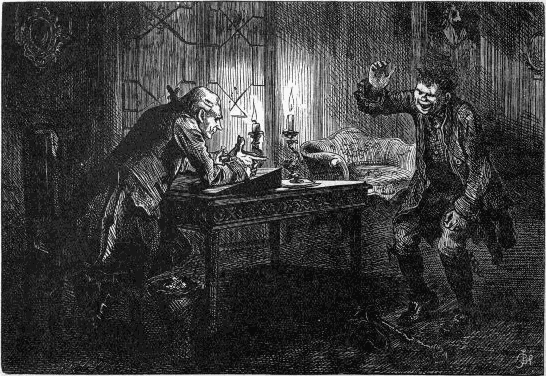
 A nice trio—Chap. xxxix.
A nice trio—Chap. xxxix.
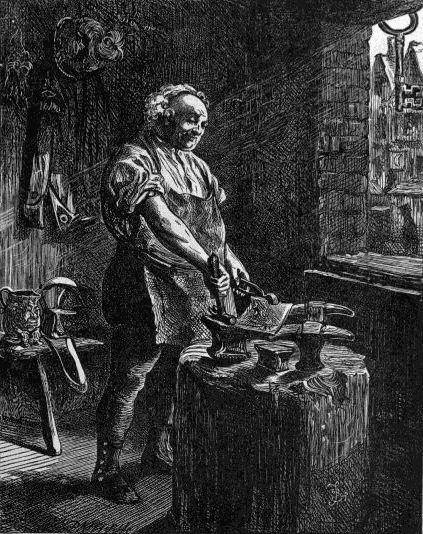 Gabriel Varden—Chap. xii.
Gabriel Varden—Chap. xii.
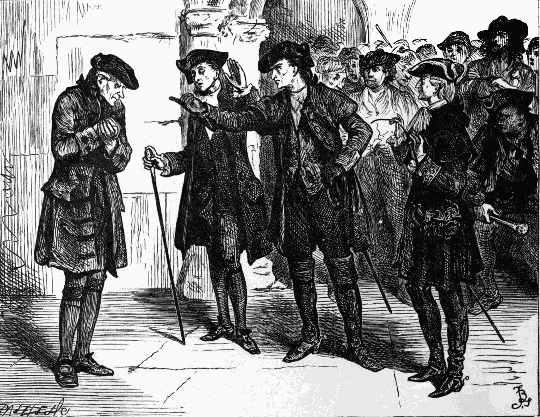
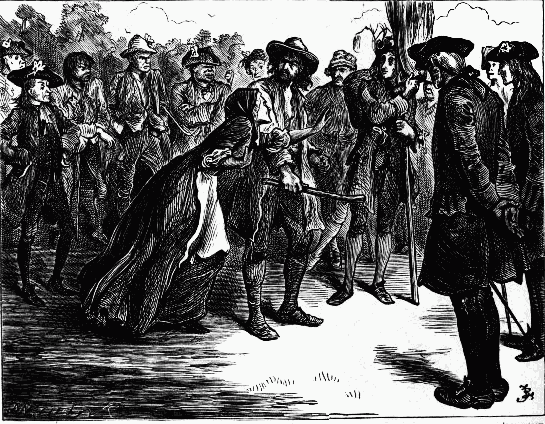 "In the name of God no!" shrieked the widow, darting forward. "Barnaby—my lord—see—he'll come
back—Barnaby—Barnaby!"—Chap. xlviii.
"In the name of God no!" shrieked the widow, darting forward. "Barnaby—my lord—see—he'll come
back—Barnaby—Barnaby!"—Chap. xlviii.
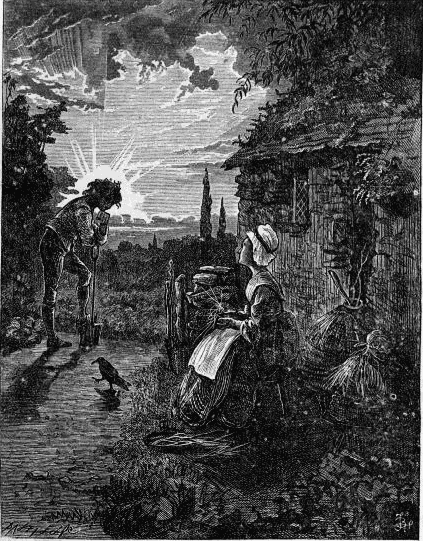 "A brave evening, mother! If we had chinking in our pockets but a few specks
of that gold which is piled up yonder in the sky, we should be rich for life"—Chap. xlv.
"A brave evening, mother! If we had chinking in our pockets but a few specks
of that gold which is piled up yonder in the sky, we should be rich for life"—Chap. xlv.
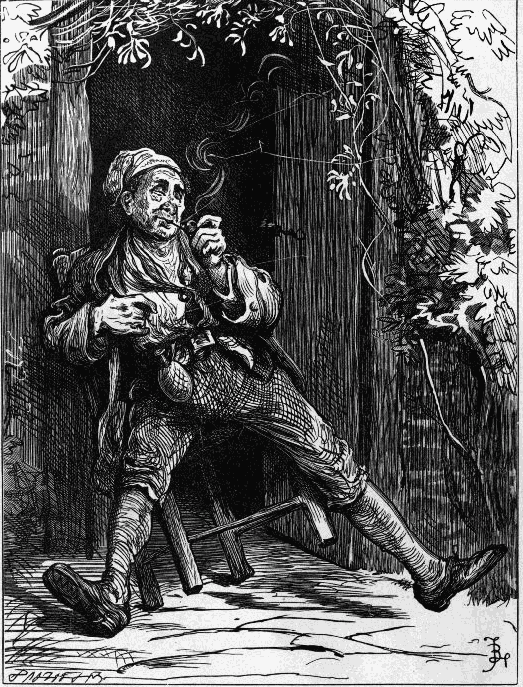 Then seating himself under a spreading honeysuckle, and stretching his legs across the threshold
so that no person could pass in or out without his knowledge, he took from his pocket a pipe, flint,
steel, and tinder-box, and began to smoke—Chap. xlv.
Then seating himself under a spreading honeysuckle, and stretching his legs across the threshold
so that no person could pass in or out without his knowledge, he took from his pocket a pipe, flint,
steel, and tinder-box, and began to smoke—Chap. xlv.
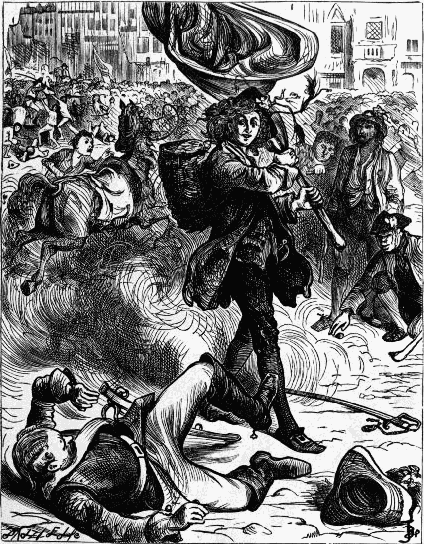 The pole swept the air above the people's heads, and the man's saddle was empty
in an instant—Chap. xlix.
The pole swept the air above the people's heads, and the man's saddle was empty
in an instant—Chap. xlix.
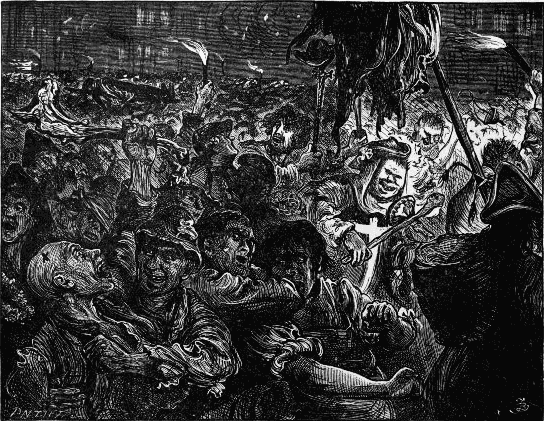
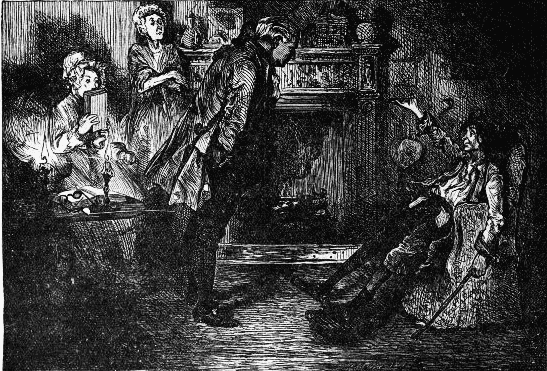 "You have been drinking," said the locksmith—Chap. li.
"You have been drinking," said the locksmith—Chap. li.
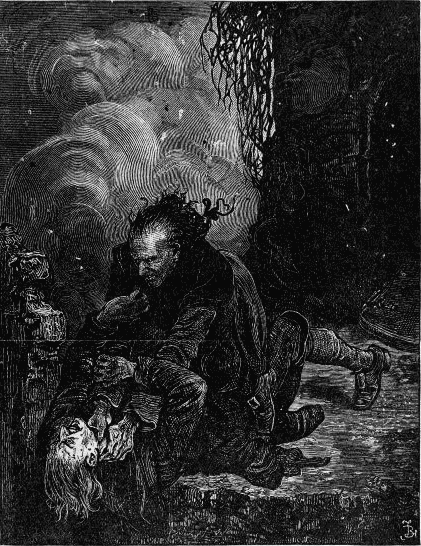 Flung itself upon the foremost one, knelt down upon its breast, and clutched
its throat with both hands—Chap. lvi.
Flung itself upon the foremost one, knelt down upon its breast, and clutched
its throat with both hands—Chap. lvi.
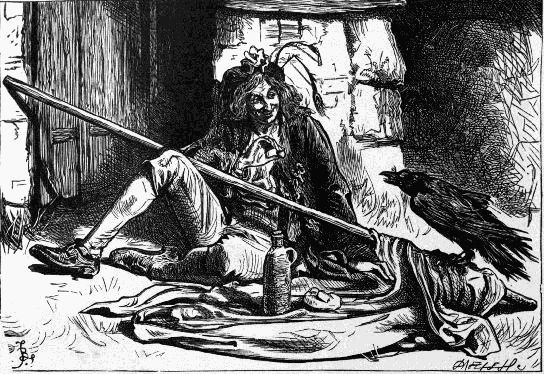
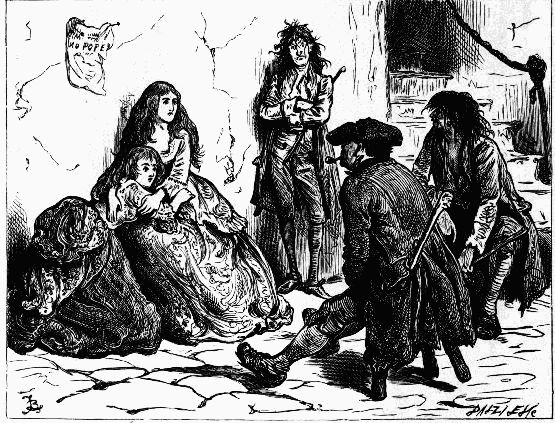 Looked moodily on as she flew to Miss Haredale's side—Chap. lix.
Looked moodily on as she flew to Miss Haredale's side—Chap. lix.
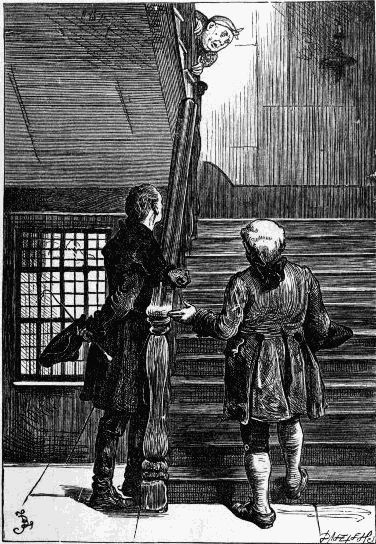 "Will you come?"
"Will you come?"
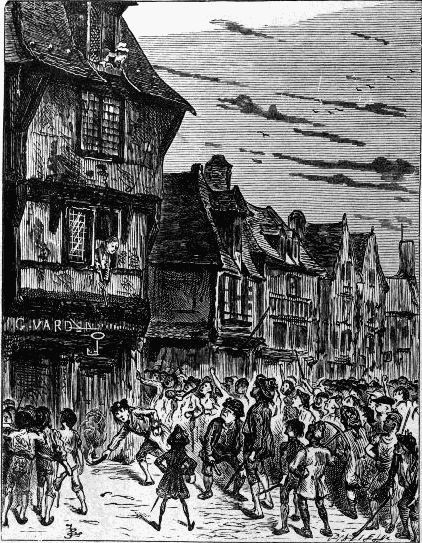 "Stop!" cried the locksmith, in a voice that made them falter—presenting, as
he spoke, a gun. "Let an old man do that. You can spare him better"—Chap. lxiii.
"Stop!" cried the locksmith, in a voice that made them falter—presenting, as
he spoke, a gun. "Let an old man do that. You can spare him better"—Chap. lxiii.
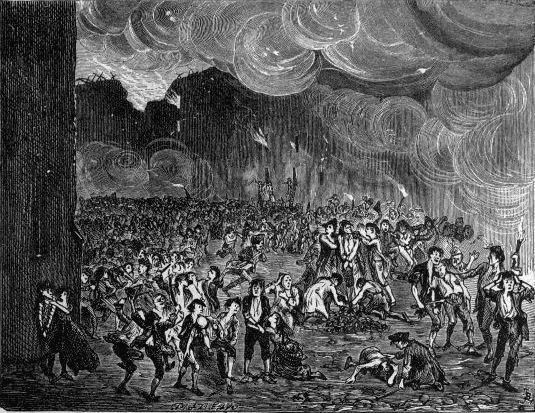
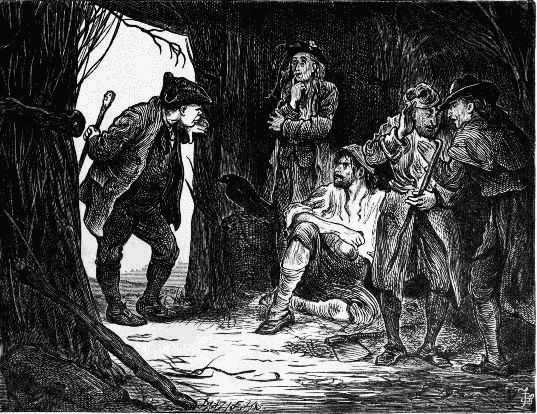 "No offence, no offence," said that personage in a conciliatory tone, as Hugh stopped in his draught
and eyed him, with no pleasant look from head to foot—Chap. lxix.
"No offence, no offence," said that personage in a conciliatory tone, as Hugh stopped in his draught
and eyed him, with no pleasant look from head to foot—Chap. lxix.
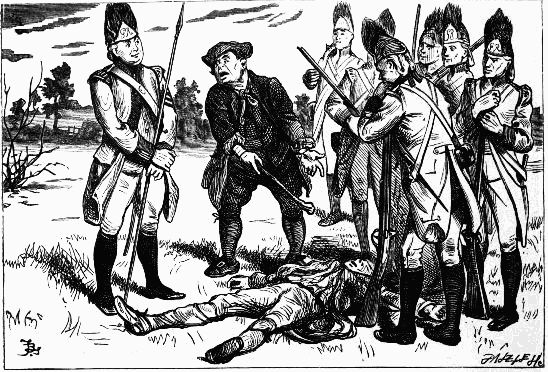
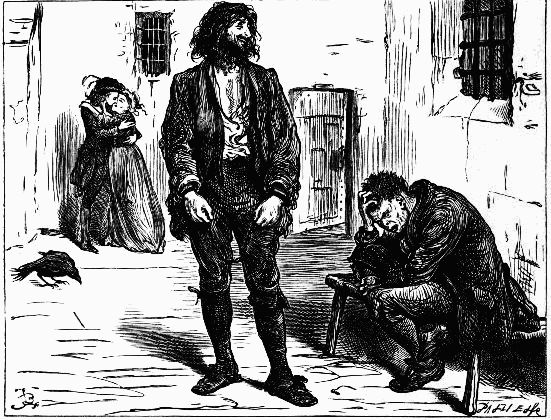 "You ought to be the best instead of the worst," said Hugh, stopping before him. "Ha, ha, ha! see the
hangman when it comes home to him!"—Chap. lxxvi.
"You ought to be the best instead of the worst," said Hugh, stopping before him. "Ha, ha, ha! see the
hangman when it comes home to him!"—Chap. lxxvi.
 "I shall bless your name," sobbed the locksmith's little daughter, "as long
as I live"—Chap. lxxii.
"I shall bless your name," sobbed the locksmith's little daughter, "as long
as I live"—Chap. lxxii.
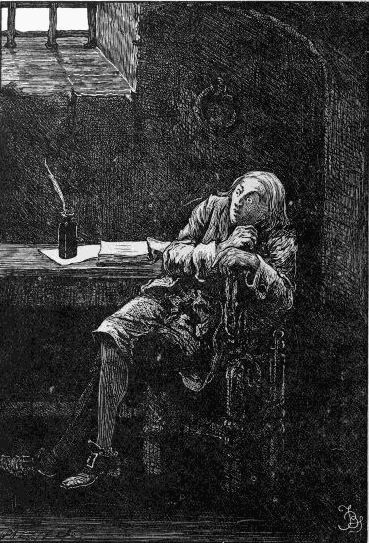 Sat the unhappy author of all—Lord George Gordon—Chap. lxxiii.
Sat the unhappy author of all—Lord George Gordon—Chap. lxxiii.
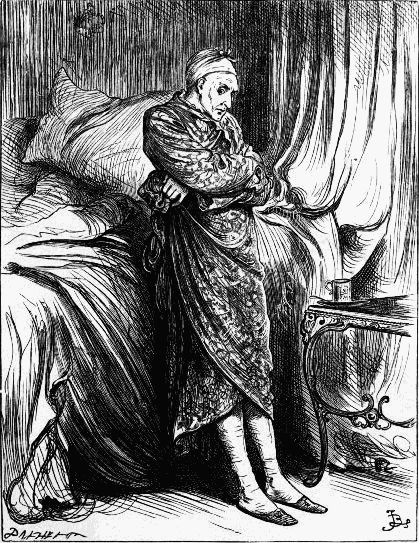 He rose from his bed with a heavy sigh, and wrapped himself in his morning
gown. "So she kept her word," he said, "and was constant to her threat!"—Chap. lxxv.
He rose from his bed with a heavy sigh, and wrapped himself in his morning
gown. "So she kept her word," he said, "and was constant to her threat!"—Chap. lxxv.
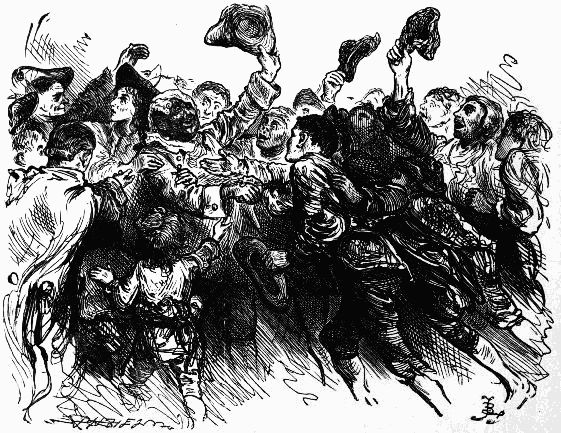
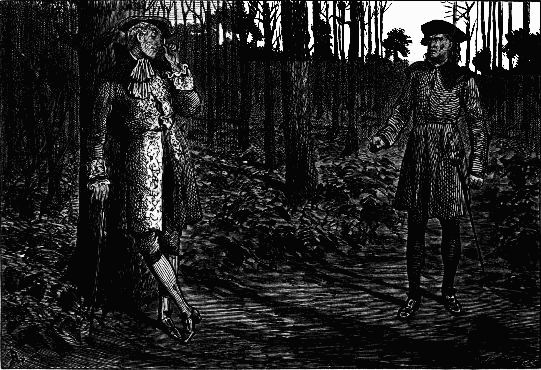 Reclining, in an easy attitude, with his back against a tree, and contemplating the ruin with an
expression of pleasure—Chap. lxxxi.
Reclining, in an easy attitude, with his back against a tree, and contemplating the ruin with an
expression of pleasure—Chap. lxxxi.
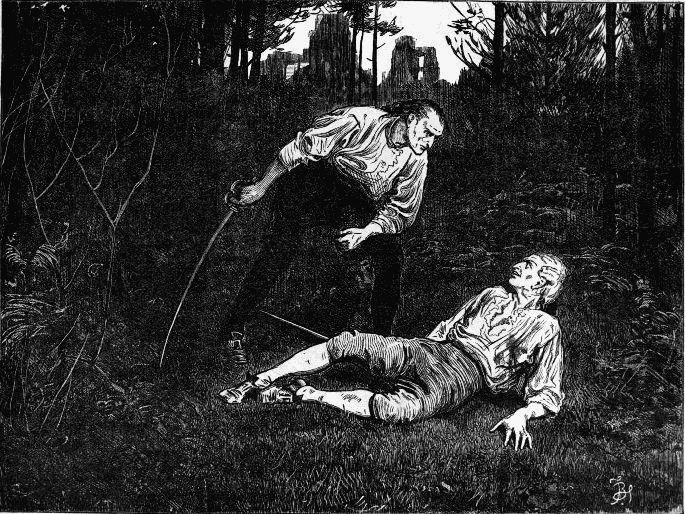
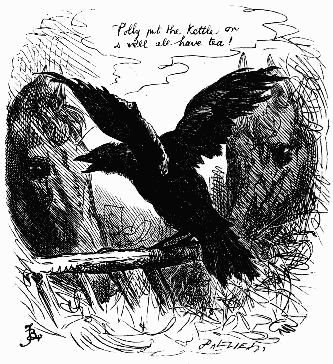 Grip the Raven—Chap. the last.
Grip the Raven—Chap. the last.
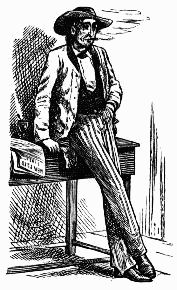
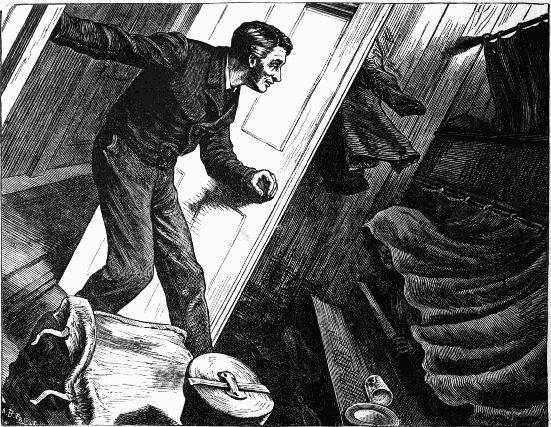
.
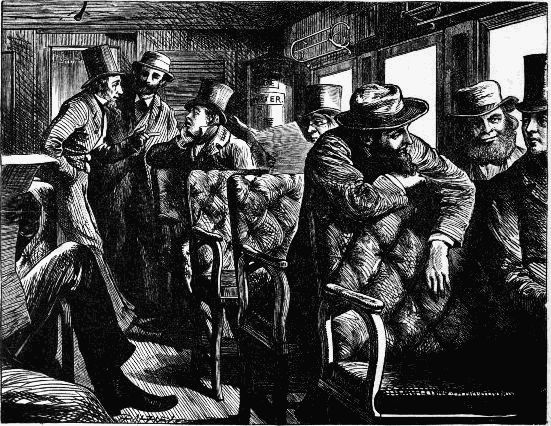 Railway dialogue—Chap. v.
Railway dialogue—Chap. v.
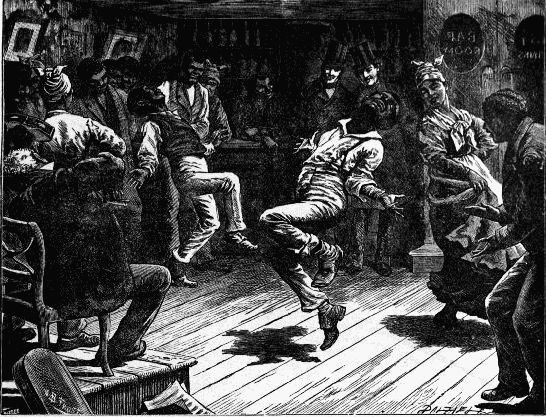
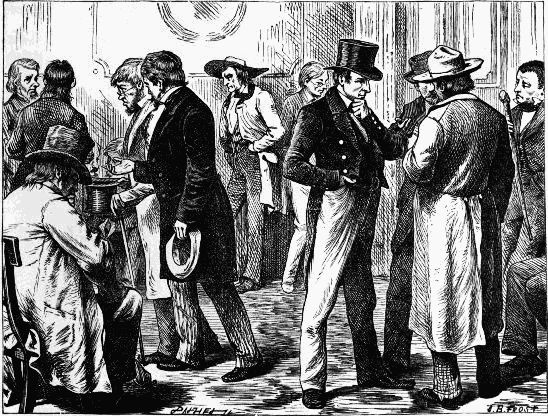 In the White House—Chap. vii
In the White House—Chap. vii
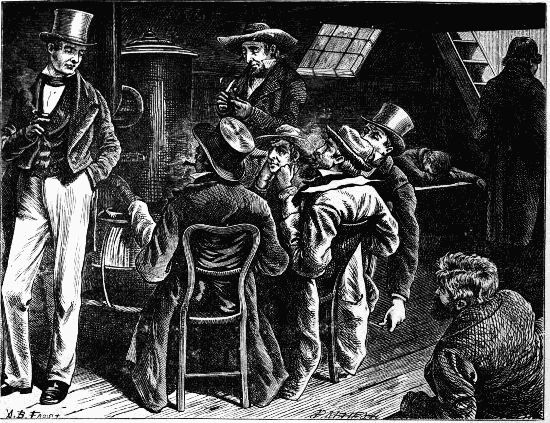
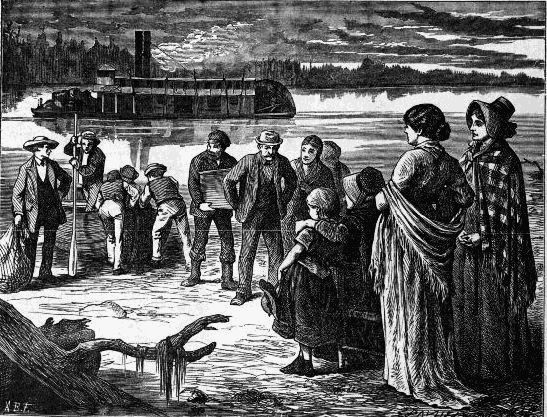 Emigrants—Chap. xi.
Emigrants—Chap. xi.
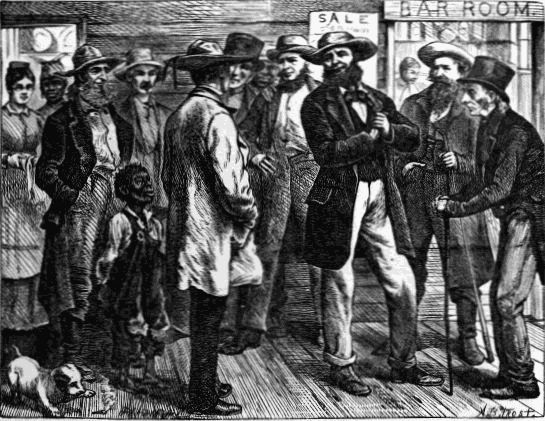
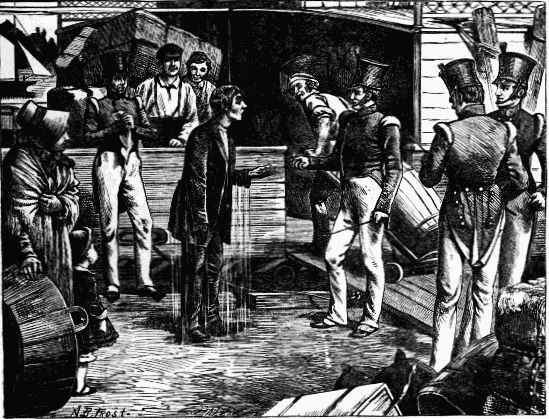 And having his wet pipe presented to him, etc.—Chap. xv.
And having his wet pipe presented to him, etc.—Chap. xv.
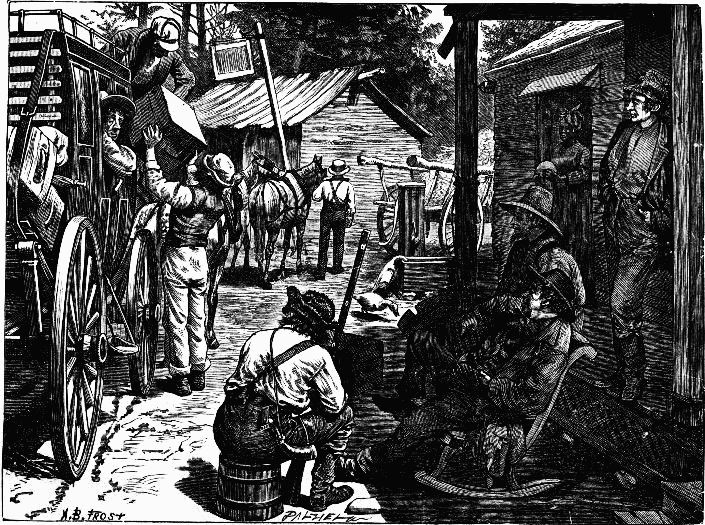 As the coach stops a gentleman in a straw hat looks out of the window—Chap. xiv.
As the coach stops a gentleman in a straw hat looks out of the window—Chap. xiv.
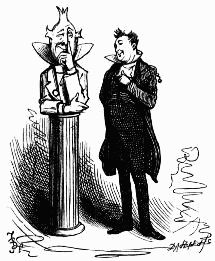
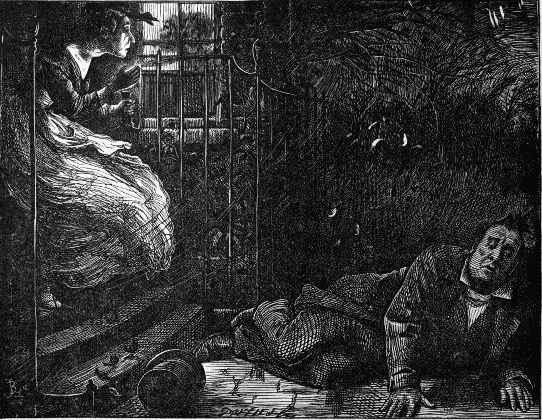
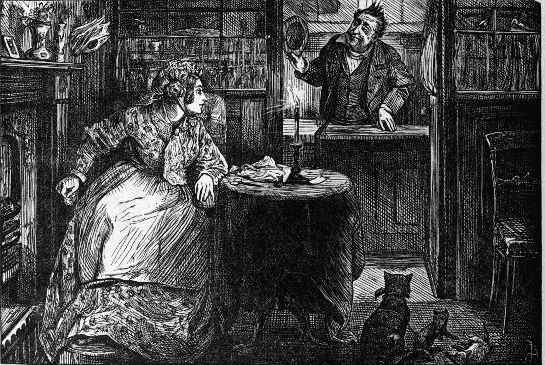 Mr. Pecksniff, looking sweetly over the half-door of the par, and into the vista of snug privacy
beyond, murmured, "Good evening, Mrs. Lupin"—Chap. iii.
Mr. Pecksniff, looking sweetly over the half-door of the par, and into the vista of snug privacy
beyond, murmured, "Good evening, Mrs. Lupin"—Chap. iii.
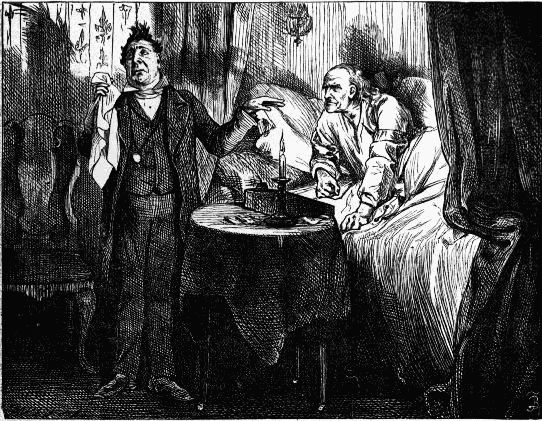
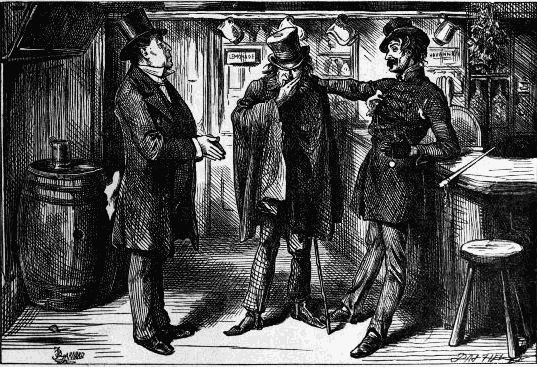 Mr. Pecksniff is introduced to a relative by Mr. Tigg—Chap. iv.
Mr. Pecksniff is introduced to a relative by Mr. Tigg—Chap. iv.
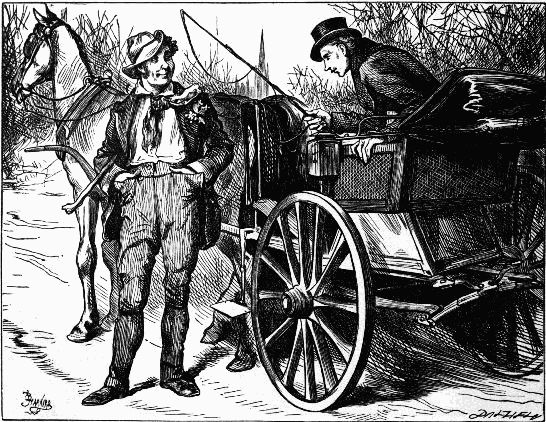
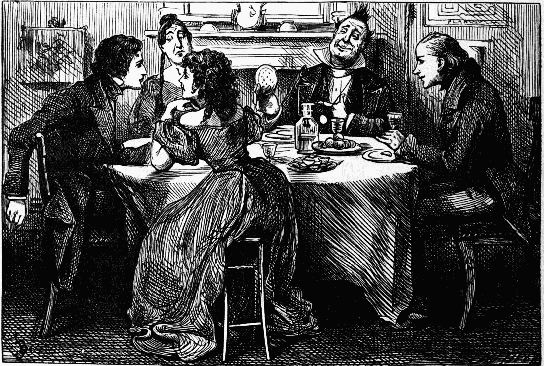 "Let us be merry." Here he took a captain's biscuit—Chap. v.
"Let us be merry." Here he took a captain's biscuit—Chap. v.
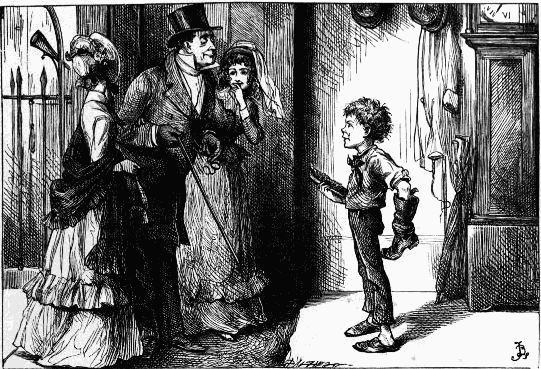
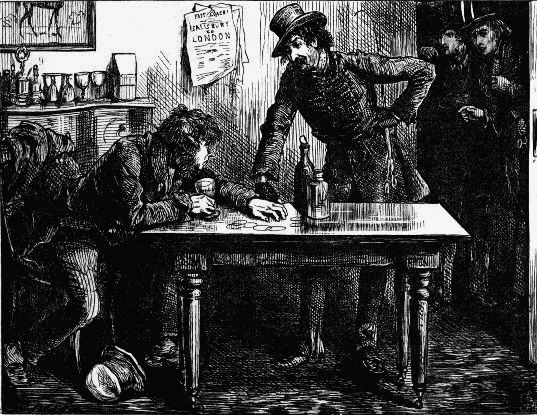 "Oh Chiv, Chiv," murmured Mr. Tigg, "you have a nobly independent nature, Chiv"—Chap. vii.
"Oh Chiv, Chiv," murmured Mr. Tigg, "you have a nobly independent nature, Chiv"—Chap. vii.
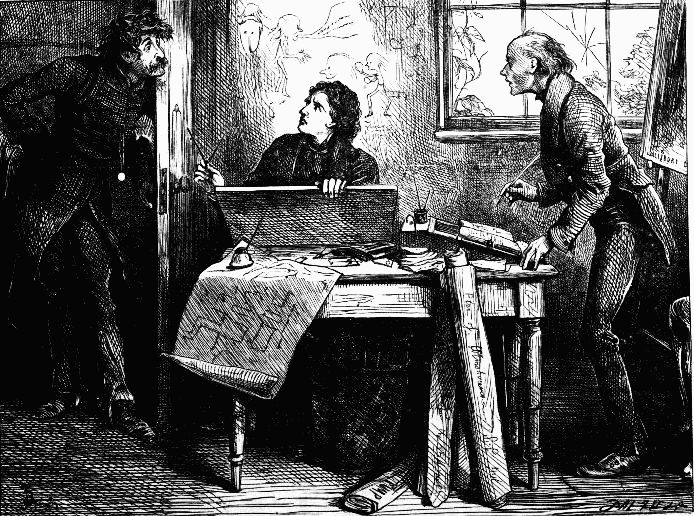 "You're a pair of Whittingtons, gents, without the cat, . . . My name is Tigg; how do you do?"—Chap. vii.
"You're a pair of Whittingtons, gents, without the cat, . . . My name is Tigg; how do you do?"—Chap. vii.
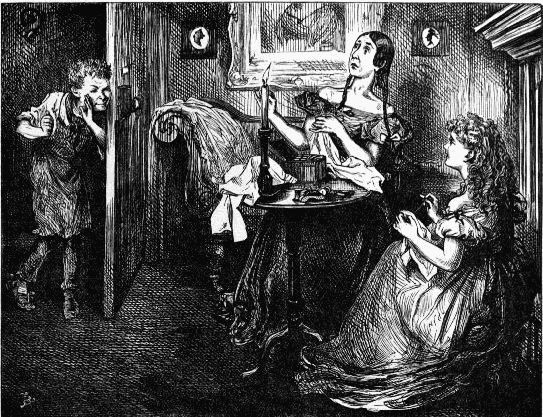
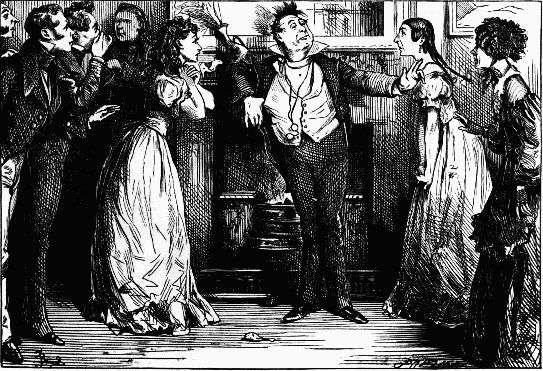 "Do not repine, my friends," said Mr. Pecksniff, tenderly. "Do not weep for me. It is chronic"—Chap. ix.
"Do not repine, my friends," said Mr. Pecksniff, tenderly. "Do not weep for me. It is chronic"—Chap. ix.
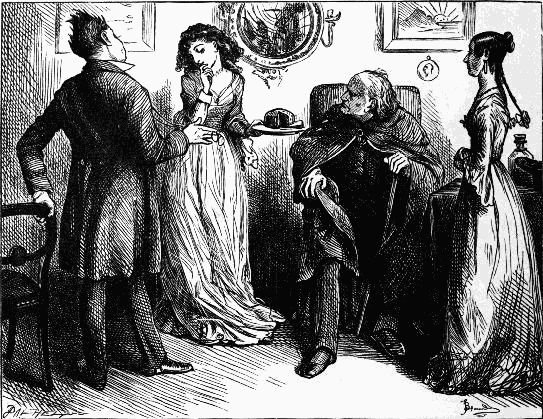
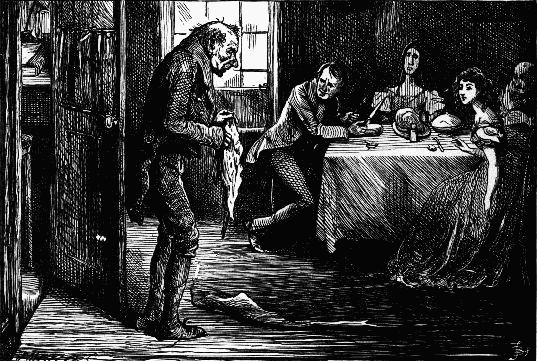 The door of a small glass office, which was partitioned off from the rest of the room, was slowly
opened, and a little blear-eyed, weazen-faced, ancient man came creeping out.—Chap. xi.
The door of a small glass office, which was partitioned off from the rest of the room, was slowly
opened, and a little blear-eyed, weazen-faced, ancient man came creeping out.—Chap. xi.
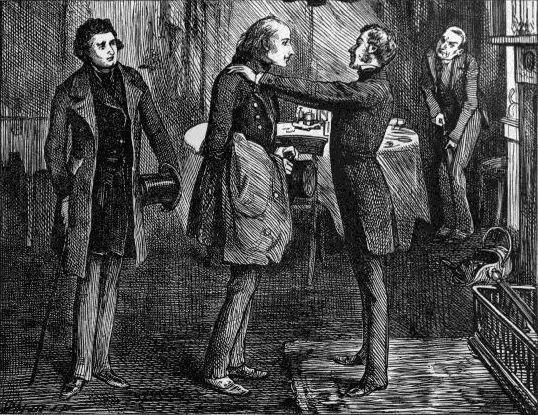
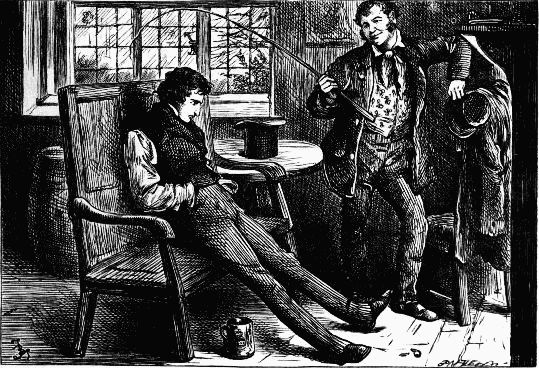 "I'm going up," observed the driver; "Hounslow, ten miles this side London"—Chap. xiii.
"I'm going up," observed the driver; "Hounslow, ten miles this side London"—Chap. xiii.
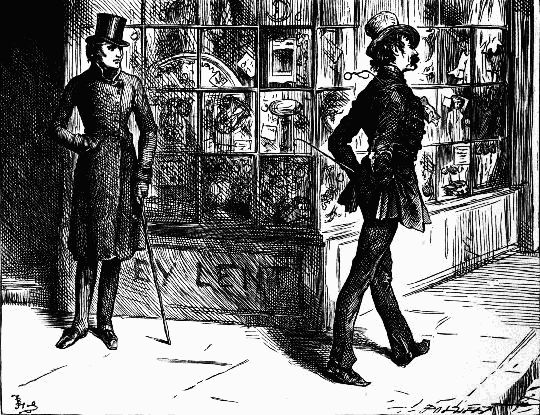
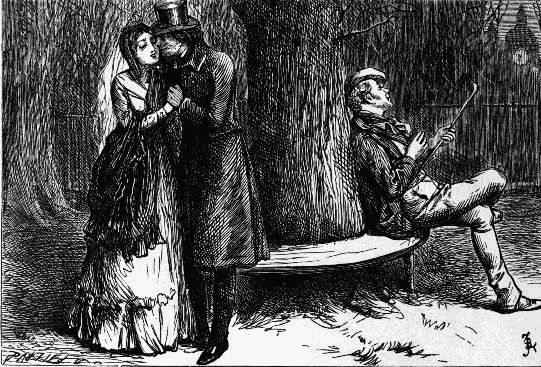 Seeing that there was no one near, and that Mark was still intent upon the fog, he not only
looked at her lips, but kissed them into the bargain—Chap. xiv.
Seeing that there was no one near, and that Mark was still intent upon the fog, he not only
looked at her lips, but kissed them into the bargain—Chap. xiv.
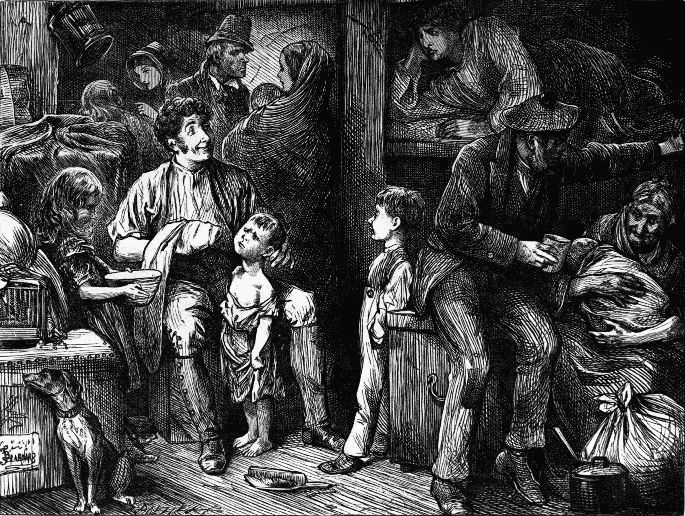 On board the "Screw"—Chap. xv.
On board the "Screw"—Chap. xv.
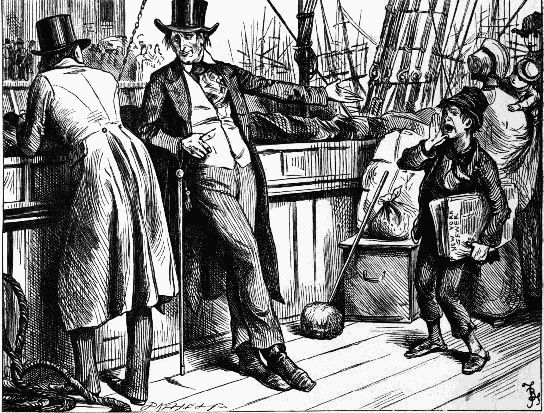
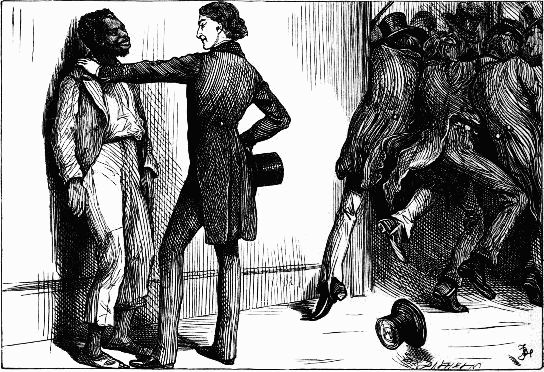 "You're the pleasantest fellow I have seen yet," said Martin, clapping him on the back, "and
give me a better appetite than bitters"—Chap. xvi.
"You're the pleasantest fellow I have seen yet," said Martin, clapping him on the back, "and
give me a better appetite than bitters"—Chap. xvi.
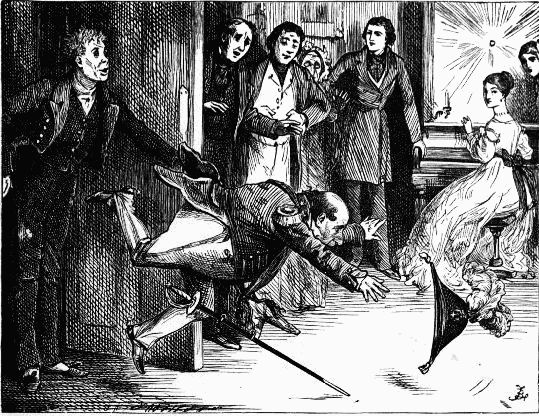
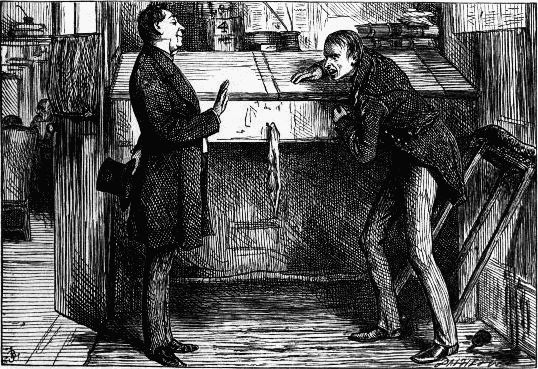 "Matter!" cried the voice of Mr. Pecksniff, as Pecksniff in the flesh smiled amiably upon him.
"The matter, Mr. Jonas!"—Chap. xviii.
"Matter!" cried the voice of Mr. Pecksniff, as Pecksniff in the flesh smiled amiably upon him.
"The matter, Mr. Jonas!"—Chap. xviii.
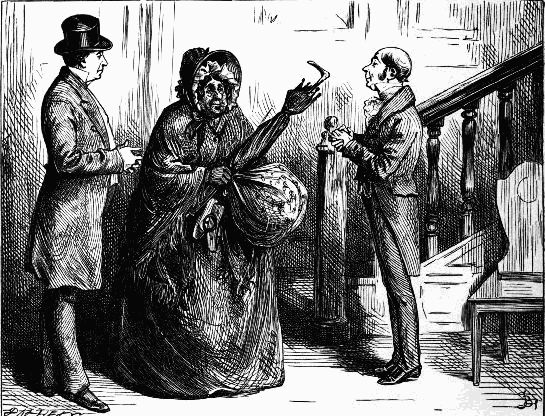
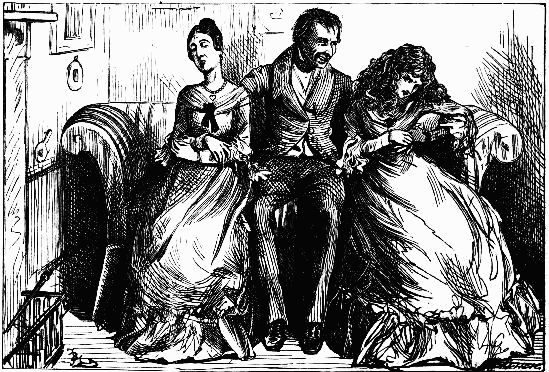 "Oh! I don't mind your pinching," grinned Jonas, "a bit"—Chap. xx.
"Oh! I don't mind your pinching," grinned Jonas, "a bit"—Chap. xx.
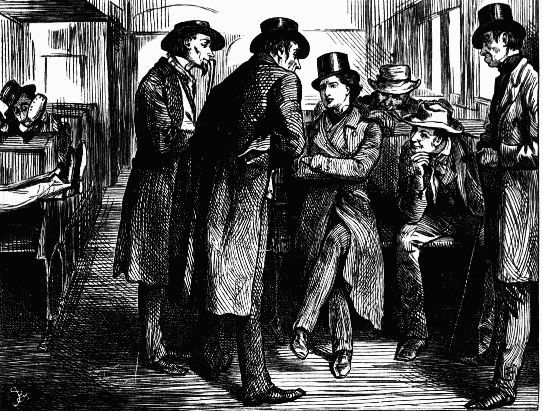
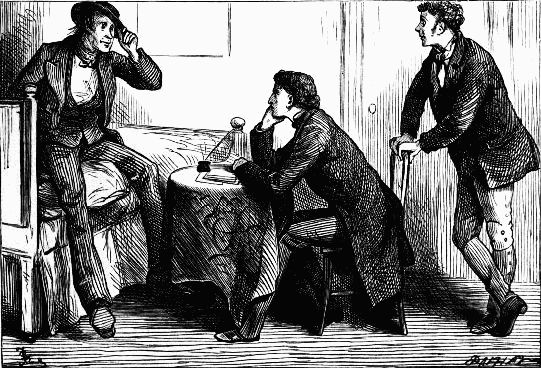 "Well, sir!" said the captain putting his hat a little more on one side, for it was rather tight
in the crown: "You're quite a public man I calc'late"—Chap. xxii.
"Well, sir!" said the captain putting his hat a little more on one side, for it was rather tight
in the crown: "You're quite a public man I calc'late"—Chap. xxii.
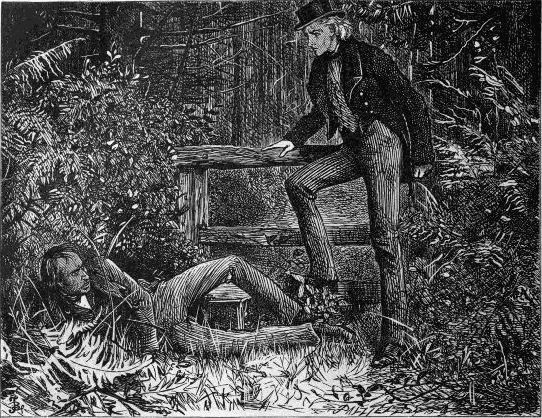
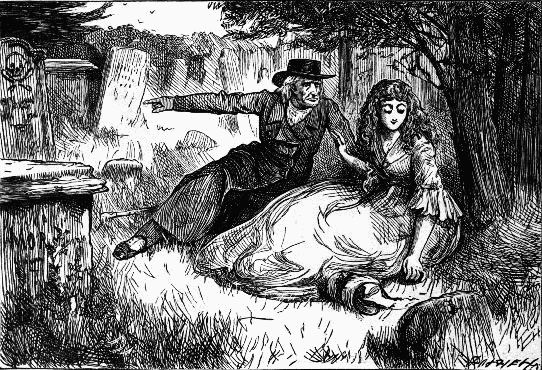 "Look about you," he said, pointing to the graves; "and remember that from your bridal hour to
the day which sees you brought as low as these, and laid in such a bed, there will be no appeal
against him!"—Chap. xxiv.
"Look about you," he said, pointing to the graves; "and remember that from your bridal hour to
the day which sees you brought as low as these, and laid in such a bed, there will be no appeal
against him!"—Chap. xxiv.
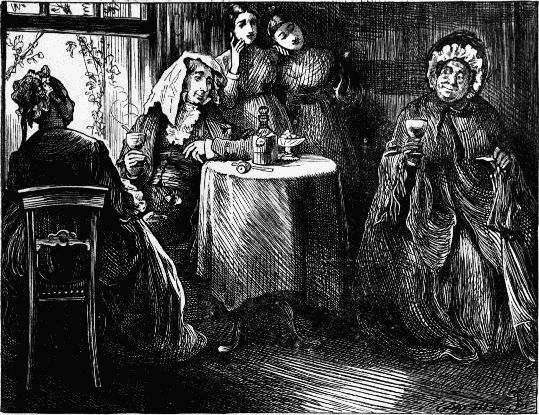
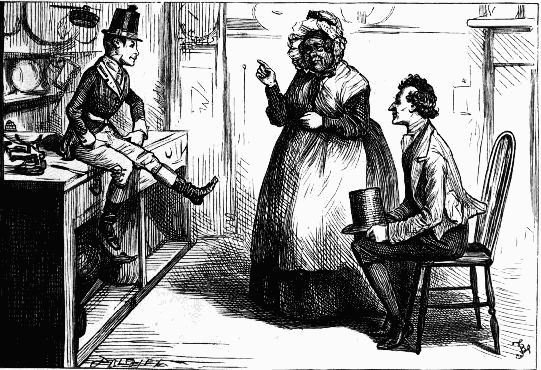 "There's nothin' he don't know; that's my opinion," observed Mrs. Gamp. "All the wickedness
of the world is print to him"—Chap. xxvi.
"There's nothin' he don't know; that's my opinion," observed Mrs. Gamp. "All the wickedness
of the world is print to him"—Chap. xxvi.
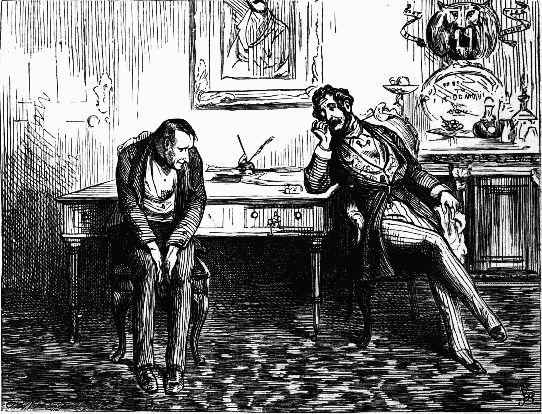
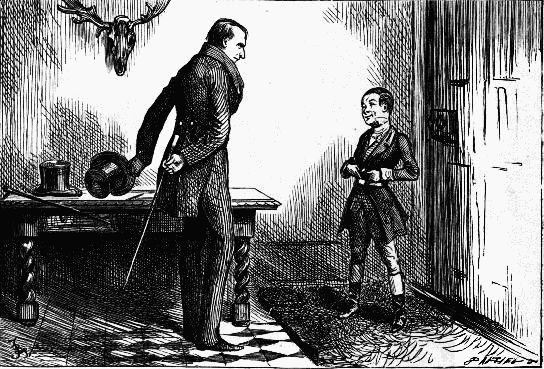 "Times is changed, ain't they! I say, how you've growed!"—Chap. xxviii.
"Times is changed, ain't they! I say, how you've growed!"—Chap. xxviii.
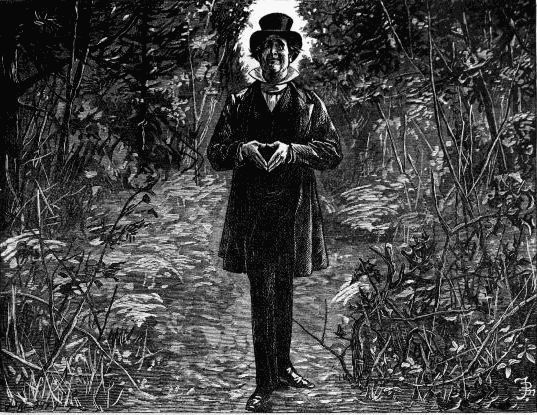
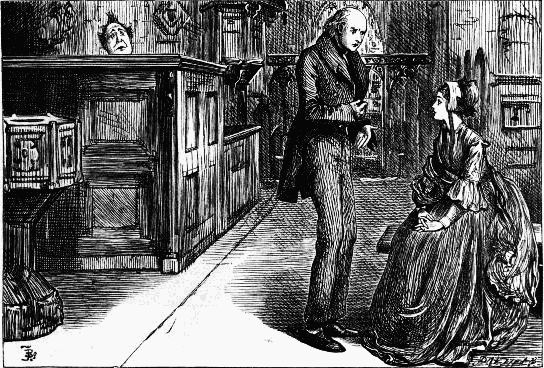 "I say," cried Tom, in great excitement, "He is a scoundrel and a villain! I don't care who he is,
I say he is a double-dyed and most intolerable villain"—Chap. xxxi.
"I say," cried Tom, in great excitement, "He is a scoundrel and a villain! I don't care who he is,
I say he is a double-dyed and most intolerable villain"—Chap. xxxi.
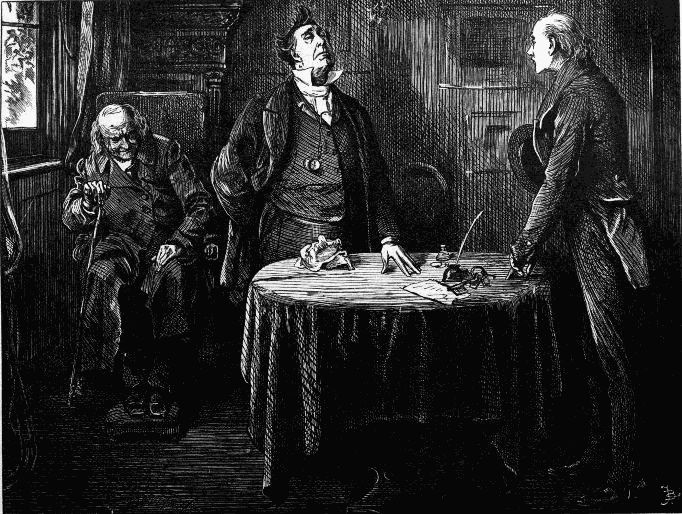 "Mr. Pinch," said Mr. Pecksniff, shaking his head, "Oh, Mr. Pinch! I wonder how you can look me in the face!"—Chap. xxxi.
"Mr. Pinch," said Mr. Pecksniff, shaking his head, "Oh, Mr. Pinch! I wonder how you can look me in the face!"—Chap. xxxi.
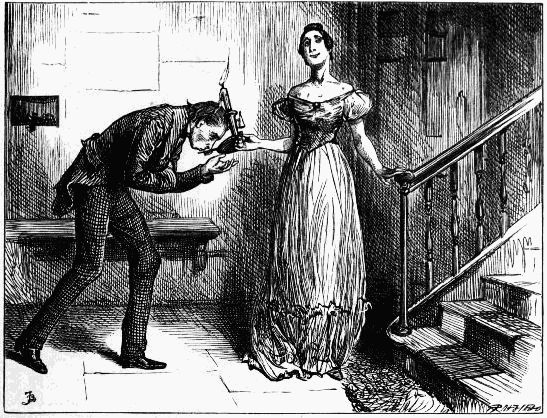
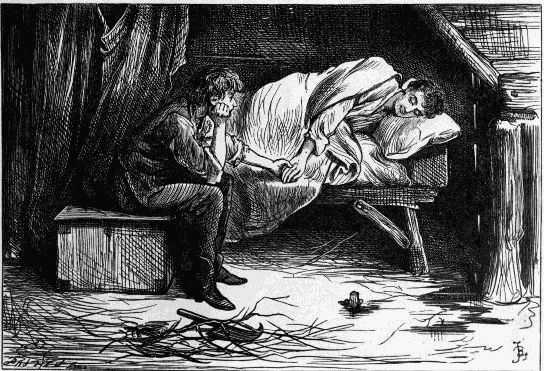 "Jolly"—Chap. xxxiii.
"Jolly"—Chap. xxxiii.
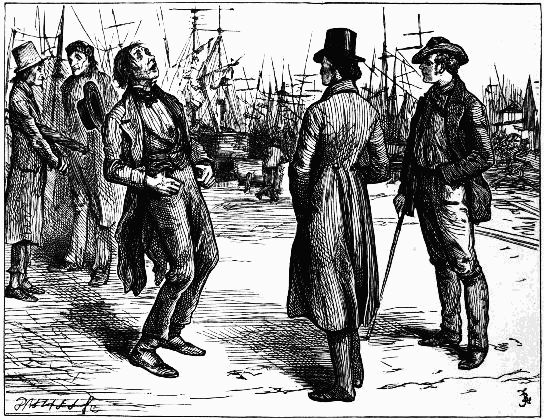
 Mr. Pecksniff, placid, calm, but proud. Honestly proud . . . gently travelling across the disc,
as if he were a figure in a magic lantern—Chap. xxxv.
Mr. Pecksniff, placid, calm, but proud. Honestly proud . . . gently travelling across the disc,
as if he were a figure in a magic lantern—Chap. xxxv.
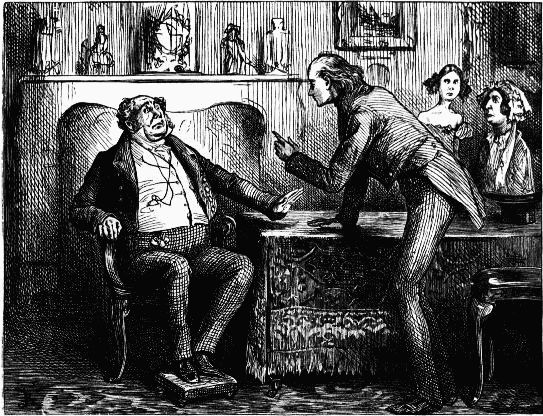
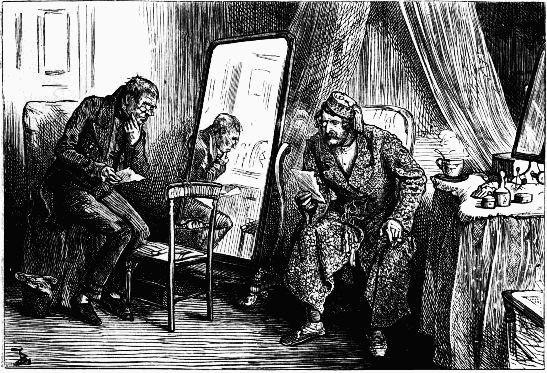 Mr. Nadgett produces the result of his private inquiries—Chap. xxxviii.
Mr. Nadgett produces the result of his private inquiries—Chap. xxxviii.
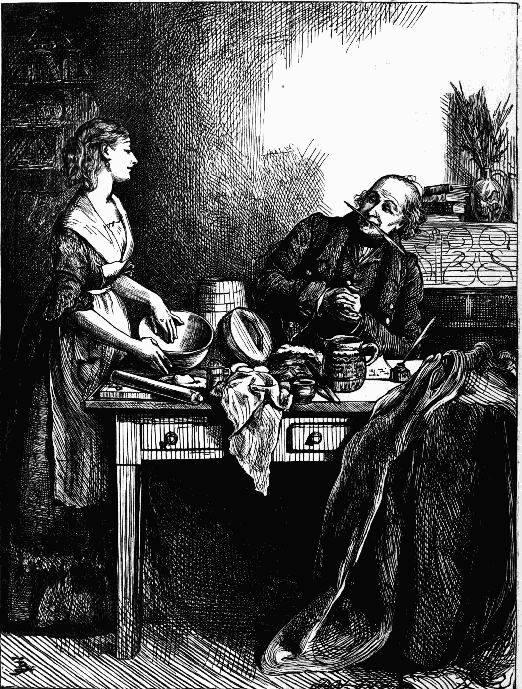 "I am going to begin, Tom. Don't you wonder why I butter the inside of the basin!" said his
busy little sister, "eh, Tom?"—Chap. xxxix.
"I am going to begin, Tom. Don't you wonder why I butter the inside of the basin!" said his
busy little sister, "eh, Tom?"—Chap. xxxix.
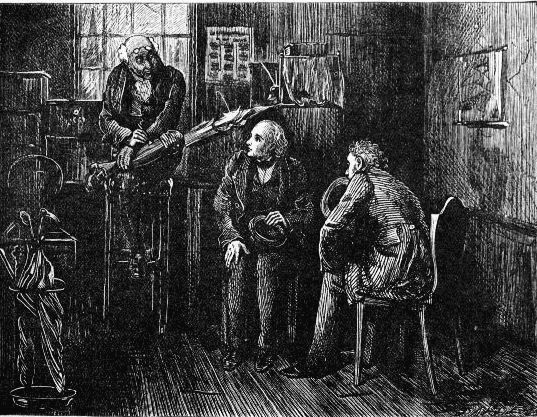
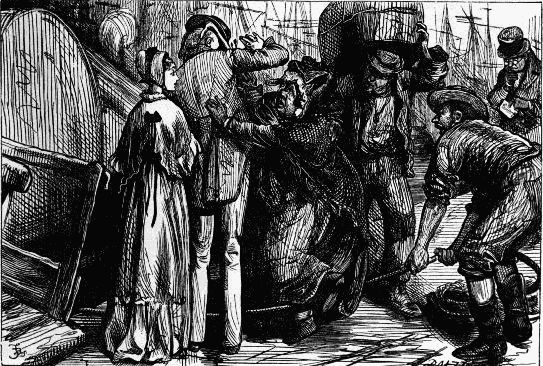 Mrs. Gamp creates a sensation with her umbrella—Chap. xl.
Mrs. Gamp creates a sensation with her umbrella—Chap. xl.
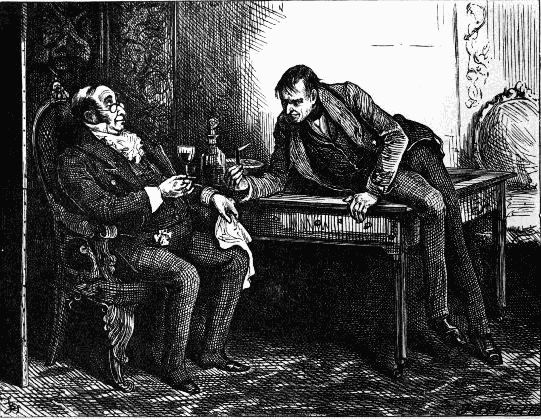
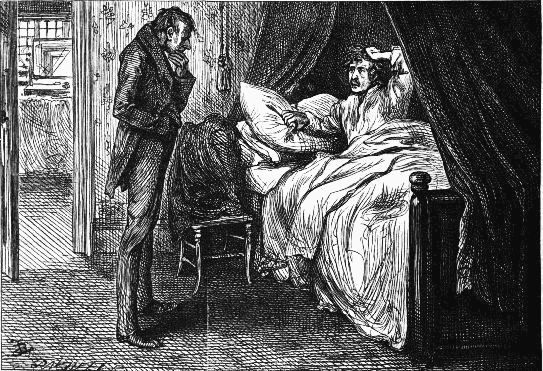 Awoke to find Jonas standing at his bedside watching him. And that very door wide open.—Chap. xlii.
Awoke to find Jonas standing at his bedside watching him. And that very door wide open.—Chap. xlii.
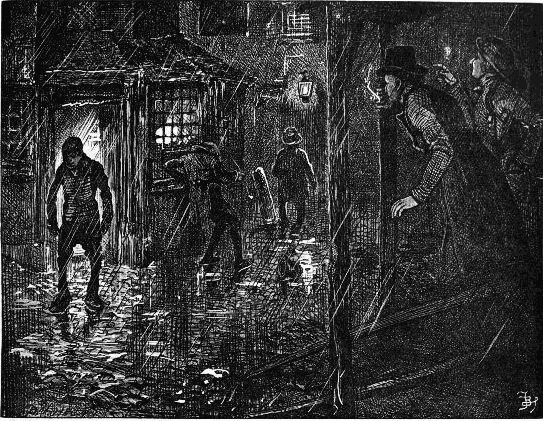
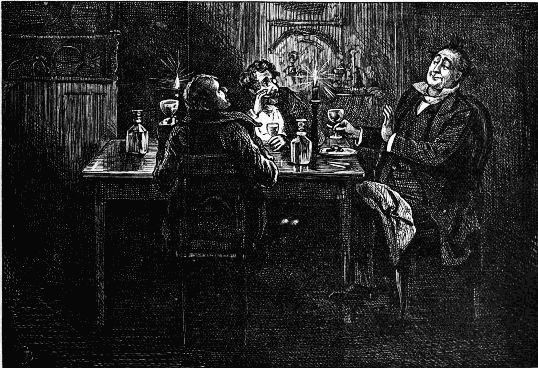 "Oh fie, fie!" cried Mr. Pecksniff. "You are very pleasant. That I am sure you don't! That
I am sure you don't! How can you, you know"—Chap. xliv.
"Oh fie, fie!" cried Mr. Pecksniff. "You are very pleasant. That I am sure you don't! That
I am sure you don't! How can you, you know"—Chap. xliv.
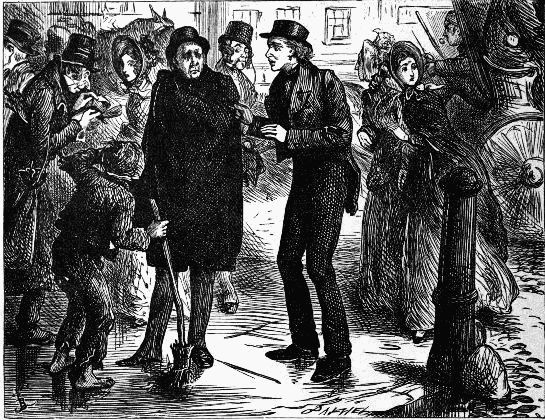
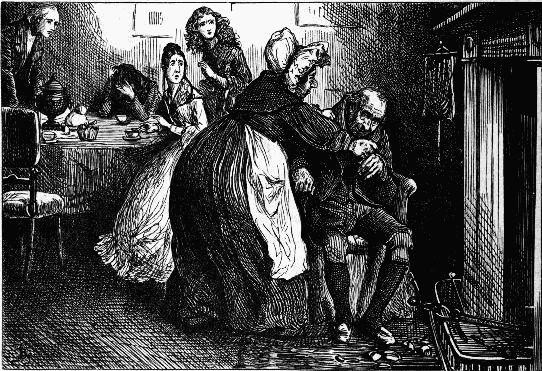 Mrs. Gamp favours the company with an exhibition of professional skill—Chap. xlvi.
Mrs. Gamp favours the company with an exhibition of professional skill—Chap. xlvi.

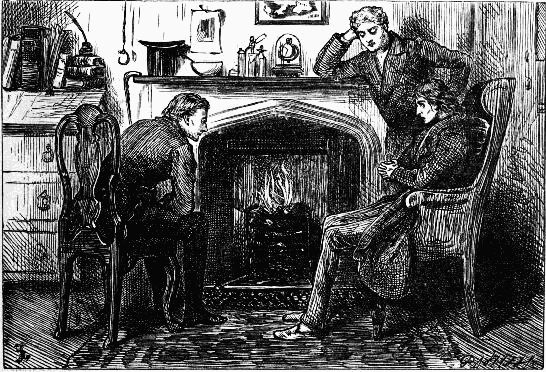 "Speak out!" said Martin, "and speak the truth"—Chap. xlvii.
"Speak out!" said Martin, "and speak the truth"—Chap. xlvii.
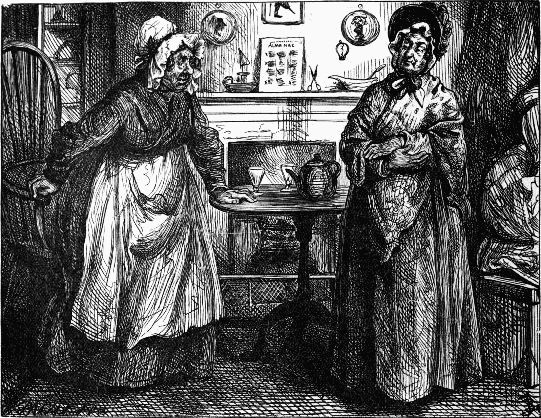
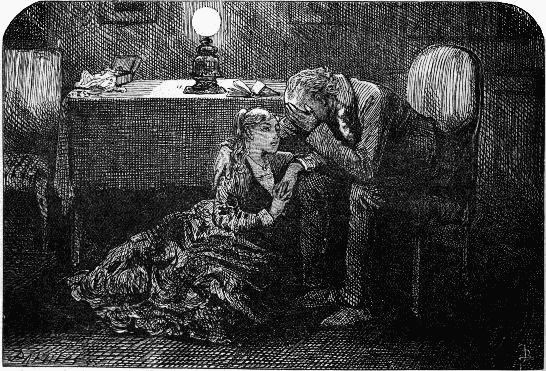 Brother and sister—Chap. l.
Brother and sister—Chap. l.
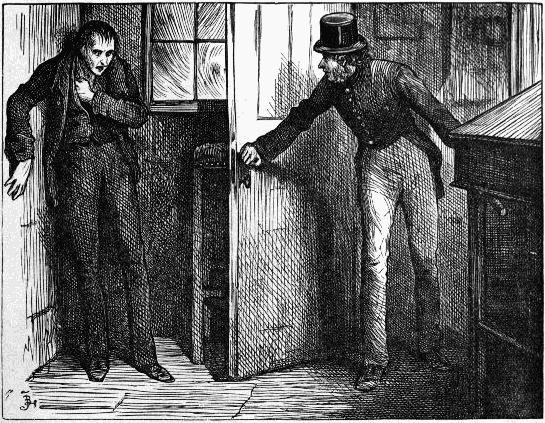
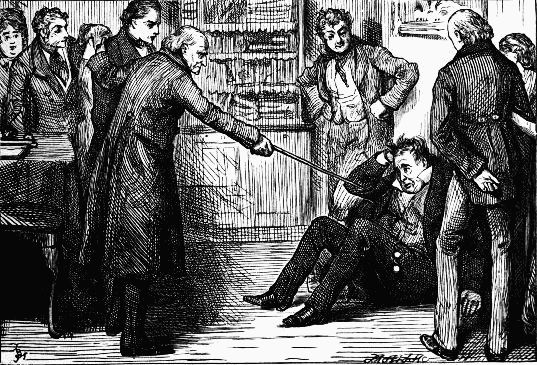 The fall of Pecksniff—Chap. lii.
The fall of Pecksniff—Chap. lii.
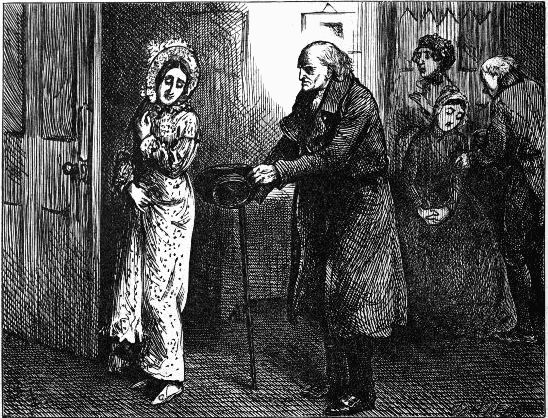
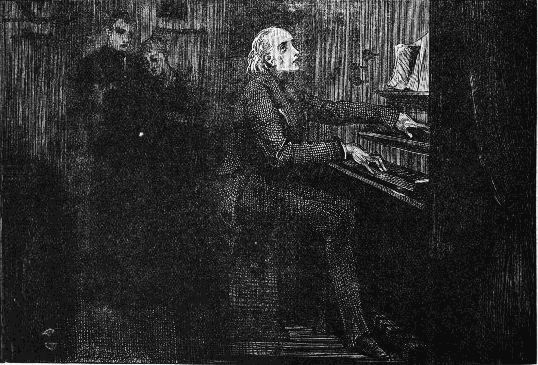 Tom's reverie—Chap. liv.
Tom's reverie—Chap. liv.
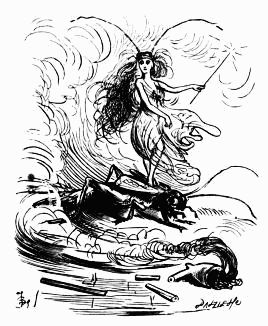
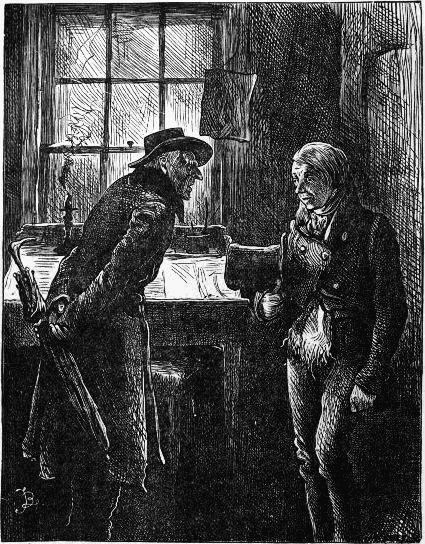 "It's not convenient," said Scrooge, "and it's not fair. If I was to stop half-a-crown
for it, you'd think yourself ill used, I'll be bound!"—A Christmas Carol,
Stave i.
"It's not convenient," said Scrooge, "and it's not fair. If I was to stop half-a-crown
for it, you'd think yourself ill used, I'll be bound!"—A Christmas Carol,
Stave i.
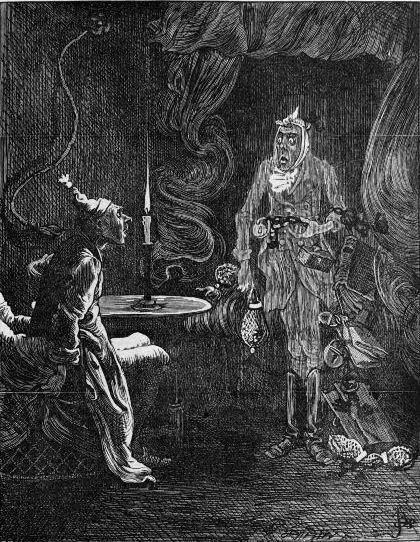 Marley's Ghost—A Christmas Carol, Stave i.
Marley's Ghost—A Christmas Carol, Stave i.
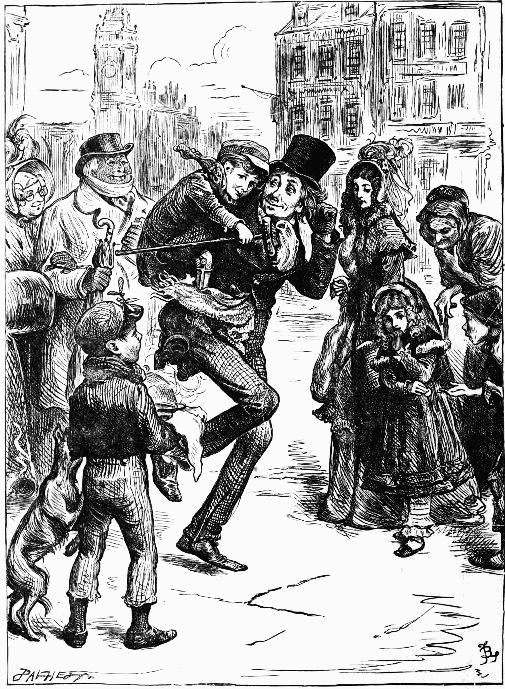 He had been Tim's blood-horse all the way from church, and had come home
rampant—A Christmas Carol, Stave iii.
He had been Tim's blood-horse all the way from church, and had come home
rampant—A Christmas Carol, Stave iii.
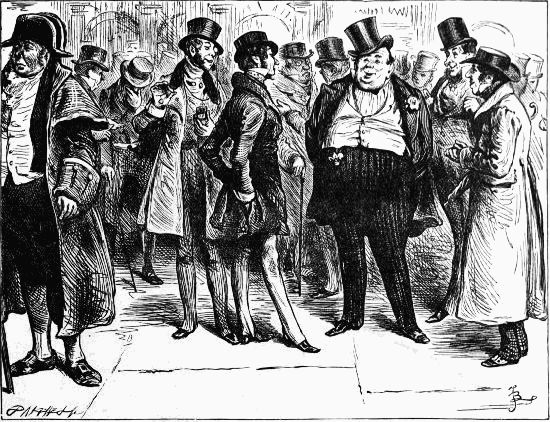
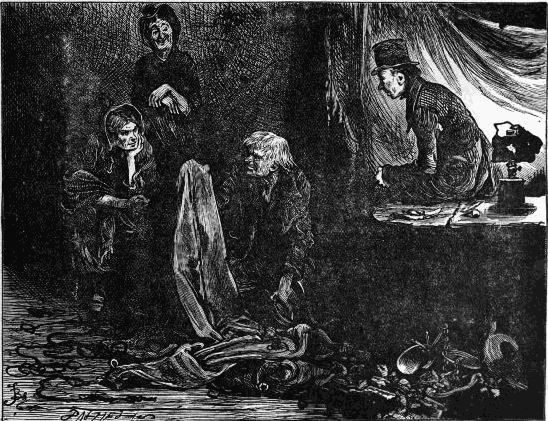 "What do you call this!" said Joe, "bed curtains!"—A Christmas Carol, Stave iv.
"What do you call this!" said Joe, "bed curtains!"—A Christmas Carol, Stave iv.
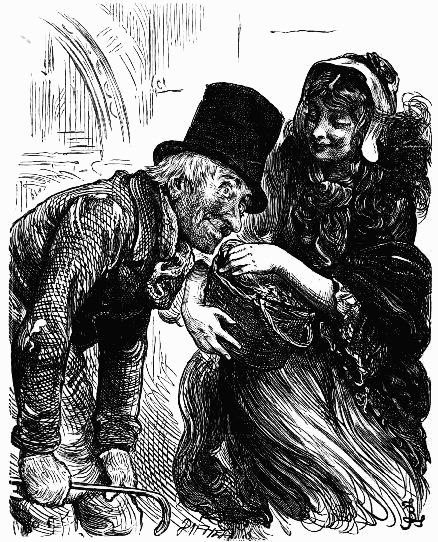 "No," said Toby, after another sniff. "It's—it's mellower than polonies.
It's very nice. It improves every moment. It's too decided for trotters.
An't it!"—The Chimes, First Quarter
"No," said Toby, after another sniff. "It's—it's mellower than polonies.
It's very nice. It improves every moment. It's too decided for trotters.
An't it!"—The Chimes, First Quarter
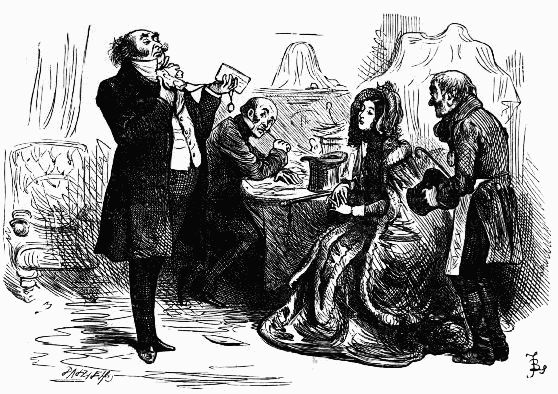 The poor man's friend.—The Chimes, Second Quarter
The poor man's friend.—The Chimes, Second Quarter
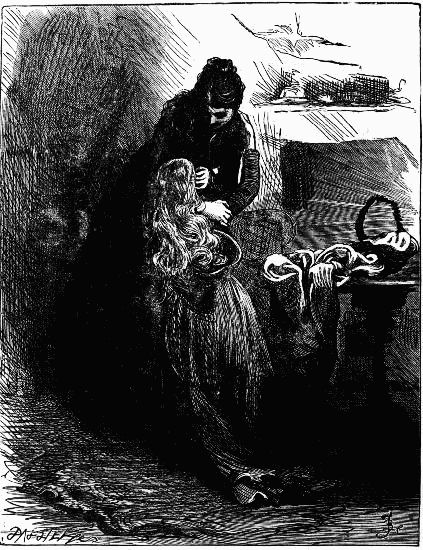 "Never more, Meg; never more! Here! here! Close to you, holding to you,
feeling your dear breath upon my face!"—The Chimes, Third Quarter
"Never more, Meg; never more! Here! here! Close to you, holding to you,
feeling your dear breath upon my face!"—The Chimes, Third Quarter
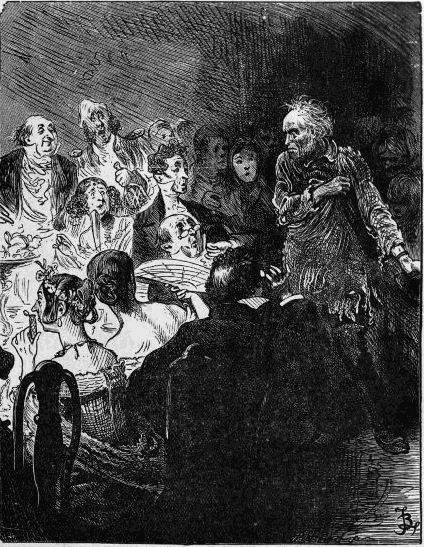 "Whither thou goest, I can not go; where thou lodgest, I do not lodge; thy
people are not my people; nor thy God, my God!"—The Chimes, Third Quarter
"Whither thou goest, I can not go; where thou lodgest, I do not lodge; thy
people are not my people; nor thy God, my God!"—The Chimes, Third Quarter
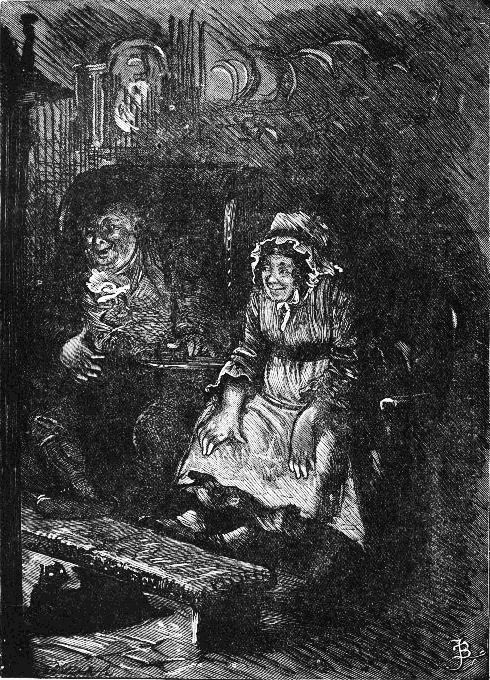 "You're in spirits Tugby, my dear," observed his wife. . . . "No," said Tugby. "No; not particular.
I'm a little elevated. The muffins came so pat!"—The Chimes, Fourth Quarter
"You're in spirits Tugby, my dear," observed his wife. . . . "No," said Tugby. "No; not particular.
I'm a little elevated. The muffins came so pat!"—The Chimes, Fourth Quarter
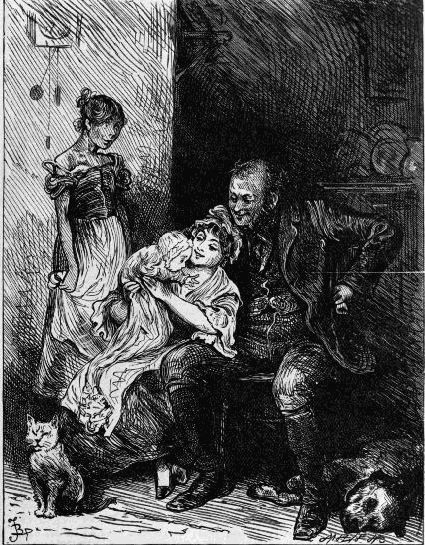 John Peerybingle's fireside—The Cricket on the Hearth, Chirp the first
John Peerybingle's fireside—The Cricket on the Hearth, Chirp the first
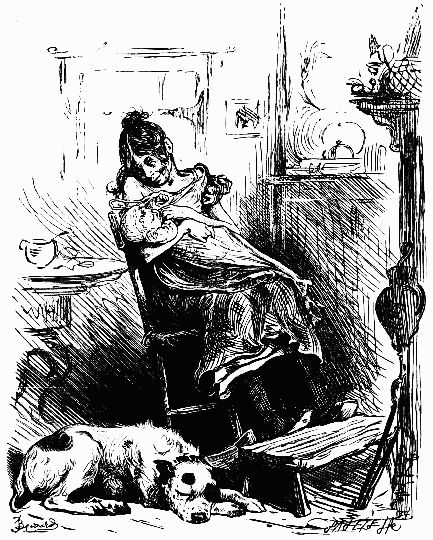 "Did its mother make it up a beds, then!" cried Miss Slowboy to the baby;
"and did its hair grow brown and curly when its caps was lifted off, and
frighten it, a precious pets, a sitting by the fires!"—The Cricket on the Hearth,
Chirp the first
"Did its mother make it up a beds, then!" cried Miss Slowboy to the baby;
"and did its hair grow brown and curly when its caps was lifted off, and
frighten it, a precious pets, a sitting by the fires!"—The Cricket on the Hearth,
Chirp the first
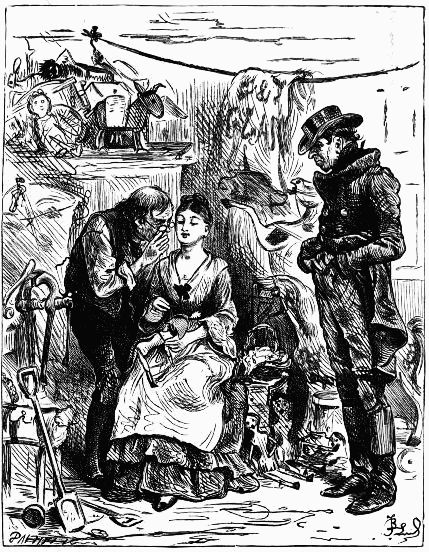 "The extent to which he's winking at this moment!" whispered Caleb to his
daughter. "Oh, my gracious!"—The Cricket on the Hearth, Chirp the second
"The extent to which he's winking at this moment!" whispered Caleb to his
daughter. "Oh, my gracious!"—The Cricket on the Hearth, Chirp the second
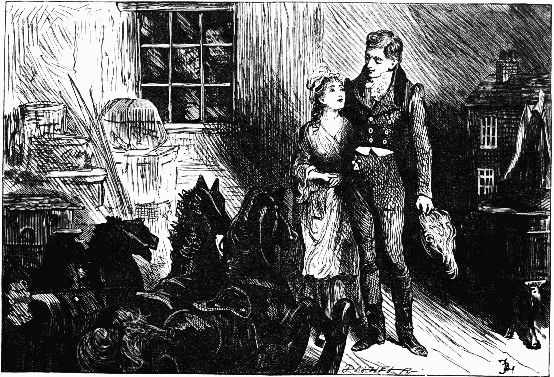 Suffering him to clasp her round the waist, as they moved slowly down the dim wooden
gallery—The Cricket on the Hearth, Chirp the second
Suffering him to clasp her round the waist, as they moved slowly down the dim wooden
gallery—The Cricket on the Hearth, Chirp the second
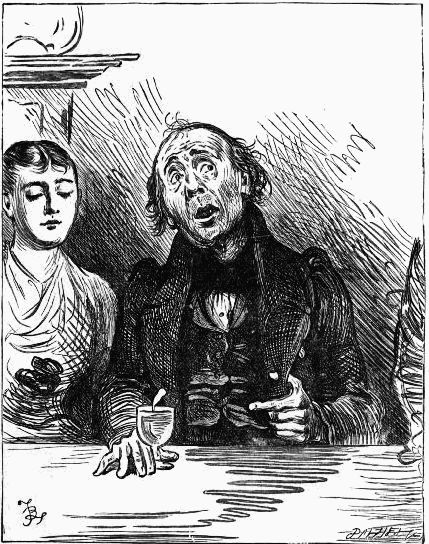 After dinner Caleb sang the song about the sparkling bowl—The Cricket on the
Hearth, Chirp the third
After dinner Caleb sang the song about the sparkling bowl—The Cricket on the
Hearth, Chirp the third
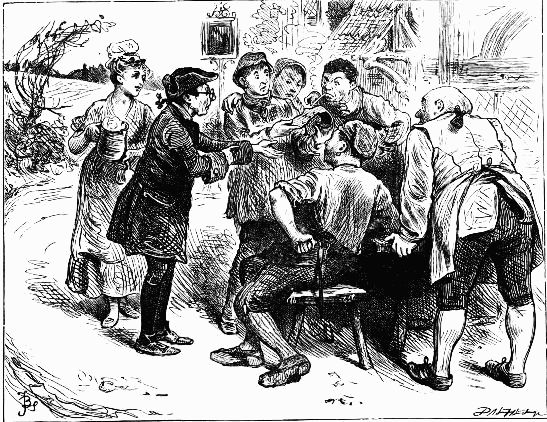 The ploughshare still turned up, from time to time, some rusty bits of metal, but it was hard to
say what use they had ever served, and those who found them wondered and disputed—The Battle
of Life, Part the first
The ploughshare still turned up, from time to time, some rusty bits of metal, but it was hard to
say what use they had ever served, and those who found them wondered and disputed—The Battle
of Life, Part the first
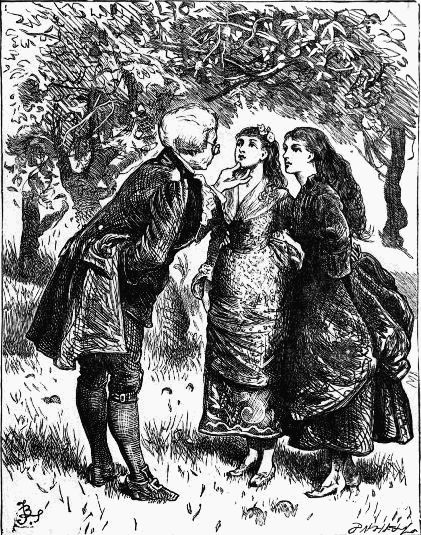 "By the bye," and he looked into the pretty face, still close to his, "I
suppose it's your birthday"—The Battle of Life, Part the first
"By the bye," and he looked into the pretty face, still close to his, "I
suppose it's your birthday"—The Battle of Life, Part the first
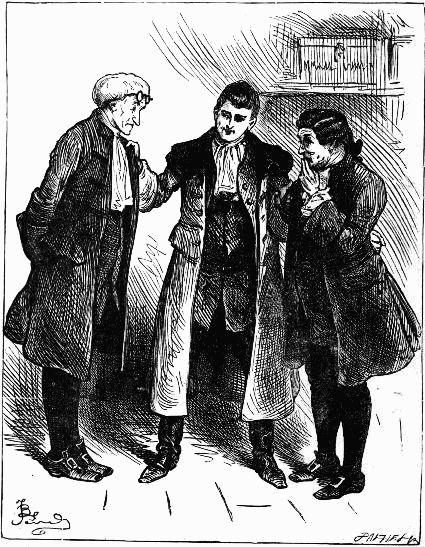 "I think it will be better not to hear this, Mr. Craggs!" said Snitchey,
looking at him across the client. "I think not," said Craggs—both
listening attentively—The Battle of Life, Part the second
"I think it will be better not to hear this, Mr. Craggs!" said Snitchey,
looking at him across the client. "I think not," said Craggs—both
listening attentively—The Battle of Life, Part the second
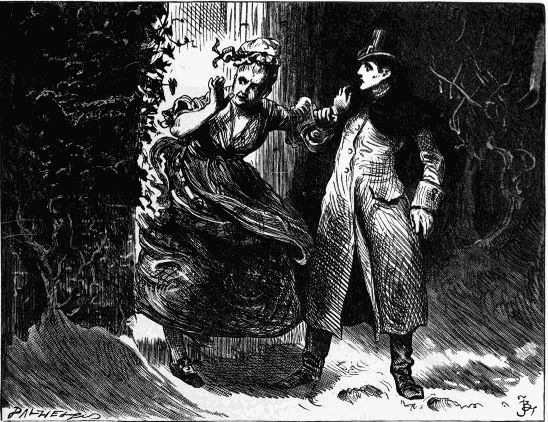
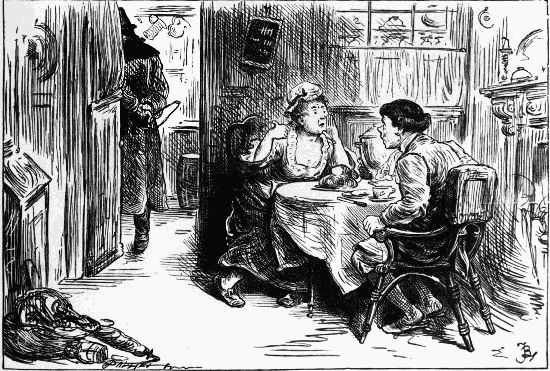 Guessed half aloud, "milk and water," "monthly warning," "mice and walnuts"—and couldn't
approach her meaning—The Battle of Life, Part the third
Guessed half aloud, "milk and water," "monthly warning," "mice and walnuts"—and couldn't
approach her meaning—The Battle of Life, Part the third
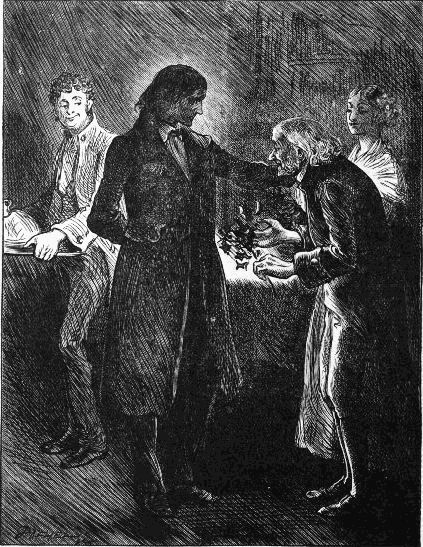 "Merry and happy, was it?" asked the chemist in a low voice. "Merry and
happy old man!"—The Haunted Man, chap. i.
"Merry and happy, was it?" asked the chemist in a low voice. "Merry and
happy old man!"—The Haunted Man, chap. i.
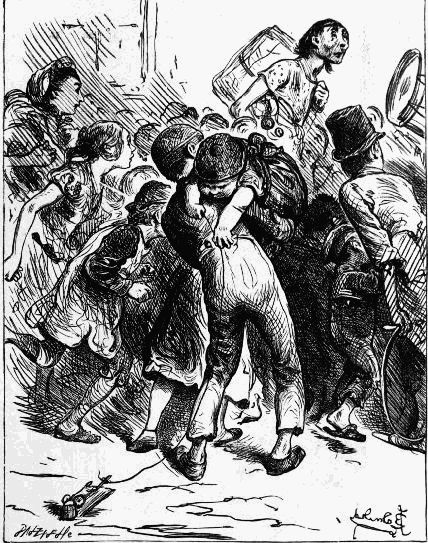 It roved from door-step to door-step, in the arms of little Johnny Tetterby,
and lagged heavily at the rear of troops of juveniles who followed the
tumblers, etc.—The Haunted Man, chap. ii.
It roved from door-step to door-step, in the arms of little Johnny Tetterby,
and lagged heavily at the rear of troops of juveniles who followed the
tumblers, etc.—The Haunted Man, chap. ii.
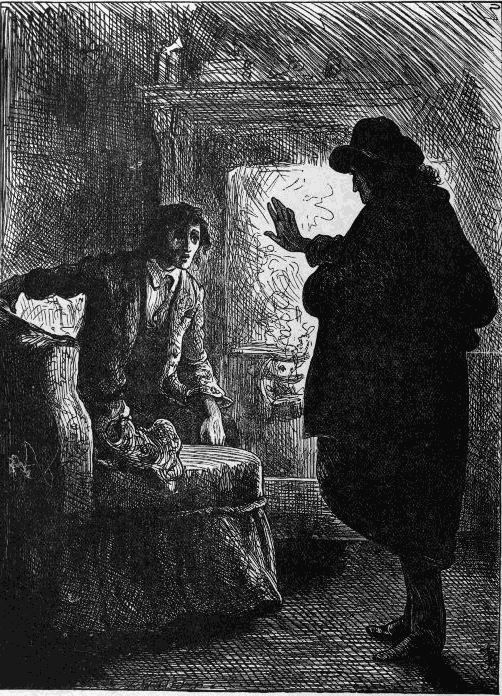 "Mr. Redlaw!" he exclaimed, and started up—The Haunted Man, chap. ii.
"Mr. Redlaw!" he exclaimed, and started up—The Haunted Man, chap. ii.
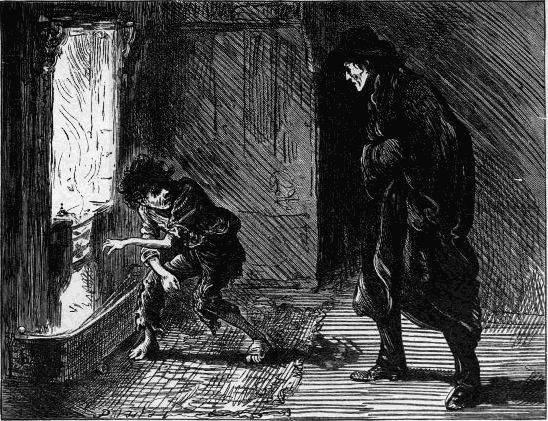 "I'm not a-going to take you there. Let me be or I'll heave some fire at you!"—The Haunted Man,
chap. ii.
"I'm not a-going to take you there. Let me be or I'll heave some fire at you!"—The Haunted Man,
chap. ii.
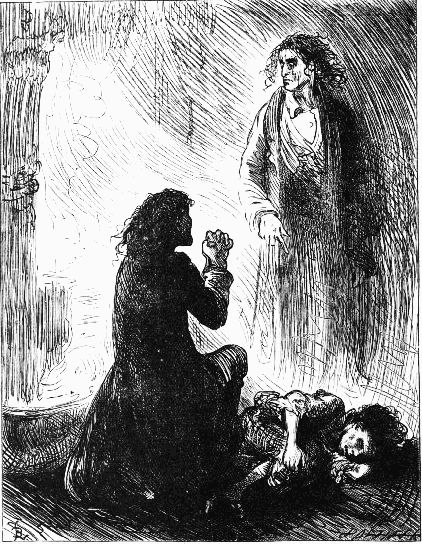 "You speak to me of what is lying here," the phantom interposed, and pointed
with its finger to the boy—The Haunted Man, chap. iii.
"You speak to me of what is lying here," the phantom interposed, and pointed
with its finger to the boy—The Haunted Man, chap. iii.
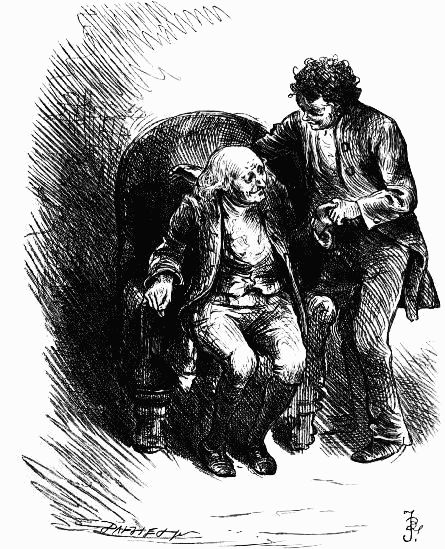 "What a wonderful man you are, father! How are you father? are you
really pretty hearty, though?" said William, shaking hands with him
again, and patting him again, and rubbing him gently down again—The
Haunted Man, chap. iii.
"What a wonderful man you are, father! How are you father? are you
really pretty hearty, though?" said William, shaking hands with him
again, and patting him again, and rubbing him gently down again—The
Haunted Man, chap. iii.
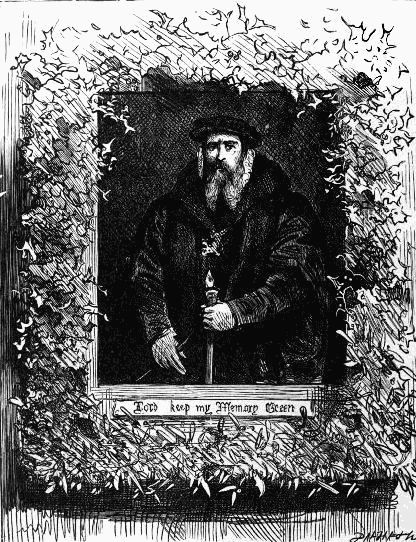 The sedate face in the portrait, with the beard and ruff, looked down at
them—The Haunted Man, chap. iii.
The sedate face in the portrait, with the beard and ruff, looked down at
them—The Haunted Man, chap. iii.
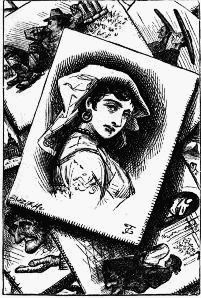
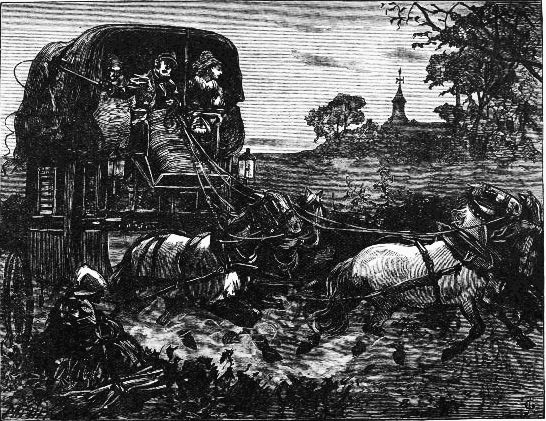 The Malle Post—Going Through France
The Malle Post—Going Through France
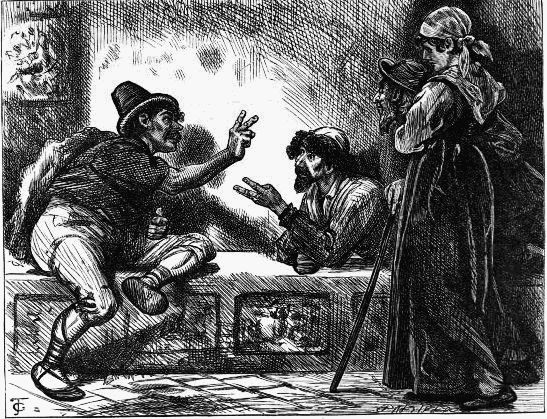 Playing at Mora—Genoa and its Neighbourhood
Playing at Mora—Genoa and its Neighbourhood
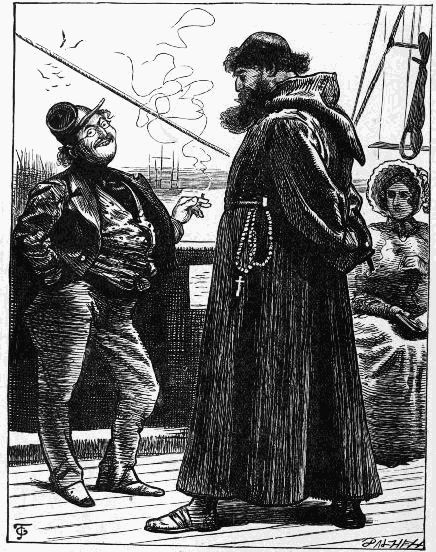 The Church and the World—To Parma, Modena, and Bologna
The Church and the World—To Parma, Modena, and Bologna
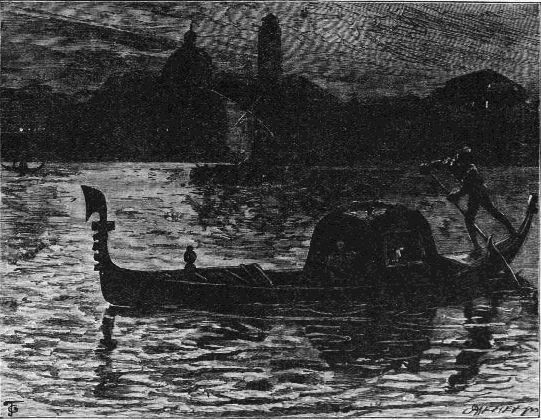 An Italian Dream
An Italian Dream
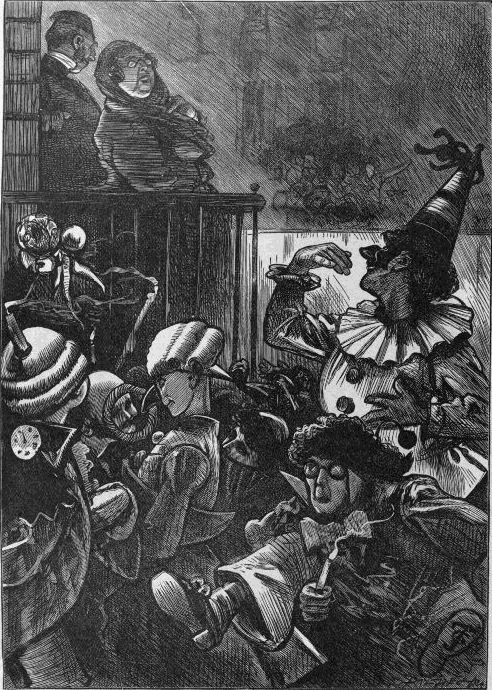 A sketch at the carnival—Rome
A sketch at the carnival—Rome
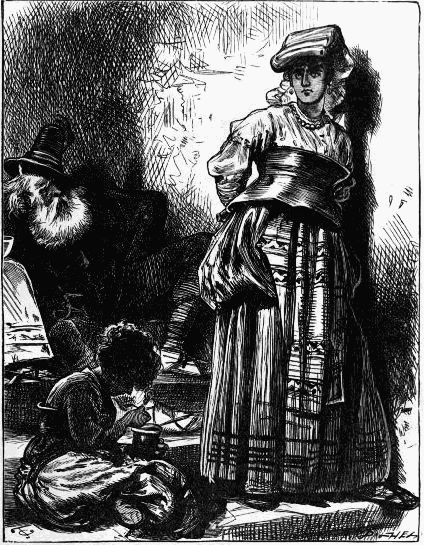 Artists' models—Rome
Artists' models—Rome
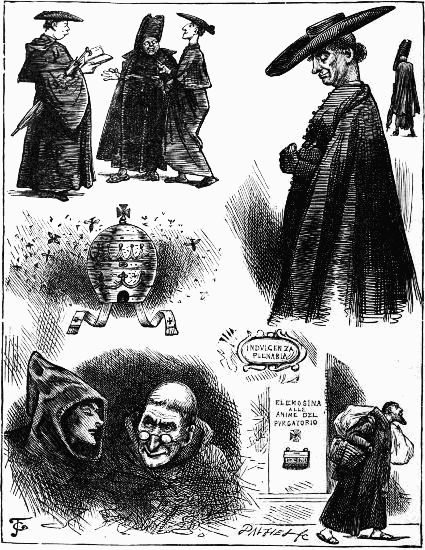 Priests and monks—A Rapid Diorama
Priests and monks—A Rapid Diorama
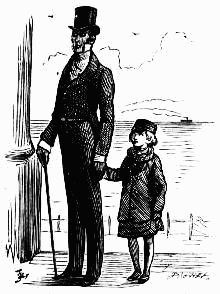
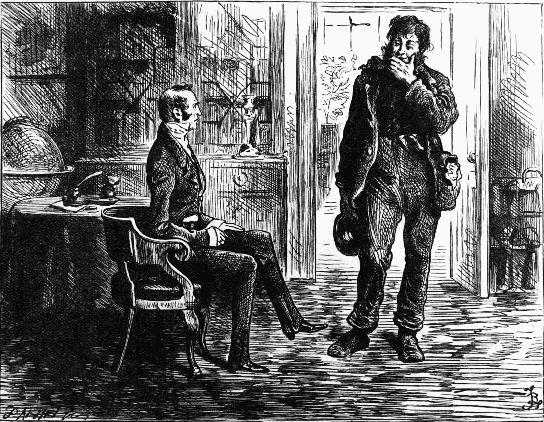 A thorough contrast in all respects to Mr. Dombey—Chap. ii.
A thorough contrast in all respects to Mr. Dombey—Chap. ii.
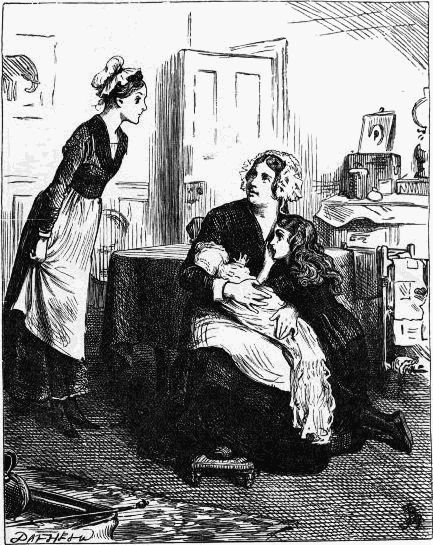 "I may be fond of pennywinkles, Mrs. Richards, but it don't follow that I'm to
have 'em for tea"—Chap. iii.
"I may be fond of pennywinkles, Mrs. Richards, but it don't follow that I'm to
have 'em for tea"—Chap. iii.
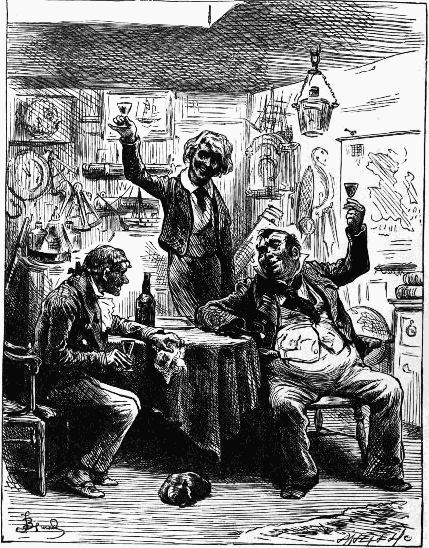 "So here's to Dombey—and son—and daughter"—Chap. iv.
"So here's to Dombey—and son—and daughter"—Chap. iv.
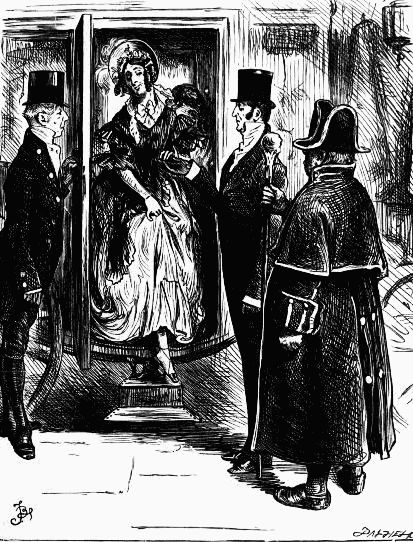 Mr. Dombey dismounting first to help the ladies out—Chap. v.
Mr. Dombey dismounting first to help the ladies out—Chap. v.
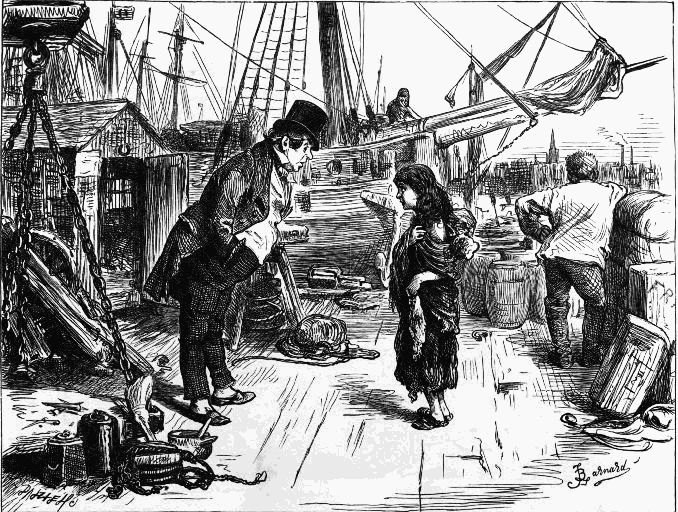 "Why, what can you want with Dombey and Son's!" . . . "To know the way there, if you please."—Chap. vi.
"Why, what can you want with Dombey and Son's!" . . . "To know the way there, if you please."—Chap. vi.
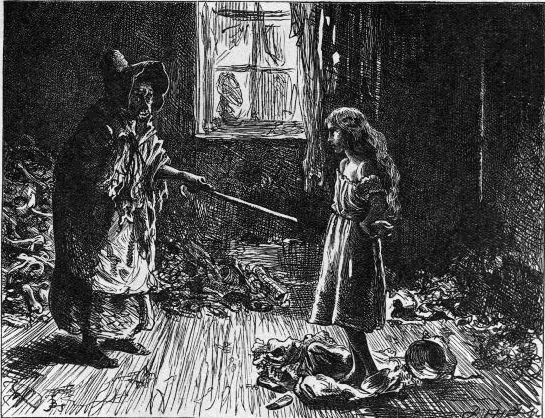 Florence obeyed as fast as her trembling hands would allow; keeping, all the while, a frightened
eye on Mrs. Brown—Chap. vi.
Florence obeyed as fast as her trembling hands would allow; keeping, all the while, a frightened
eye on Mrs. Brown—Chap. vi.
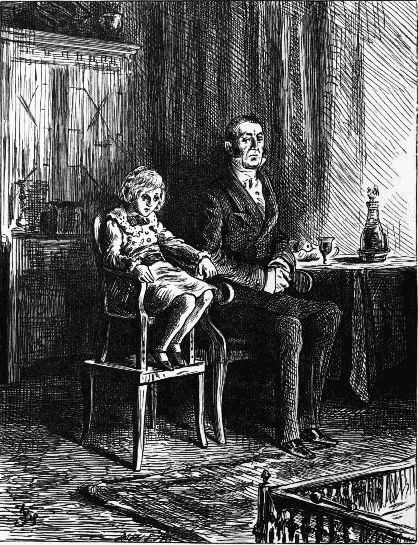 Dombey and Son—Chap. viii.
Dombey and Son—Chap. viii.
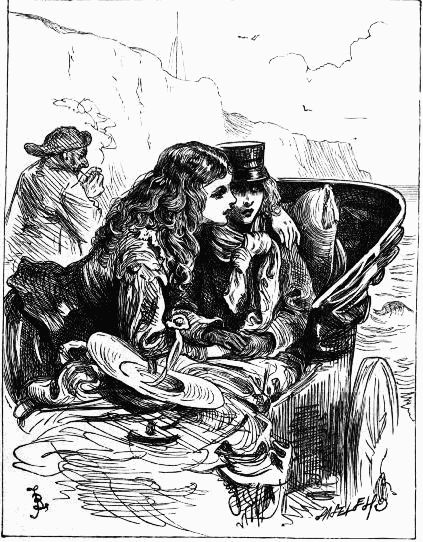 Listening to the sea—Chap. viii.
Listening to the sea—Chap. viii.
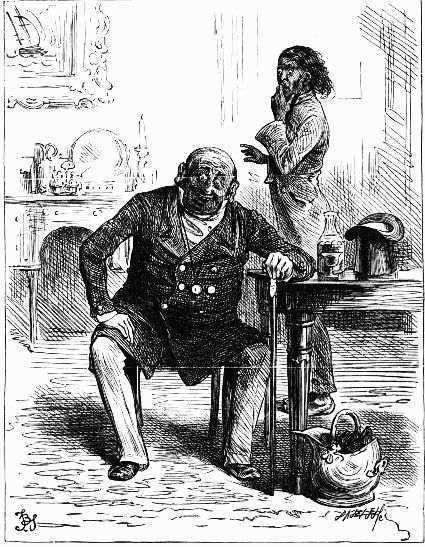 And when he got there, sat down in a chair, and fell into a silent fit of
laughter with which he was sometimes seized, and which was always particularly
awful—Chap. x.
And when he got there, sat down in a chair, and fell into a silent fit of
laughter with which he was sometimes seized, and which was always particularly
awful—Chap. x.
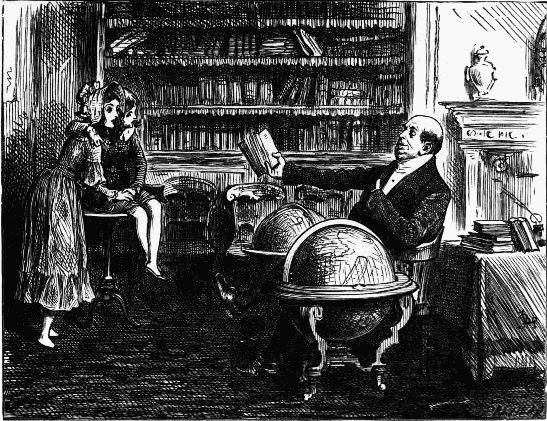 When the doctor smiled auspiciously at his author, or knit his brows, or shook his head and made
wry faces at him, as much as to say, "Don't tell me, sir; I know better," it was terrific—Chap. xi.
When the doctor smiled auspiciously at his author, or knit his brows, or shook his head and made
wry faces at him, as much as to say, "Don't tell me, sir; I know better," it was terrific—Chap. xi.
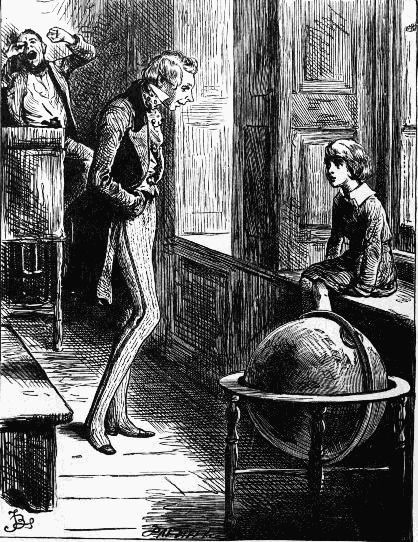 "Your father's regularly rich, ain't he!" inquired Mr. Toots.
"Yes, sir," said Paul; "He's Dombey and Son"—Chap. xii.
"Your father's regularly rich, ain't he!" inquired Mr. Toots.
"Yes, sir," said Paul; "He's Dombey and Son"—Chap. xii.
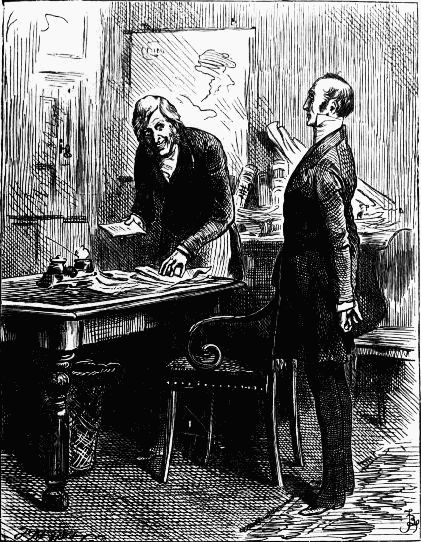 "You respect nobody, Carker, I think," said Mr. Dombey. "No!" inquired
Carker, with another wide and most feline show of his teeth—Chap. xiii.
"You respect nobody, Carker, I think," said Mr. Dombey. "No!" inquired
Carker, with another wide and most feline show of his teeth—Chap. xiii.
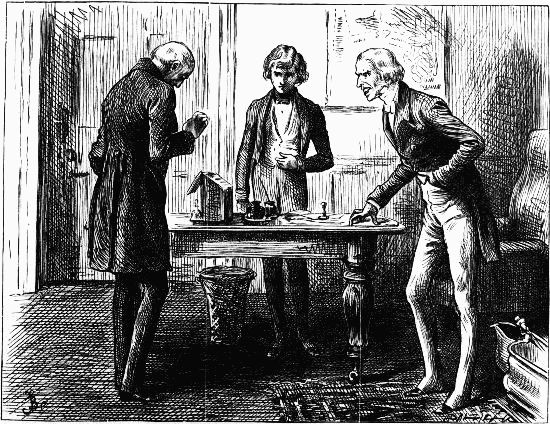 During this conversation, Walter had looked from one brother to the other with pain and
amazement—Chap. xiii.
During this conversation, Walter had looked from one brother to the other with pain and
amazement—Chap. xiii.
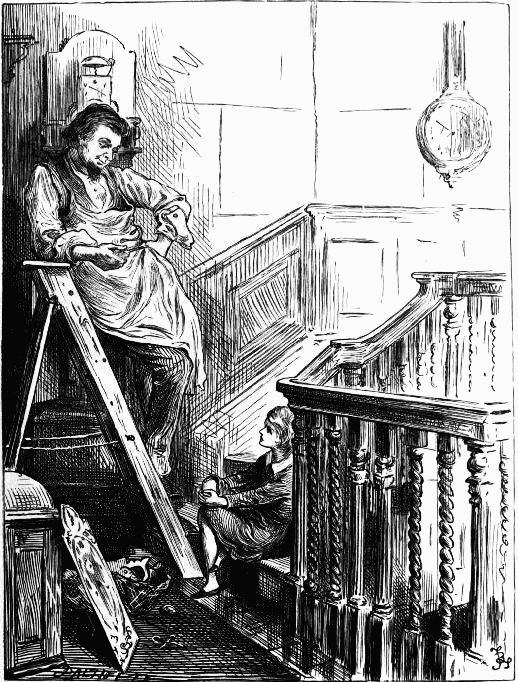 Paul also asked him, as a practical man, what he thought about King Alfred's idea of measuring
time by the burning of candles, to which the workman replied that he thought it would be the
ruin of the clock trade if it was to come up again—Chap. xiv.
Paul also asked him, as a practical man, what he thought about King Alfred's idea of measuring
time by the burning of candles, to which the workman replied that he thought it would be the
ruin of the clock trade if it was to come up again—Chap. xiv.
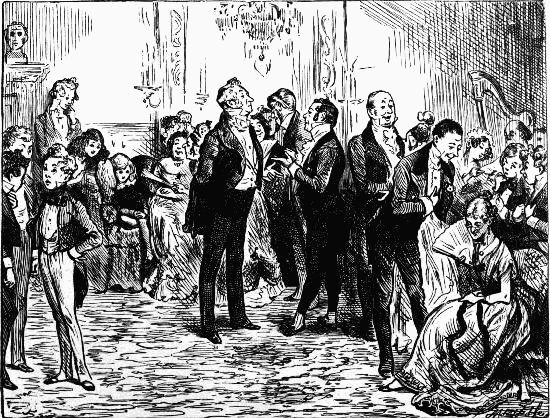 The breaking-up party at Doctor Blimber's—Chap. xiv.
The breaking-up party at Doctor Blimber's—Chap. xiv.
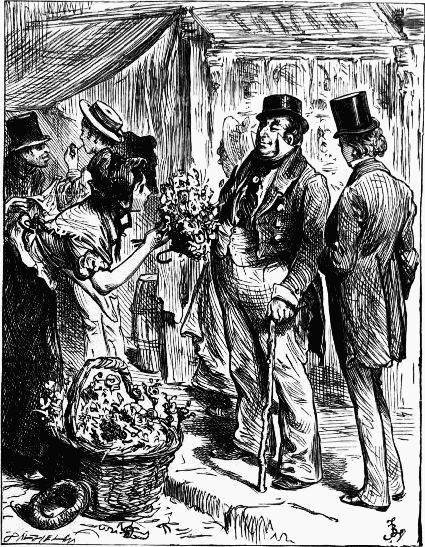 Before they had gone very far, they encountered a woman selling flowers:
when the captain, stopping short, as if struck by a happy idea, made a purchase
of the largest bundle in her basket—Chap. xv.
Before they had gone very far, they encountered a woman selling flowers:
when the captain, stopping short, as if struck by a happy idea, made a purchase
of the largest bundle in her basket—Chap. xv.
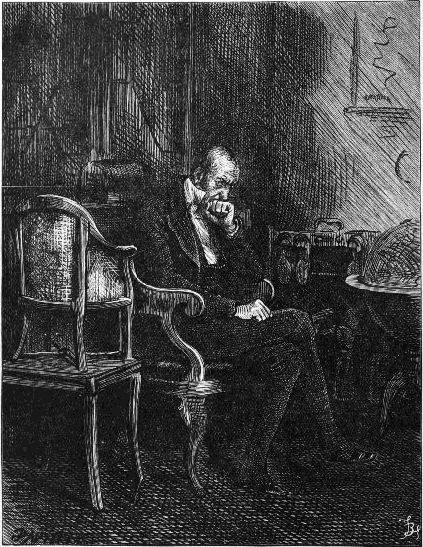 All this time, the bereaved father has not been seen even by his attendant;
for he sits in a corner of his own dark room—Chap. xviii.
All this time, the bereaved father has not been seen even by his attendant;
for he sits in a corner of his own dark room—Chap. xviii.
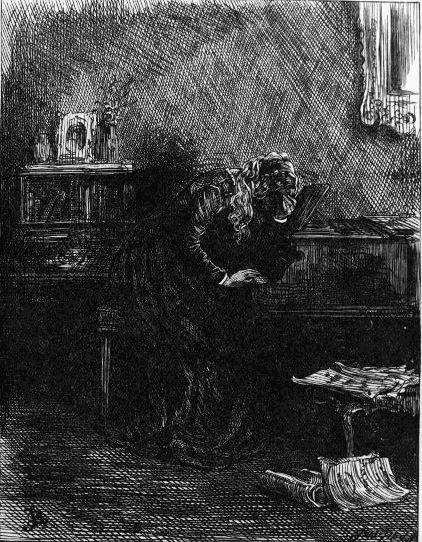 It was repeated often—very often, in the shadowy solitude; and broken
murmurs of the strain still trembled on the keys, when the sweet voice
was hushed in tears—Chap. xviii.
It was repeated often—very often, in the shadowy solitude; and broken
murmurs of the strain still trembled on the keys, when the sweet voice
was hushed in tears—Chap. xviii.
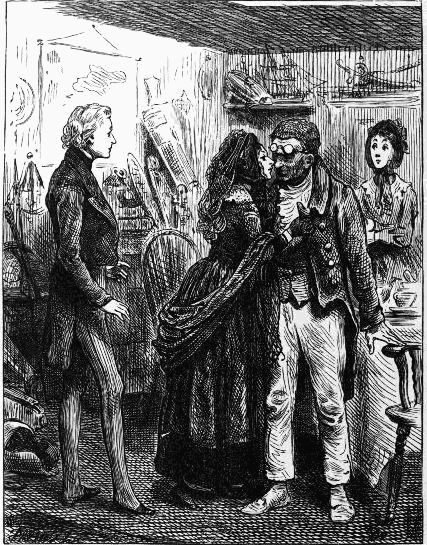 Took Uncle Sol's snuff-coloured lappels, one in each hand; kissed him on the
cheek, etc.—Chap. xix.
Took Uncle Sol's snuff-coloured lappels, one in each hand; kissed him on the
cheek, etc.—Chap. xix.
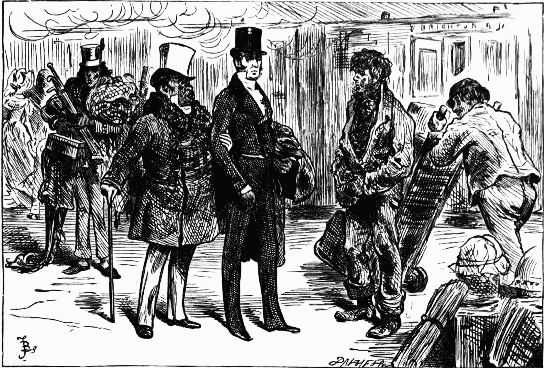
 Withers the Wan, at this period, handing round the tea, Mr. Dombey again addressed himself to
Edith—Chap. xxi.
Withers the Wan, at this period, handing round the tea, Mr. Dombey again addressed himself to
Edith—Chap. xxi.
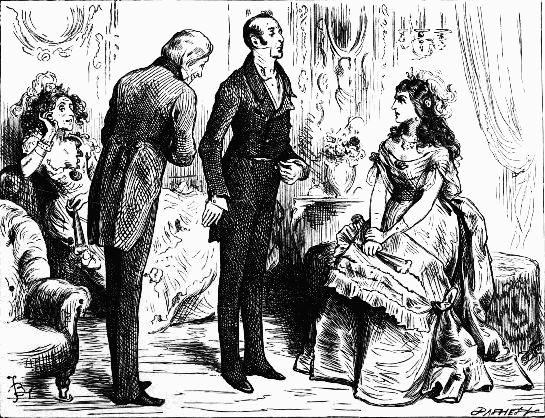 "Do you know that there is some one here!" she returned, now looking at him steadily—Chap. xxxvi.
"Do you know that there is some one here!" she returned, now looking at him steadily—Chap. xxxvi.
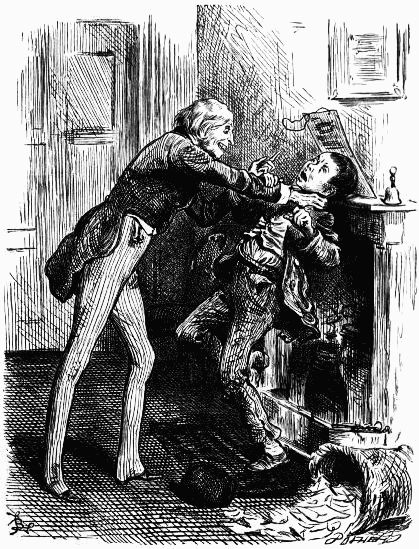 "Let you alone!" said Mr. Carker. "What! I have got you, have I!" There
was no doubt of that, and tightly too. "You dog," said Mr. Carker, through
his set jaws, "I'll strangle you!"—Chap. xxii.
"Let you alone!" said Mr. Carker. "What! I have got you, have I!" There
was no doubt of that, and tightly too. "You dog," said Mr. Carker, through
his set jaws, "I'll strangle you!"—Chap. xxii.
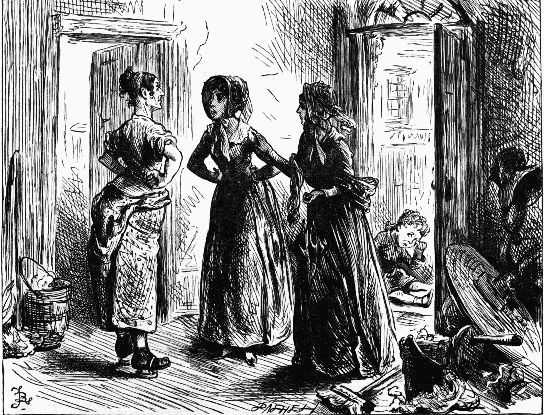 "What do you want with Captain Cuttle, I should wish to know!" said Mrs. Macstinger.
"Should you! Then I'm sorry that you won't be satisfied," returned Miss Nipper—Chap. xxiii.
"What do you want with Captain Cuttle, I should wish to know!" said Mrs. Macstinger.
"Should you! Then I'm sorry that you won't be satisfied," returned Miss Nipper—Chap. xxiii.
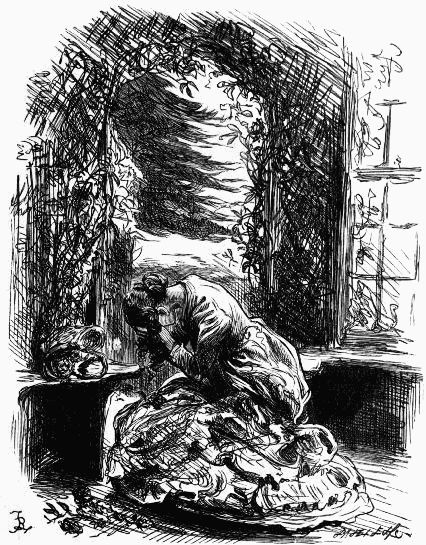 The flowers were scattered on the ground like dust; the empty hands were
spread upon the face; and orphaned Florence, shrinking down upon the
ground, wept long and bitterly—Chap. xxiv.
The flowers were scattered on the ground like dust; the empty hands were
spread upon the face; and orphaned Florence, shrinking down upon the
ground, wept long and bitterly—Chap. xxiv.
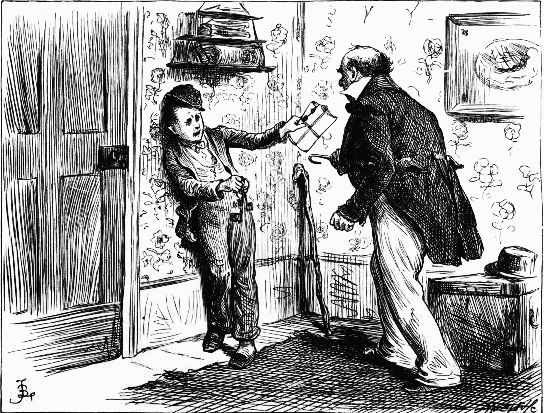 The Captain's voice was so tremendous, and he came out of his corner with such way on him, that
Rob retreated before him into another corner; holding out the keys and packet, to prevent himself
from being run down—Chap. xxv.
The Captain's voice was so tremendous, and he came out of his corner with such way on him, that
Rob retreated before him into another corner; holding out the keys and packet, to prevent himself
from being run down—Chap. xxv.
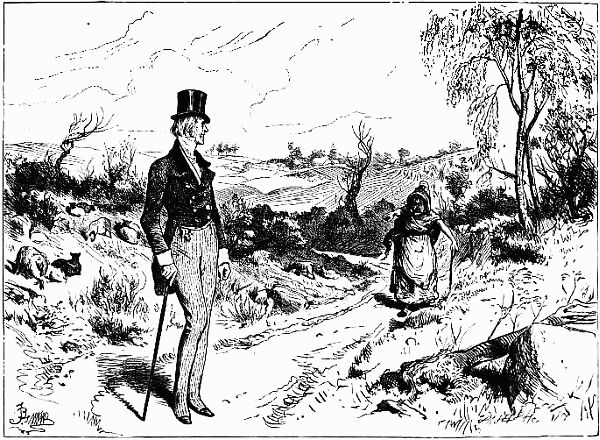 "Go and meet her!"—Chap. xxvii.
"Go and meet her!"—Chap. xxvii.
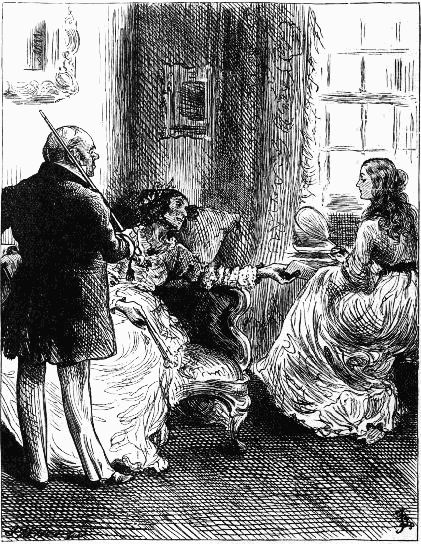 "Thank you. I have no desire to read it," was her answer—Chap. xxvi.
"Thank you. I have no desire to read it," was her answer—Chap. xxvi.
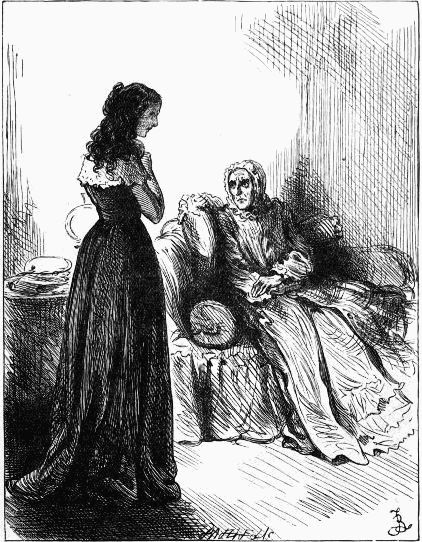 "A child!" said Edith, looking at her. "When was I a child! What
childhood did you ever leave to me!"—Chap. xxviii.
"A child!" said Edith, looking at her. "When was I a child! What
childhood did you ever leave to me!"—Chap. xxviii.
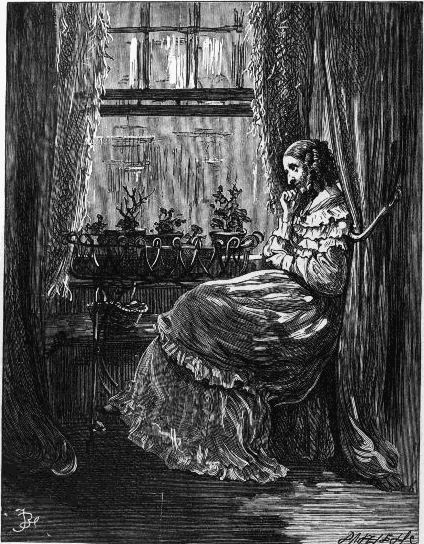 Lucretia Tox's reverie—Chap. xxix.
Lucretia Tox's reverie—Chap. xxix.
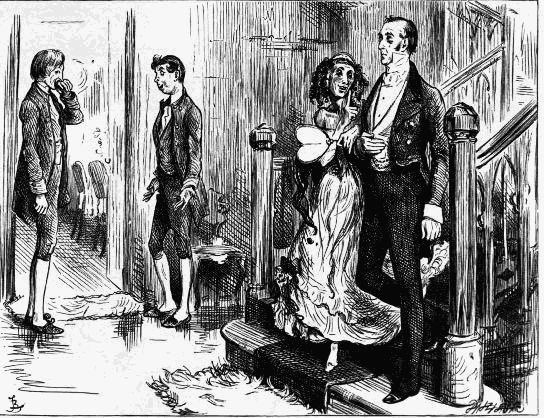 One of the very tall young men on hire, whose organ of veneration was imperfectly developed,
thrusting his tongue into his cheek, for the entertainment of the other very tall young man on
hire, as the couple turned into the dining-room—Chap. xxx.
One of the very tall young men on hire, whose organ of veneration was imperfectly developed,
thrusting his tongue into his cheek, for the entertainment of the other very tall young man on
hire, as the couple turned into the dining-room—Chap. xxx.
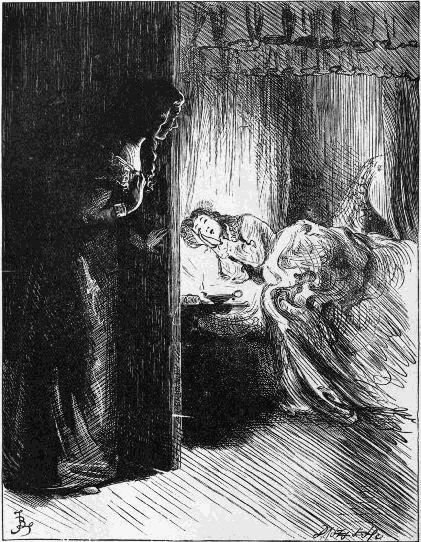 She started, stopped, and looked in—Chap. xxx.
She started, stopped, and looked in—Chap. xxx.
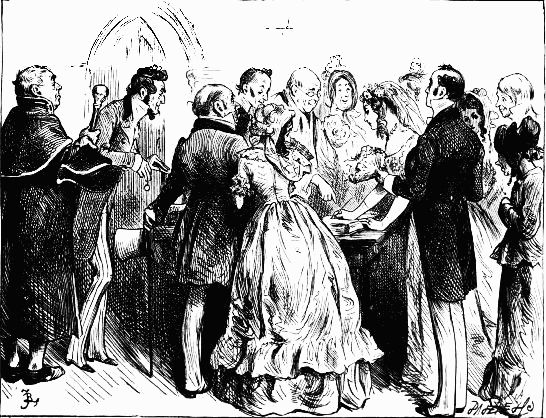 In a firm, free hand, the bride subscribes her name in the register—Chap. xxxi.
In a firm, free hand, the bride subscribes her name in the register—Chap. xxxi.
 "Go," said the good-humoured manager, gathering up his skirts, and standing astride on the
hearth-rug, "like a sensible fellow, and let us have no turning out, or any such violent
measures"—Chap. xxxii.
"Go," said the good-humoured manager, gathering up his skirts, and standing astride on the
hearth-rug, "like a sensible fellow, and let us have no turning out, or any such violent
measures"—Chap. xxxii.
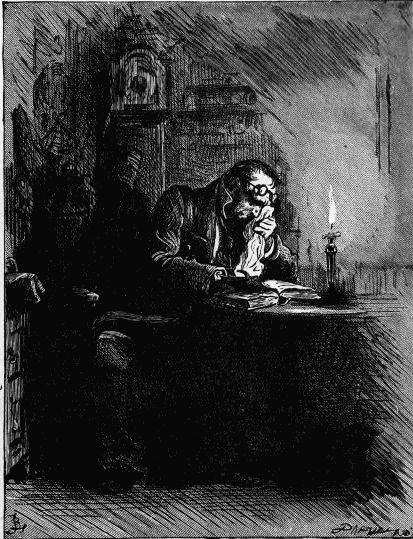 And reading softly to himself, in the little back parlour, and stopping now
and then to wipe his eyes, the Captain, in a true and simple spirit, committed
Walter's body to the deep—Chap. xxxii.
And reading softly to himself, in the little back parlour, and stopping now
and then to wipe his eyes, the Captain, in a true and simple spirit, committed
Walter's body to the deep—Chap. xxxii.
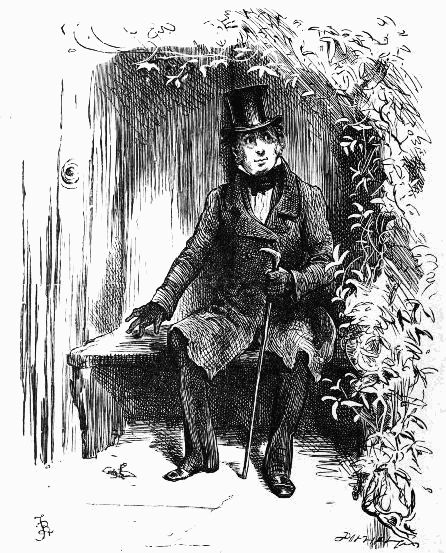 A certain skilful action of his fingers as he hummed some bars, and beat
time on the seat beside him, seemed to denote the musician—Chap. xxxiii.
A certain skilful action of his fingers as he hummed some bars, and beat
time on the seat beside him, seemed to denote the musician—Chap. xxxiii.
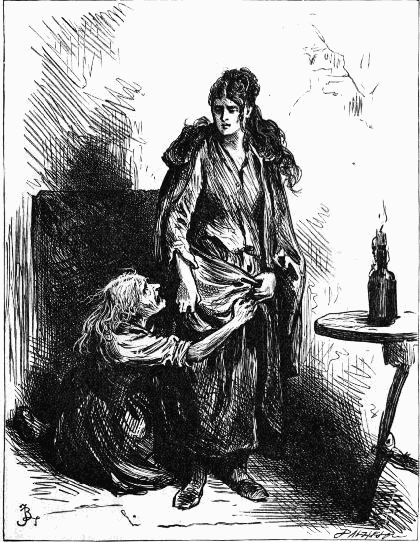 "She's come back harder than she went!" cried the mother, looking up in
her face, and still holding to her knees—Chap. xxxiv.
"She's come back harder than she went!" cried the mother, looking up in
her face, and still holding to her knees—Chap. xxxiv.
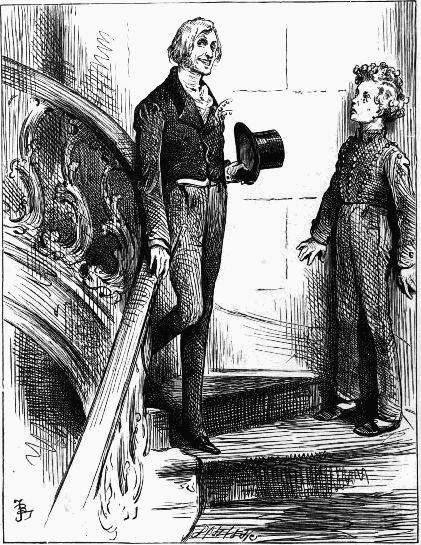 Withers, meeting him on the stairs, stood amazed at the beauty of his teeth,
and at his brilliant smile—Chap. xxxvii.
Withers, meeting him on the stairs, stood amazed at the beauty of his teeth,
and at his brilliant smile—Chap. xxxvii.
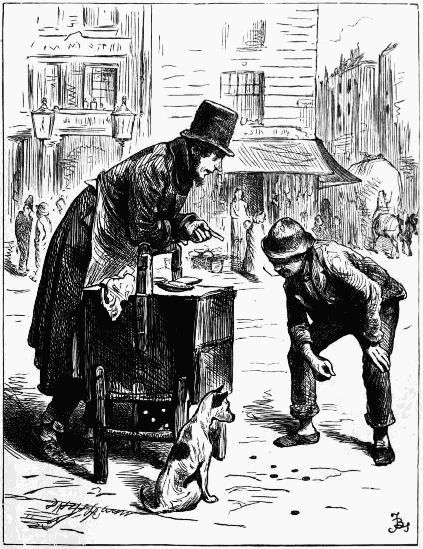 Ran sniggering off to get change, and tossed it away with a pieman—Chap. xxxviii.
Ran sniggering off to get change, and tossed it away with a pieman—Chap. xxxviii.
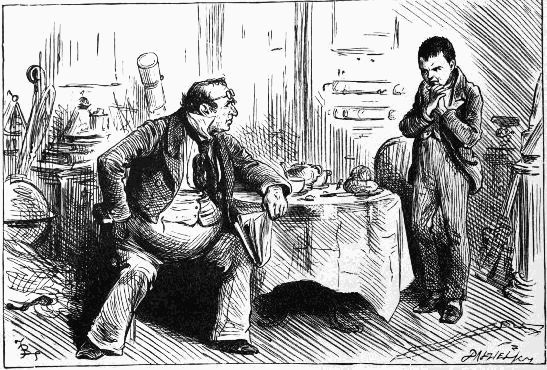
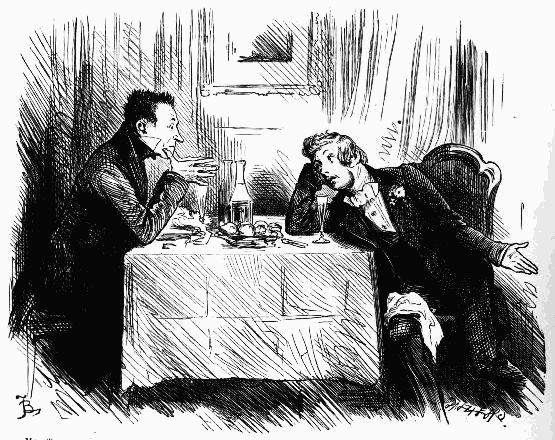 Mr. Toots replies by launching wildly out into Miss Dombey's praises, and by insinuations that
sometimes he thinks he should like to blow his brains out—Chap. xli.
Mr. Toots replies by launching wildly out into Miss Dombey's praises, and by insinuations that
sometimes he thinks he should like to blow his brains out—Chap. xli.
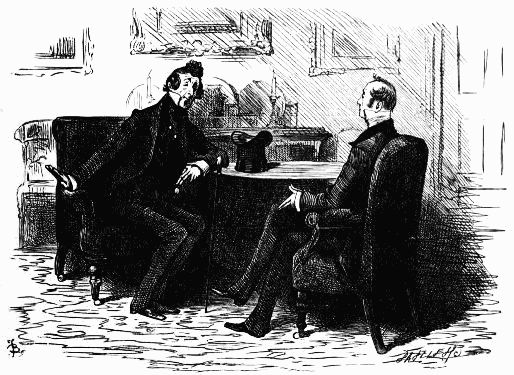
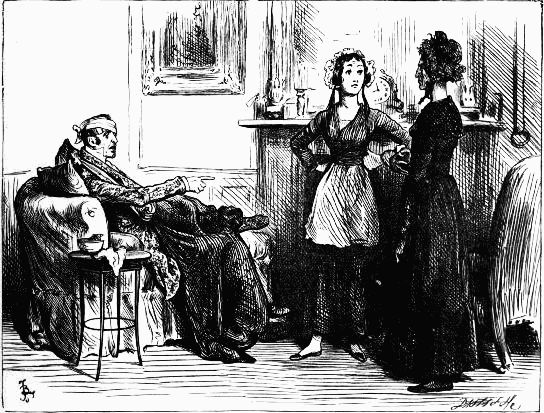 "Do you call it managing this establishment, madam," said Mr. Dombey, "to leave a person like
this at liberty to come and talk to me!"—Chap. xliv.
"Do you call it managing this establishment, madam," said Mr. Dombey, "to leave a person like
this at liberty to come and talk to me!"—Chap. xliv.
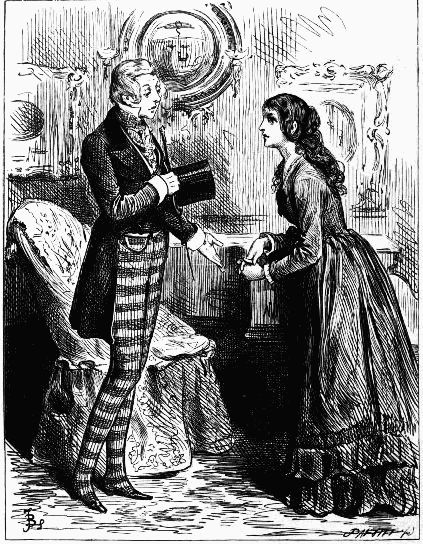 "Miss Dombey," returned Mr. Toots, "if you'll only name one, you'll—you'll
give me an appetite. To which," said Mr. Toots, with some sentiment, "I have
long been a stranger"—Chap. xliv.
"Miss Dombey," returned Mr. Toots, "if you'll only name one, you'll—you'll
give me an appetite. To which," said Mr. Toots, with some sentiment, "I have
long been a stranger"—Chap. xliv.
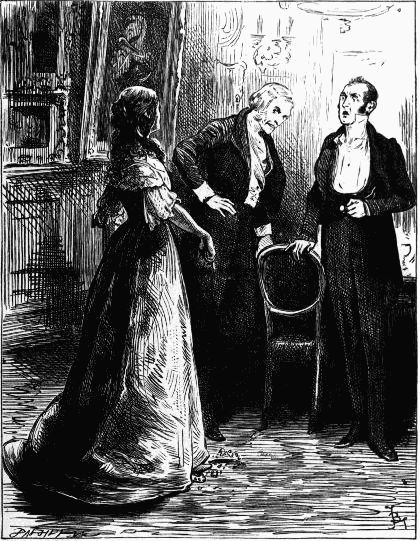 Flung it down, and trod upon the glittering heap—Chap. xlvii.
Flung it down, and trod upon the glittering heap—Chap. xlvii.
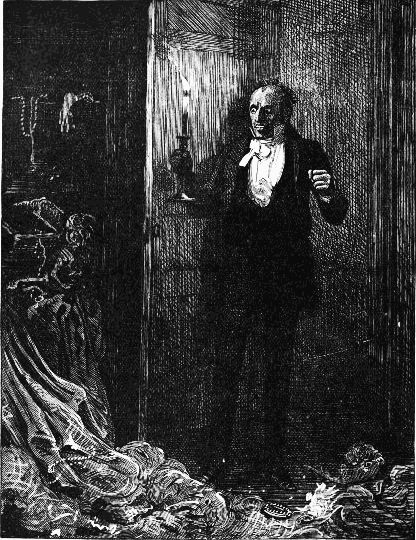 Thrown down in a costly mass upon the ground was every ornament she had
had since she had been his wife; every dress she had worn; and everything
she had possessed—Chap. xlvii.
Thrown down in a costly mass upon the ground was every ornament she had
had since she had been his wife; every dress she had worn; and everything
she had possessed—Chap. xlvii.
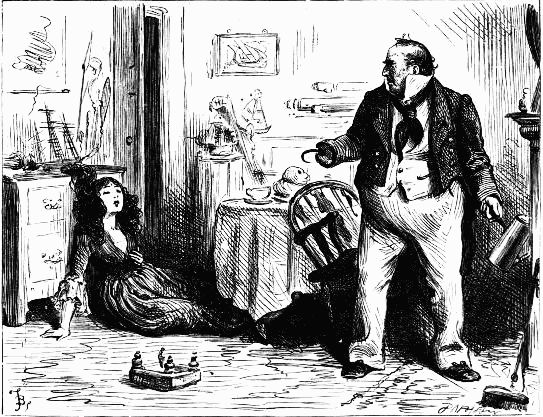 Florence made a motion with her hand towards him, reeled and fell upon the floor—Chap. xlviii.
Florence made a motion with her hand towards him, reeled and fell upon the floor—Chap. xlviii.
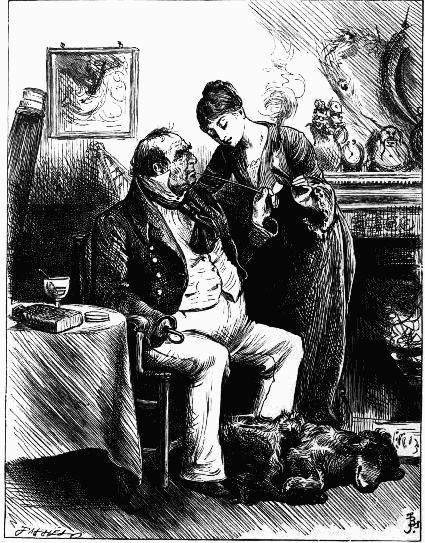 When he had filled his pipe in an absolute reverie of satisfaction,
Florence lighted it for him—Chap. xlix.
When he had filled his pipe in an absolute reverie of satisfaction,
Florence lighted it for him—Chap. xlix.
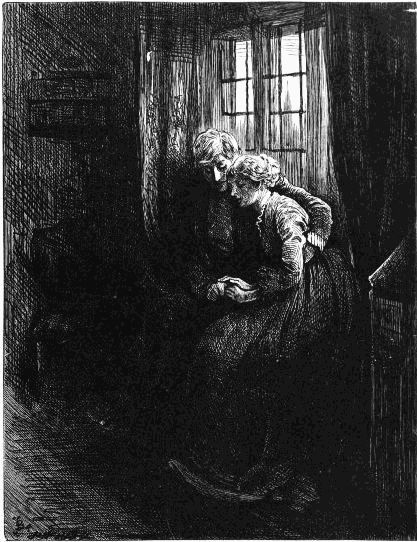 Blessed twilight stealing on, and shading her so soothingly and gravely as
she falls asleep, like a hushed child, upon the bosom she has clung to!—Chap. l.
Blessed twilight stealing on, and shading her so soothingly and gravely as
she falls asleep, like a hushed child, upon the bosom she has clung to!—Chap. l.
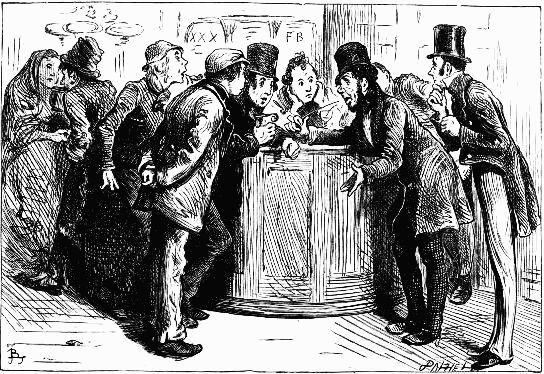 It appears that he met everybody concerned in the late transaction, everywhere, and said to
them, "Sir," or "Madam," as the case was, "Why do you look so pale!" at which each shuddered
from head to foot, and said, "Oh, Perch!" and ran away—Chap. li.
It appears that he met everybody concerned in the late transaction, everywhere, and said to
them, "Sir," or "Madam," as the case was, "Why do you look so pale!" at which each shuddered
from head to foot, and said, "Oh, Perch!" and ran away—Chap. li.
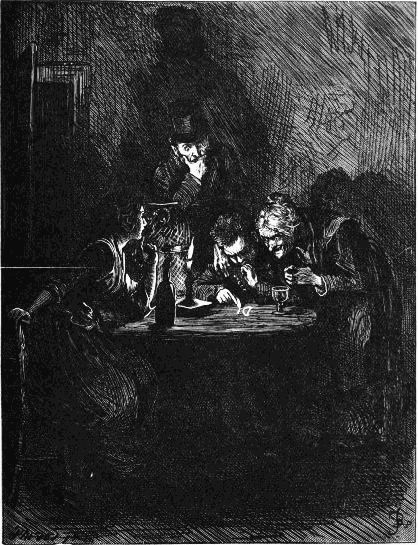 D. I. J. O. N—Chap. lii.
D. I. J. O. N—Chap. lii.
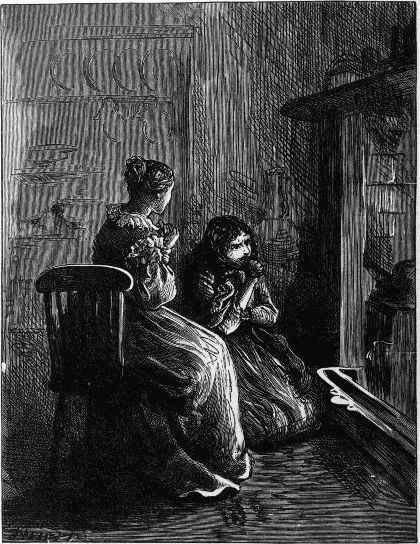 Still upon her knees, and with her eyes upon the fire—Chap. liii.
Still upon her knees, and with her eyes upon the fire—Chap. liii.
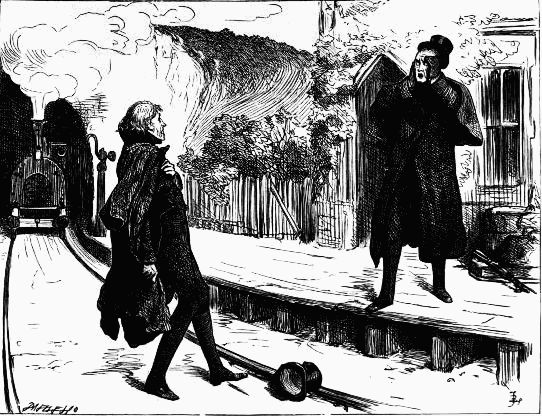 He saw the face change from its vindictive passion to a faint sickness and terror—Chap. lv.
He saw the face change from its vindictive passion to a faint sickness and terror—Chap. lv.
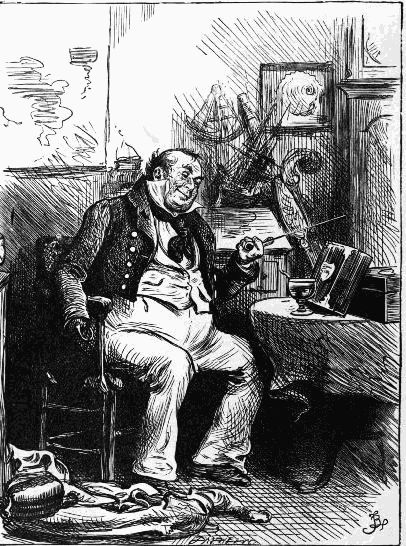 After this, he smoked four pipes successively in the little parlour by
himself, and was discovered chuckling at the expiration of as many
hours—Chap. lvi.
After this, he smoked four pipes successively in the little parlour by
himself, and was discovered chuckling at the expiration of as many
hours—Chap. lvi.
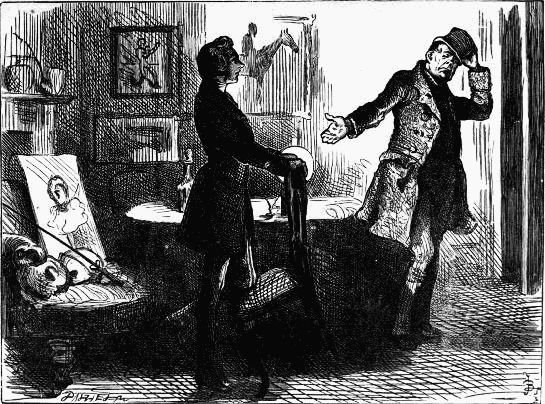 "Wy, it's mean . . . . that's where it is. It's mean!"—Chap. lvi.
"Wy, it's mean . . . . that's where it is. It's mean!"—Chap. lvi.
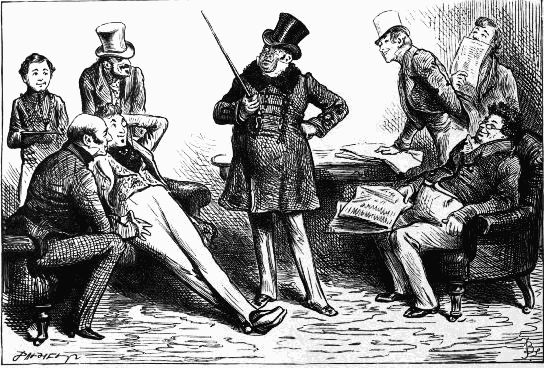
 "Yes, Mrs. Pipchin, it is," replies cook, advancing. "And what then pray!"—Chap. lix.
"Yes, Mrs. Pipchin, it is," replies cook, advancing. "And what then pray!"—Chap. lix.
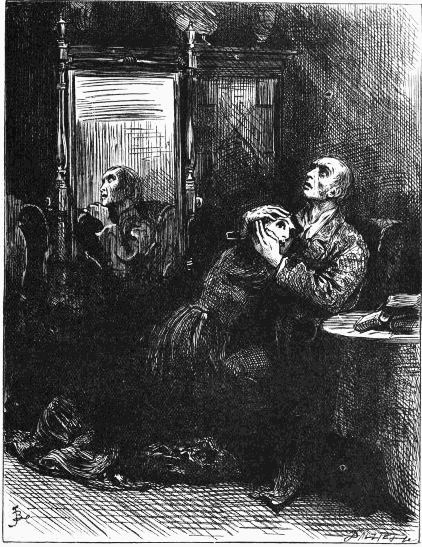 "Oh, my God, forgive me, for I need it very much!"—Chap. lix.
"Oh, my God, forgive me, for I need it very much!"—Chap. lix.
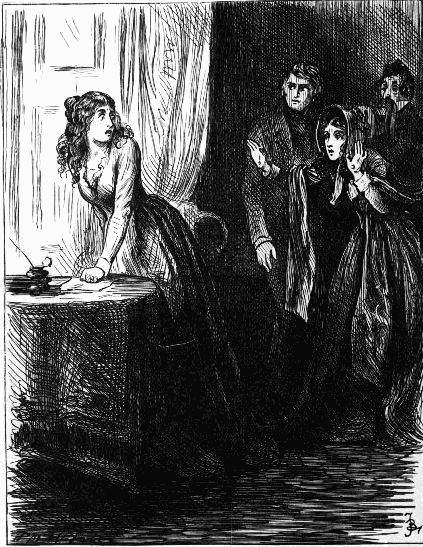 "No, no!" cried Florence, shrinking back as she rose up, and putting out her
hands to keep her off. "Mamma!"—Chap. lxi.
"No, no!" cried Florence, shrinking back as she rose up, and putting out her
hands to keep her off. "Mamma!"—Chap. lxi.
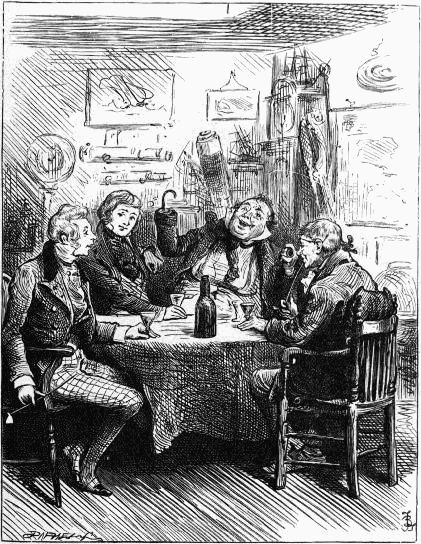 Captain Cuttle gives them the Lovely Peg—Chap. lxii.
Captain Cuttle gives them the Lovely Peg—Chap. lxii.
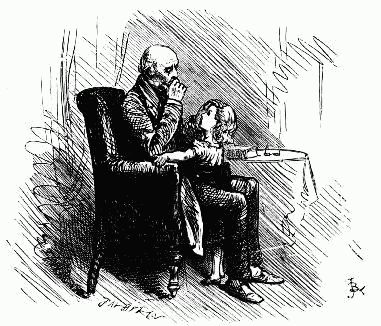 "Dear Grandpapa, why do you cry when you kiss me?"—Chap. lxii.
"Dear Grandpapa, why do you cry when you kiss me?"—Chap. lxii.
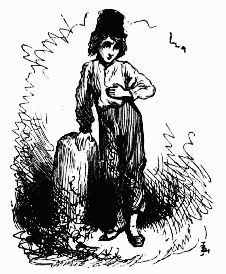
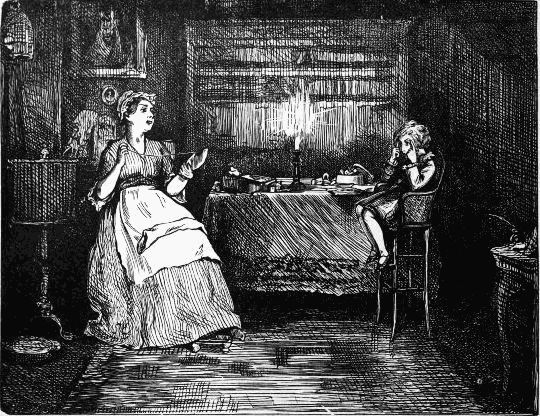
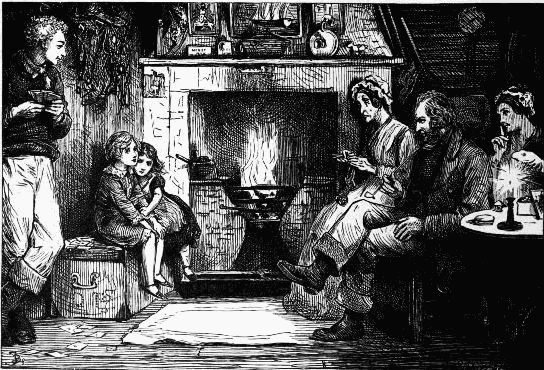 "Dead, Mr. Peggotty!" I hinted, after a respectful pause.
"Dead, Mr. Peggotty!" I hinted, after a respectful pause.
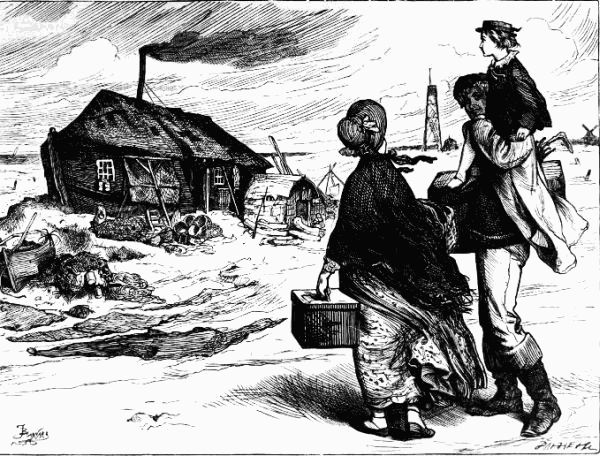 "That's not it!" said I, "that ship-looking thing!" "That's it, Mas'r Davy," returned Ham—Chap. iii.
"That's not it!" said I, "that ship-looking thing!" "That's it, Mas'r Davy," returned Ham—Chap. iii.
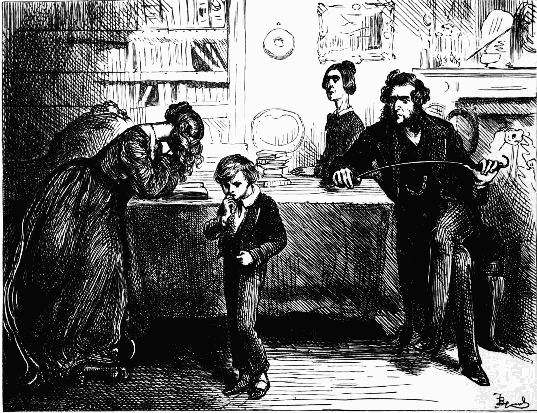
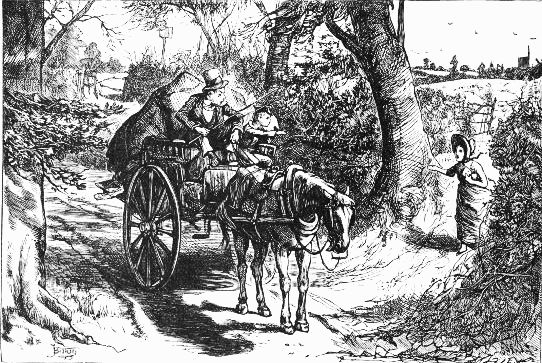 I saw to my amazement, Peggotty burst from a hedge and climb into the cart—Chap. v.
I saw to my amazement, Peggotty burst from a hedge and climb into the cart—Chap. v.
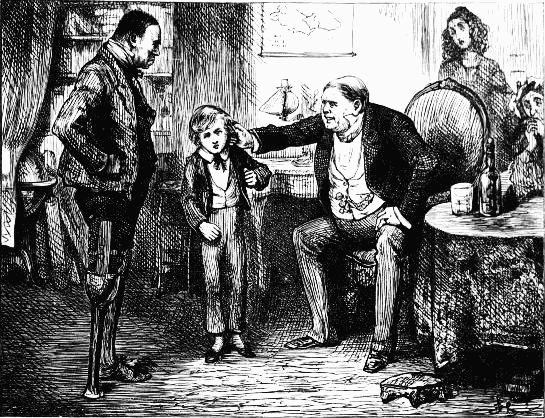
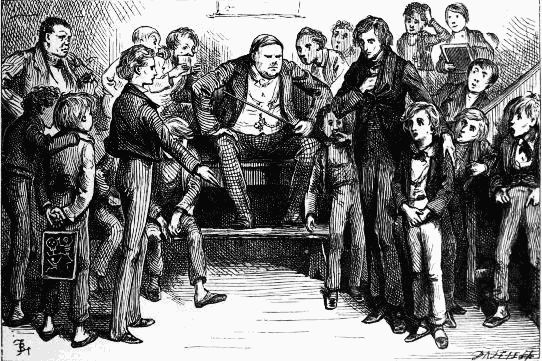 "Let him deny it," said Steerforth—Chap. vii.
"Let him deny it," said Steerforth—Chap. vii.
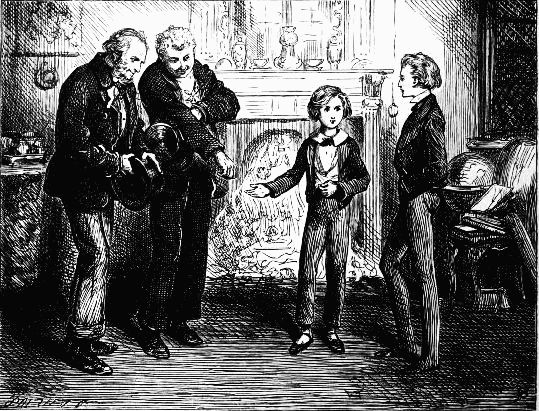
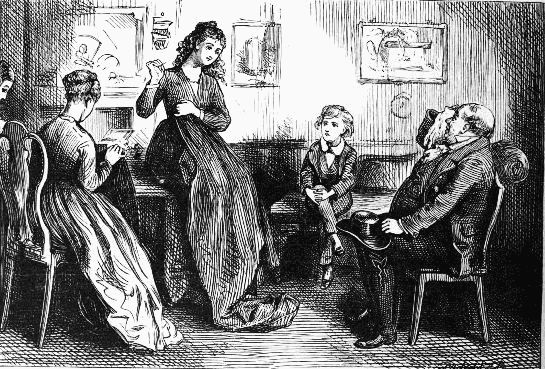 "Father!" said Minnie playfully. "What a porpoise you do grow!"—Chap. ix.
"Father!" said Minnie playfully. "What a porpoise you do grow!"—Chap. ix.
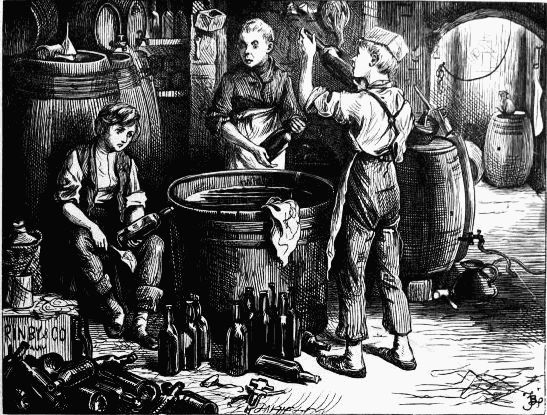
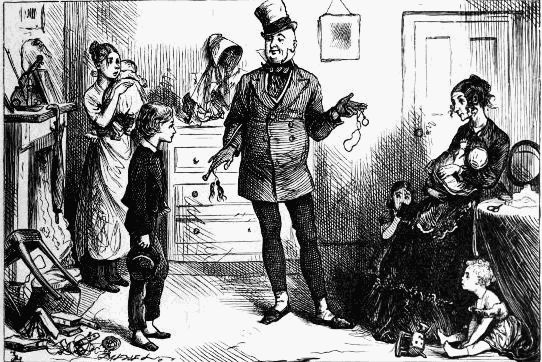 I am presented to Mrs. Micawber—Chap. xi.
I am presented to Mrs. Micawber—Chap. xi.
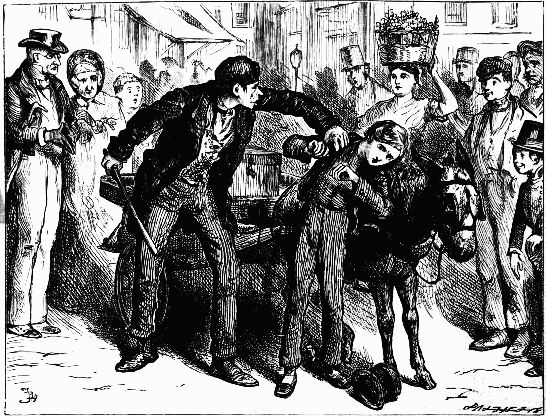
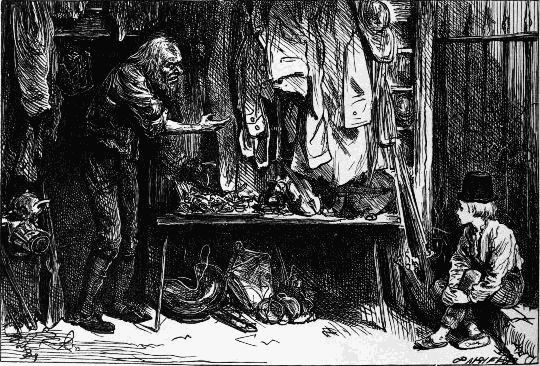 "Oh, my lungs and liver, will you go for threepence!"—Chap. xiii.
"Oh, my lungs and liver, will you go for threepence!"—Chap. xiii.
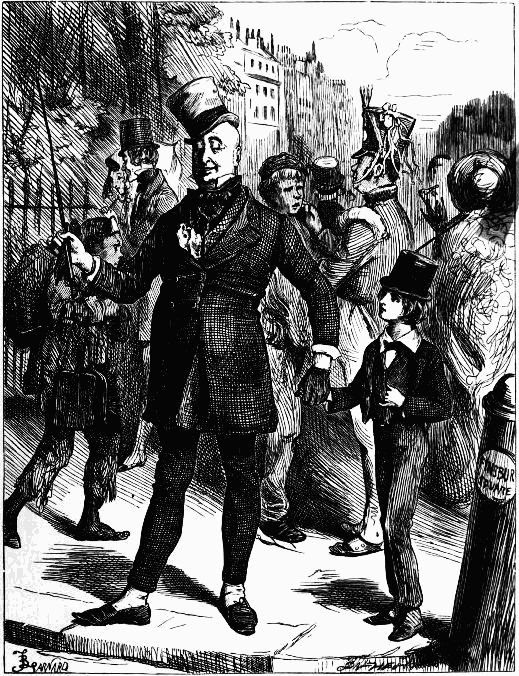 Mr. Micawber, impressing the names of the streets and the shapes of corner houses upon me as we
went along, that I might find my way back easily in the morning—Chap. xi.
Mr. Micawber, impressing the names of the streets and the shapes of corner houses upon me as we
went along, that I might find my way back easily in the morning—Chap. xi.
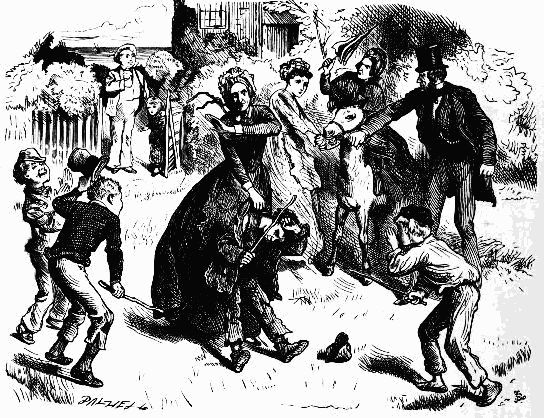
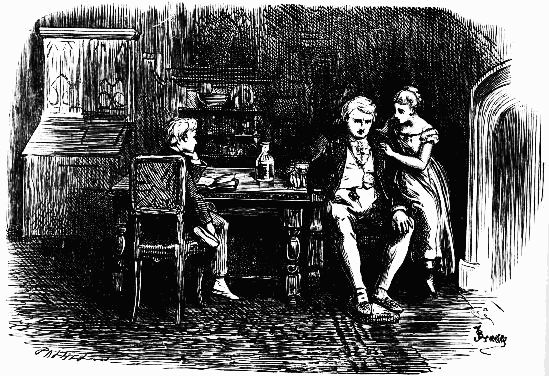 She always roused him with a question or caress—Chap. xv.
She always roused him with a question or caress—Chap. xv.
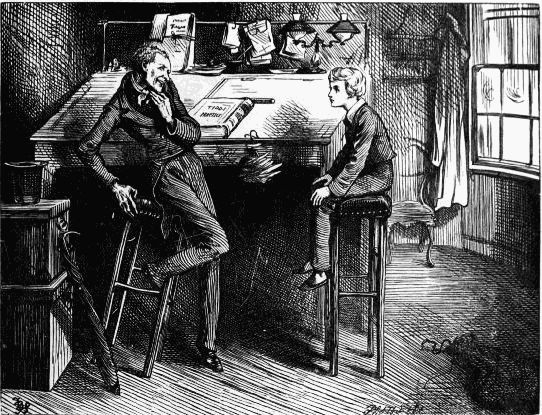
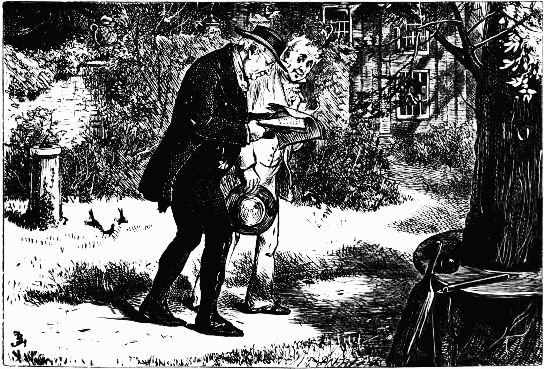 The doctor's walk—Chap. xvii.
The doctor's walk—Chap. xvii.

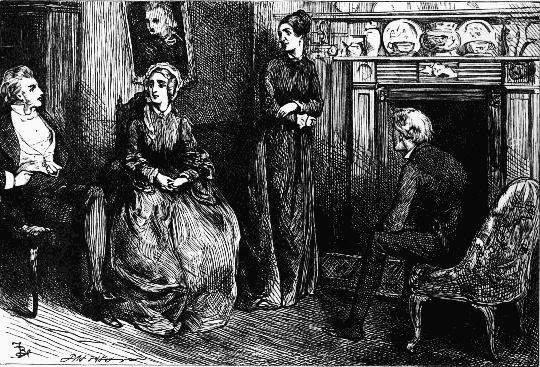 "Oh, really! you know how ignorant I am, and that I only ask for information, but isn't it always
so! I thought that kind of life was on all hands understood to be—eh!"—Chap. XX.
"Oh, really! you know how ignorant I am, and that I only ask for information, but isn't it always
so! I thought that kind of life was on all hands understood to be—eh!"—Chap. XX.
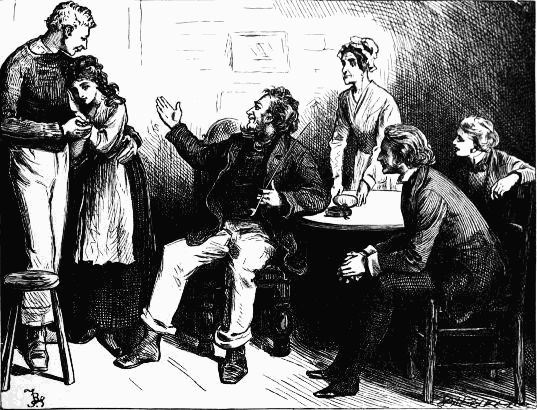
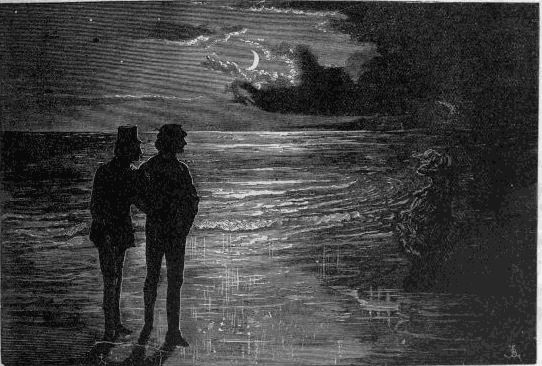 "That is a black shadow to be following the girl," said Steerforth, standing still; "what does
it mean!"—Chap. xxii.
"That is a black shadow to be following the girl," said Steerforth, standing still; "what does
it mean!"—Chap. xxii.
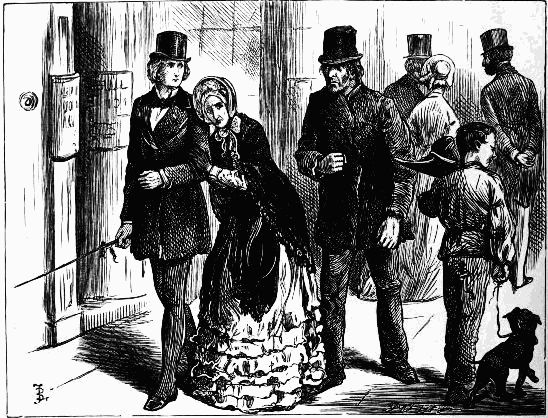
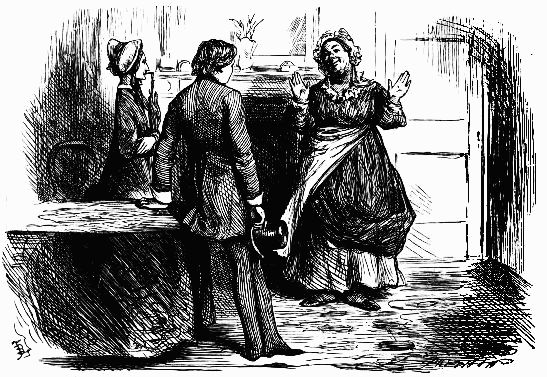 And Mrs. Crupp said, thank heaven she had now found summun she could care for—Chap. xxiii.
And Mrs. Crupp said, thank heaven she had now found summun she could care for—Chap. xxiii.
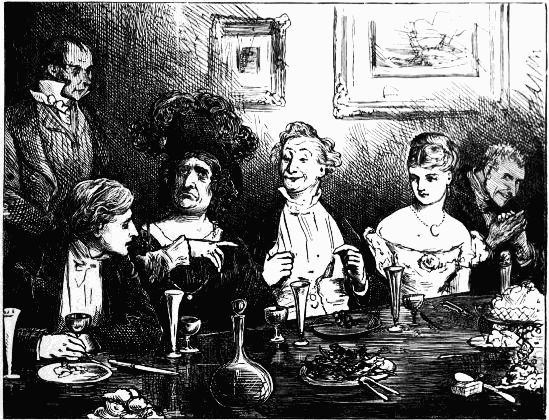
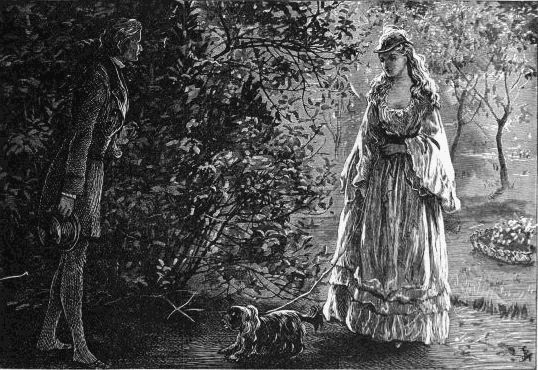 Dora—Chap. xxvi.
Dora—Chap. xxvi.
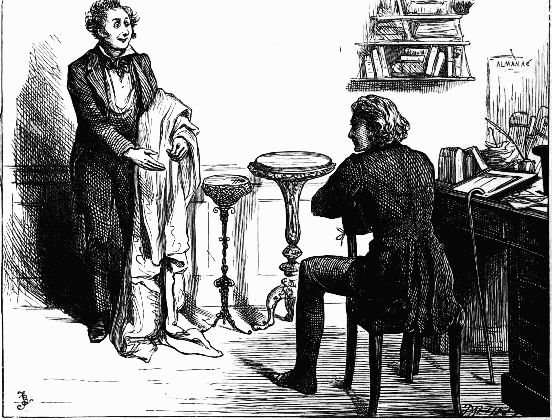
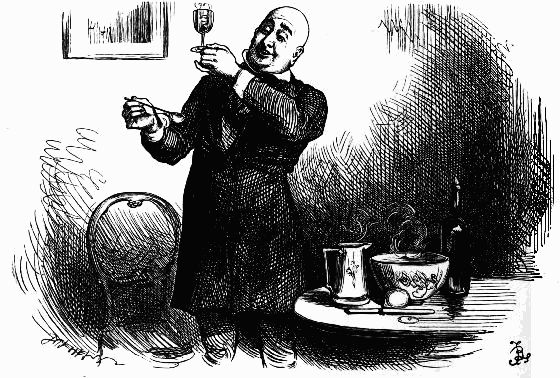 Mr. Micawber in his element—Chap. xxviii.
Mr. Micawber in his element—Chap. xxviii.
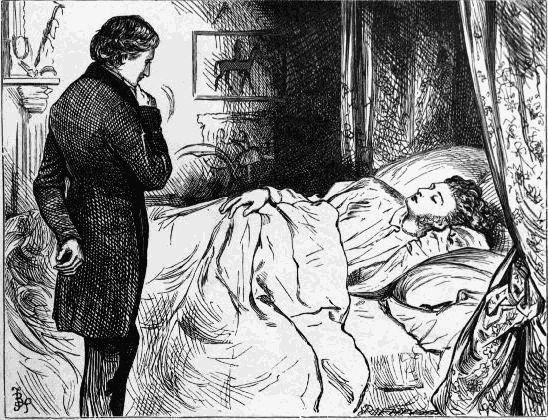
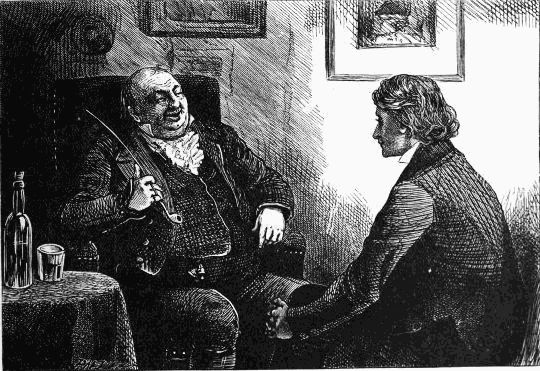 "Give me breath enough," says I to my daughter Minnie, "and I'll find passages, my dear"—Chap. xxx
"Give me breath enough," says I to my daughter Minnie, "and I'll find passages, my dear"—Chap. xxx
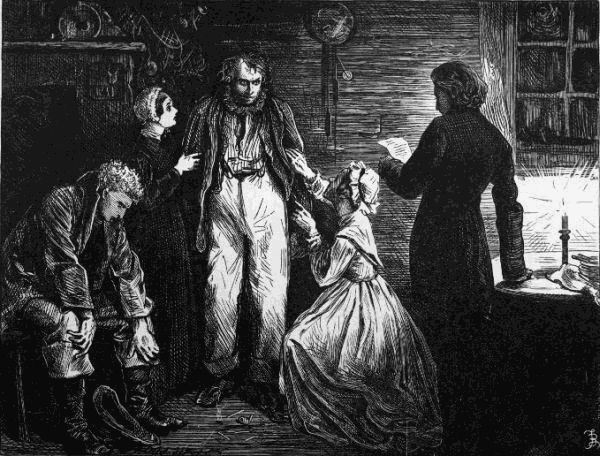 "Read it, sir," he said, in a low shivering voice. "Slow, please. I doen't know as I can understand"—Chap. xxxi.
"Read it, sir," he said, in a low shivering voice. "Slow, please. I doen't know as I can understand"—Chap. xxxi.
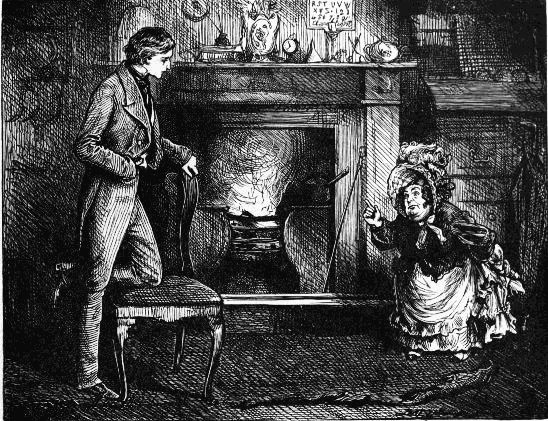
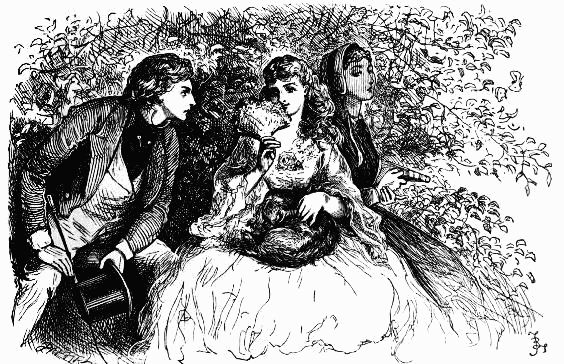 Under the lilac tree—Chap. xxxiii.
Under the lilac tree—Chap. xxxiii.
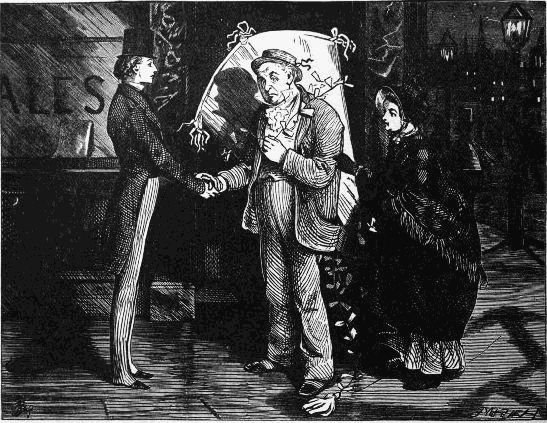
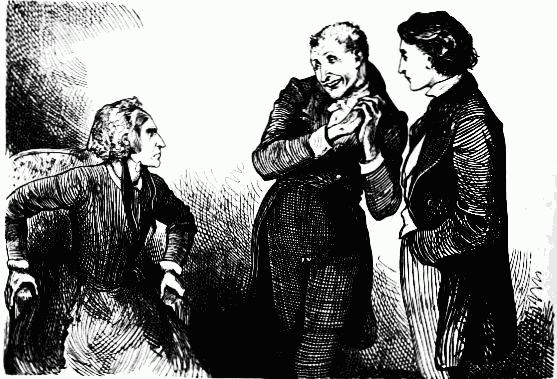 "Deuce take the man!" said my aunt sternly, "what's he about! don't be galvanic, sir!"—Chap. xxxv.
"Deuce take the man!" said my aunt sternly, "what's he about! don't be galvanic, sir!"—Chap. xxxv.
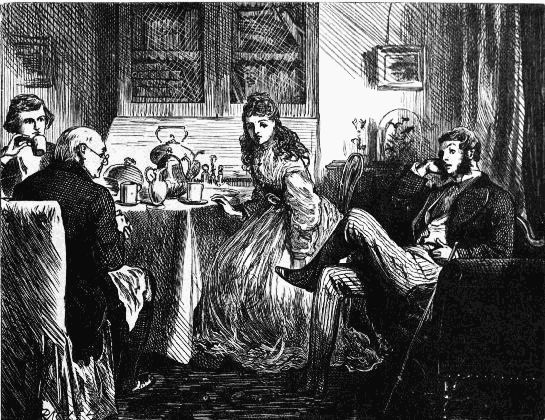
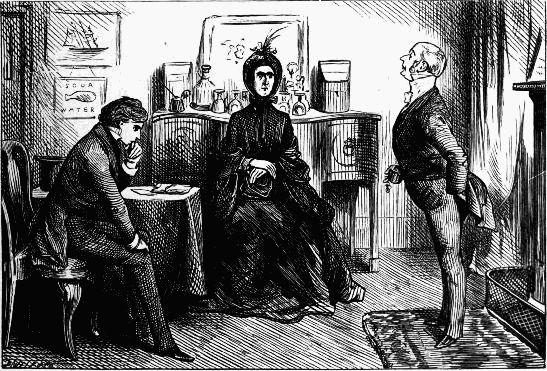 "You have heard Miss Murdstone," said Mr. Spenlow, turning to me. "I beg to ask Mr. Copperfield,
if you have anything to say in reply!"—Chap. xxxviii.
"You have heard Miss Murdstone," said Mr. Spenlow, turning to me. "I beg to ask Mr. Copperfield,
if you have anything to say in reply!"—Chap. xxxviii.
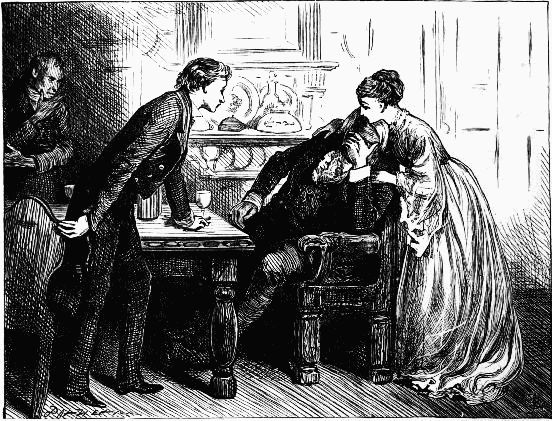
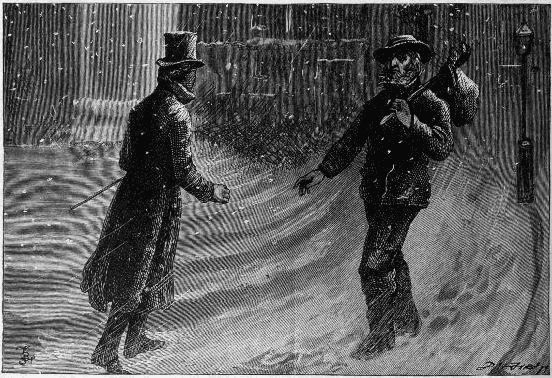 I stood face to face with Mr. Peggotty!—Chap. xl.
I stood face to face with Mr. Peggotty!—Chap. xl.
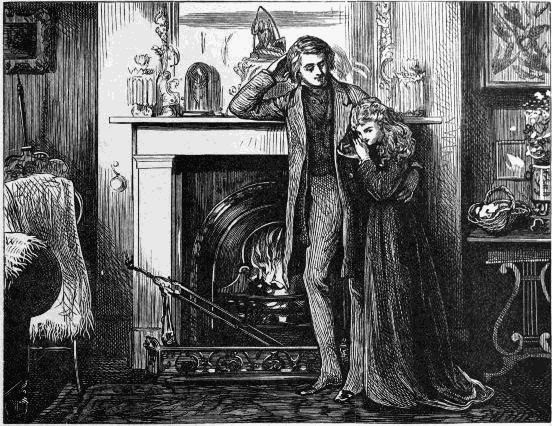
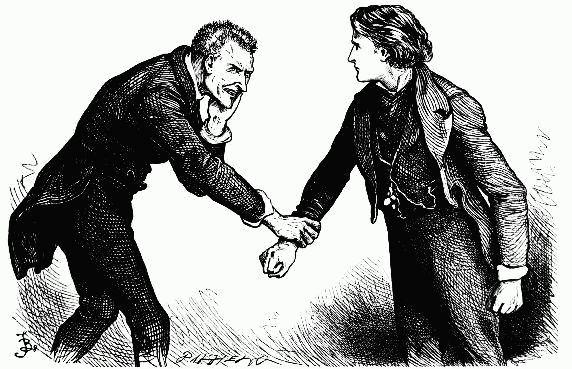 He caught the hand in his, and we stood in that connection, looking at each other—Chap. xlii.
He caught the hand in his, and we stood in that connection, looking at each other—Chap. xlii.
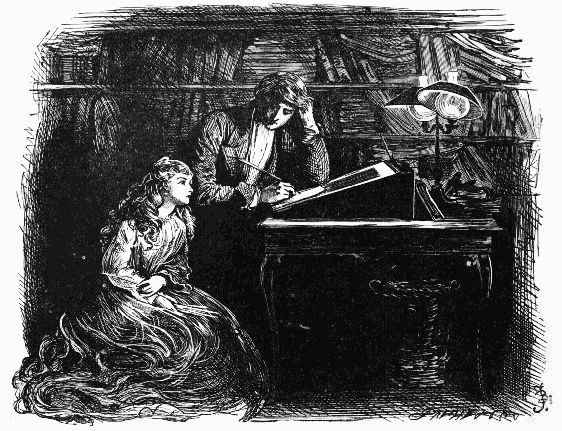
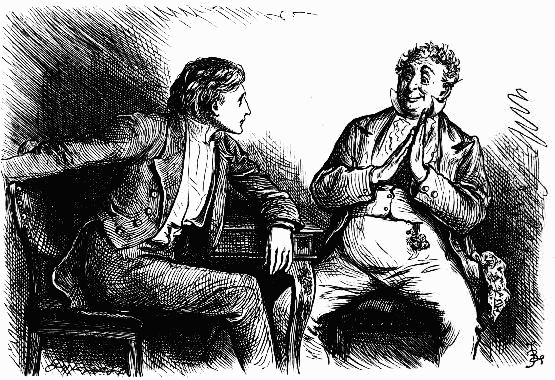 "Then, I have got it, boy!" said Mr. Dick—Chap. xlv.
"Then, I have got it, boy!" said Mr. Dick—Chap. xlv.
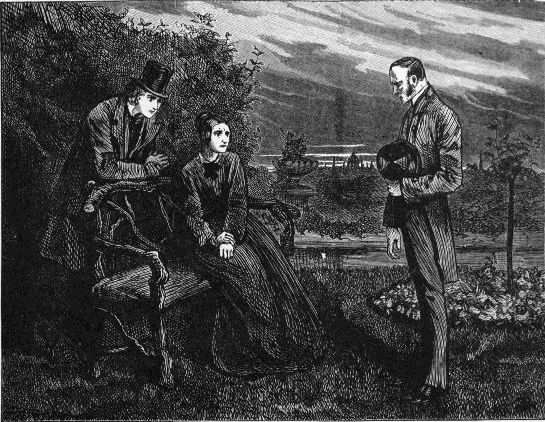
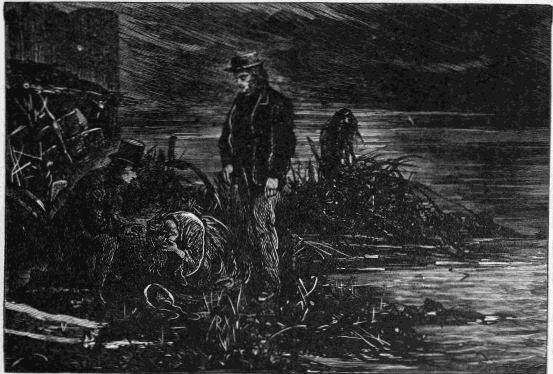 "Oh, the river!" she cried passionately. "Oh, the river!"—Chap. xlvii.
"Oh, the river!" she cried passionately. "Oh, the river!"—Chap. xlvii.
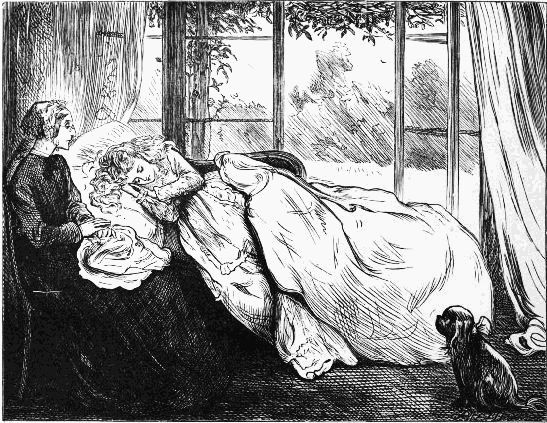
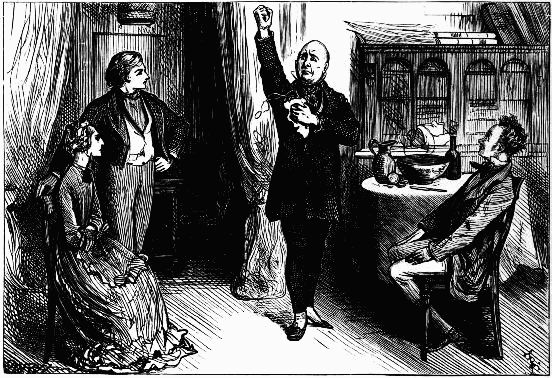 "And the name of the whole atrocious mass is—Heep!"—Chap. xlix.
"And the name of the whole atrocious mass is—Heep!"—Chap. xlix.
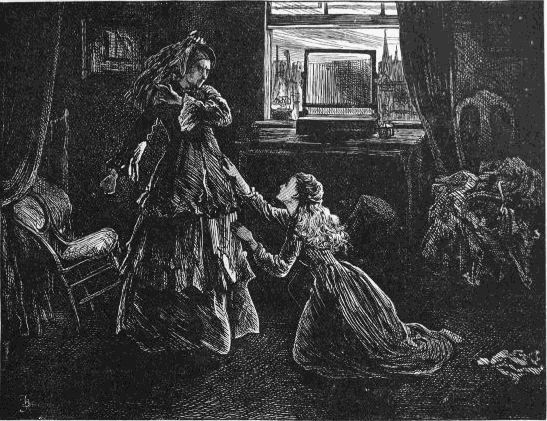
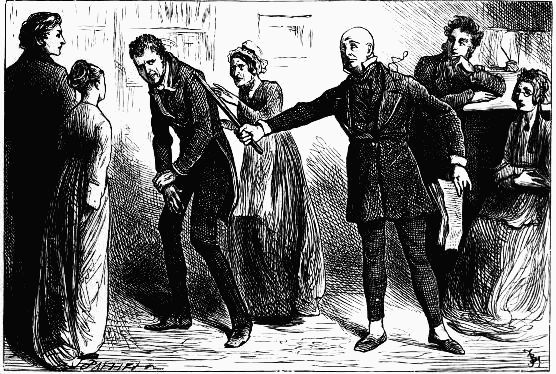 "Approach me again, you—you—you Heep of infamy," gasped Mr. Micawber, "and if your head is
human, I'll break it. Come on, come on"—Chap. lii.
"Approach me again, you—you—you Heep of infamy," gasped Mr. Micawber, "and if your head is
human, I'll break it. Come on, come on"—Chap. lii.
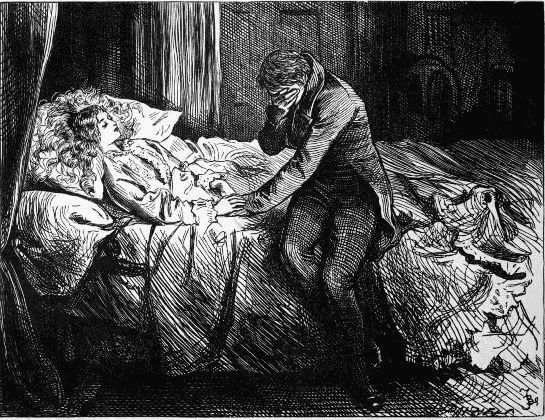
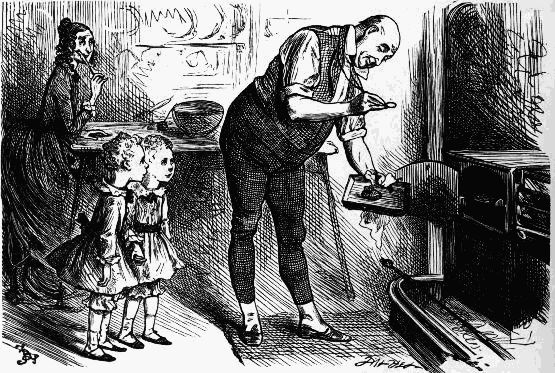 I have myself directed some attention, during the past week, to the art of baking—Chap. liv.
I have myself directed some attention, during the past week, to the art of baking—Chap. liv.
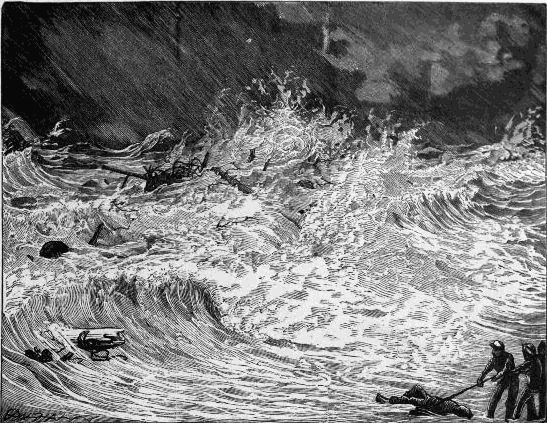
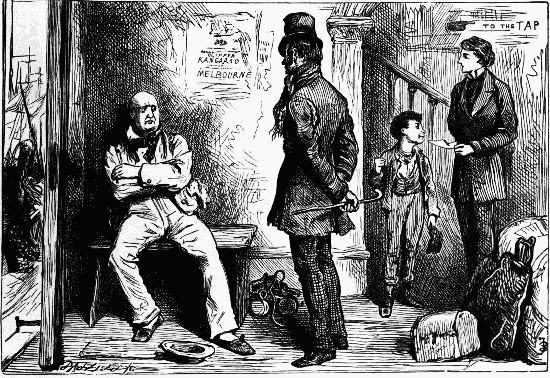 I found Mr. Micawber sitting in a corner, looking darkly at the sheriff's officer who had effected
the capture—Chap. lvii.
I found Mr. Micawber sitting in a corner, looking darkly at the sheriff's officer who had effected
the capture—Chap. lvii.
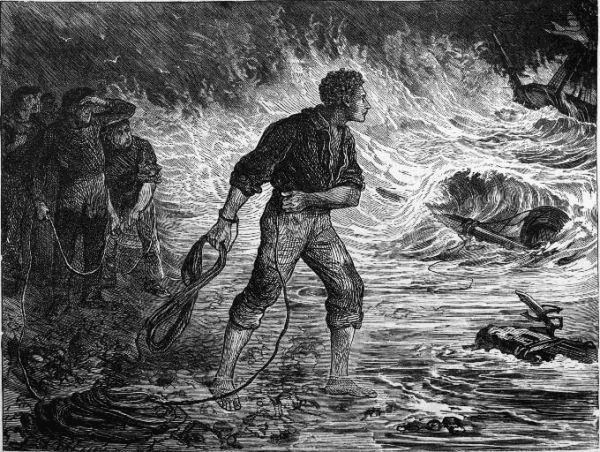 The Storm—Chap. lv.
The Storm—Chap. lv.
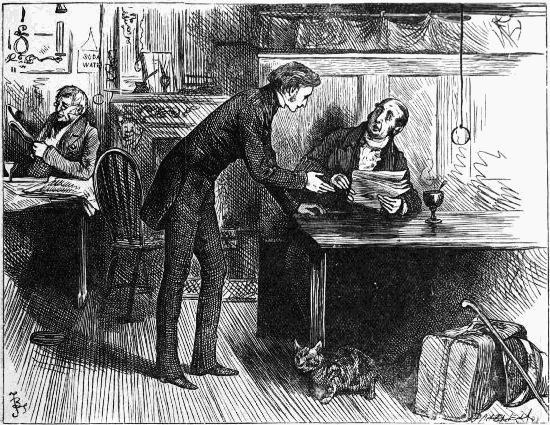
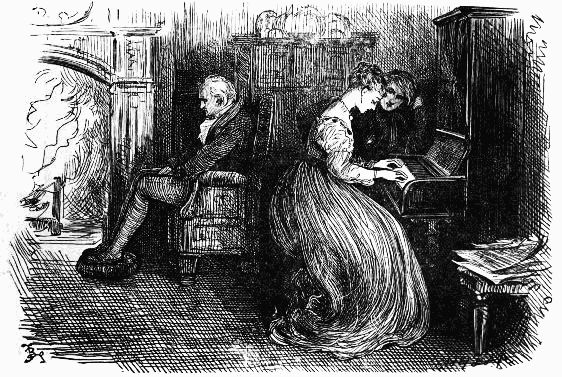 For an instant, a distressful shadow crossed her face; but, even in the start it gave me, it was
gone—Chap. lx.
For an instant, a distressful shadow crossed her face; but, even in the start it gave me, it was
gone—Chap. lx.
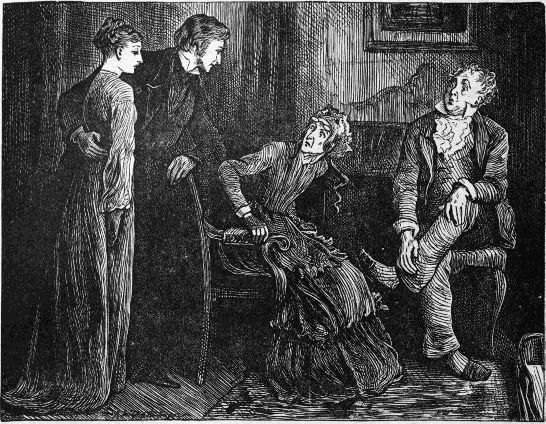
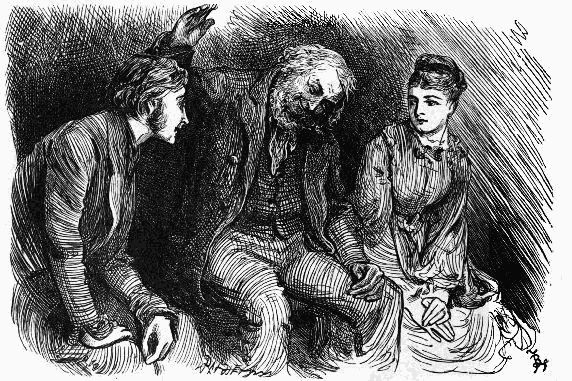 "If a ship's cook that was turning settler, Mas'r Davy, didn't make offers fur to marry Mrs.
Gummidge, I'm gormed—and I can't say no fairer than that!"—Chap, lxiii.
"If a ship's cook that was turning settler, Mas'r Davy, didn't make offers fur to marry Mrs.
Gummidge, I'm gormed—and I can't say no fairer than that!"—Chap, lxiii.
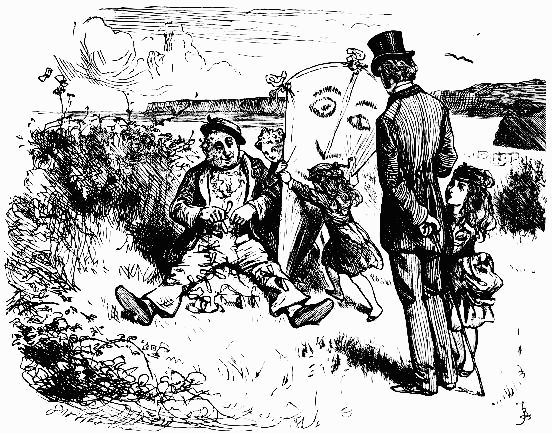 "Trotwood, you will be glad to hear that I shall finish the memorial when I have nothing else to
do, and that your aunt's the most extraordinary woman in the world, sir!"—Chap. lxiv.
"Trotwood, you will be glad to hear that I shall finish the memorial when I have nothing else to
do, and that your aunt's the most extraordinary woman in the world, sir!"—Chap. lxiv.
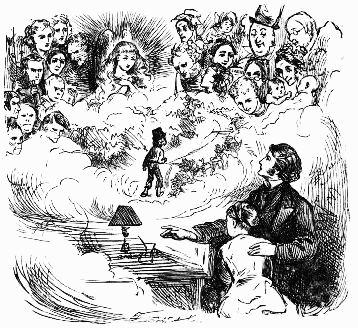 But one face, shining on me like a heavenly light by which I see all
other objects, is above them and beyond them all—Chap. lxiv.
But one face, shining on me like a heavenly light by which I see all
other objects, is above them and beyond them all—Chap. lxiv.
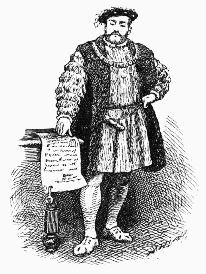
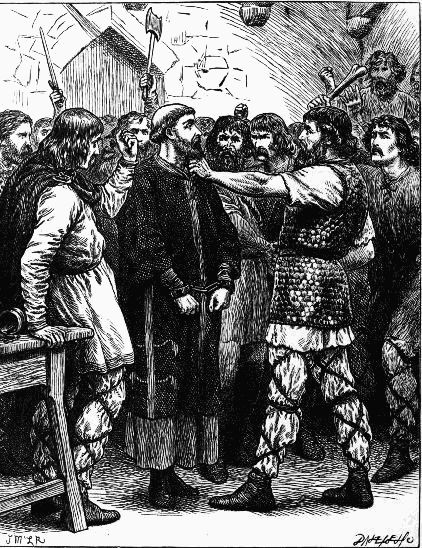 The Archbishop of Canterbury and the Danes—Chap. iv.
The Archbishop of Canterbury and the Danes—Chap. iv.
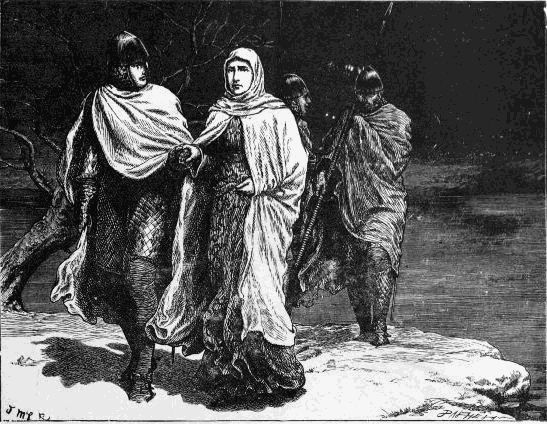
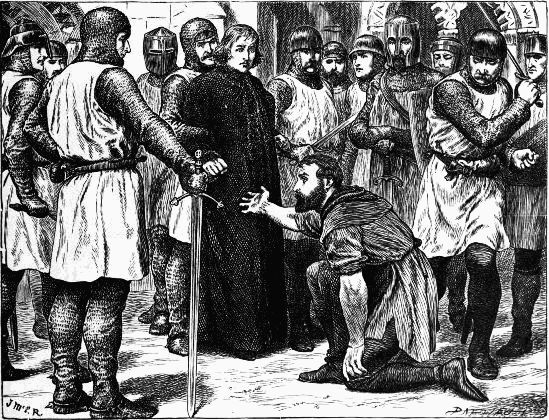 Hubert de Burgh and the Black Band—Chap. xv.
Hubert de Burgh and the Black Band—Chap. xv.
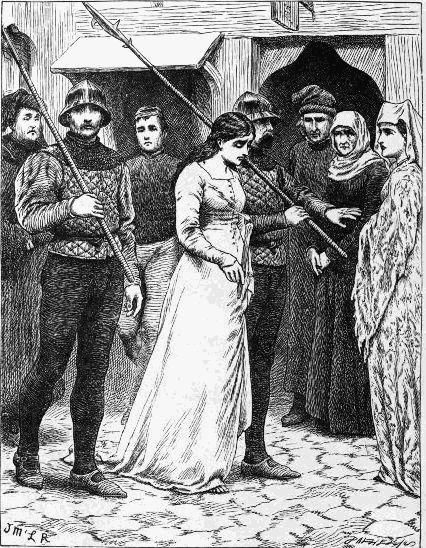 The Duchess of Gloucester doing penance—Chap. xii, Part Third
The Duchess of Gloucester doing penance—Chap. xii, Part Third
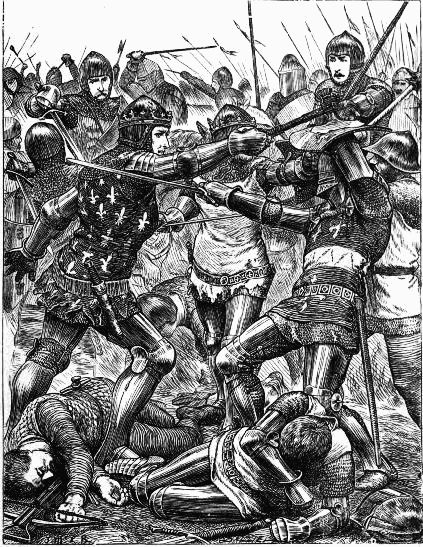 King John of France at the Battle of Poitiers—Chap. xviii.
King John of France at the Battle of Poitiers—Chap. xviii.
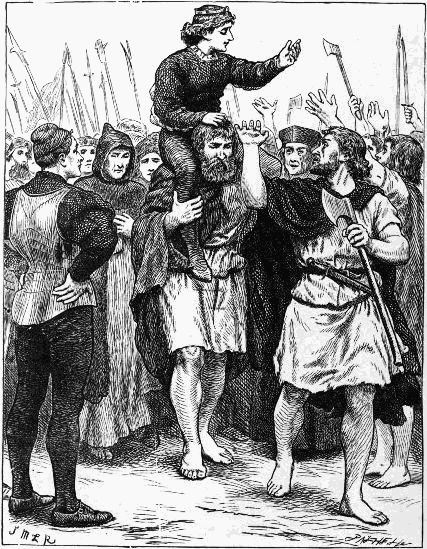 Lambert Simnel—Chap. xxvi.
Lambert Simnel—Chap. xxvi.
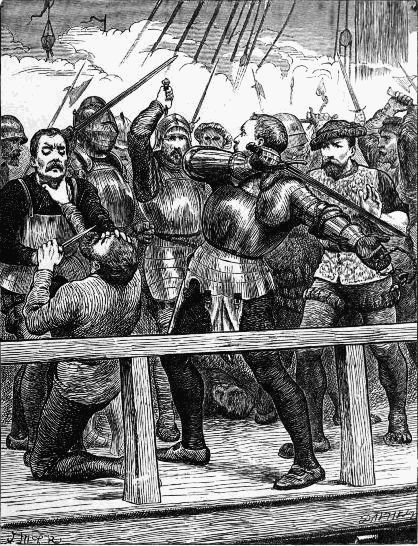 Sir Edward Howard—Chap. xxvii.
Sir Edward Howard—Chap. xxvii.
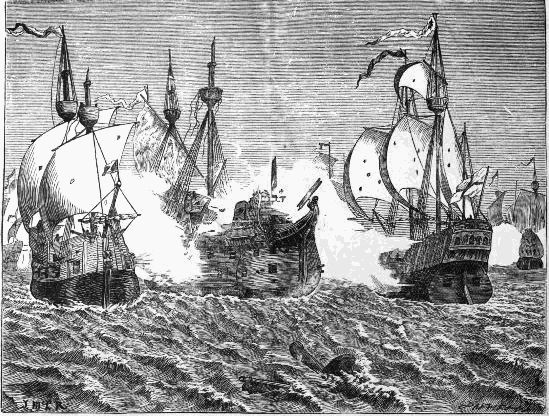
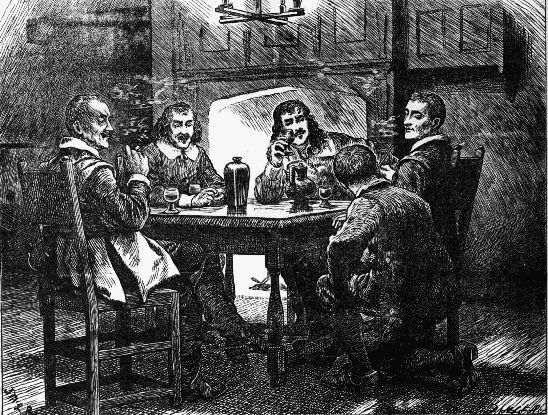 Before he went away, the landlord came behind his chair—Chap. xxxiv., First Part
Before he went away, the landlord came behind his chair—Chap. xxxiv., First Part
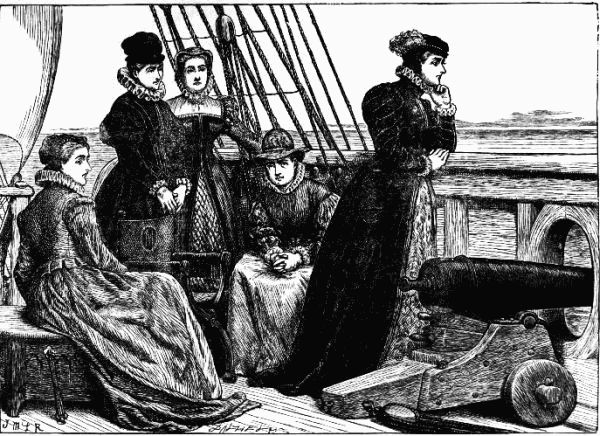 Mary Queen of Scots leaving France—Chap. xxxi.
Mary Queen of Scots leaving France—Chap. xxxi.
 The seizure of Guy Fawkes—Chap. xxxii., First Part
The seizure of Guy Fawkes—Chap. xxxii., First Part
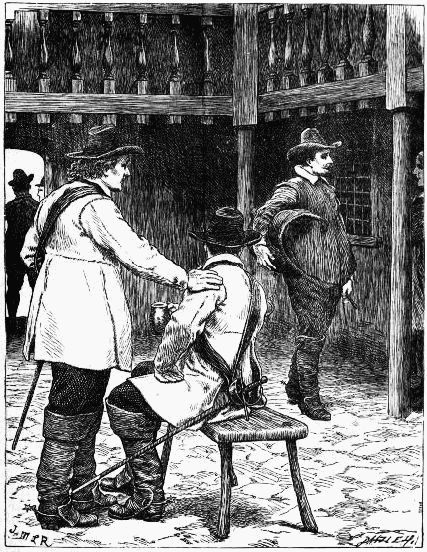 Oliver Cromwell and Ireton at the Blue Boar—Chap. xxxiii., Fourth Part
Oliver Cromwell and Ireton at the Blue Boar—Chap. xxxiii., Fourth Part
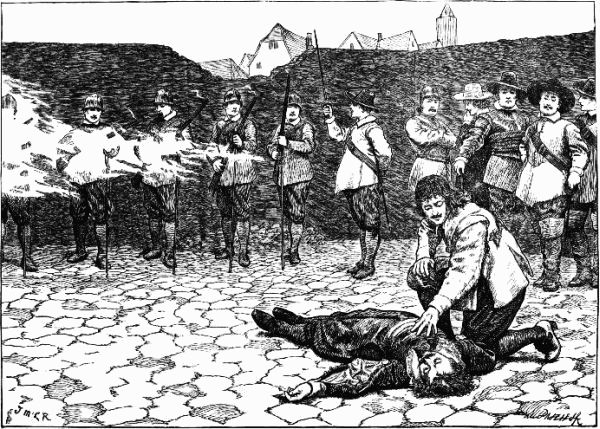 Execution of Sir Charles Lucas and Sir George Lisle—Chap. xxxiii., Fourth Part
Execution of Sir Charles Lucas and Sir George Lisle—Chap. xxxiii., Fourth Part
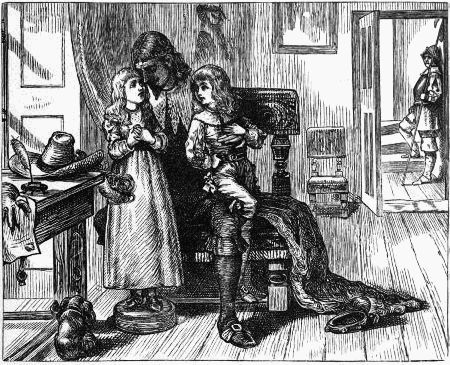 Charles the First taking leave of his children—Chap, xxxiii., Fourth Part
Charles the First taking leave of his children—Chap, xxxiii., Fourth Part
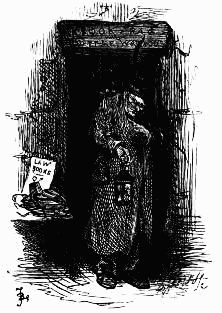
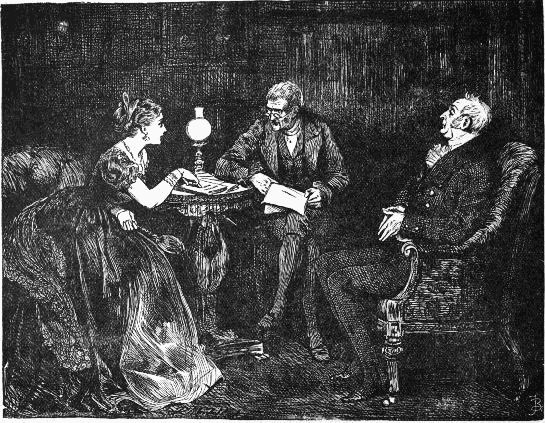
 I am introduced to Conversation Kenge—Chap. iii.
I am introduced to Conversation Kenge—Chap. iii.
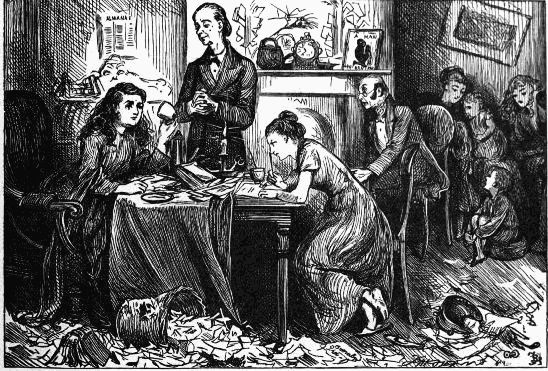
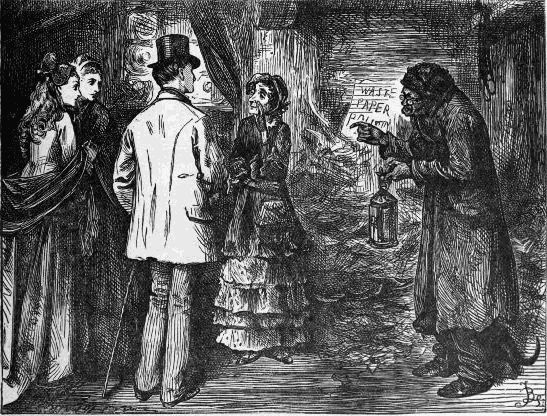 The Lord Chancellor relates the death of Tom Jarndyce—Chap. v.
The Lord Chancellor relates the death of Tom Jarndyce—Chap. v.
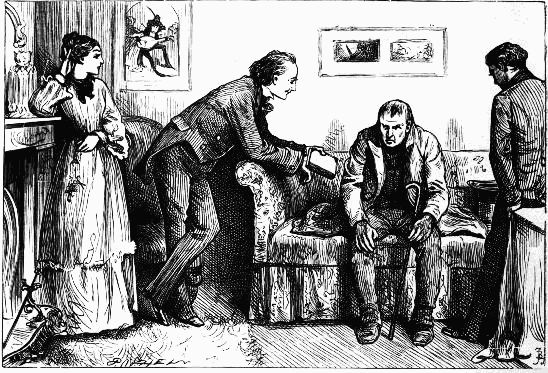
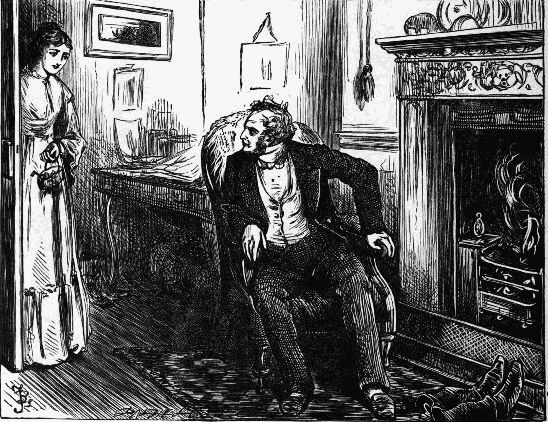 The Growlery—Chap. viii.
The Growlery—Chap. viii.
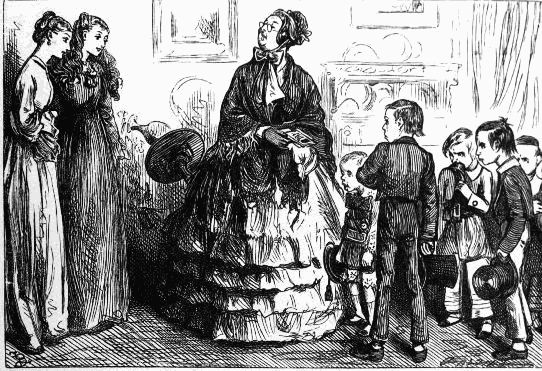
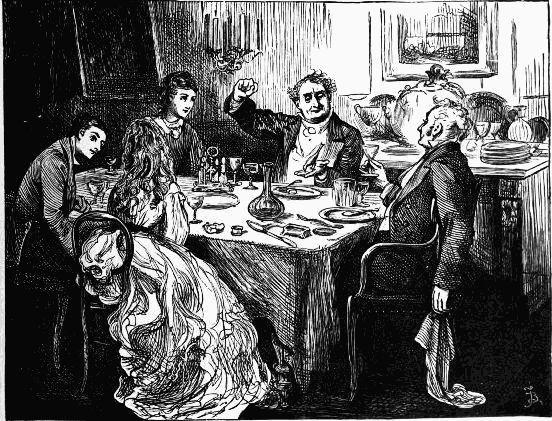 "If I were in your place I would seize every Master in Chancery by the throat to-morrow morning,
and shake him until his money rolled out of his pockets, and his bones rattled in his skin"—Chap. ix.
"If I were in your place I would seize every Master in Chancery by the throat to-morrow morning,
and shake him until his money rolled out of his pockets, and his bones rattled in his skin"—Chap. ix.
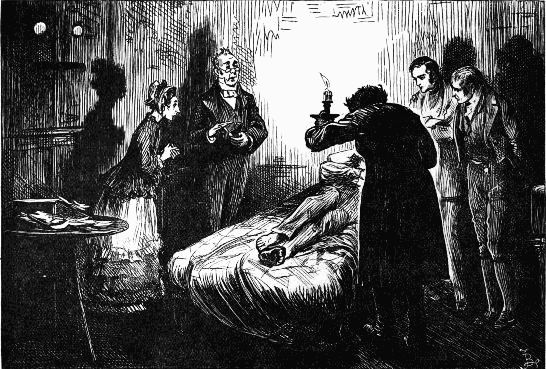
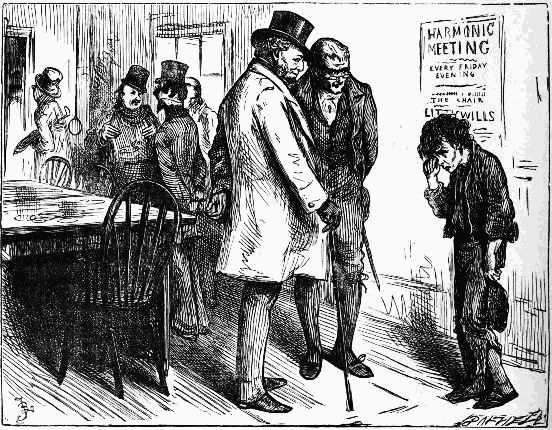 "He wos wery good to me, he wos!"—Chap. xi.
"He wos wery good to me, he wos!"—Chap. xi.
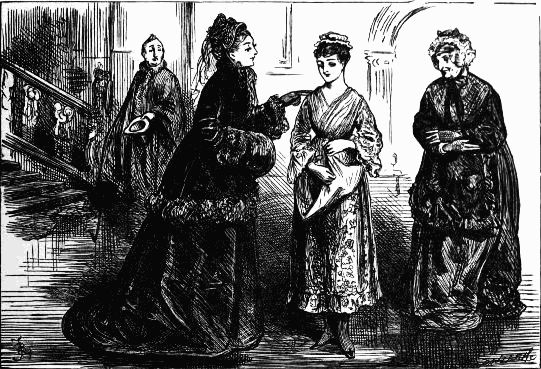
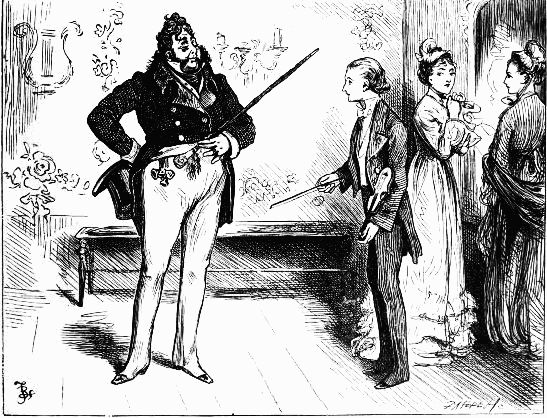 Deportment—Chap. xiv.
Deportment—Chap. xiv.
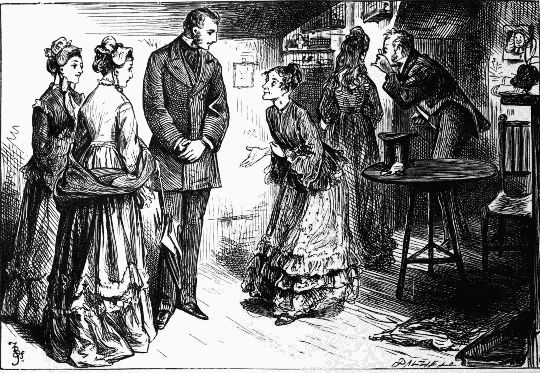
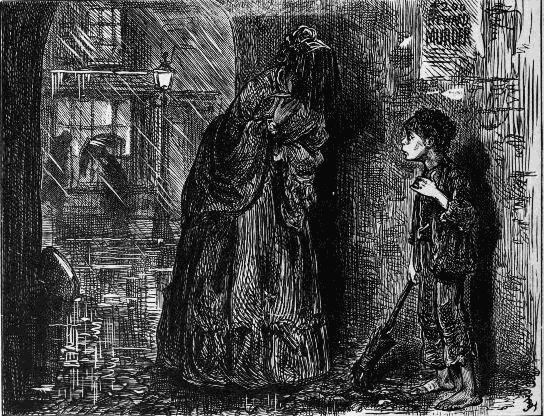 "'I'm fly," says Jo. "But fen larks, you know. Stow hooking it"—Chap. xvi.
"'I'm fly," says Jo. "But fen larks, you know. Stow hooking it"—Chap. xvi.
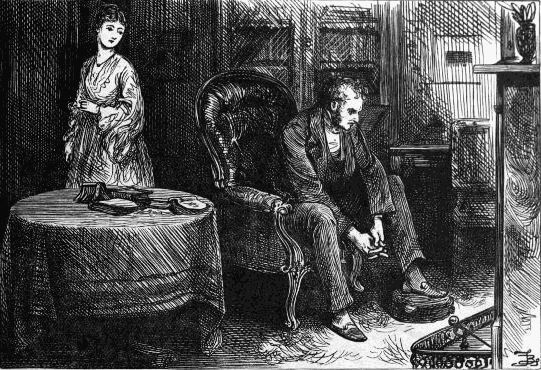
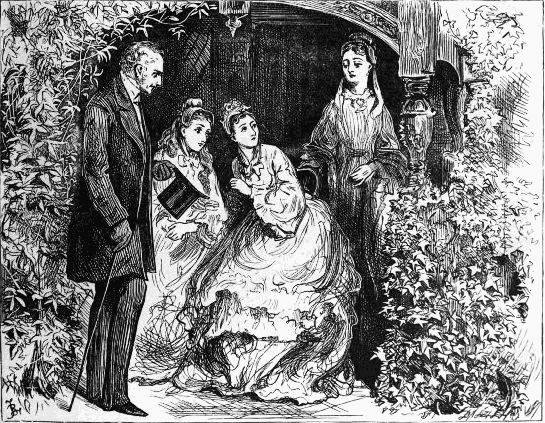 "I have frightened you!" she said—Chap. xviii.
"I have frightened you!" she said—Chap. xviii.
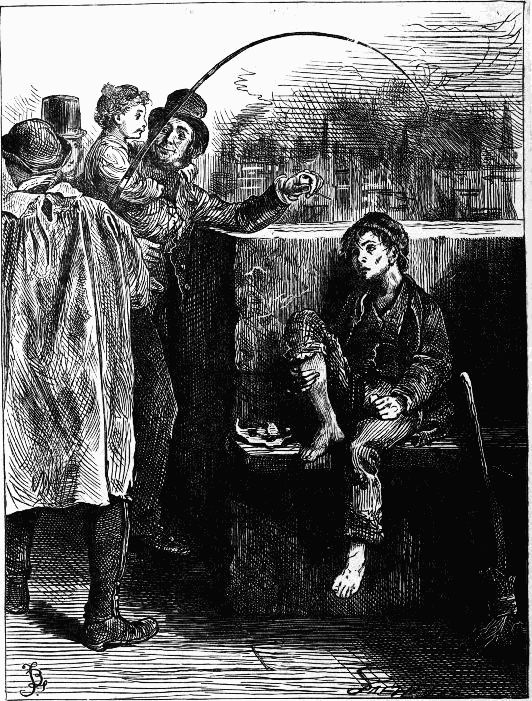 "Jo"—Chap. xvi.
"Jo"—Chap. xvi.
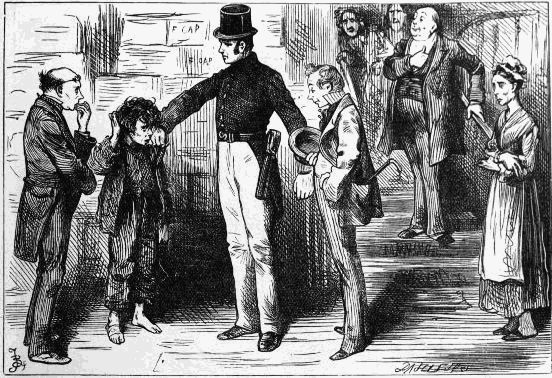
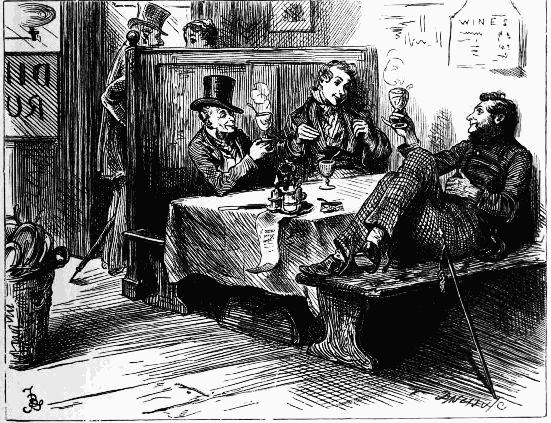 "I am grown up, now, Guppy. I have arrived at maturity"—Chap. xx.
"I am grown up, now, Guppy. I have arrived at maturity"—Chap. xx.
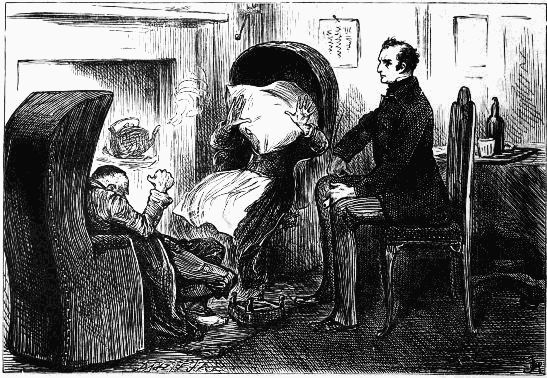
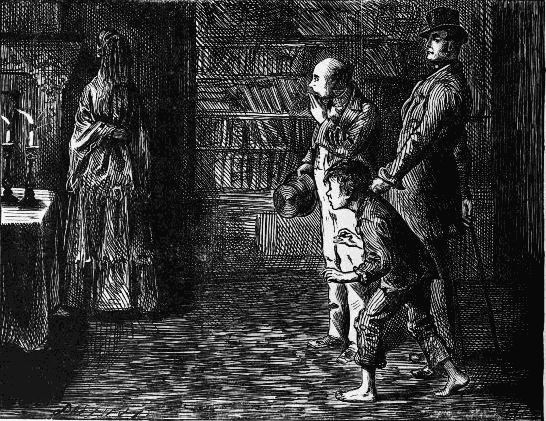 "There she is!" cries Jo—Chap. xxii.
"There she is!" cries Jo—Chap. xxii.
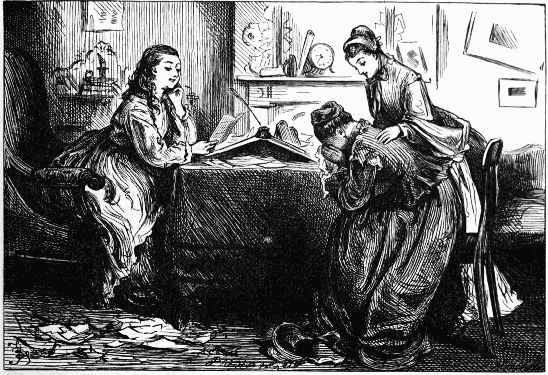
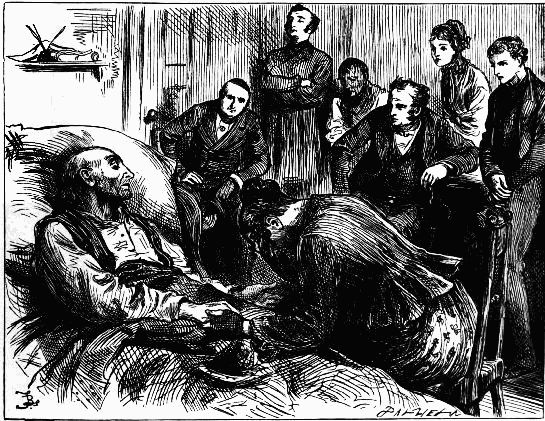 "Of all my old associations, of all my old pursuits and hopes, of all the living and the dead
world, this one poor soul alone comes natural to me, and I am fit for"—Chap. xxiv
"Of all my old associations, of all my old pursuits and hopes, of all the living and the dead
world, this one poor soul alone comes natural to me, and I am fit for"—Chap. xxiv
.
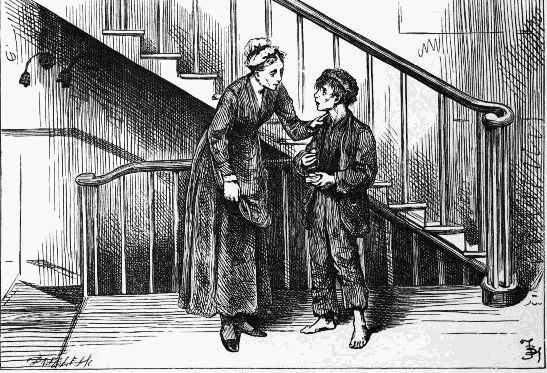
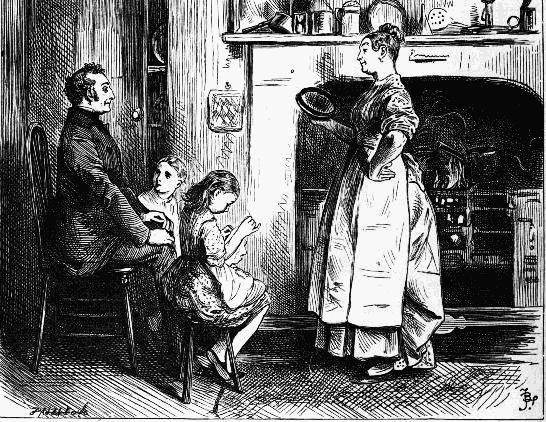 "I believe you!" says Mrs. Bagnet. "He's a Briton. That's what Woolwich is. A Briton!"—Chap. xxvii.
"I believe you!" says Mrs. Bagnet. "He's a Briton. That's what Woolwich is. A Briton!"—Chap. xxvii.
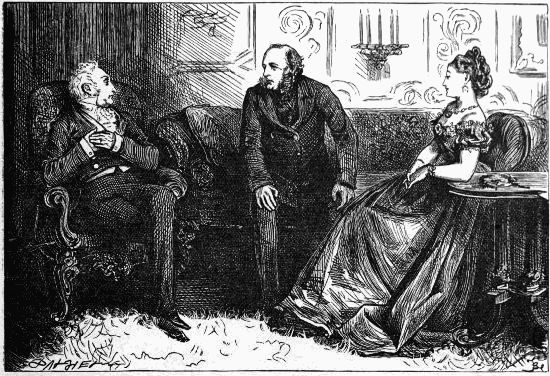
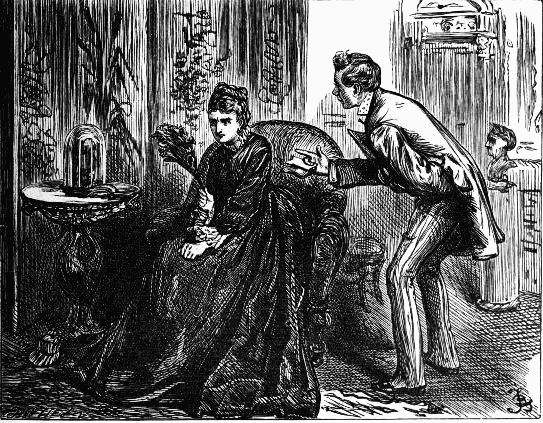 Mr. Guppy's catechism—Chap. xxix.
Mr. Guppy's catechism—Chap. xxix.
 "O my child, O my child!"—Chap. xxix.
"O my child, O my child!"—Chap. xxix.
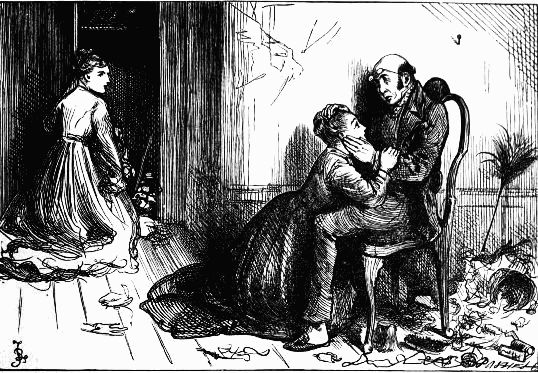
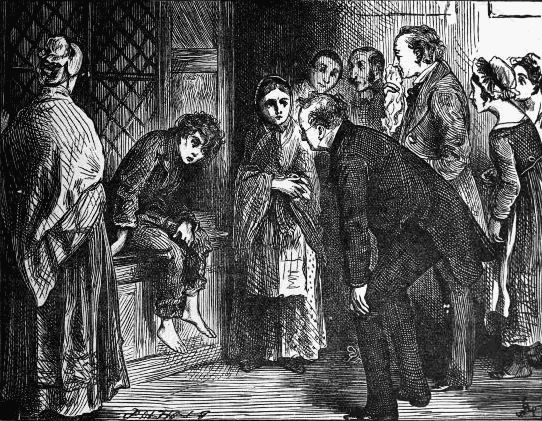 And he shivered in the window-seat with Charley standing by him, like some wounded animal that
had been found in a ditch—Chap. xxx.
And he shivered in the window-seat with Charley standing by him, like some wounded animal that
had been found in a ditch—Chap. xxx.
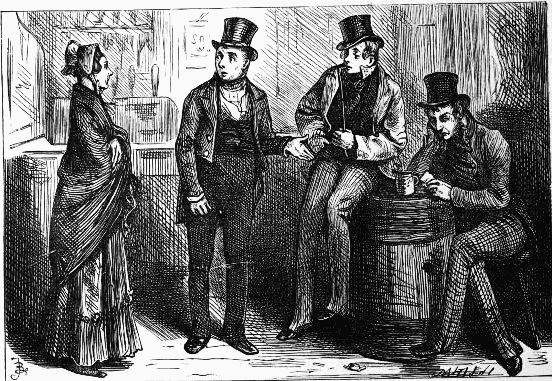
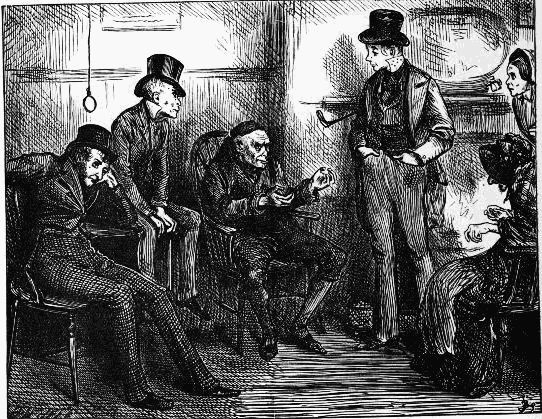 "I have come down," repeats Grandfather Smallweed, hooking the air towards him with all his ten
fingers at once, "to look after the property"—Chap. xxxiii.
"I have come down," repeats Grandfather Smallweed, hooking the air towards him with all his ten
fingers at once, "to look after the property"—Chap. xxxiii.
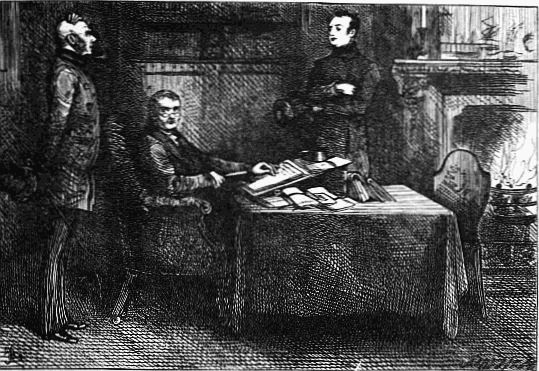
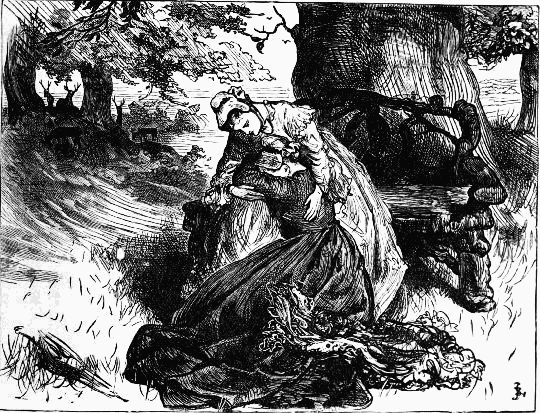 My mother—Chap. xxxvi.
My mother—Chap. xxxvi.
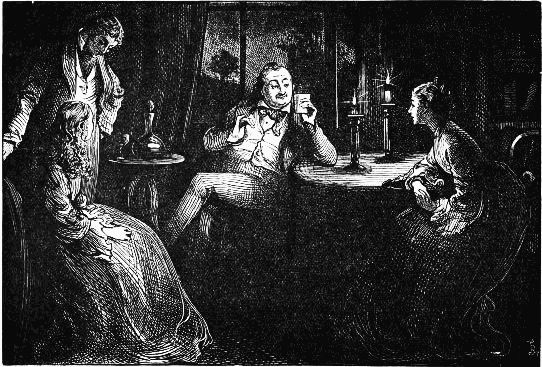
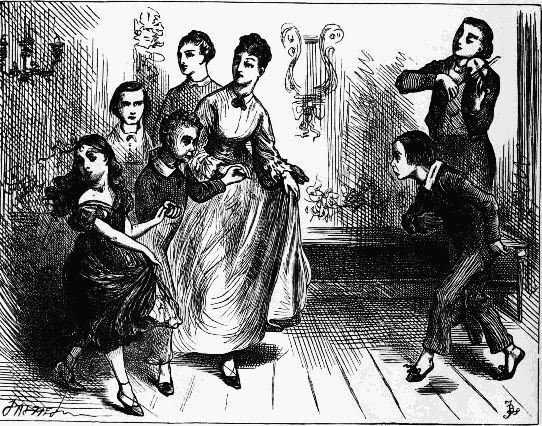 We danced for an hour with great gravity—Chap. xxxviii.
We danced for an hour with great gravity—Chap. xxxviii.
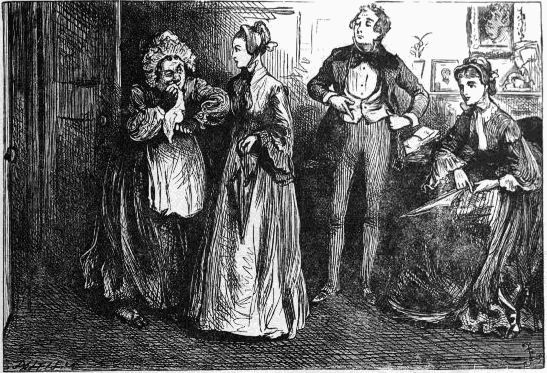
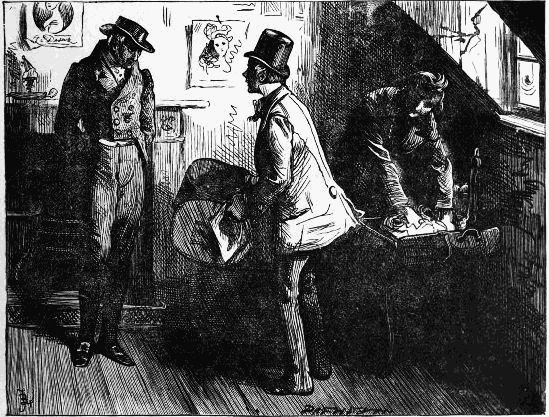 "You are to be congratulated, Mr. Guppy, you are a fortunate young man, sir"—Chap. xxxix.
"You are to be congratulated, Mr. Guppy, you are a fortunate young man, sir"—Chap. xxxix.
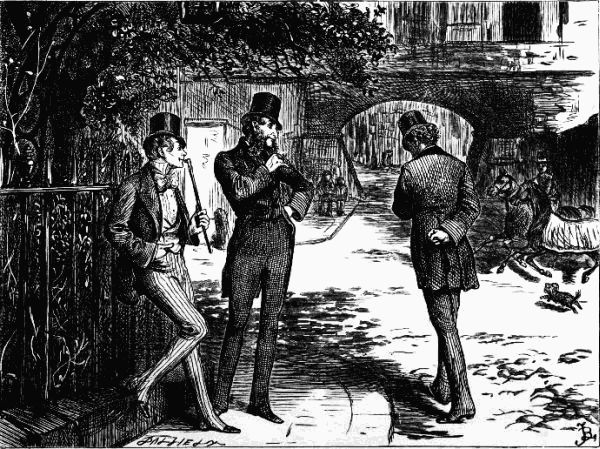 Under the Lincoln's Inn Trees—Chap. xxxix
Under the Lincoln's Inn Trees—Chap. xxxix

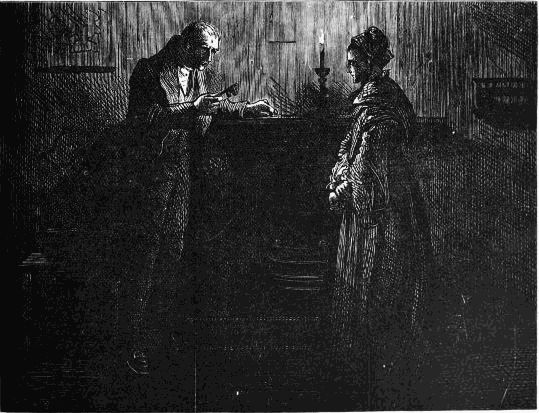 "Turns the key upon her, mistress," illustrating with the cellar key—Chap. xlii.
"Turns the key upon her, mistress," illustrating with the cellar key—Chap. xlii.
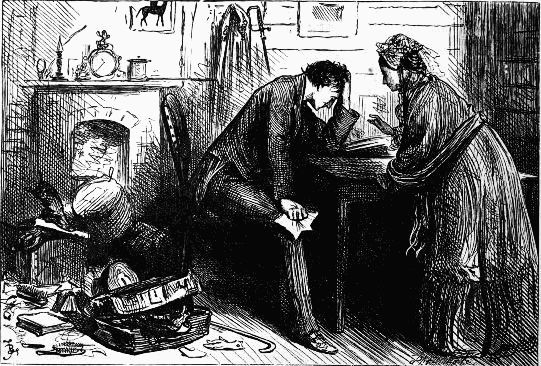
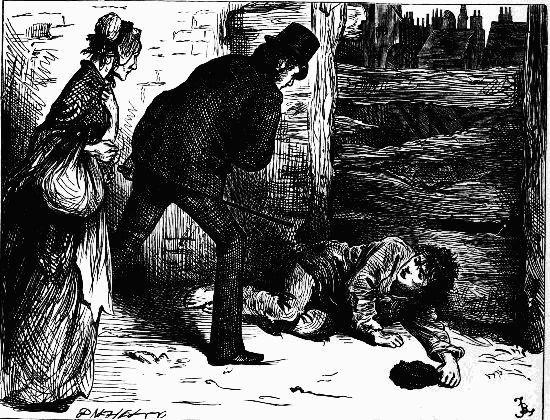 Here, against a hoarding of decaying timber, he is brought to bay—Chap. xlvi.
Here, against a hoarding of decaying timber, he is brought to bay—Chap. xlvi.
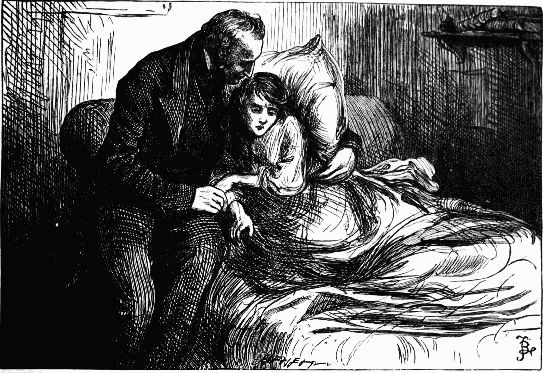
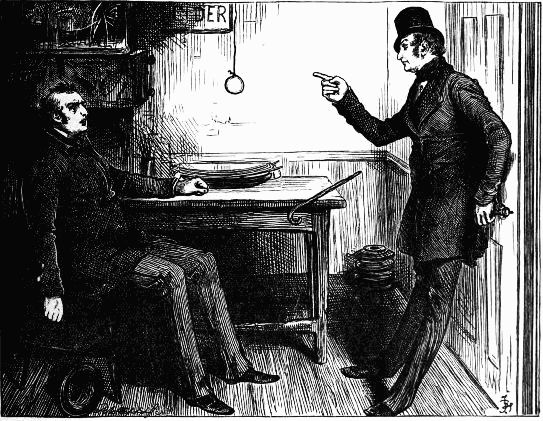 Mr. Bucket urging a sensible view of the case with his fat forefinger—Chap. xlix.
Mr. Bucket urging a sensible view of the case with his fat forefinger—Chap. xlix.
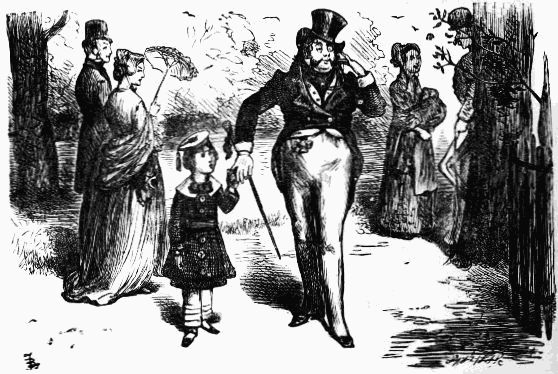
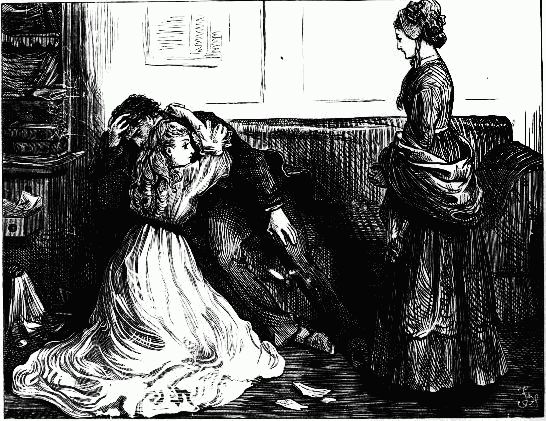 "Esther, dear," she said very quietly, "I am not going home again"—Chap. li.
"Esther, dear," she said very quietly, "I am not going home again"—Chap. li.
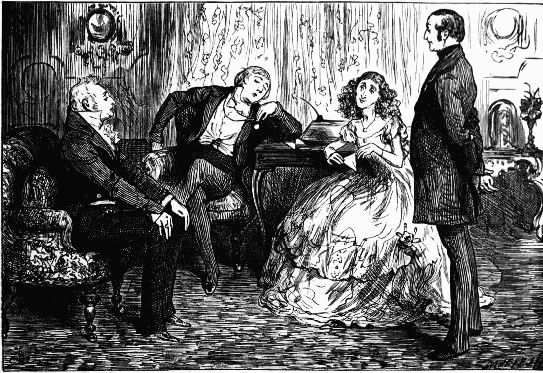
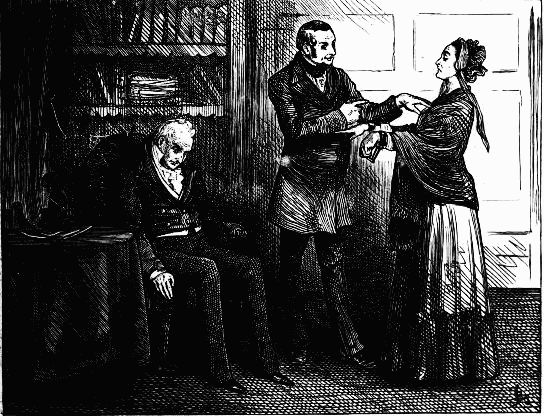 "Can you make a haughty gentleman of him . . . the poor infant!"—Chap. liv.
"Can you make a haughty gentleman of him . . . the poor infant!"—Chap. liv.
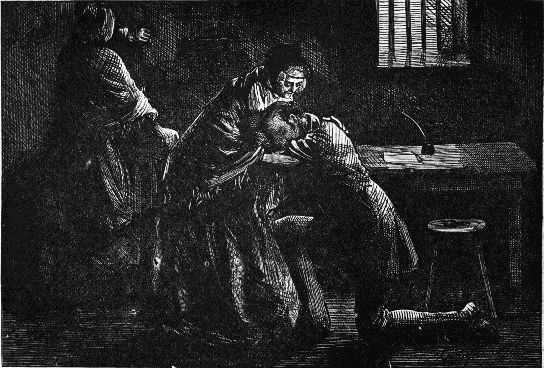
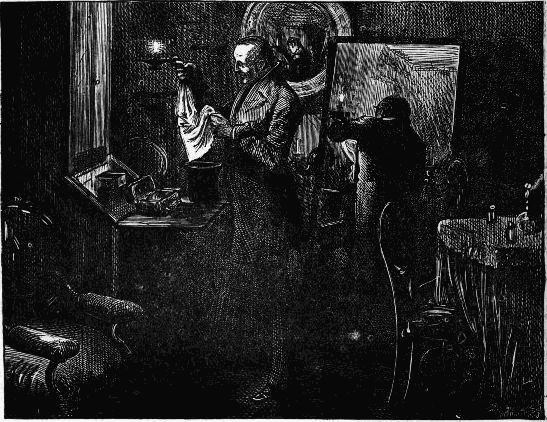 Mr. Bucket in Lady Dedlock's boudoir—Chap. lvi.
Mr. Bucket in Lady Dedlock's boudoir—Chap. lvi.
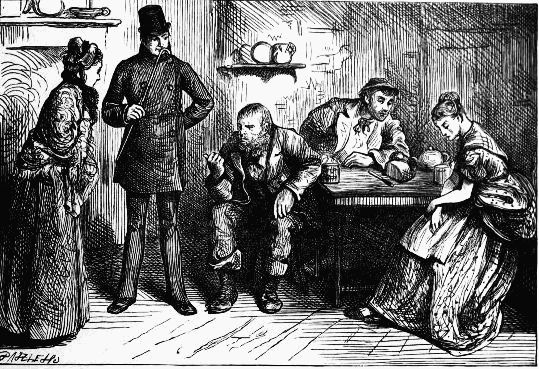
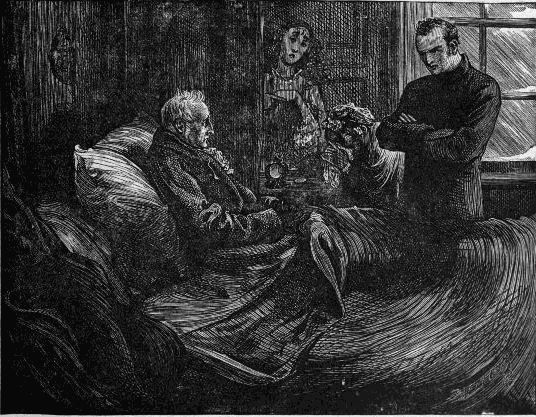 The old housekeeper weeping silently; Volumnia in the greatest agitation, with the freshest bloom
on her cheeks; the trooper with his arms folded and his head a little bent, respectfully attentive—Chap. lviii.
The old housekeeper weeping silently; Volumnia in the greatest agitation, with the freshest bloom
on her cheeks; the trooper with his arms folded and his head a little bent, respectfully attentive—Chap. lviii.
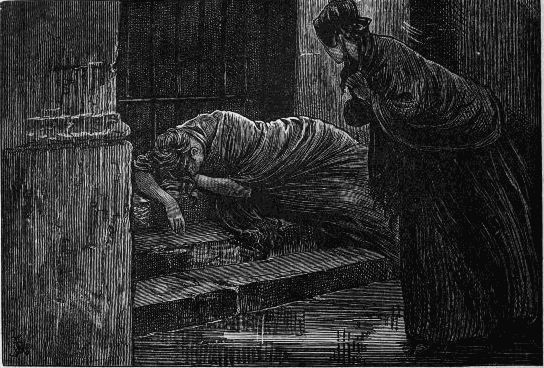
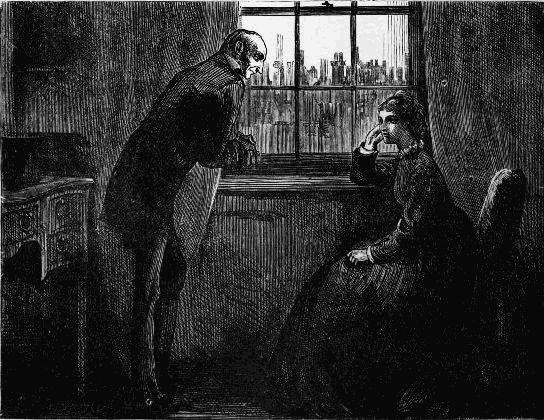 "Miss Summerson," said Mr. Vholes, very slowly rubbing his gloved hands, . . . . "this was an ill-advised
marriage of Mr. C's"—Chap. lx.
"Miss Summerson," said Mr. Vholes, very slowly rubbing his gloved hands, . . . . "this was an ill-advised
marriage of Mr. C's"—Chap. lx.
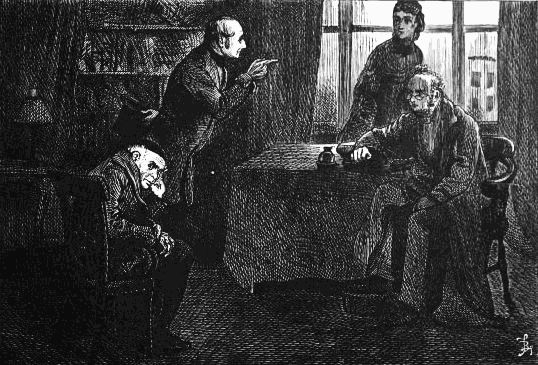
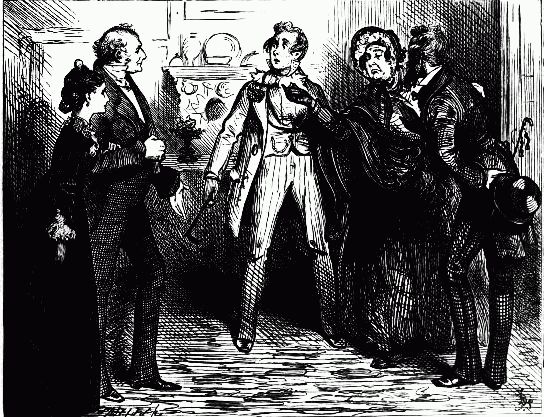 "Get out with you. If we ain't good enough for you, go and procure somebody that is good enough.
Go along and find 'em"—Chap. lxiv.
"Get out with you. If we ain't good enough for you, go and procure somebody that is good enough.
Go along and find 'em"—Chap. lxiv.
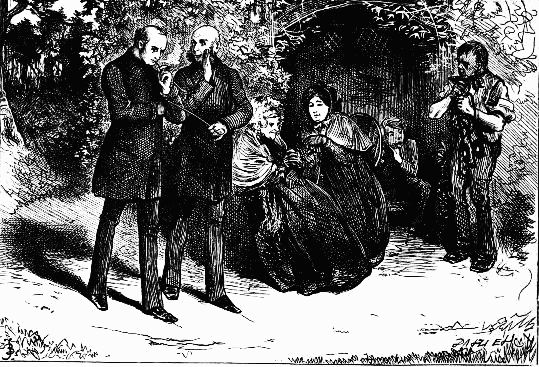
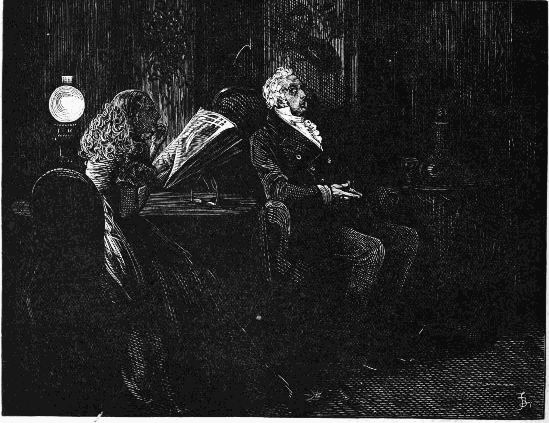 Volumnia's devotion to Sir Leicester—Chap. lxvi.
Volumnia's devotion to Sir Leicester—Chap. lxvi.
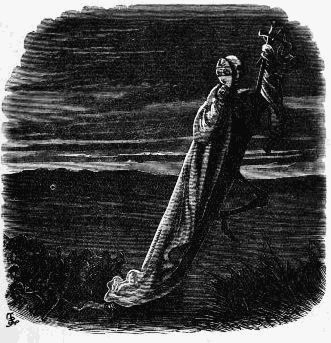
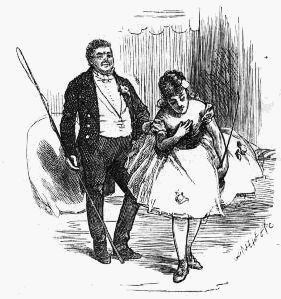
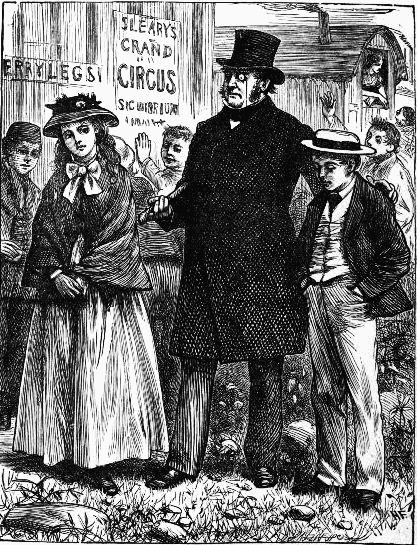 "Louisa!! Thomas!"—Chap. iii.
"Louisa!! Thomas!"—Chap. iii.
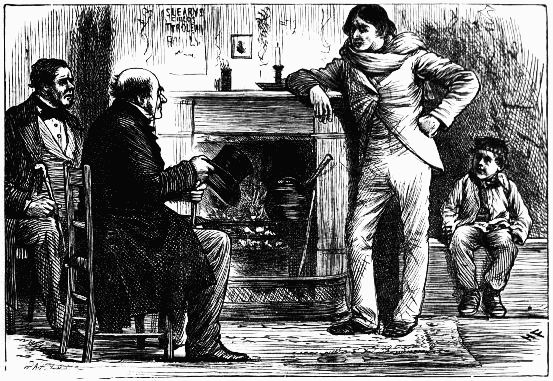
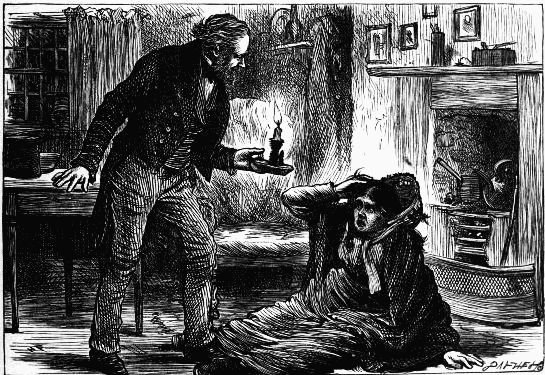 "Heaven's mercy, woman!" he cried, falling farther off from the figure, "Hast thou come back
agen!"—Chap. x.
"Heaven's mercy, woman!" he cried, falling farther off from the figure, "Hast thou come back
agen!"—Chap. x.
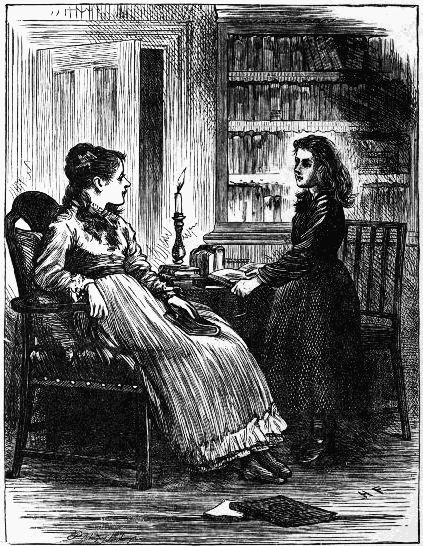 "It would be a fine thing to be you, Miss Louisa!"—Chap. ix.
"It would be a fine thing to be you, Miss Louisa!"—Chap. ix.
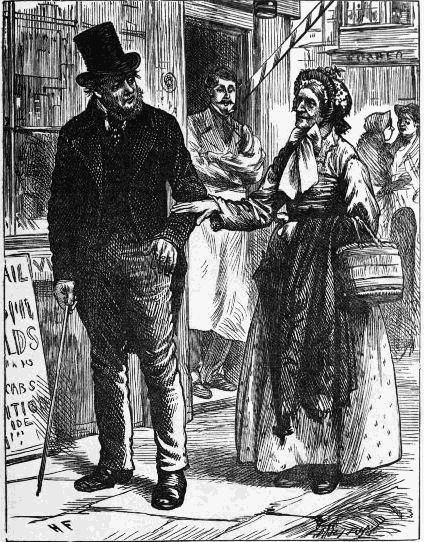 He felt a touch upon his arm—Chap. xii.
He felt a touch upon his arm—Chap. xii.
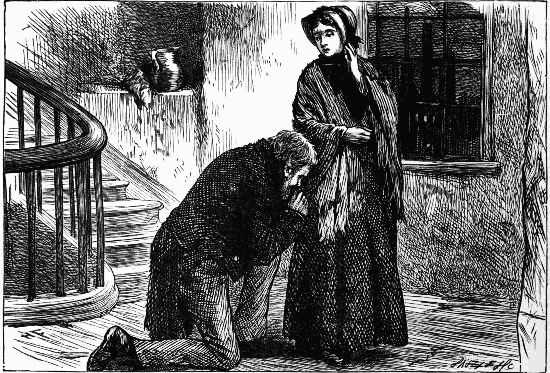
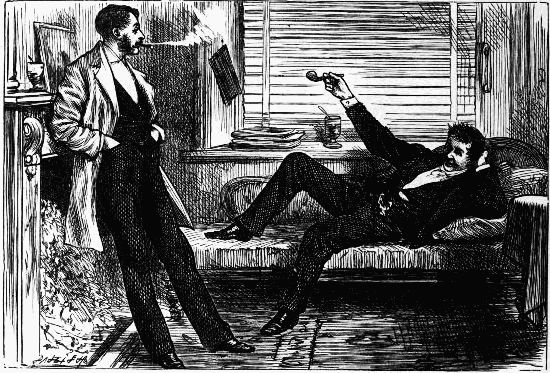 "What a comical brother-in-law you are!"—Book 2, chap. iii.
"What a comical brother-in-law you are!"—Book 2, chap. iii.
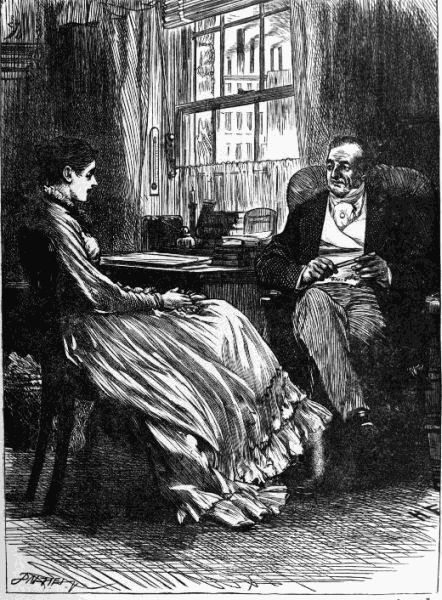 "Louisa, my dear, you are the subject of a proposal of marriage that has been made to me"—Chap. xv.
"Louisa, my dear, you are the subject of a proposal of marriage that has been made to me"—Chap. xv.
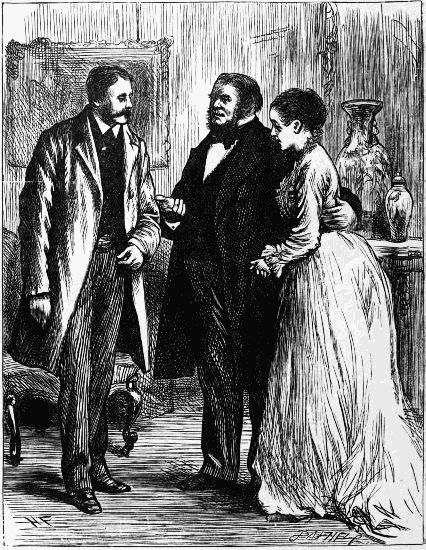 "This, sir," said Bounderby, "is my wife, Mrs. Bounderby"—Book 2, chap. ii.
"This, sir," said Bounderby, "is my wife, Mrs. Bounderby"—Book 2, chap. ii.
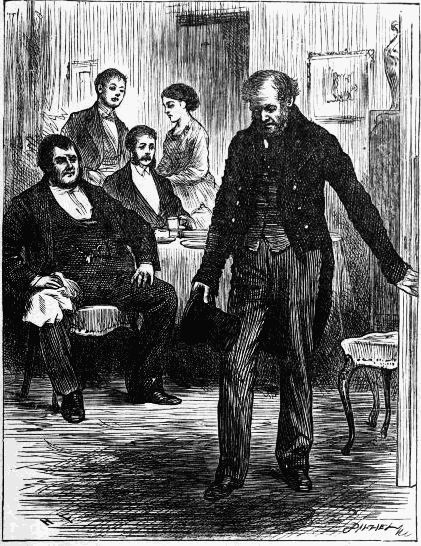 "Heaven help us all in this world!"—Book 2, chap. v.
"Heaven help us all in this world!"—Book 2, chap. v.
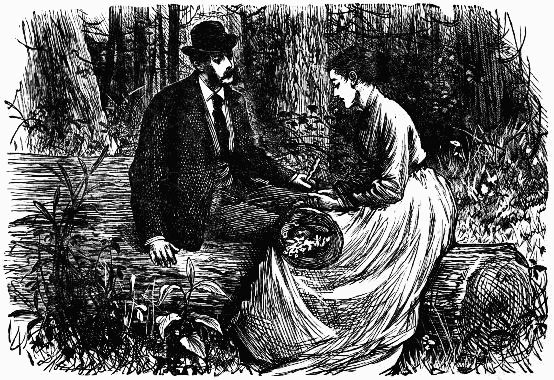
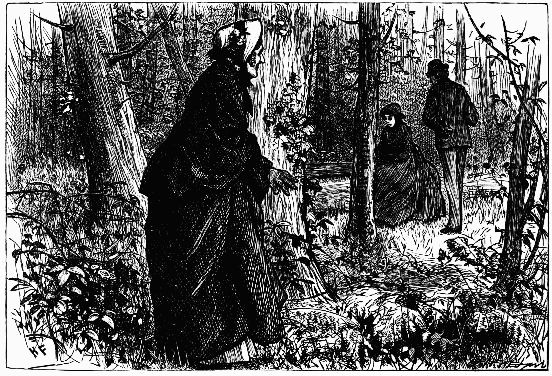 Mrs. Sparsit advanced closer to them—Book 2, chap. xi.
Mrs. Sparsit advanced closer to them—Book 2, chap. xi.
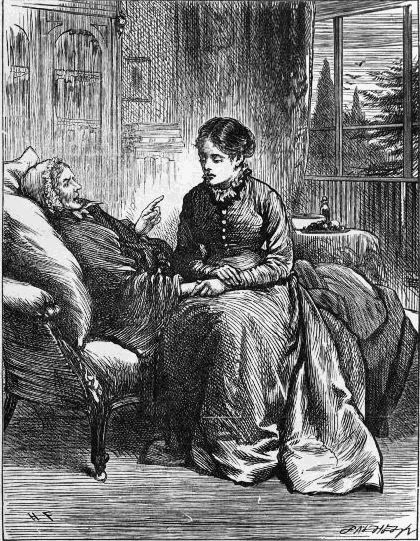 Left alone with her mother, Louisa saw her lying with an awful lull upon
her face—Book 2, chap. ix
Left alone with her mother, Louisa saw her lying with an awful lull upon
her face—Book 2, chap. ix
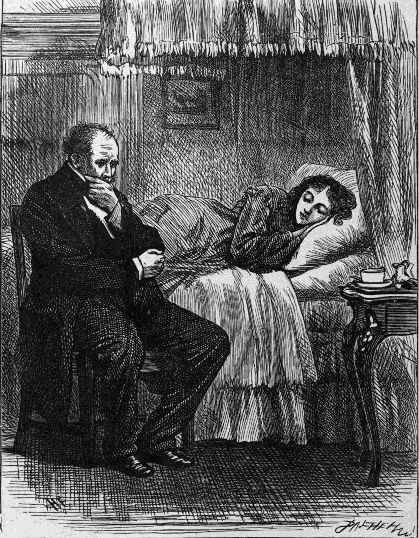 "I only entreat you to believe, my favourite child, that I have meant to do
right"—Book 3, chap. i.
"I only entreat you to believe, my favourite child, that I have meant to do
right"—Book 3, chap. i.
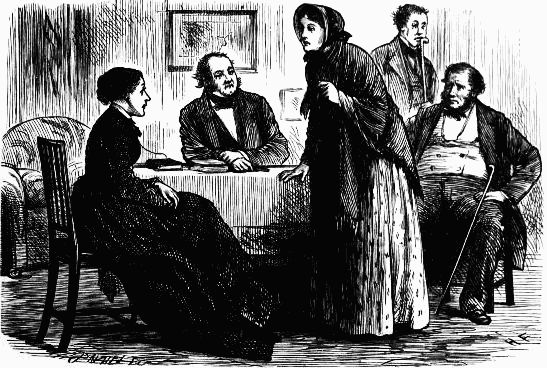
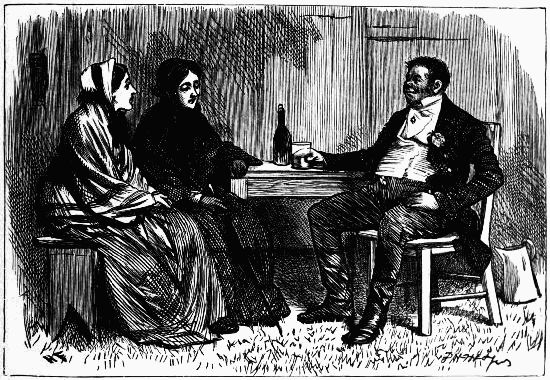 "Now, Thethilia, I don't athk to know any thecreth, but I thuppothe I may conthider thith to be
Mith Thquire"—Book 3, chap. vii.
"Now, Thethilia, I don't athk to know any thecreth, but I thuppothe I may conthider thith to be
Mith Thquire"—Book 3, chap. vii.
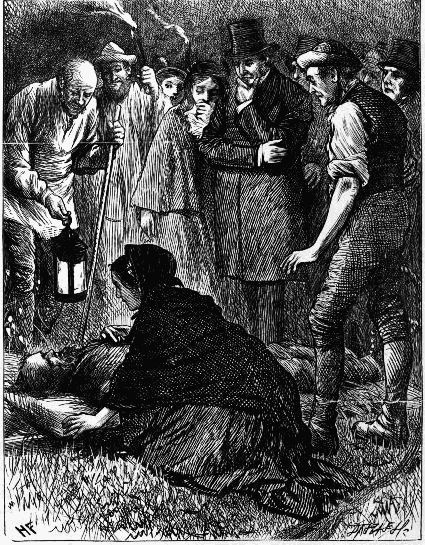 She stooped down on the grass at his side, and bent over him—Book 3, chap. vi.
She stooped down on the grass at his side, and bent over him—Book 3, chap. vi.
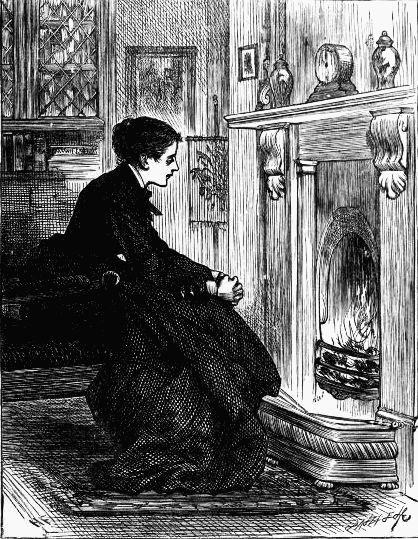 Here was Louisa, on the night of the same day, watching the fire as in the
days of yore—Book 3, chap. ix.
Here was Louisa, on the night of the same day, watching the fire as in the
days of yore—Book 3, chap. ix.
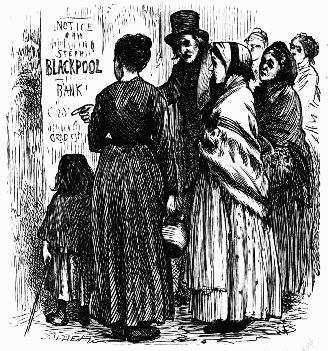 He drew up a placard, offering twenty pounds reward, for
the apprehension of Stephen Blackwood—Book 3, chap. iv.
He drew up a placard, offering twenty pounds reward, for
the apprehension of Stephen Blackwood—Book 3, chap. iv.
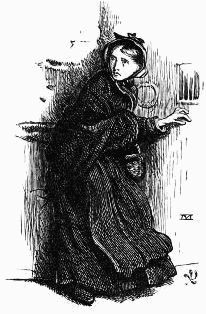
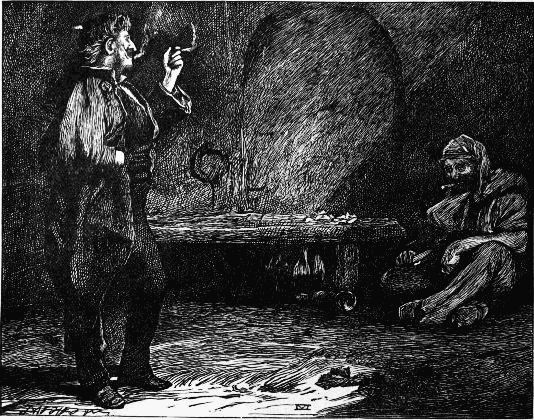
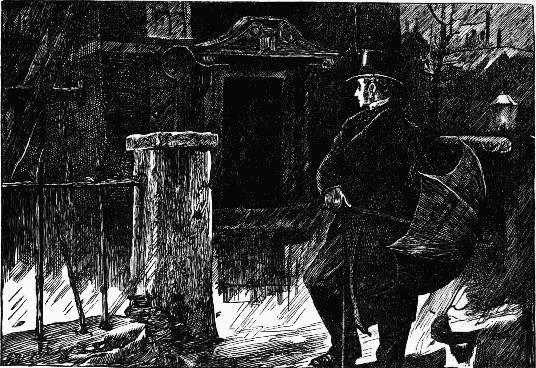 "Nothing changed," said the traveller, stopping to look round. "Dark and miserable as ever"—Book 1, chap. iii.
"Nothing changed," said the traveller, stopping to look round. "Dark and miserable as ever"—Book 1, chap. iii.
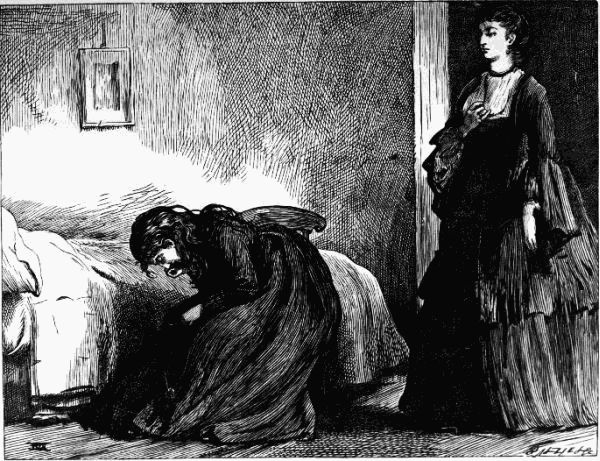 The observer stood with her hand upon her own bosom, looking at the girl—Book 1, chap. ii.
The observer stood with her hand upon her own bosom, looking at the girl—Book 1, chap. ii.
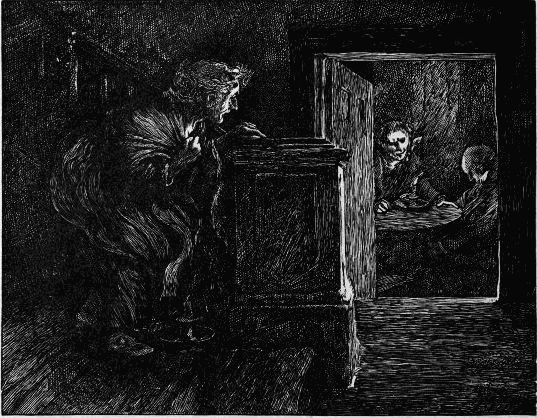
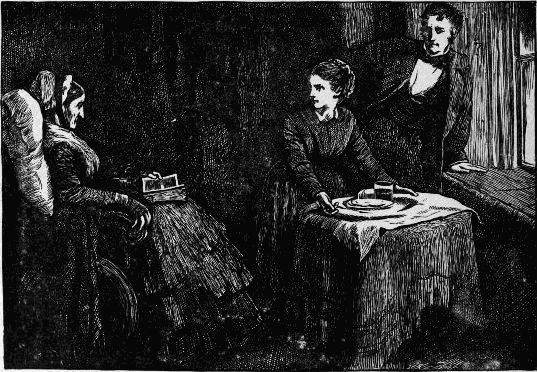 They looked tempting; eight in number, circularly set out on a white plate, on a tray covered with
a white napkin, flanked by a slice of buttered french roll and a little compact glass of cool
wine and water—Book 1, chap. v.
They looked tempting; eight in number, circularly set out on a white plate, on a tray covered with
a white napkin, flanked by a slice of buttered french roll and a little compact glass of cool
wine and water—Book 1, chap. v.
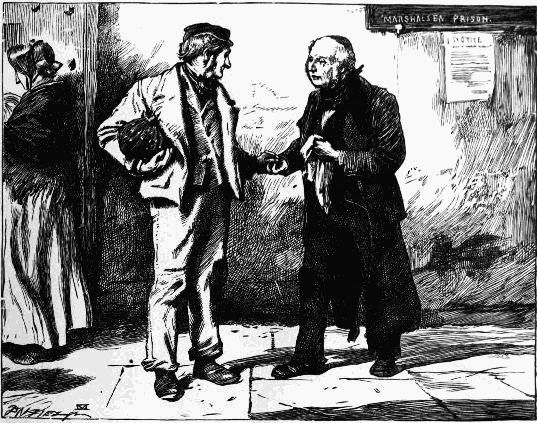 "Give me the money again," said the other eagerly, "And I'll keep it and never spend it"—Book 1, chap. vi.
"Give me the money again," said the other eagerly, "And I'll keep it and never spend it"—Book 1, chap. vi.
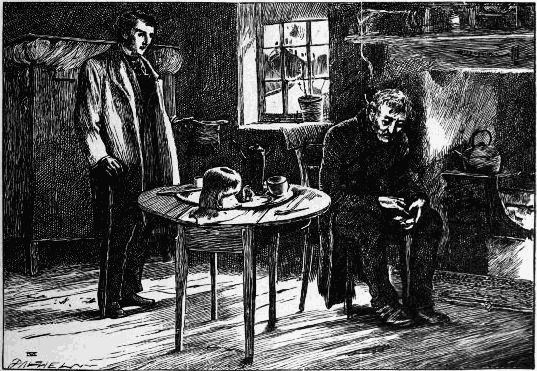 In the back garret—a sickly room, with a turned up bedstead in it, so hastily and recently turned
up that the blankets were boiling over, as it were, and keeping the lid open—a half finished
breakfast of coffee and toast, for two persons, was jumbled down anyhow on a rickety table—Book 1, chap. ix.
In the back garret—a sickly room, with a turned up bedstead in it, so hastily and recently turned
up that the blankets were boiling over, as it were, and keeping the lid open—a half finished
breakfast of coffee and toast, for two persons, was jumbled down anyhow on a rickety table—Book 1, chap. ix.
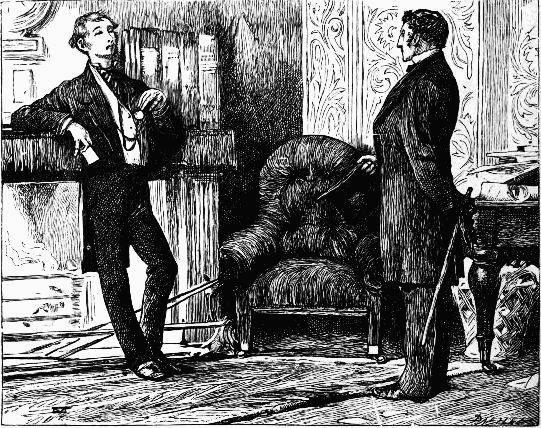
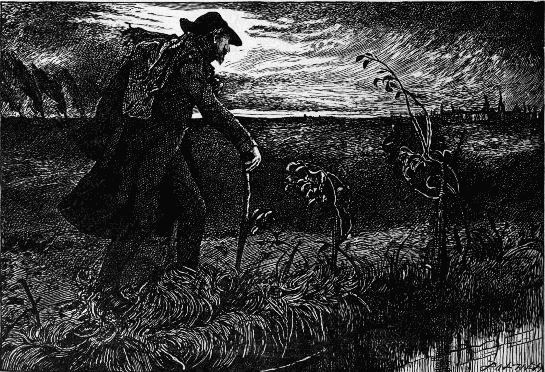 One man, slowly moving on towards Chalons, was the only visible figure on the landscape. Cain
might have looked as lonely and avoided—Book 1, chap. xi.
One man, slowly moving on towards Chalons, was the only visible figure on the landscape. Cain
might have looked as lonely and avoided—Book 1, chap. xi.

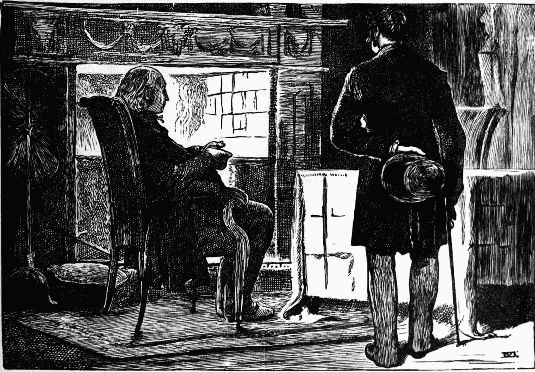 The parlour fire ticked in the grate. There was only one person on the parlour hearth, and the
loud watch in his pocket ticked audibly. The servant maid had ticked the two words, "Mr. Clennam,"
so softly, that she had not been heard; and he consequently stood, within the door she had
closed, unnoticed—Book 1, chap. xiii.
The parlour fire ticked in the grate. There was only one person on the parlour hearth, and the
loud watch in his pocket ticked audibly. The servant maid had ticked the two words, "Mr. Clennam,"
so softly, that she had not been heard; and he consequently stood, within the door she had
closed, unnoticed—Book 1, chap. xiii.
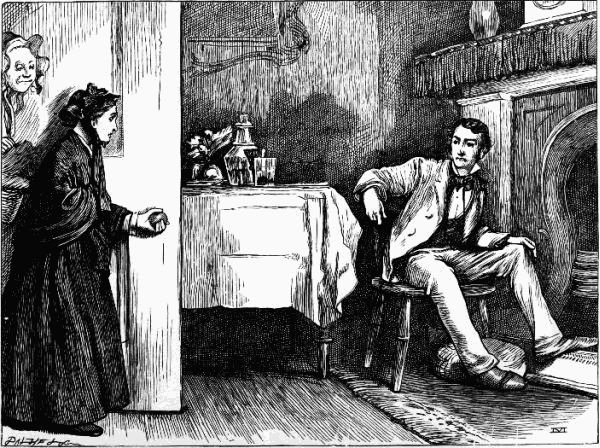 His door was softly opened, and these spoken words startled him, and came as if they were an answer, "Little Dorrit"—Book 1, chap. xiii.
His door was softly opened, and these spoken words startled him, and came as if they were an answer, "Little Dorrit"—Book 1, chap. xiii.
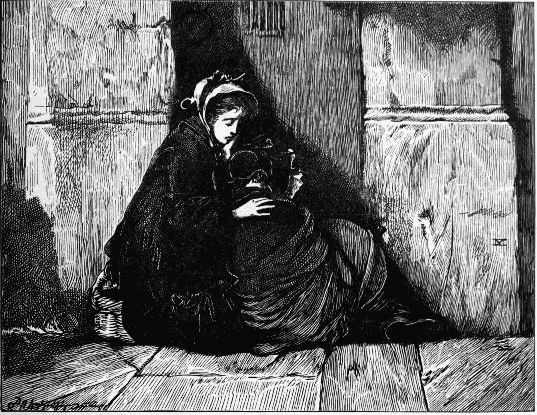
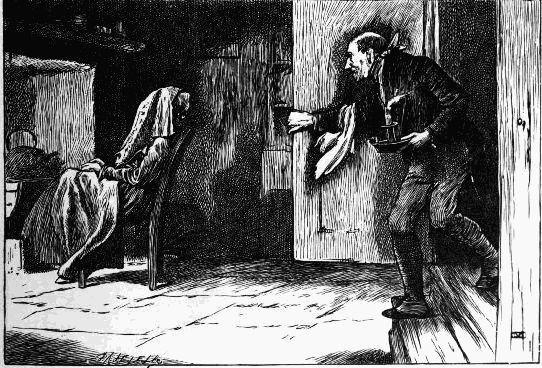 Then the bell rang once more, and then once more, and then kept on ringing; in despite of which
importunate summons, Affery still sat behind her apron, recovering her breath. At last Mr.
Flintwinch came shuffling down the staircase into the hall, muttering and calling "Affery woman!"
all the way. Affery still remaining behind her apron, he came stumbling down the kitchen stairs,
candle in hand—Book 1, chap. xv.
Then the bell rang once more, and then once more, and then kept on ringing; in despite of which
importunate summons, Affery still sat behind her apron, recovering her breath. At last Mr.
Flintwinch came shuffling down the staircase into the hall, muttering and calling "Affery woman!"
all the way. Affery still remaining behind her apron, he came stumbling down the kitchen stairs,
candle in hand—Book 1, chap. xv.
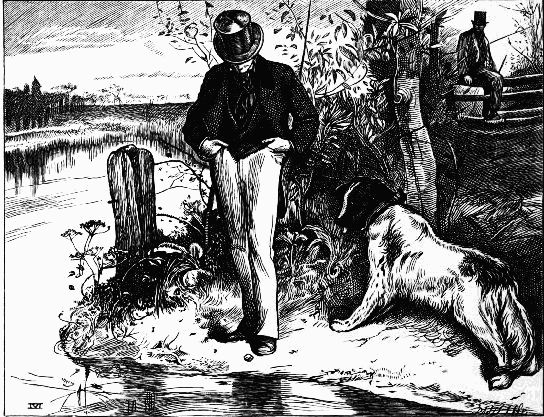
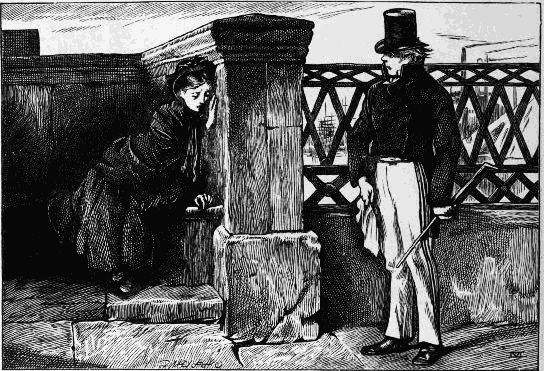 "O don't cry!" said Little Dorrit piteously. "Don't, don't! Good-bye, John. God bless you!"
"Good-bye, Miss Amy. Good-bye!" And so he left her—Book 1, chap, xviii.
"O don't cry!" said Little Dorrit piteously. "Don't, don't! Good-bye, John. God bless you!"
"Good-bye, Miss Amy. Good-bye!" And so he left her—Book 1, chap, xviii.
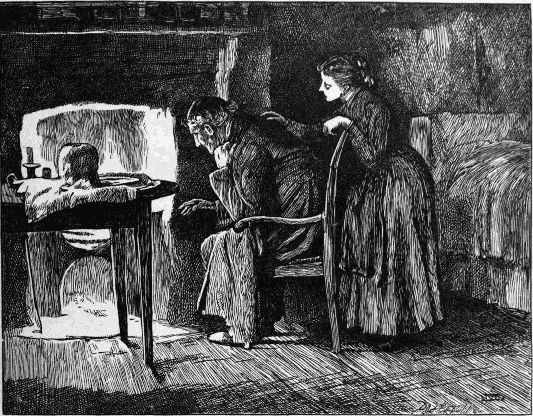
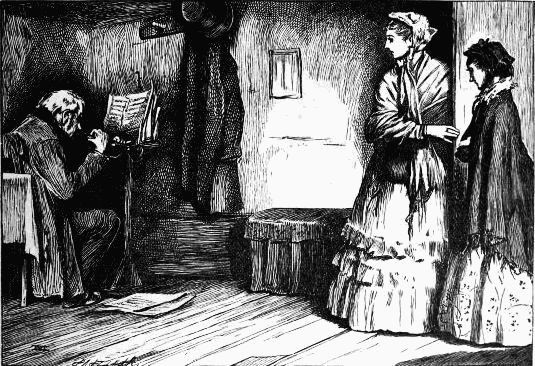 They spoke no more, all the way back to the lodging where Fanny and her uncle lived. When they
arrived there they found the old man practising his clarionet in the dolefullest manner in a
corner of the room—Book 1, chap. xx.
They spoke no more, all the way back to the lodging where Fanny and her uncle lived. When they
arrived there they found the old man practising his clarionet in the dolefullest manner in a
corner of the room—Book 1, chap. xx.
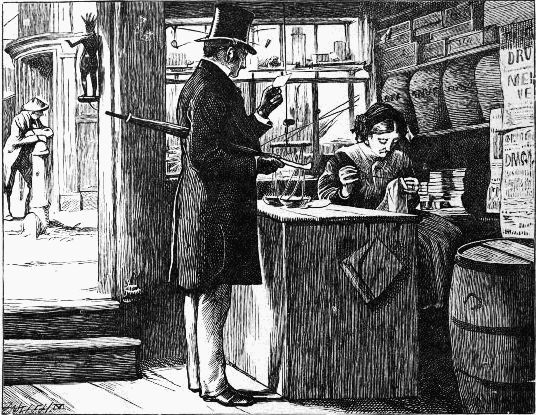
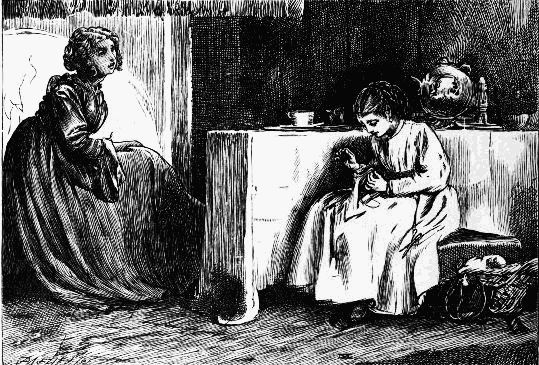 "What nimble fingers you have," said Flora, "but are you sure you are well?" . . . "Oh yes, indeed!"
Flora put her feet upon the fender and settled herself for a thorough good romantic disclosure—Book 1, chap. xxiv.
"What nimble fingers you have," said Flora, "but are you sure you are well?" . . . "Oh yes, indeed!"
Flora put her feet upon the fender and settled herself for a thorough good romantic disclosure—Book 1, chap. xxiv.
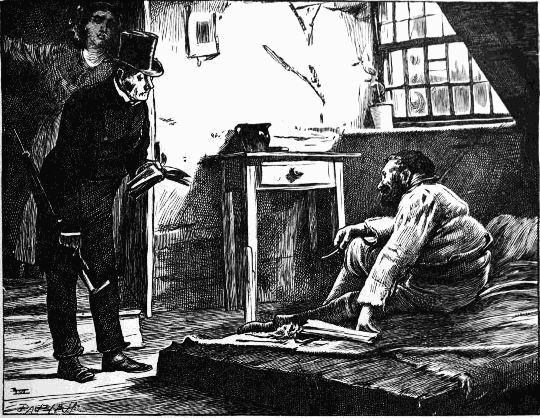
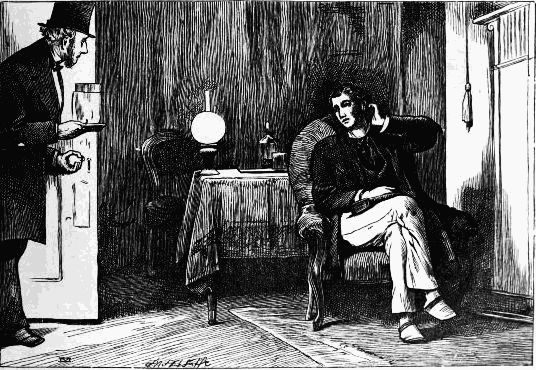 Mr. Doyce had been to Twickenham to pass the day. Clennam had excused himself, Mr. Doyce was
just come home. He put in his head at the door of Clennam's sitting-room to say good night. "Come
in, come in!" said Clennam—Book 1, chap. xxvi.
Mr. Doyce had been to Twickenham to pass the day. Clennam had excused himself, Mr. Doyce was
just come home. He put in his head at the door of Clennam's sitting-room to say good night. "Come
in, come in!" said Clennam—Book 1, chap. xxvi.
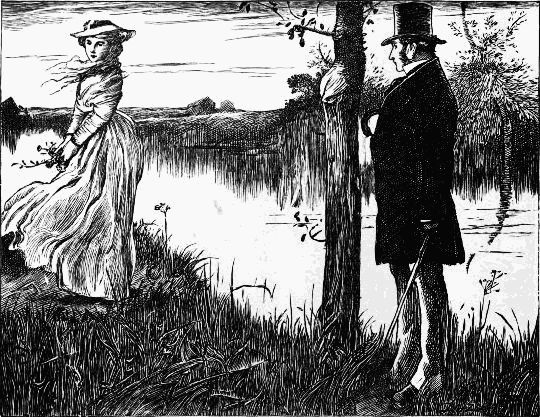
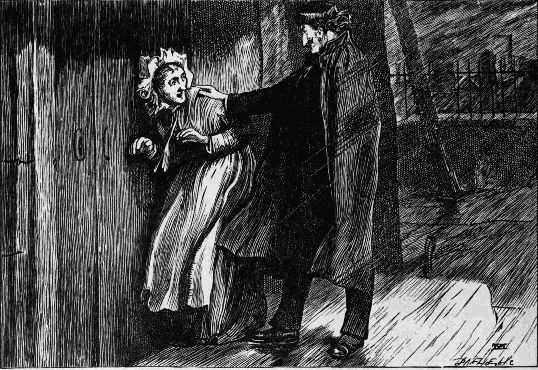 Why she should then stoop down and look in at the key-hole of the door, as if an eye would open it,
it would be difficult to say. From this posture she started suddenly, with a half scream, feeling
something on her shoulder. It was the touch of a hand; of a man's hand—Book 1, chap. xxix.
Why she should then stoop down and look in at the key-hole of the door, as if an eye would open it,
it would be difficult to say. From this posture she started suddenly, with a half scream, feeling
something on her shoulder. It was the touch of a hand; of a man's hand—Book 1, chap. xxix.
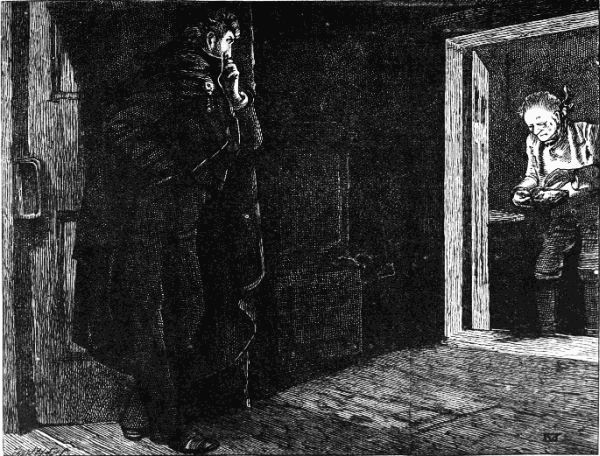 The stranger, taking advantage of this fitful illumination of his visage, looked intently and wonderingly at him—Book 1, chap. xxx.
The stranger, taking advantage of this fitful illumination of his visage, looked intently and wonderingly at him—Book 1, chap. xxx.
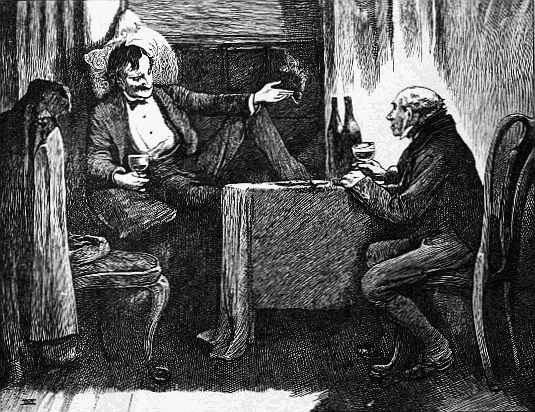
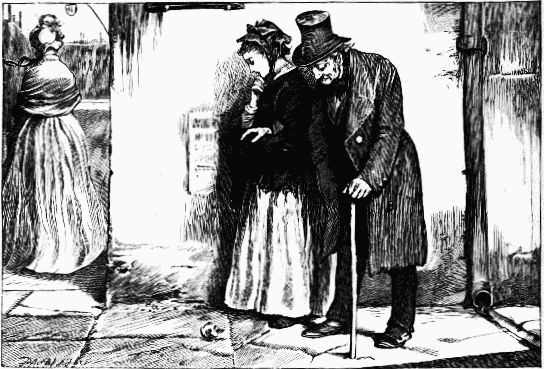 They were within five minutes of their destination, when, at the corner of her own street, they came
upon Fanny, in her new bonnet, bound for the same port—Book 1, chap. xxxi.
They were within five minutes of their destination, when, at the corner of her own street, they came
upon Fanny, in her new bonnet, bound for the same port—Book 1, chap. xxxi.
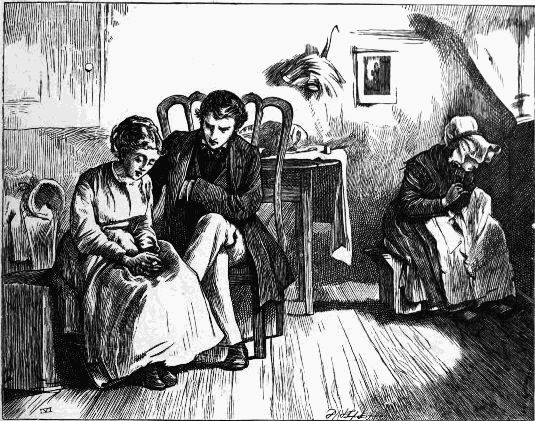
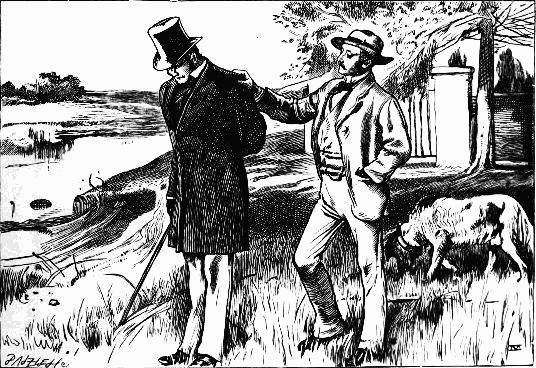 "What a good fellow you are, Clennam!" exclaimed the other stopping to look at him, as if with
irrepressible admiration. "What a capital fellow! You have never been disappointed. That's easy
to see."—Book 1, chap. xxxiv.
"What a good fellow you are, Clennam!" exclaimed the other stopping to look at him, as if with
irrepressible admiration. "What a capital fellow! You have never been disappointed. That's easy
to see."—Book 1, chap. xxxiv.
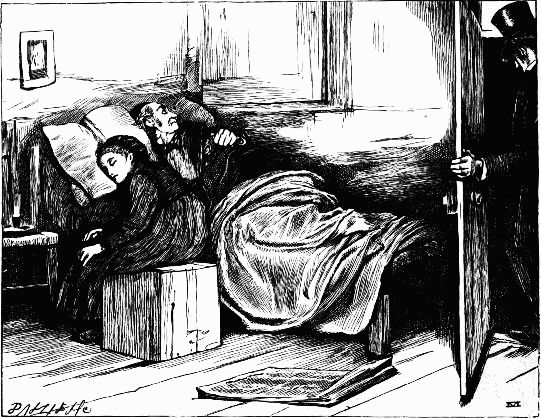
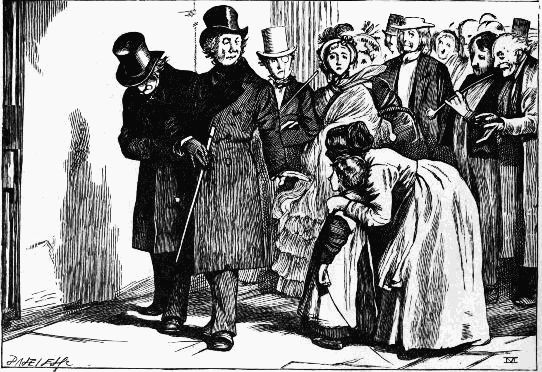 Through these spectators, the little procession, headed by the two brothers, moved slowly to the
gate. Mr. Dorrit, yielding to the vast speculation how the poor creatures were to get on without
him, was great, and sad, but not absorbed—Book 1, chap. xxxvi.
Through these spectators, the little procession, headed by the two brothers, moved slowly to the
gate. Mr. Dorrit, yielding to the vast speculation how the poor creatures were to get on without
him, was great, and sad, but not absorbed—Book 1, chap. xxxvi.
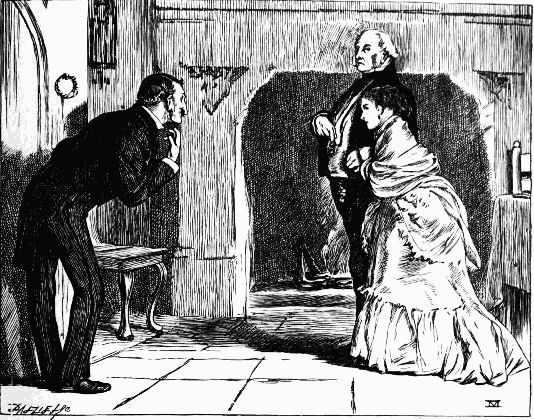
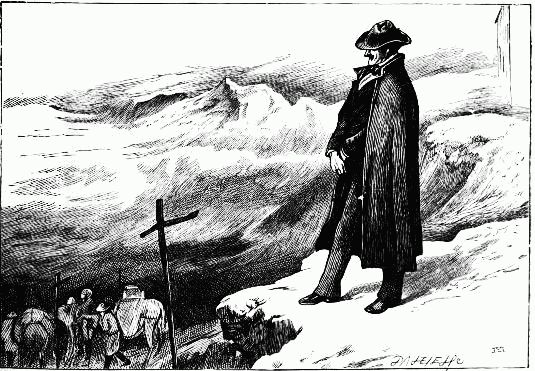 Nevertheless, as they wound round the rugged way while the convent was yet in sight, she more than
once looked round, and descried Mr. Blandois, backed by the convent smoke which rose high from
the chimneys in a golden film, always standing on one jutting point looking down after them—Book 2, chap. iii.
Nevertheless, as they wound round the rugged way while the convent was yet in sight, she more than
once looked round, and descried Mr. Blandois, backed by the convent smoke which rose high from
the chimneys in a golden film, always standing on one jutting point looking down after them—Book 2, chap. iii.
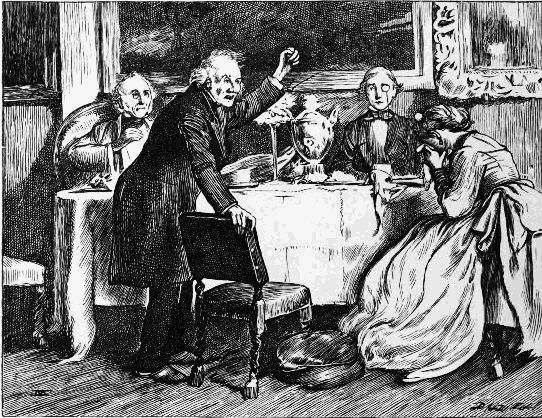
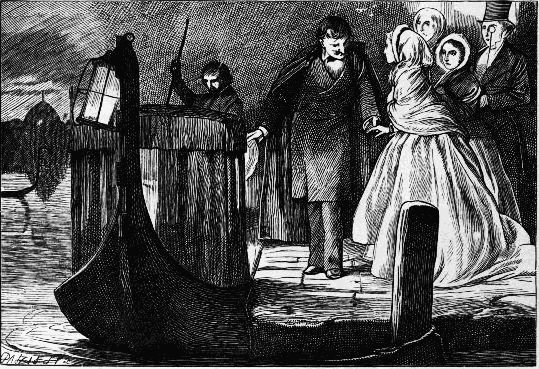 Little Dorrit was in front, with her brother and Mrs. General (Mr. Dorrit had remained at home).
But on the brink of the quay, they all came together. She started again to find Blandois close to
her, handing Fanny into the boat—Book 2, chap. vi.
Little Dorrit was in front, with her brother and Mrs. General (Mr. Dorrit had remained at home).
But on the brink of the quay, they all came together. She started again to find Blandois close to
her, handing Fanny into the boat—Book 2, chap. vi.
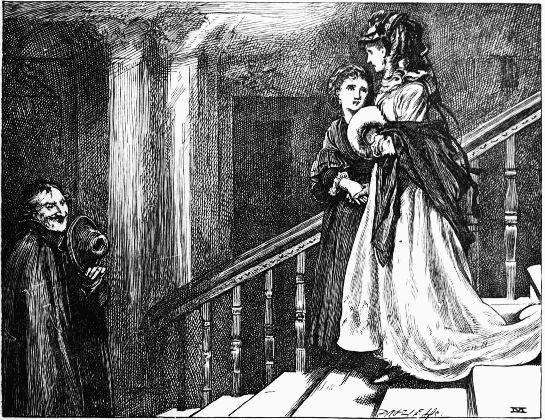
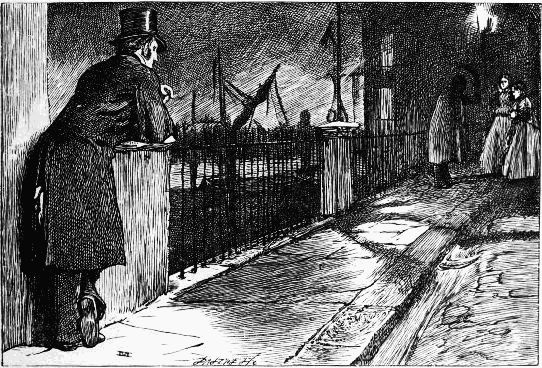 He stopped at the corner, seeming to look back expectantly up the street as if he had made an
appointment with some one to meet him there; but he kept a careful eye on the three. When they
came together, the man took off his hat and made Miss Wade a bow—Book 2, chap. ix.
He stopped at the corner, seeming to look back expectantly up the street as if he had made an
appointment with some one to meet him there; but he kept a careful eye on the three. When they
came together, the man took off his hat and made Miss Wade a bow—Book 2, chap. ix.

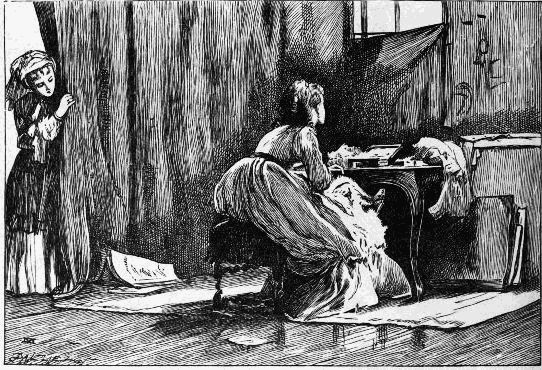 There is a curtain, more dirt-coloured than red, which divides it, and the part behind the curtain
makes the private sitting-room. When I first saw her there she was alone, and her work had fallen
out of her hand, and she was looking up at the sky shining through the tops of the windows—Book 2, chap. xi.
There is a curtain, more dirt-coloured than red, which divides it, and the part behind the curtain
makes the private sitting-room. When I first saw her there she was alone, and her work had fallen
out of her hand, and she was looking up at the sky shining through the tops of the windows—Book 2, chap. xi.
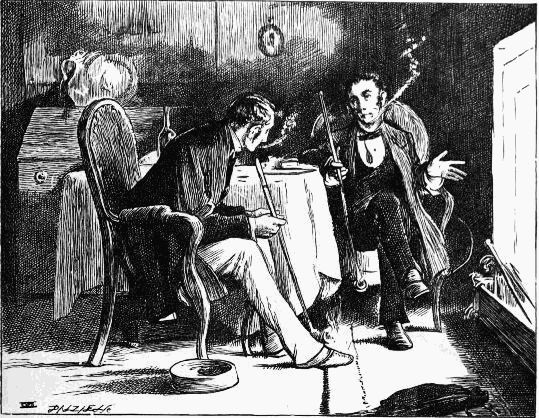
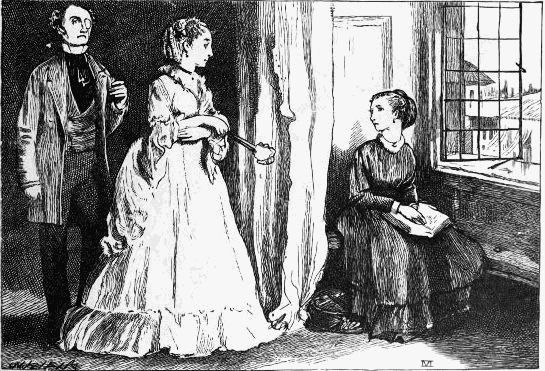 Little Dorrit used to sit and muse here, much as she had been used to while away the time on her
balcony in Venice. Seated thus one day, she was softly touched on the shoulder, and Fanny said,
"Well, my dear," and took her seat at her side—Book 2, chap. xiv.
Little Dorrit used to sit and muse here, much as she had been used to while away the time on her
balcony in Venice. Seated thus one day, she was softly touched on the shoulder, and Fanny said,
"Well, my dear," and took her seat at her side—Book 2, chap. xiv.
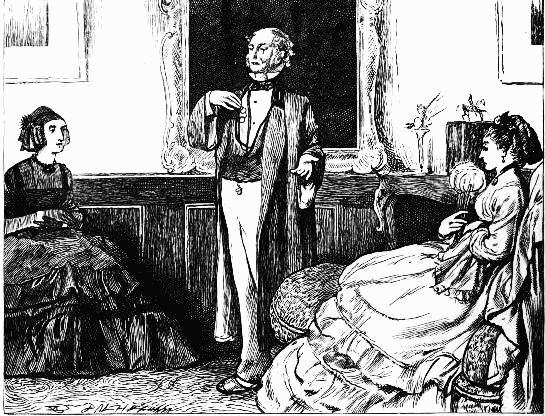
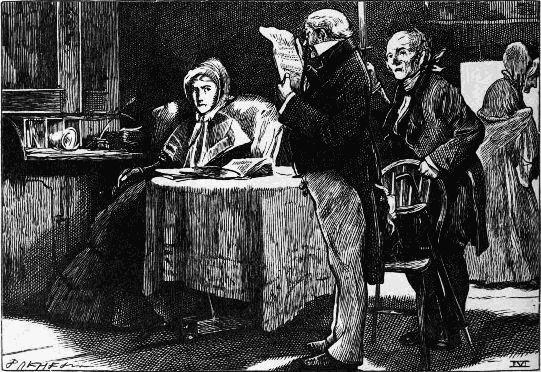 "Where is this missing man? Have you come to give us information where he is? I hope you have."
"So far from it, I—hum, have come to seek information." . . . "Unfortunately for us, there is none
to be got here. Flintwinch, show the gentleman the hand-bill. Give him several to take away.
Hold the light for him to read it"—Book 2, chap. xvii.
"Where is this missing man? Have you come to give us information where he is? I hope you have."
"So far from it, I—hum, have come to seek information." . . . "Unfortunately for us, there is none
to be got here. Flintwinch, show the gentleman the hand-bill. Give him several to take away.
Hold the light for him to read it"—Book 2, chap. xvii.
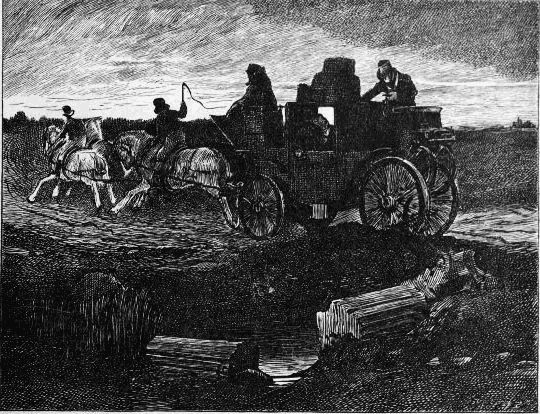
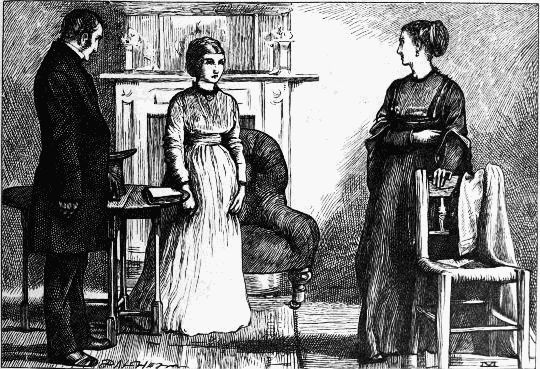 As each of the two handsome faces looked at each other, Clennam felt how each of the two natures
must be constantly tearing the other to pieces—Book 2, chap. xx.
As each of the two handsome faces looked at each other, Clennam felt how each of the two natures
must be constantly tearing the other to pieces—Book 2, chap. xx.
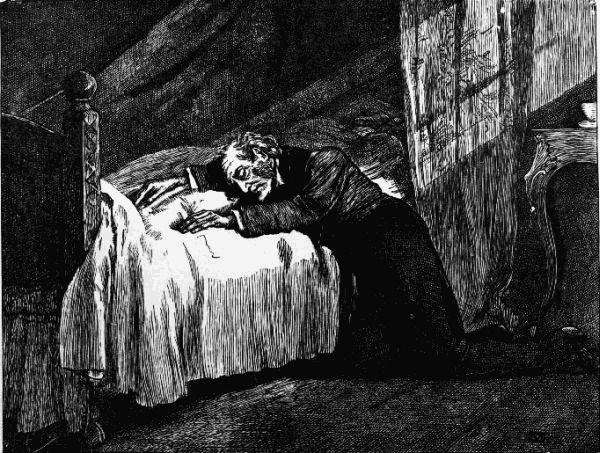 One figure reposed upon the bed, the other kneeling on the floor, drooped over it the arms easily and peacefully resting on
the coverlet; . . . the two brothers were before their Father; far beyond the twilight judgments of this world; high
above its mists and obscurities—Book 2, chap. xix.
One figure reposed upon the bed, the other kneeling on the floor, drooped over it the arms easily and peacefully resting on
the coverlet; . . . the two brothers were before their Father; far beyond the twilight judgments of this world; high
above its mists and obscurities—Book 2, chap. xix.
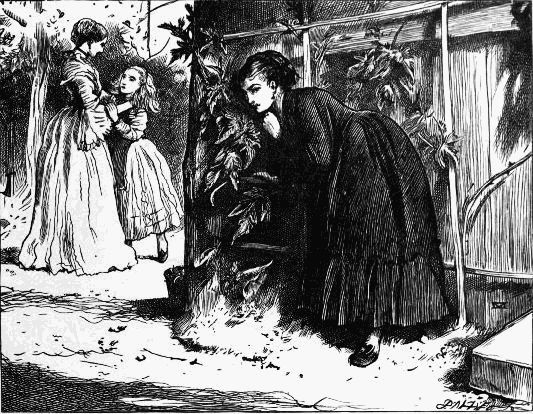
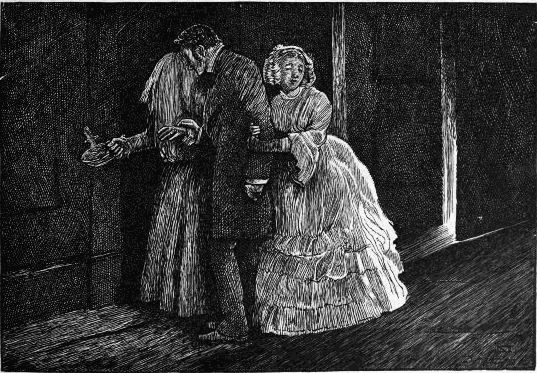 "If I draw you into this black closet and speak here." . . . "Why do you hide your face?" . . . "Because
I am afraid of seeing something." . . . "You can't be afraid of seeing anything in this darkness,
Affery"—Book 2, chap. xxiii.
"If I draw you into this black closet and speak here." . . . "Why do you hide your face?" . . . "Because
I am afraid of seeing something." . . . "You can't be afraid of seeing anything in this darkness,
Affery"—Book 2, chap. xxiii.
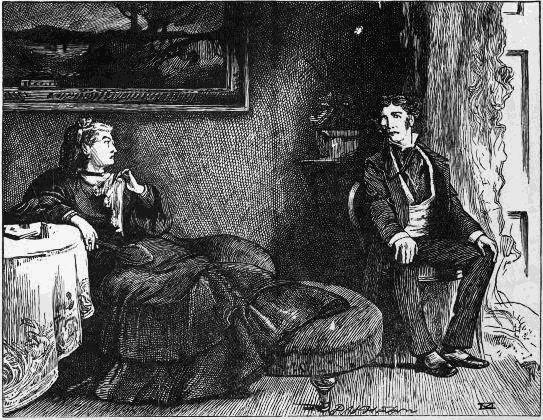
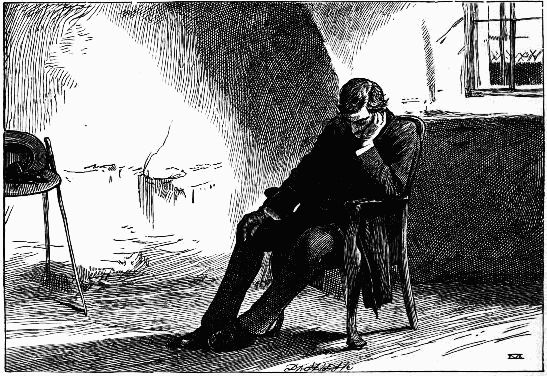 The day was sunny, and the Marshalsea, with the hot noon striking upon it was unwontedly quiet.
Arthur Clennam dropped into a solitary arm-chair, itself as faded as any debtor in the gaol, and
yielded himself to his thoughts—Book 2, chap. xxvii.
The day was sunny, and the Marshalsea, with the hot noon striking upon it was unwontedly quiet.
Arthur Clennam dropped into a solitary arm-chair, itself as faded as any debtor in the gaol, and
yielded himself to his thoughts—Book 2, chap. xxvii.
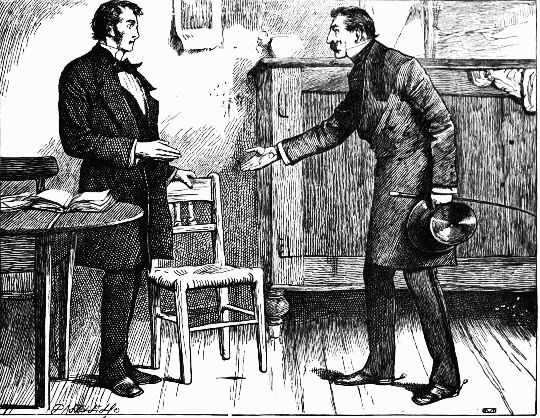
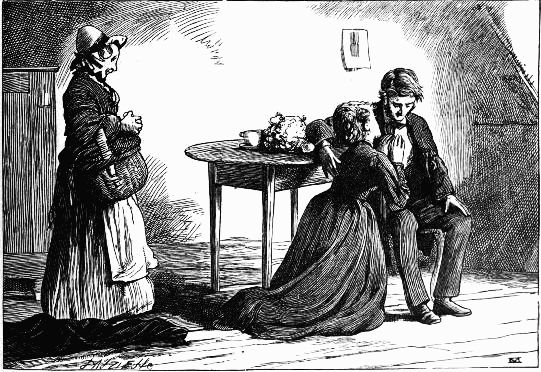 And she came towards him with her hands laid on his breast to keep him in his chair, and with her
knees upon the floor at his feet, and with her lips raised up to kiss him, and with her tears
dropping on him as the rain from heaven had dropped upon the flowers, Little Dorrit, a loving
presence, called him by his name—Book 2, chap. xxix.
And she came towards him with her hands laid on his breast to keep him in his chair, and with her
knees upon the floor at his feet, and with her lips raised up to kiss him, and with her tears
dropping on him as the rain from heaven had dropped upon the flowers, Little Dorrit, a loving
presence, called him by his name—Book 2, chap. xxix.
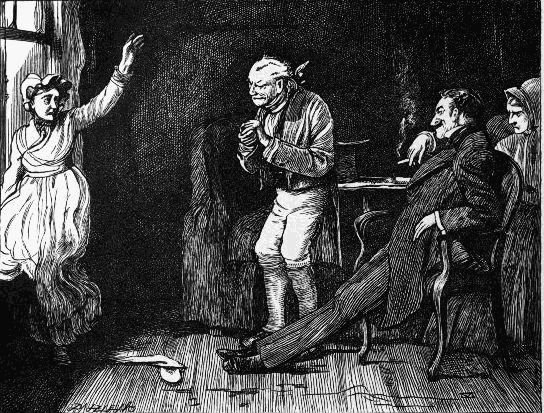
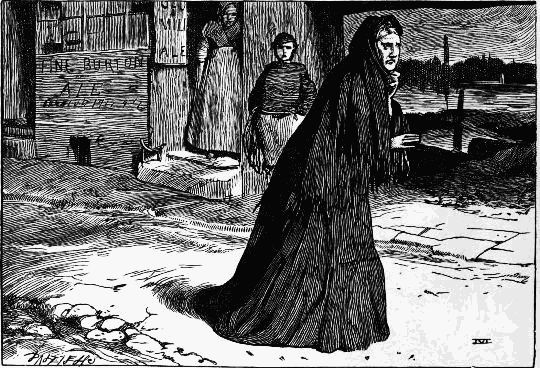 The sun had set, and the streets were dim in the dusky twilight, when the figure, so long unused
to them, hurried on its way—Book 2, chap. xxxi.
The sun had set, and the streets were dim in the dusky twilight, when the figure, so long unused
to them, hurried on its way—Book 2, chap. xxxi.
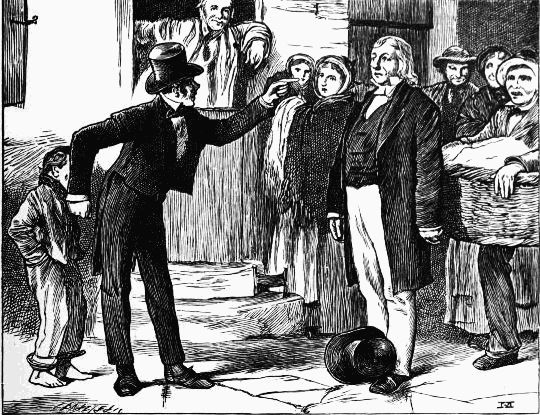
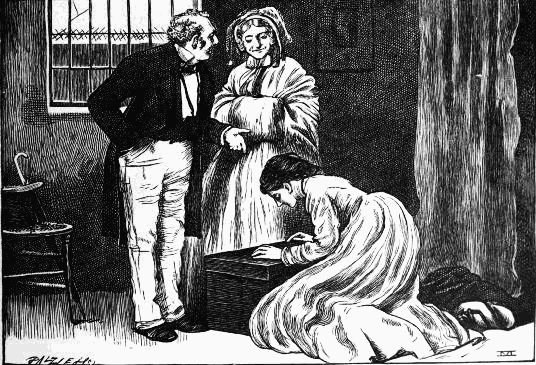 Such a box had Affery Flintwinch seen in the first of her dreams, going out of the old house . . .
this, Tattycoram put on the ground at her old master's feet; this, Tattycoram fell on her knees
by, and put her hands upon. . . .—Book 2, chap. xxxiii.
Such a box had Affery Flintwinch seen in the first of her dreams, going out of the old house . . .
this, Tattycoram put on the ground at her old master's feet; this, Tattycoram fell on her knees
by, and put her hands upon. . . .—Book 2, chap. xxxiii.
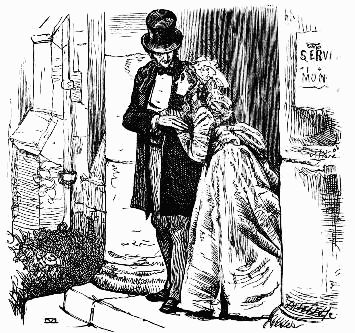 Little Dorrit and her husband walked out
of the church alone—Chap. xxxiv.
Little Dorrit and her husband walked out
of the church alone—Chap. xxxiv.
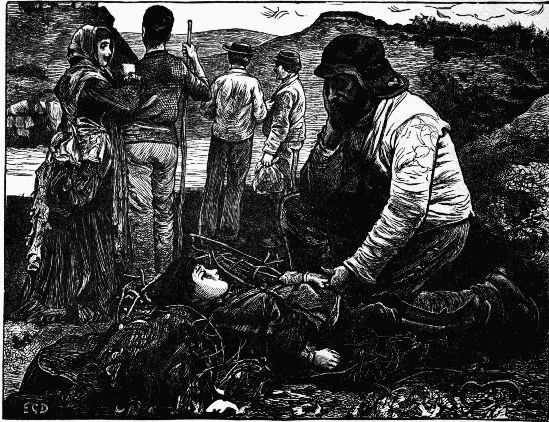
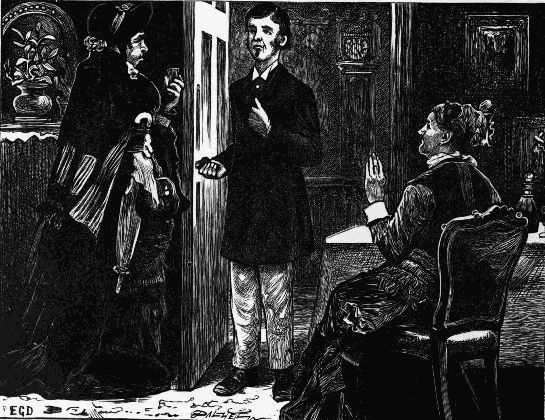 "Oh, git along with you, sir, if you please, me and Mrs. Bigby don't want no male parties here"—Births—Mrs.
Meeks of a son
"Oh, git along with you, sir, if you please, me and Mrs. Bigby don't want no male parties here"—Births—Mrs.
Meeks of a son
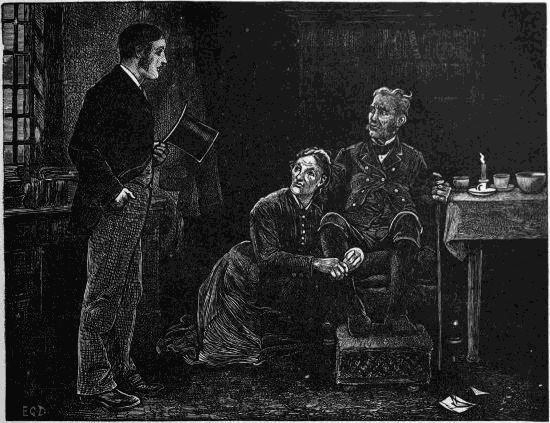
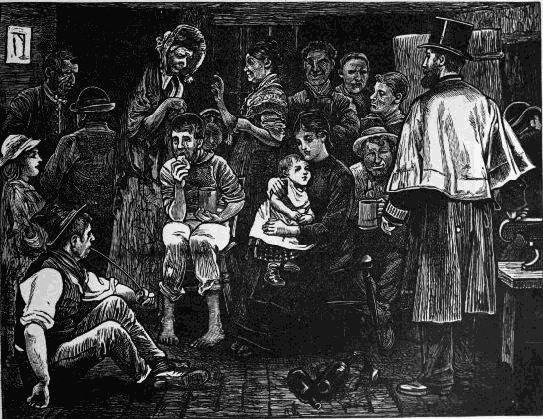 In the midst of the kitchen . . . sits a young, modest, gentle-looking creature, with a beautiful
child in her lap—On Duty with Inspector Field
In the midst of the kitchen . . . sits a young, modest, gentle-looking creature, with a beautiful
child in her lap—On Duty with Inspector Field
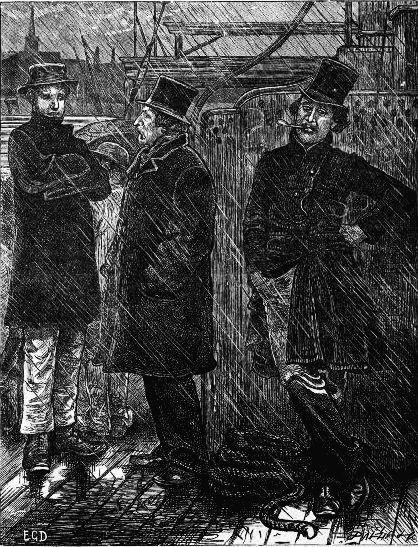 "Whether he was the vicar, or Moses, or Mr. Burchill, or a conglomeration
of all four, I knew not"—The Ghost of Art
"Whether he was the vicar, or Moses, or Mr. Burchill, or a conglomeration
of all four, I knew not"—The Ghost of Art
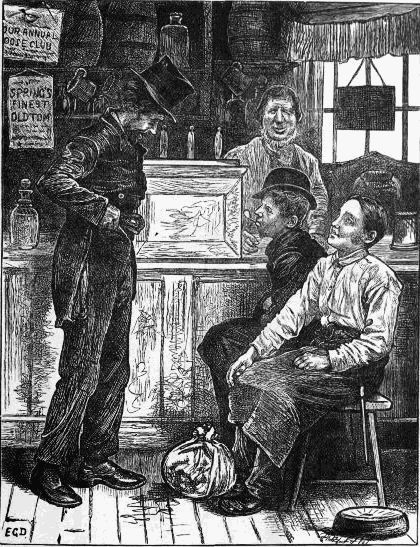 "Are you from the country, young man?" "Yes," I say, "I am"—The
Detective Police
"Are you from the country, young man?" "Yes," I say, "I am"—The
Detective Police
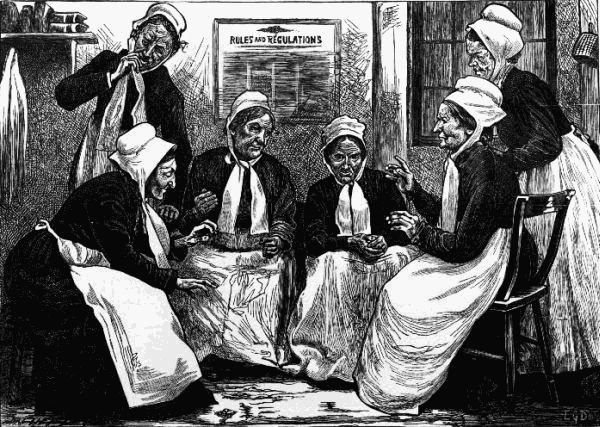 "In another room were several ugly old women crouching, witch-like, round a hearth, and chatting and nodding, after the
manner of monkeys"—A Walk in a Workhouse
"In another room were several ugly old women crouching, witch-like, round a hearth, and chatting and nodding, after the
manner of monkeys"—A Walk in a Workhouse
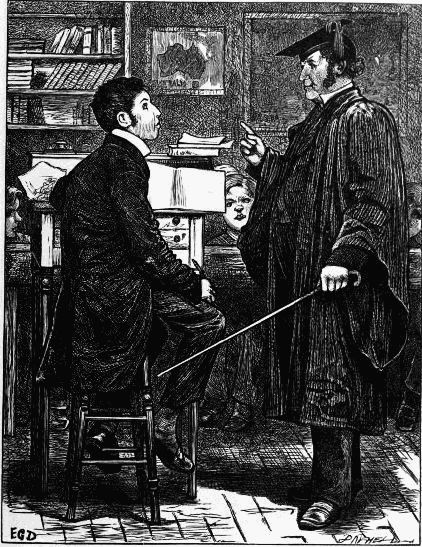 "Mr. Blinkins, are you ill, sir?"—Our School
"Mr. Blinkins, are you ill, sir?"—Our School
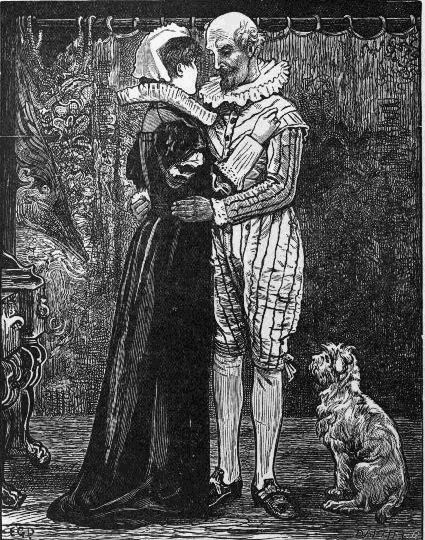 He took her in his arms and told her it was fancy—A Christmas Tree
He took her in his arms and told her it was fancy—A Christmas Tree
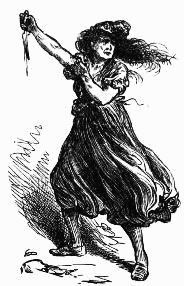
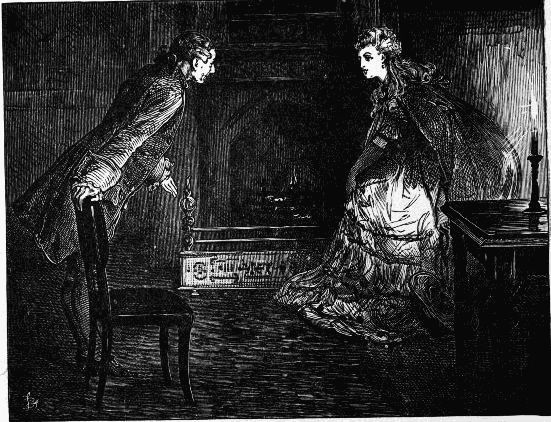
 The wine shop—Book 1, chap. v.
The wine shop—Book 1, chap. v.
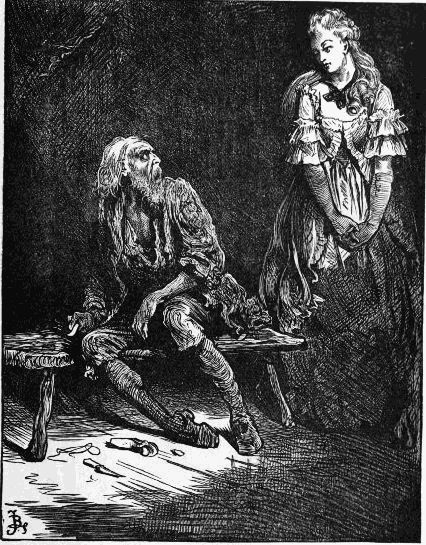 The shoemaker—Book 1, chap. vi.
The shoemaker—Book 1, chap. vi.
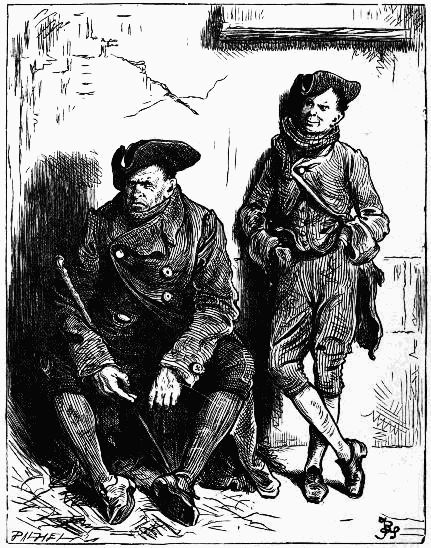 Messrs. Cruncher and Son—Book 2, chap. i.
Messrs. Cruncher and Son—Book 2, chap. i.
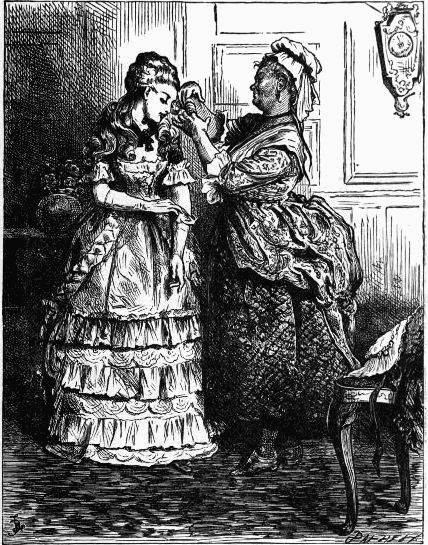 And smoothing her rich hair with as much pride as she could possibly have
taken in her own hair if she had been the vainest and handsomest of
women—Book 2, chap. vi.
And smoothing her rich hair with as much pride as she could possibly have
taken in her own hair if she had been the vainest and handsomest of
women—Book 2, chap. vi.
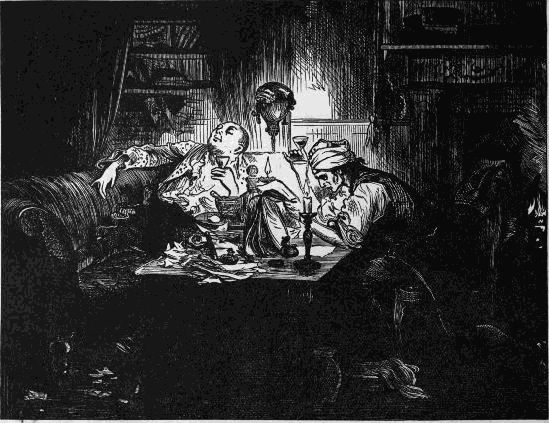
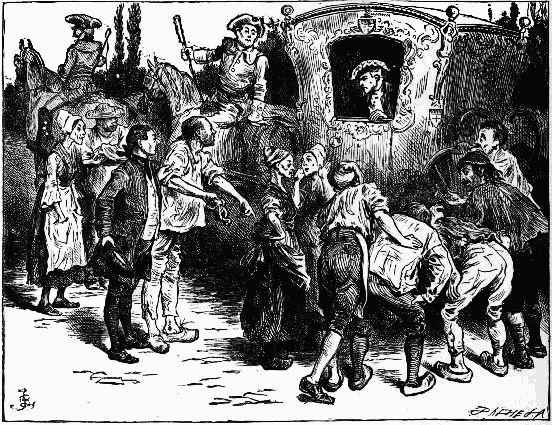 He stooped a little, and with his tattered blue cap pointed under the carriage. All his fellows
stooped to look under the carriage—Book 2, chap. viii.
He stooped a little, and with his tattered blue cap pointed under the carriage. All his fellows
stooped to look under the carriage—Book 2, chap. viii.
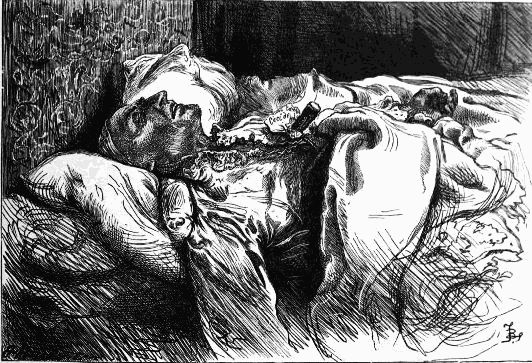
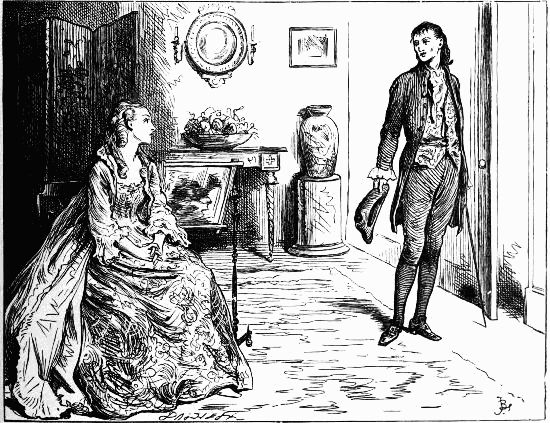 "Think now and then that there is a man who would give his life to keep a life you love beside
you"—Book 2, chap. xiii.
"Think now and then that there is a man who would give his life to keep a life you love beside
you"—Book 2, chap. xiii.
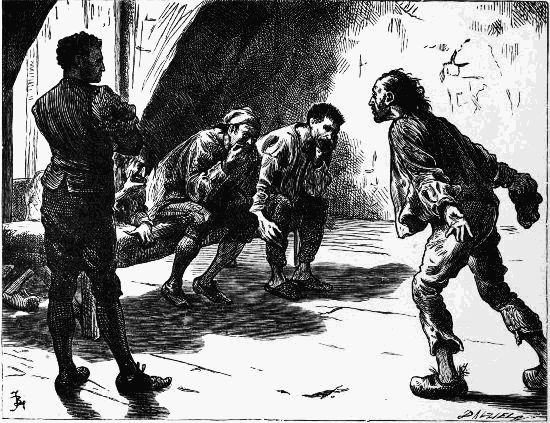
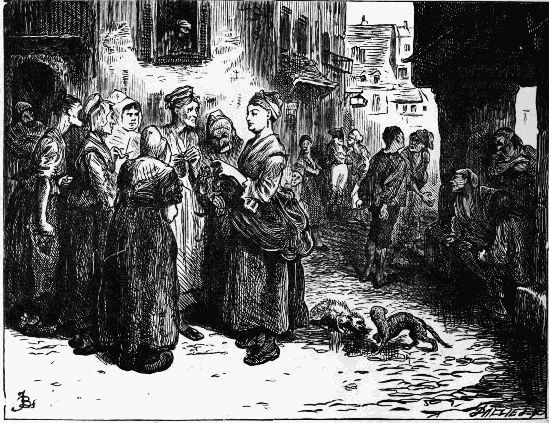 Saint Antoine—Book 2, chap. xvi.
Saint Antoine—Book 2, chap. xvi.
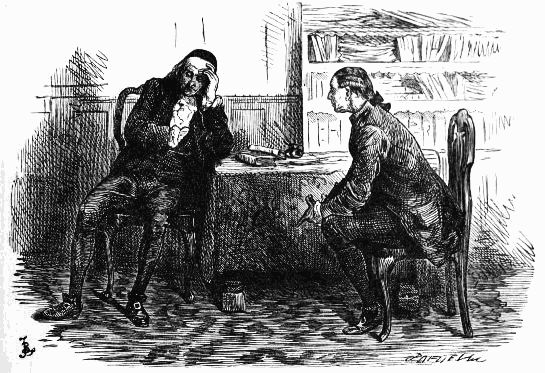
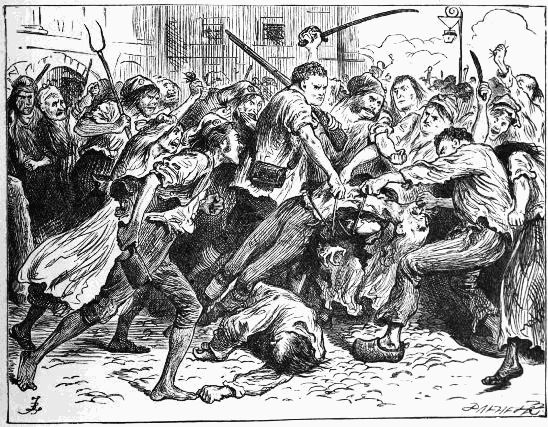 Dragged, and struck at, and stifled by the bunches of grass and straw that were thrust into his
face by hundreds of hands—Book 2, chap. xxii.
Dragged, and struck at, and stifled by the bunches of grass and straw that were thrust into his
face by hundreds of hands—Book 2, chap. xxii.
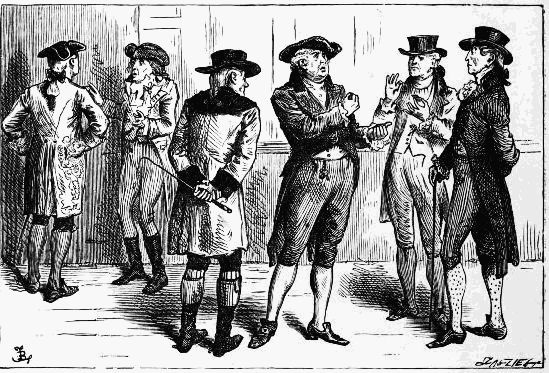
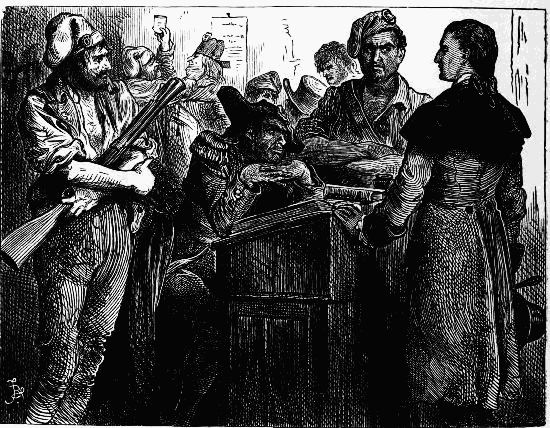 Some registers were lying open on a desk and an officer of a coarse dark aspect presided over
these—Book 3, chap. i.
Some registers were lying open on a desk and an officer of a coarse dark aspect presided over
these—Book 3, chap. i.
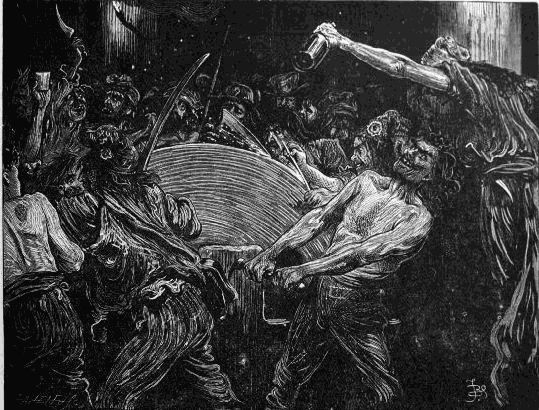
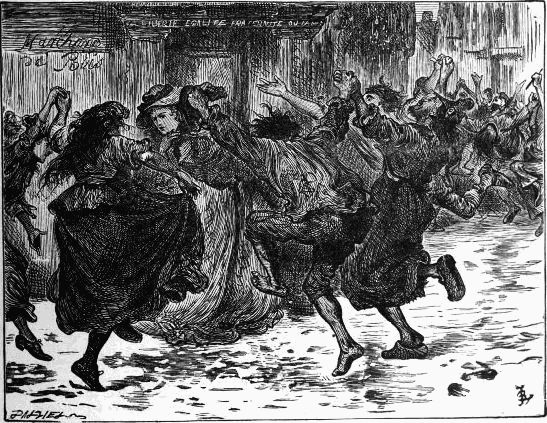 The Carmagnole—Book 3, chap. vi.
The Carmagnole—Book 3, chap. vi.
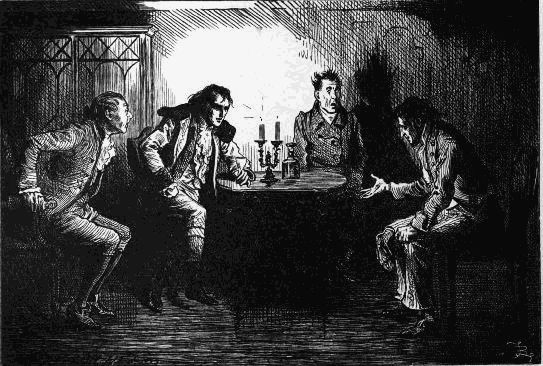
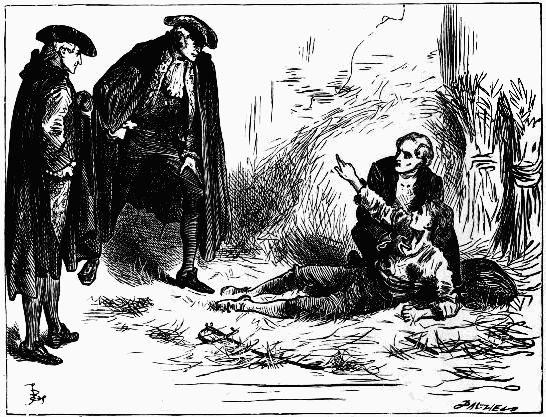 Twice he put his hand to the wound in his breast, and with his forefinger drew a cross
in the air—Book 3, chap. x.
Twice he put his hand to the wound in his breast, and with his forefinger drew a cross
in the air—Book 3, chap. x.
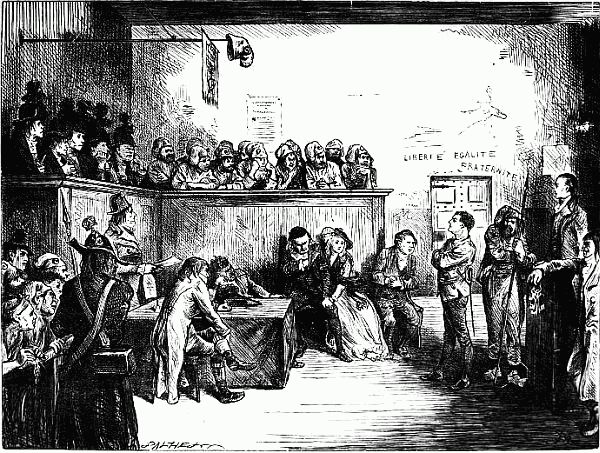 The trial of Evrémonde—Book 3, chap. ix.
The trial of Evrémonde—Book 3, chap. ix.
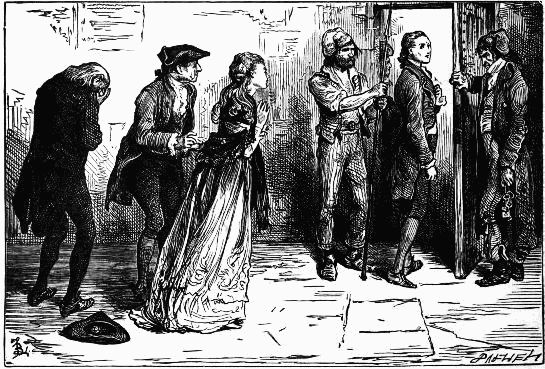
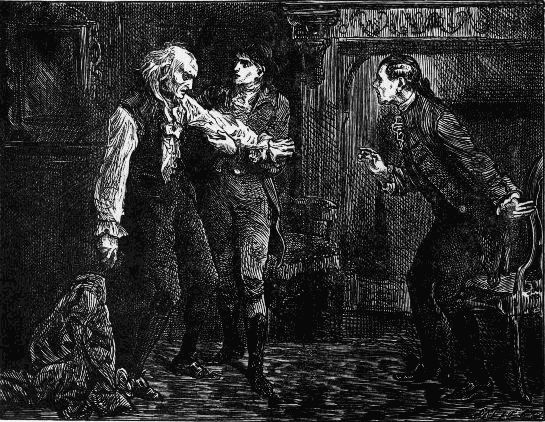 His head and throat were bare, and, as he spoke with helpless look straying all round, he took
his coat off, and let it drop on the floor—Book 3, chap. xii.
His head and throat were bare, and, as he spoke with helpless look straying all round, he took
his coat off, and let it drop on the floor—Book 3, chap. xii.
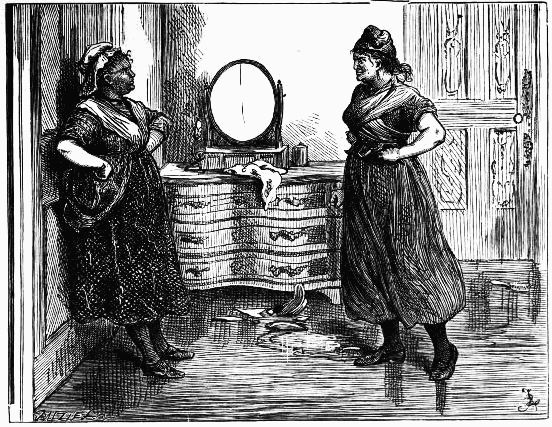 "You might, from your appearance, be the wife of Lucifer," said Miss Pross in her breathing.
"Nevertheless you shall not get the better of me. I am an Englishwoman"—Book 3, chap. xiv.
"You might, from your appearance, be the wife of Lucifer," said Miss Pross in her breathing.
"Nevertheless you shall not get the better of me. I am an Englishwoman"—Book 3, chap. xiv.
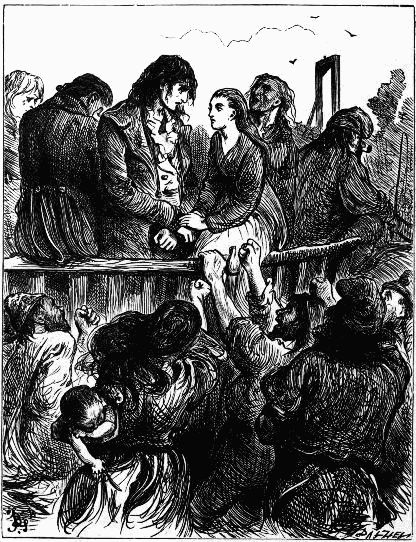 The third tumbrel—Book 3, chap. xv.
The third tumbrel—Book 3, chap. xv.
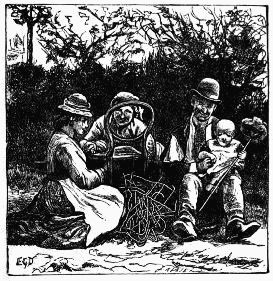
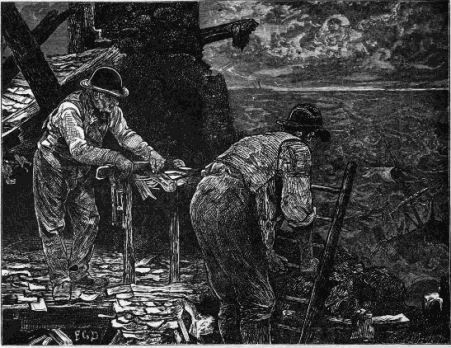
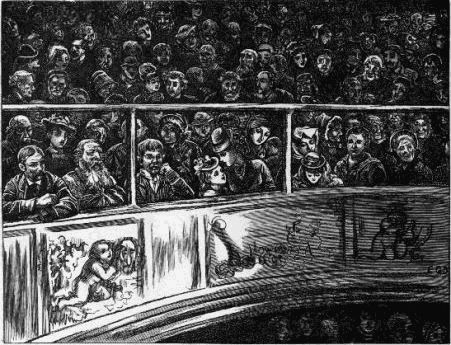 A cheap theatre, Sunday night—Two Views of a Cheap Theatre
A cheap theatre, Sunday night—Two Views of a Cheap Theatre
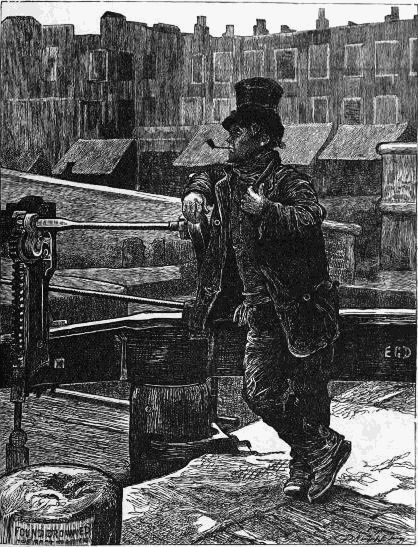 Stood a creature remotely in the likeness of a young man, with puffed,
sallow face, and a figure all dirty and shiny and slimy, who may have
been the youngest son of his filthy old father, Thames—Wapping Workhouse
Stood a creature remotely in the likeness of a young man, with puffed,
sallow face, and a figure all dirty and shiny and slimy, who may have
been the youngest son of his filthy old father, Thames—Wapping Workhouse
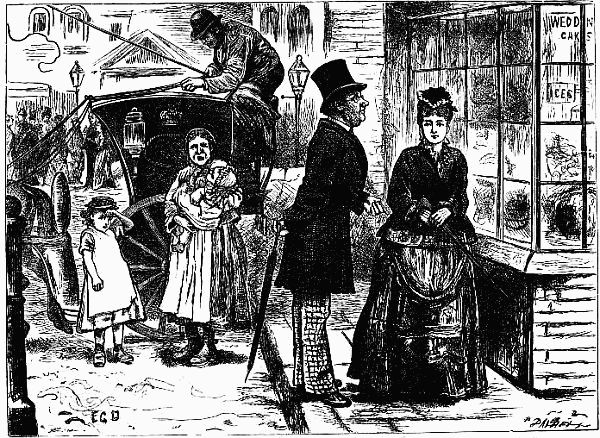 Mr. Grazinglands looked into a pastrycook's window, hesitating as to the expediency of lunching at that establishment—Refreshments for Travellers
Mr. Grazinglands looked into a pastrycook's window, hesitating as to the expediency of lunching at that establishment—Refreshments for Travellers
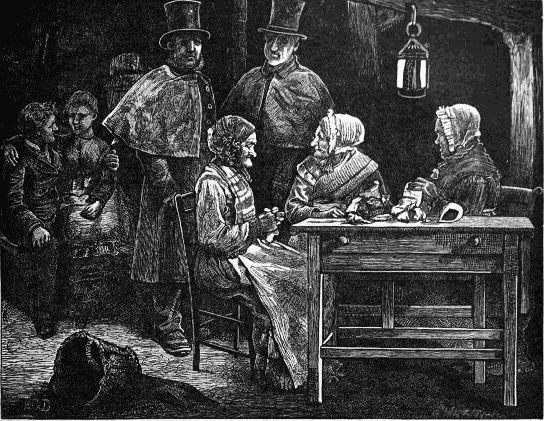
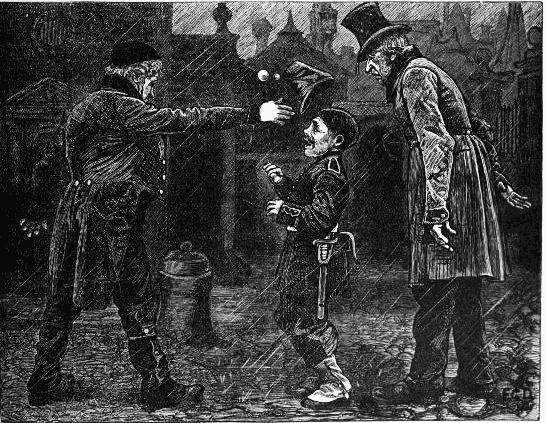 The tall glazed head-dress of his warrior Straudenheim instantly knocked off—Travelling Abroad
The tall glazed head-dress of his warrior Straudenheim instantly knocked off—Travelling Abroad
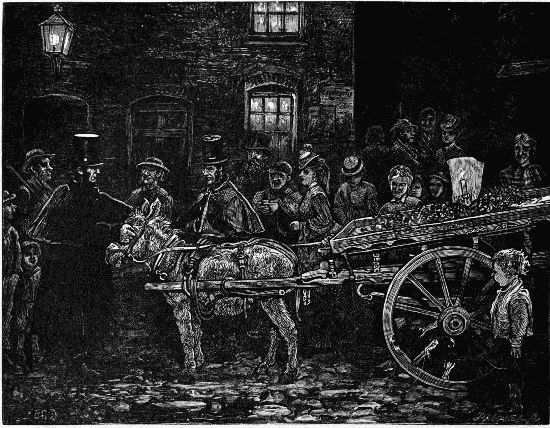
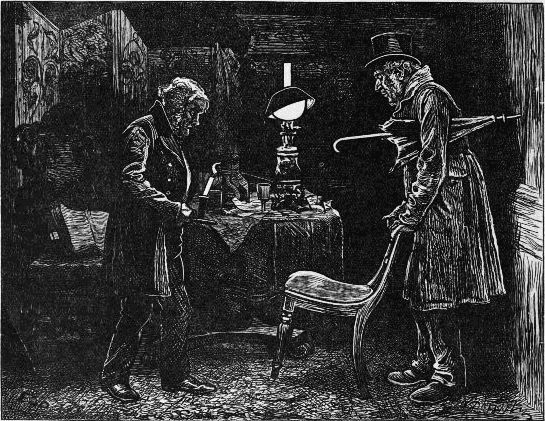 "Drop of something to drink," interposed the stranger. "I am agreeable"—Chambers
"Drop of something to drink," interposed the stranger. "I am agreeable"—Chambers
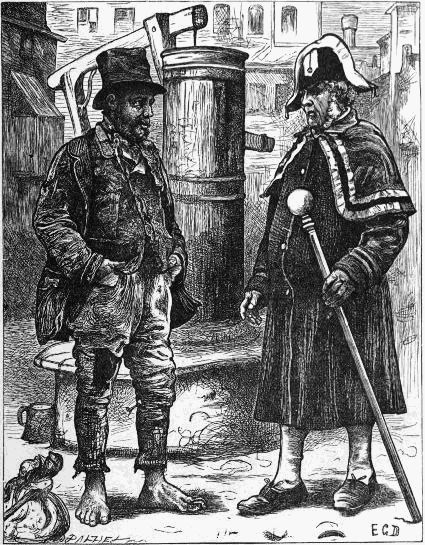 "'Then you're a tramp,' he ses. 'I'd rather be that than a beadle,' I ses"—Tramps
"'Then you're a tramp,' he ses. 'I'd rather be that than a beadle,' I ses"—Tramps
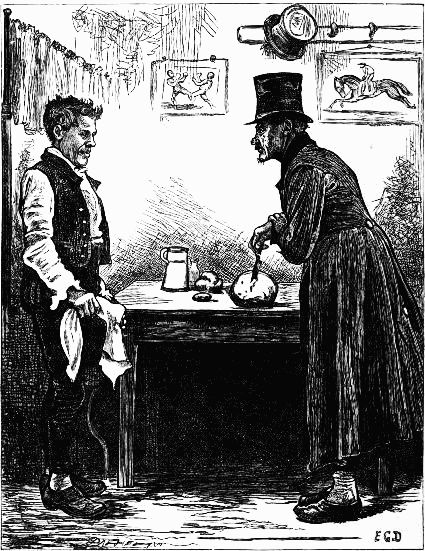 "Am I red to-night?" "You are," he uncompromisingly answered—Night Walks
"Am I red to-night?" "You are," he uncompromisingly answered—Night Walks
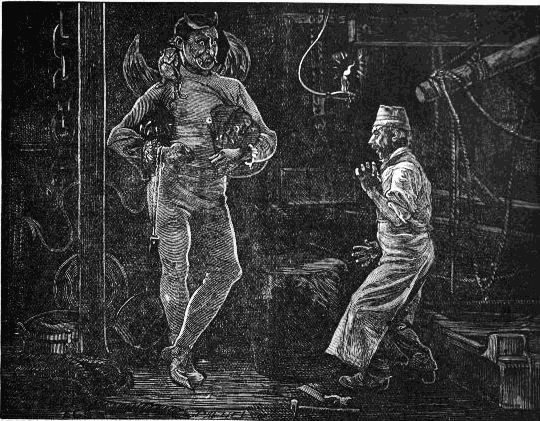
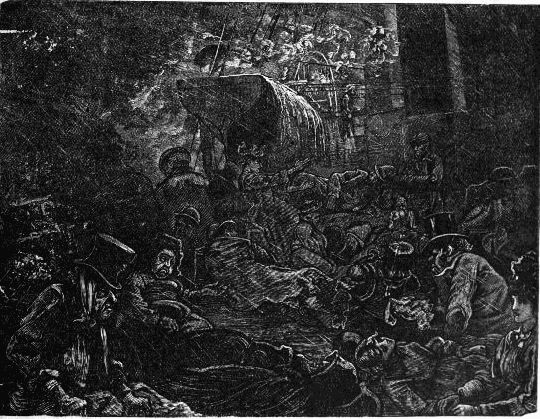 The wind blows stiffly from the nor'-east . . . and the shapeless passengers lie about in
melancholy bundles—The Calais Night Mail
The wind blows stiffly from the nor'-east . . . and the shapeless passengers lie about in
melancholy bundles—The Calais Night Mail
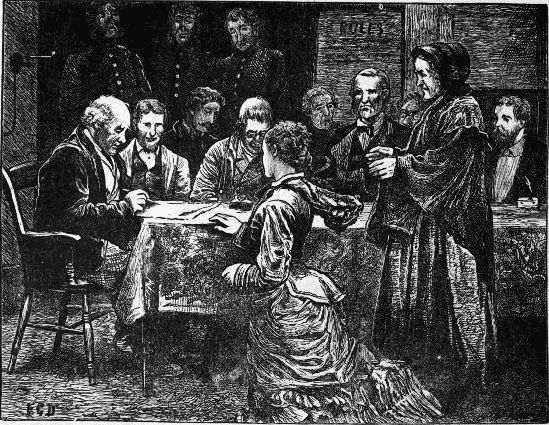
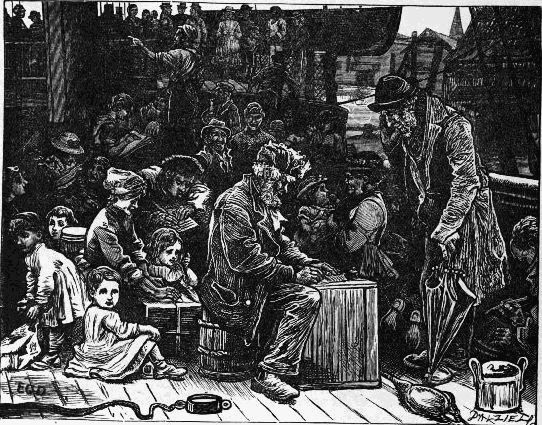 On the starboard side of the ship a grizzled man dictated a long letter to another grizzled
man in an immense fur cap—Bound for the Great Salt Lake
On the starboard side of the ship a grizzled man dictated a long letter to another grizzled
man in an immense fur cap—Bound for the Great Salt Lake
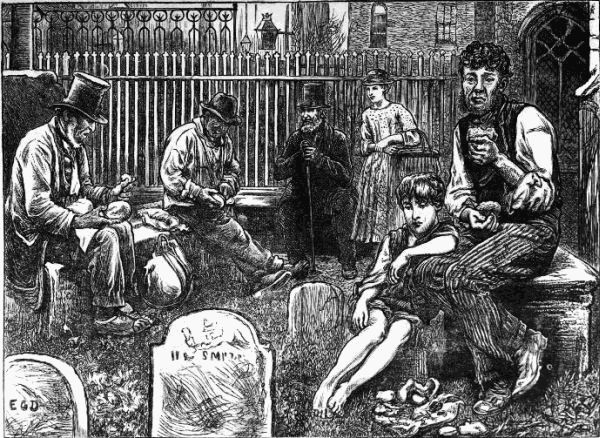 Blinking old men who are let out of the workhouse by the hour have a tendency to sit on bits of coping stone in these
churchyards . . . the more depressed class of beggars too bring hither broken meals, and munch—The City of the Absent
Blinking old men who are let out of the workhouse by the hour have a tendency to sit on bits of coping stone in these
churchyards . . . the more depressed class of beggars too bring hither broken meals, and munch—The City of the Absent
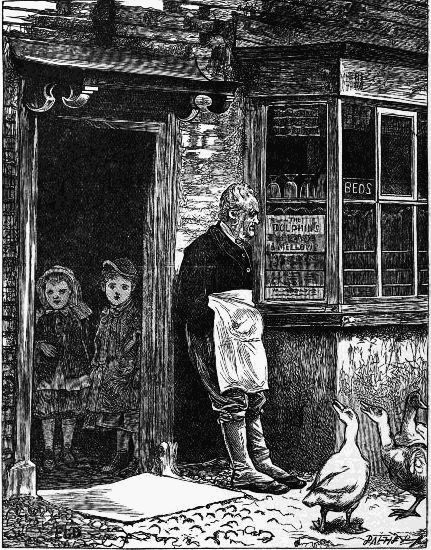 Mr. J. Mellows, of the "Dolphin's Head"—An old Stage-coaching House
Mr. J. Mellows, of the "Dolphin's Head"—An old Stage-coaching House
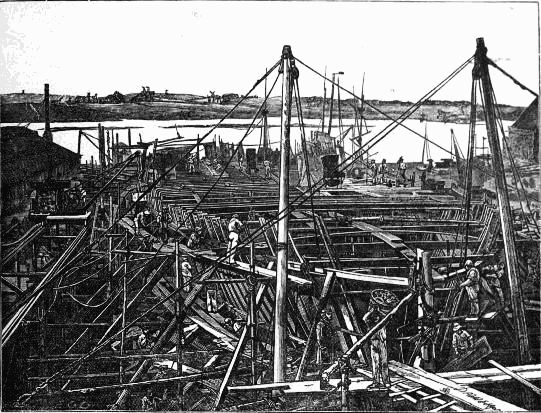
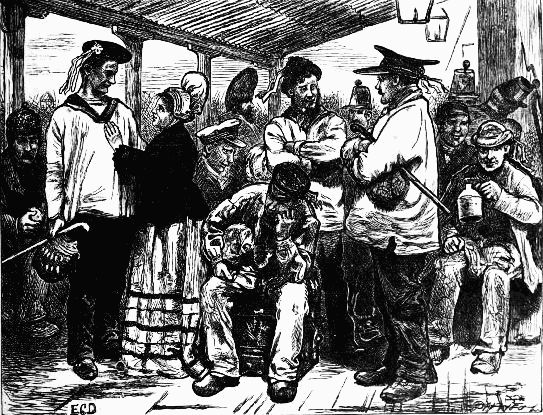 At the station they had been sitting about in their threadbare homespun garments . . . sad enough
at heart, most of them—In the French-Flemish Country
At the station they had been sitting about in their threadbare homespun garments . . . sad enough
at heart, most of them—In the French-Flemish Country
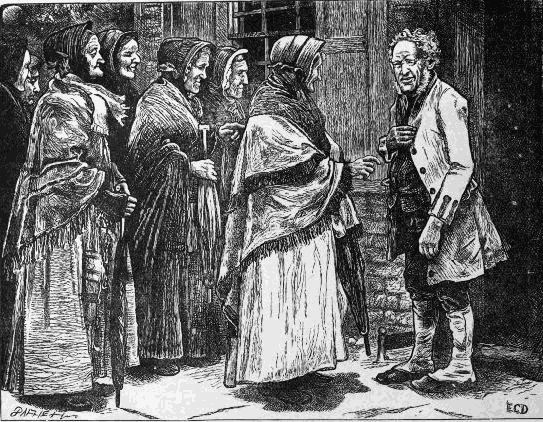
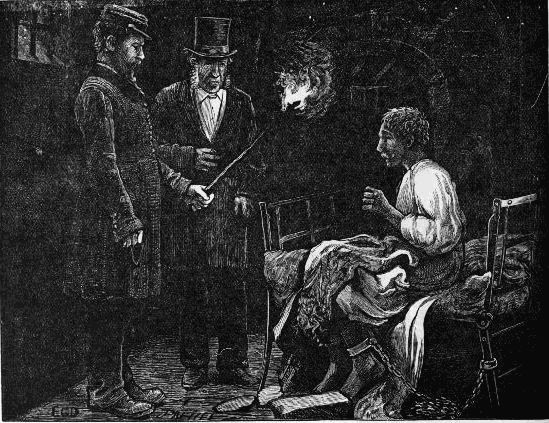 At the upper end of this dungeon . . . the Englishman first beheld him, sitting on an iron bedstead,
to which he was chained by a heavy chain—The Italian Prisoner
At the upper end of this dungeon . . . the Englishman first beheld him, sitting on an iron bedstead,
to which he was chained by a heavy chain—The Italian Prisoner
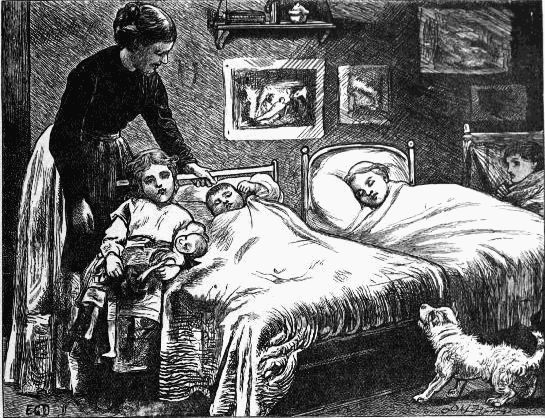
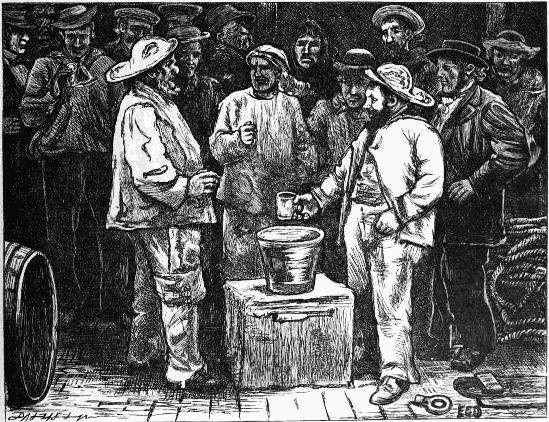 Over the grog, mixed in a bucket, presides the boatswain's mate—Aboard Ship
Over the grog, mixed in a bucket, presides the boatswain's mate—Aboard Ship
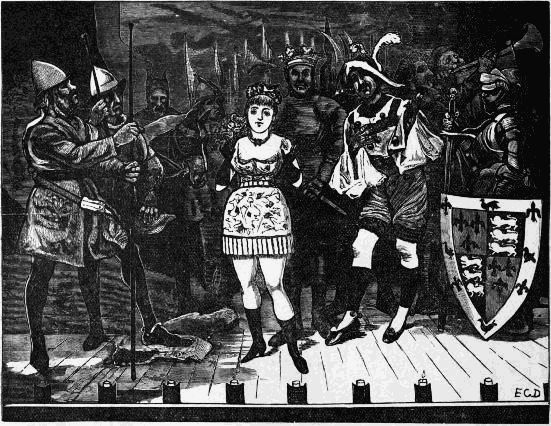
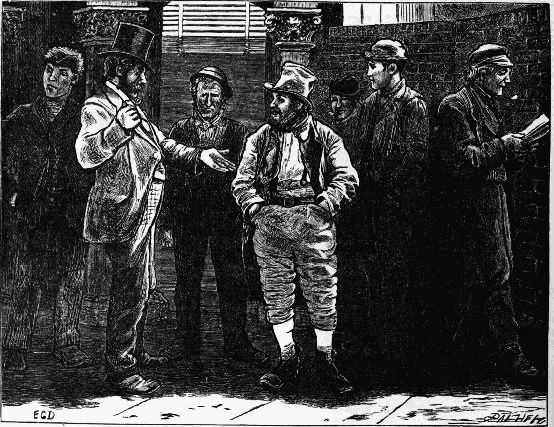 Look at this group at a street corner—The Ruffian
Look at this group at a street corner—The Ruffian
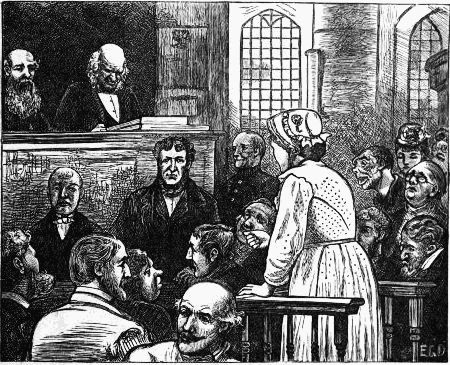 And White Riding Hood was fined ten shillings—The Ruffian
And White Riding Hood was fined ten shillings—The Ruffian
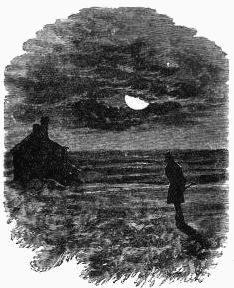
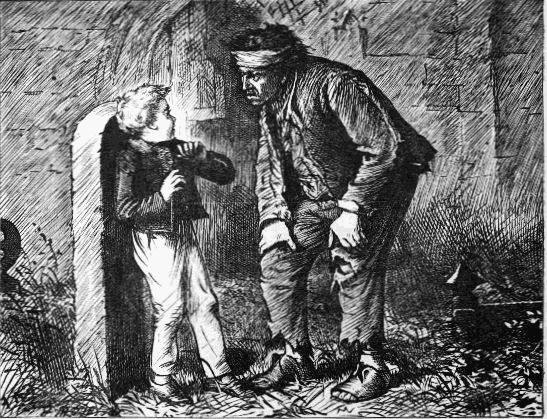
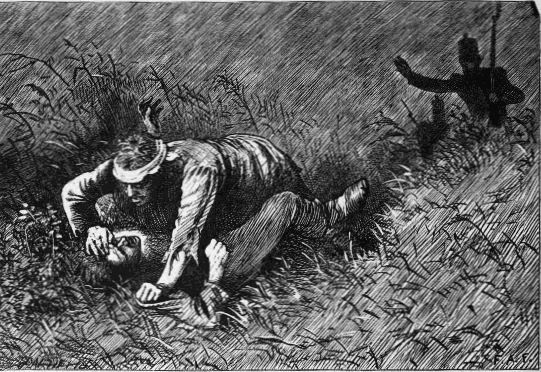 The sergeant ran in first—Chap. v.
The sergeant ran in first—Chap. v.
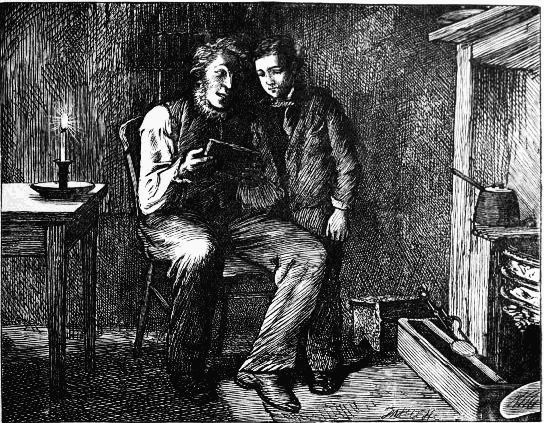
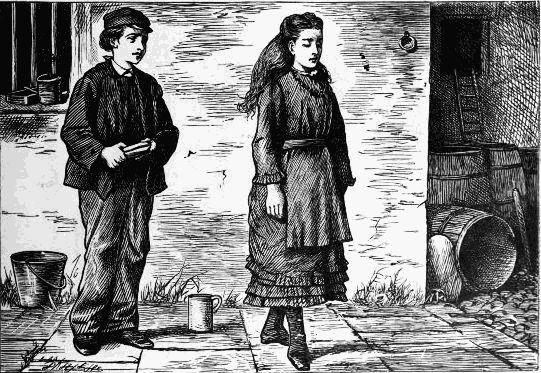 She gave a contemptuous toss . . . and left me—Chap. viii.
She gave a contemptuous toss . . . and left me—Chap. viii.
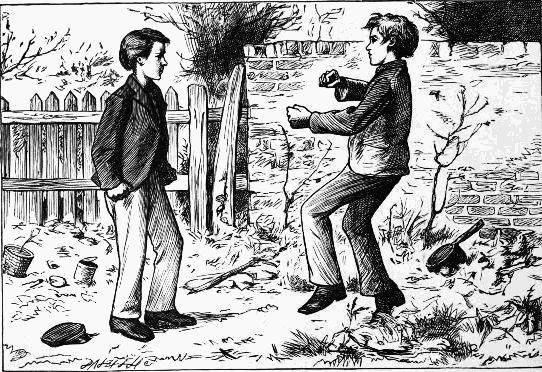
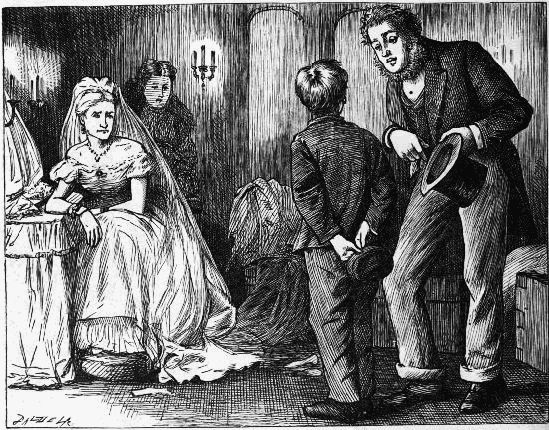 "Well, Pip, you know, . . . you yourself see me put 'em in my 'at, and therefore you know as they
are here"—Chap. xiii.
"Well, Pip, you know, . . . you yourself see me put 'em in my 'at, and therefore you know as they
are here"—Chap. xiii.
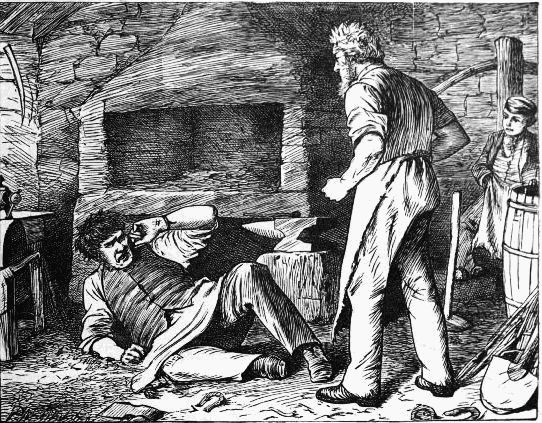
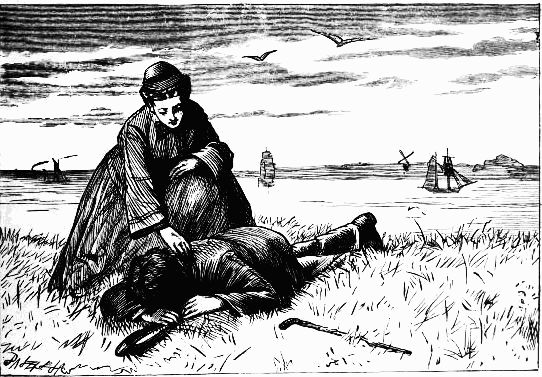 Then she softly patted my shoulder in a soothing way—Chap. xvii.
Then she softly patted my shoulder in a soothing way—Chap. xvii.
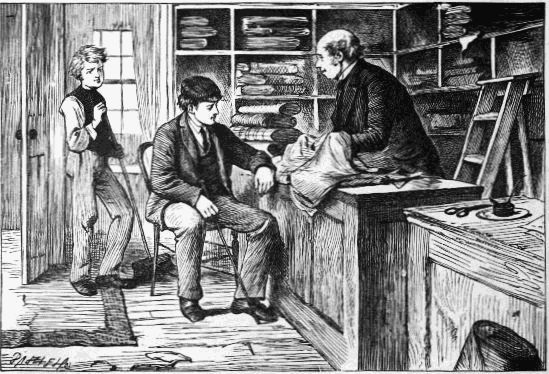
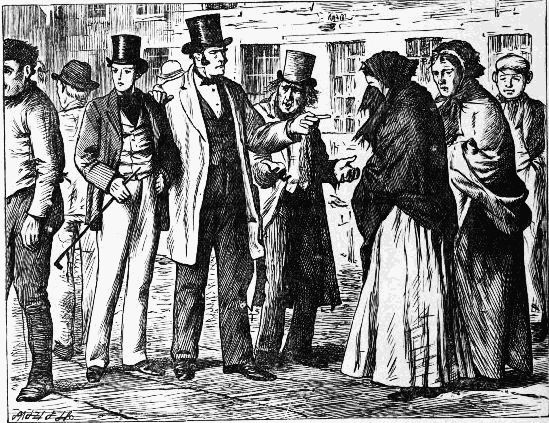 "Say another word—one single word—and Wemmick shall give you your money back"—Chap. xx.
"Say another word—one single word—and Wemmick shall give you your money back"—Chap. xx.
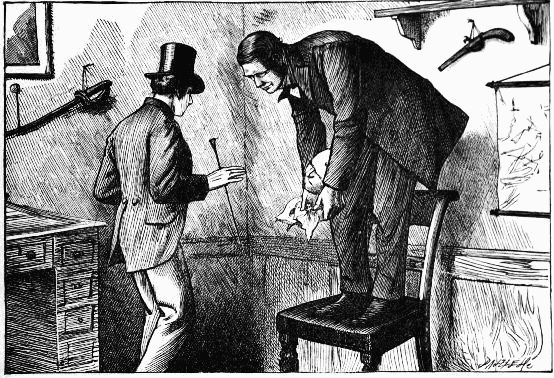
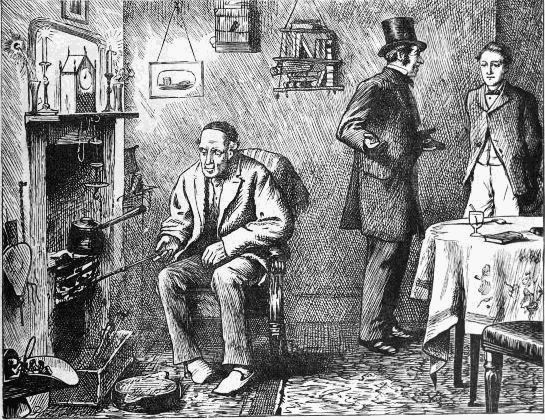 We found the aged heating the poker, with expectant eyes—Chap. xxv.
We found the aged heating the poker, with expectant eyes—Chap. xxv.
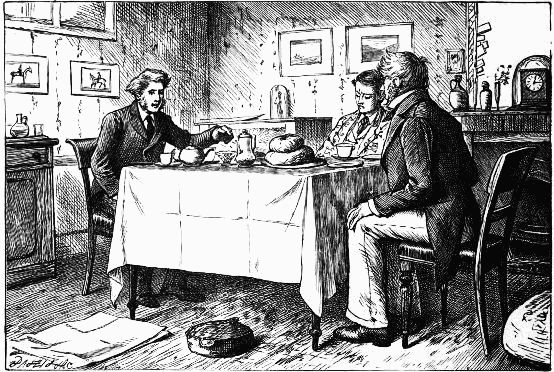
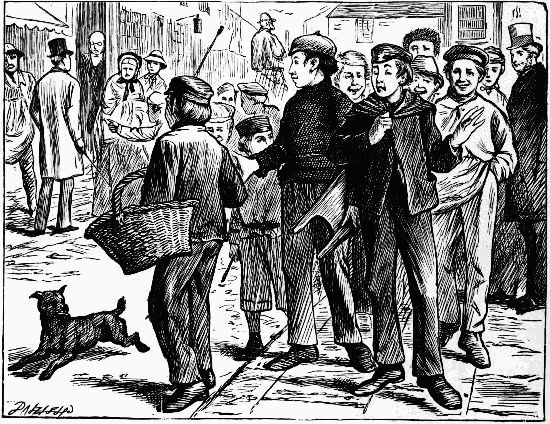 Drawling to his attendants, "Don't know yah, don't know yah!"—Chap. xxx
Drawling to his attendants, "Don't know yah, don't know yah!"—Chap. xxx
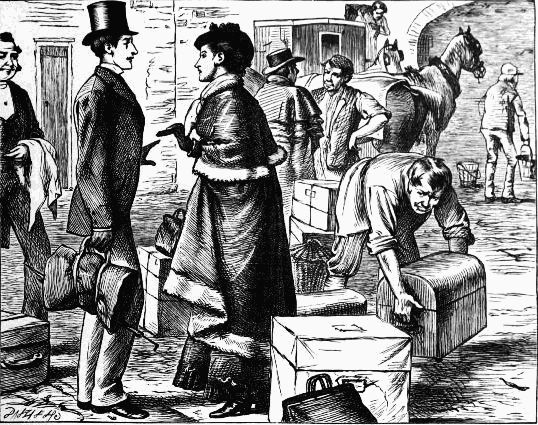
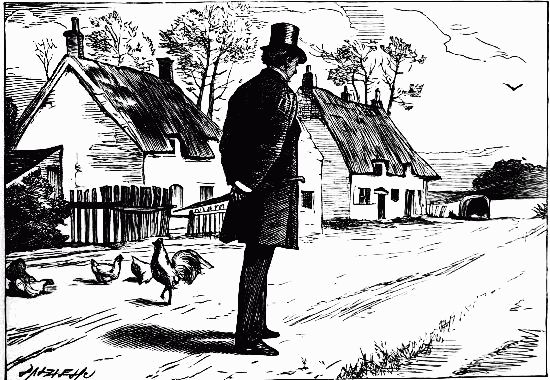 It was fine summer weather again—Chap. xxxv.
It was fine summer weather again—Chap. xxxv.
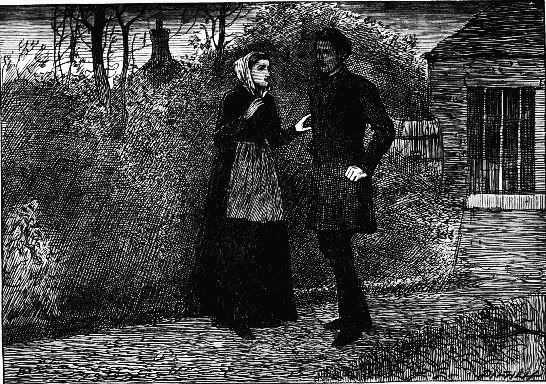
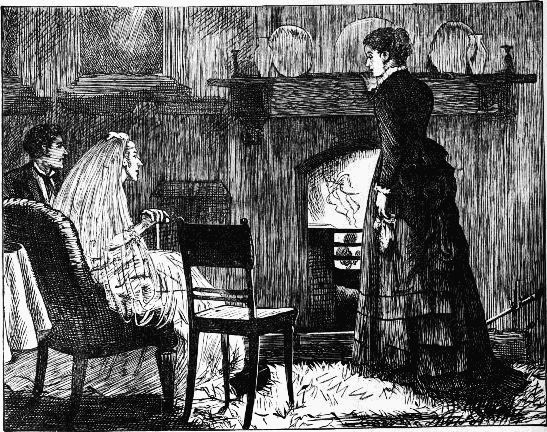 "What!" said Estella, preserving her attitude of indifference as she leaned against the great
chimney-piece, and only moving her eyes, "Do you reproach me for being cold! You!"—Chap. xxxviii.
"What!" said Estella, preserving her attitude of indifference as she leaned against the great
chimney-piece, and only moving her eyes, "Do you reproach me for being cold! You!"—Chap. xxxviii.
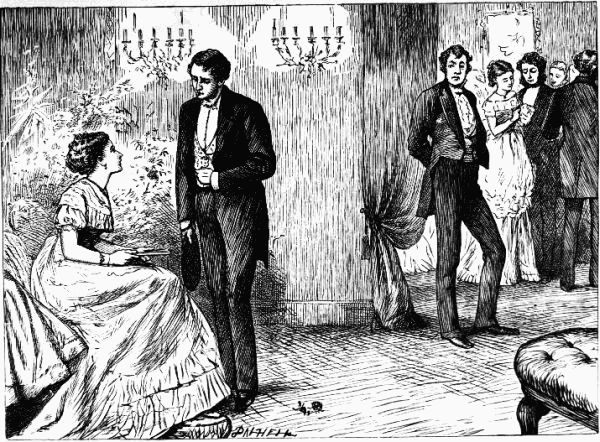 "Why should I look at him?" returned Estella—Chap. xxxviii.
"Why should I look at him?" returned Estella—Chap. xxxviii.
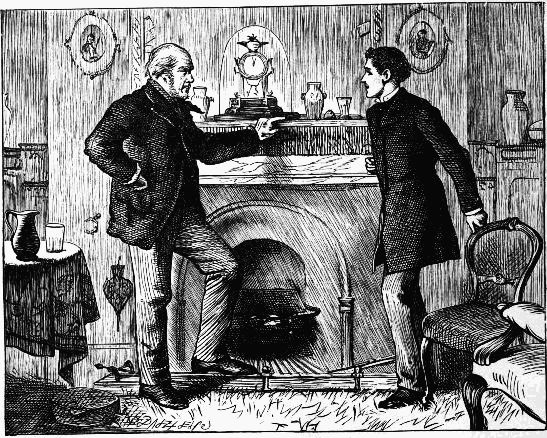
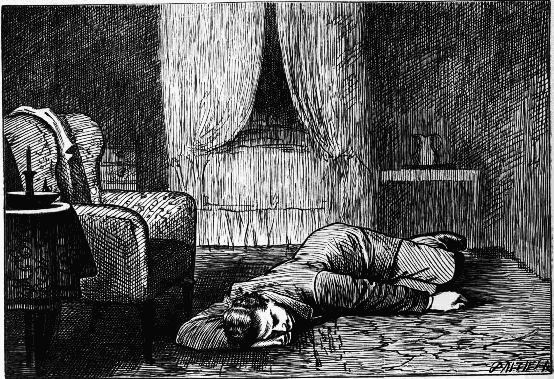 Gradually I slipped from the chair, and lay on the floor—Chap. xl.
Gradually I slipped from the chair, and lay on the floor—Chap. xl.
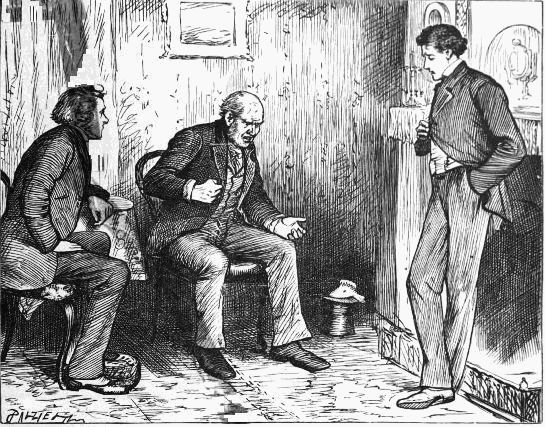
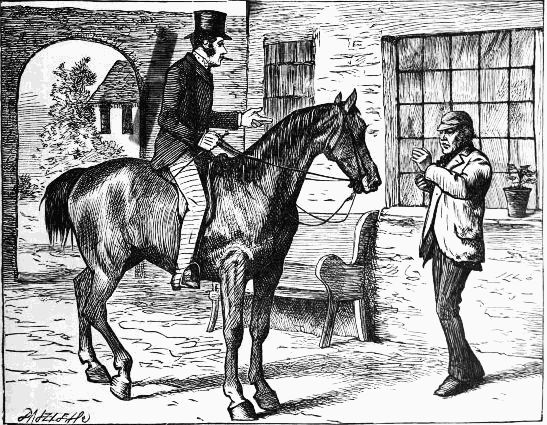 He came back calling for a light for the cigar in his mouth, which he had forgotten. A man
in a dust-coloured dress appeared with what he wanted—Chap. xliii.
He came back calling for a light for the cigar in his mouth, which he had forgotten. A man
in a dust-coloured dress appeared with what he wanted—Chap. xliii.
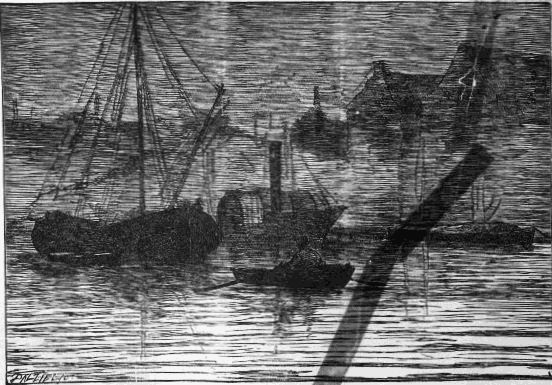
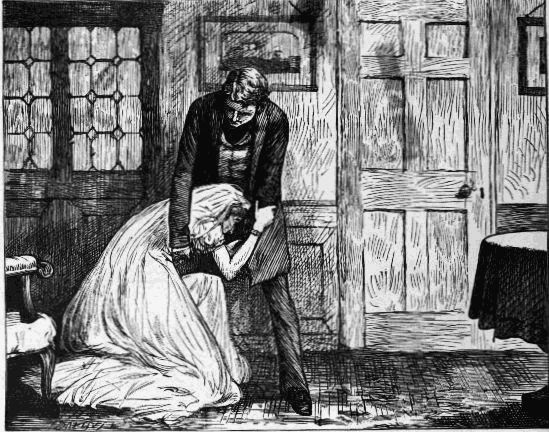 I entreated her to rise—Chap. xlix.
I entreated her to rise—Chap. xlix.
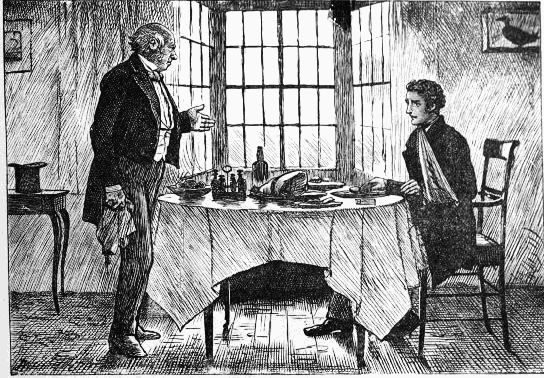
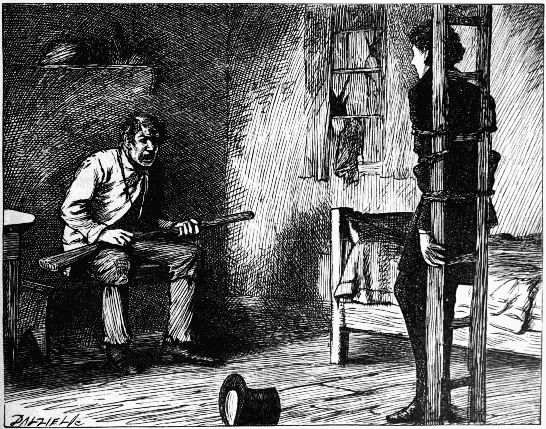 "Do you know this!" said he—Chap. liii.
"Do you know this!" said he—Chap. liii.
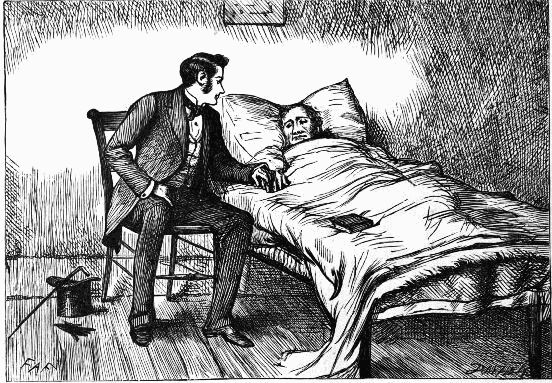
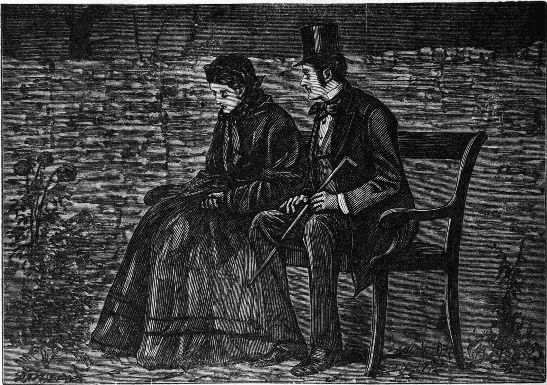 We sat down on a bench that was near—Chap. lix.
We sat down on a bench that was near—Chap. lix.
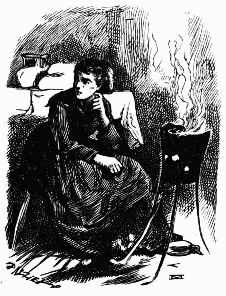
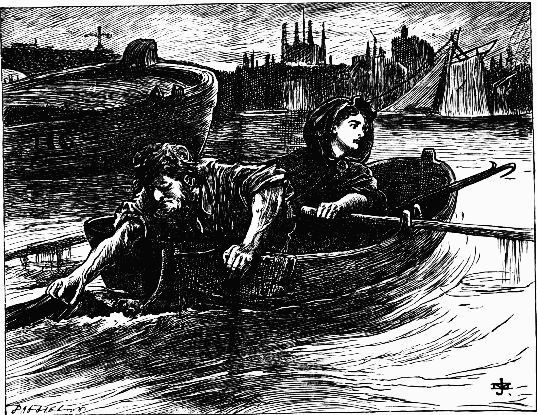
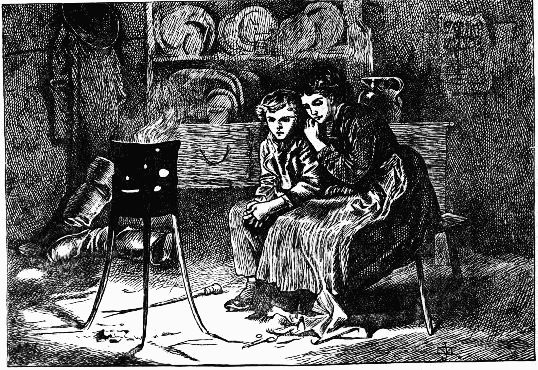 "Show us a picture," said the boy. "Tell us where to look!"—Chap. iii.
"Show us a picture," said the boy. "Tell us where to look!"—Chap. iii.
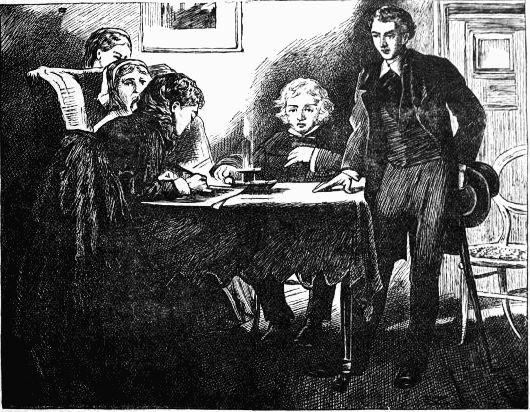
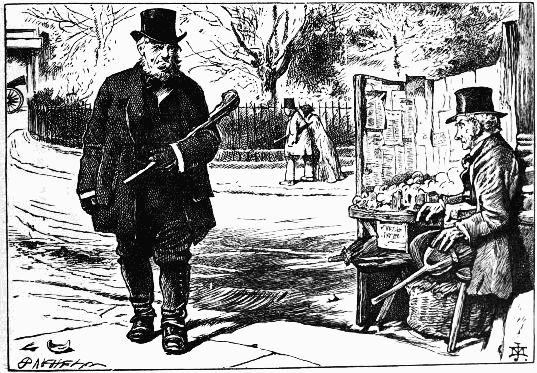 "Here you are again," repeated Mr. Wegg, musing. "And what are you now?"—Chap. v
"Here you are again," repeated Mr. Wegg, musing. "And what are you now?"—Chap. v
.
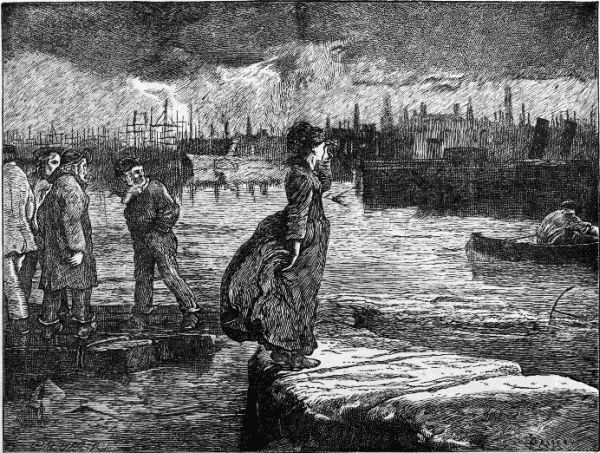 Lizzie, looking for her father, saw him coming, and stood upon the causeway that he might see her—Chap. vi.
Lizzie, looking for her father, saw him coming, and stood upon the causeway that he might see her—Chap. vi.
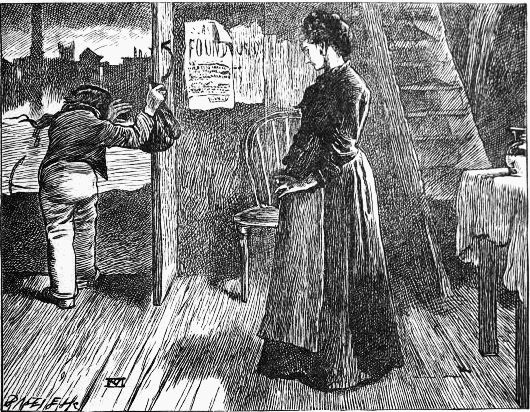
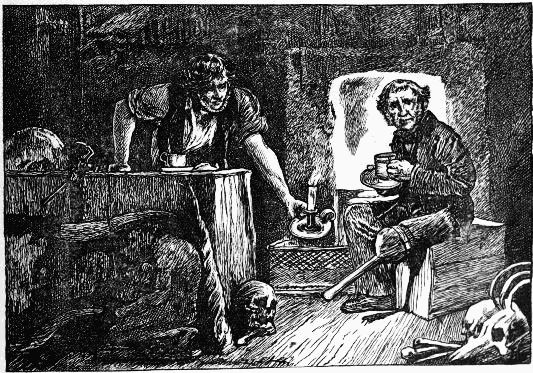 "You're casting your eyes round the shop, Mr. Wegg. Let me show you a light"—Chap. vii.
"You're casting your eyes round the shop, Mr. Wegg. Let me show you a light"—Chap. vii.
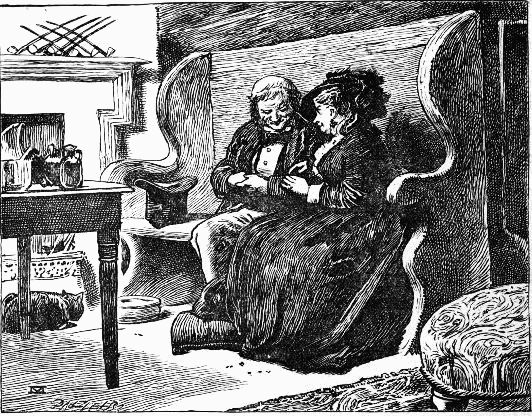
 That he knew it as well as she, she knew as well as he, when they were left together standing
on the path by the garden-gate—Chap. ix.
That he knew it as well as she, she knew as well as he, when they were left together standing
on the path by the garden-gate—Chap. ix.
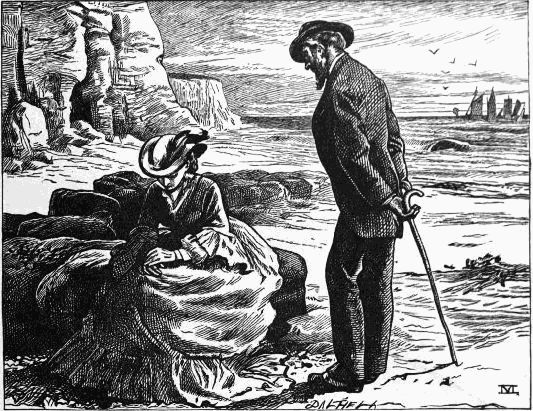
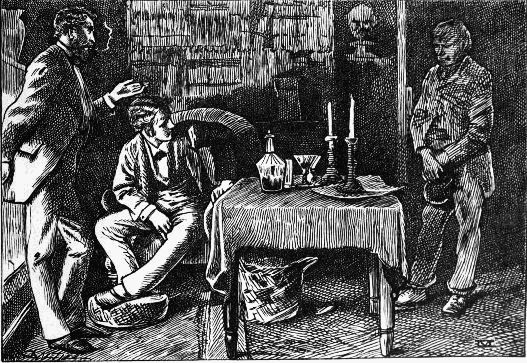 "Apparently one of the Ghosts has lost its way, and dropped in to be directed. Look at this
Phantom!"—Chap. xii.
"Apparently one of the Ghosts has lost its way, and dropped in to be directed. Look at this
Phantom!"—Chap. xii.
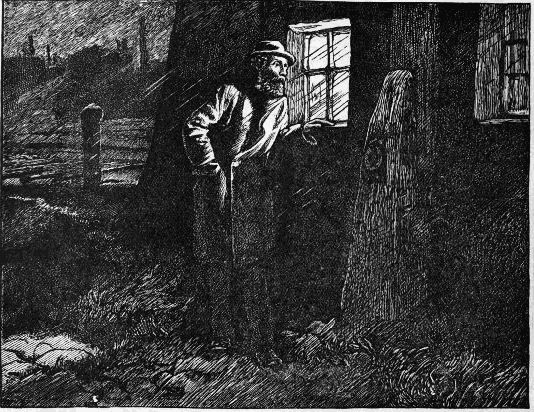
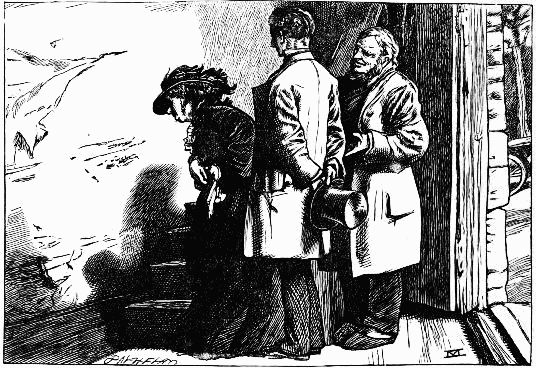 They had opened the door at the bottom of the staircase giving on the yard, and they stood in
the sun-light looking at the scrawl of the two unsteady childish hands two or three steps up
the staircase—Chap. xv.
They had opened the door at the bottom of the staircase giving on the yard, and they stood in
the sun-light looking at the scrawl of the two unsteady childish hands two or three steps up
the staircase—Chap. xv.
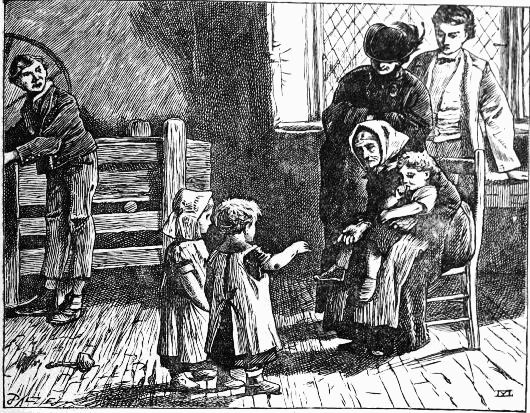
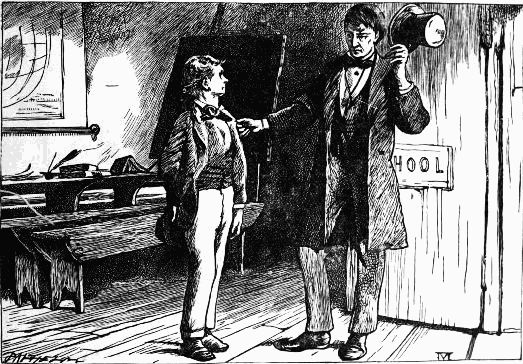 Mr. Bradley Headstone, highly certificated stipendiary schoolmaster, drew his right fore-finger
through one of the button-holes of the boy's coat, and looked at it attentively—Book 2, chap. i.
Mr. Bradley Headstone, highly certificated stipendiary schoolmaster, drew his right fore-finger
through one of the button-holes of the boy's coat, and looked at it attentively—Book 2, chap. i.
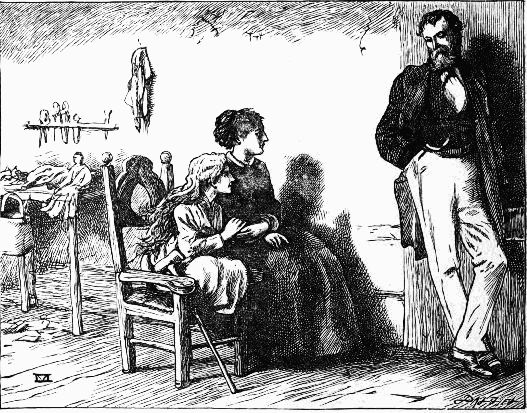
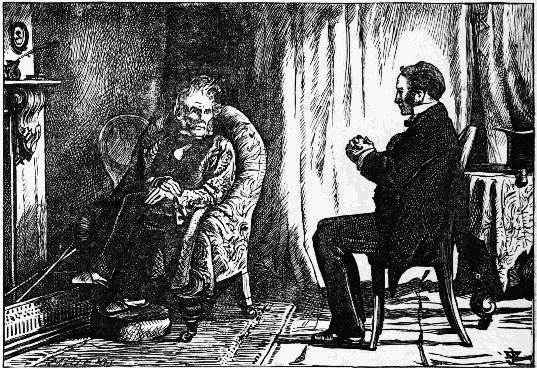 "One thing, however, I can do for you," says Twemlow, "and that is, work for you." Veneering
blessed him again—Book 2, chap. iii.
"One thing, however, I can do for you," says Twemlow, "and that is, work for you." Veneering
blessed him again—Book 2, chap. iii.
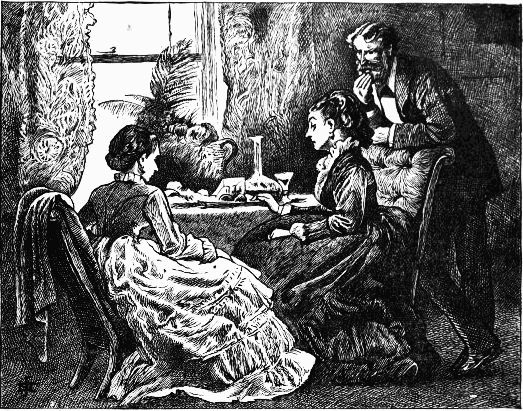
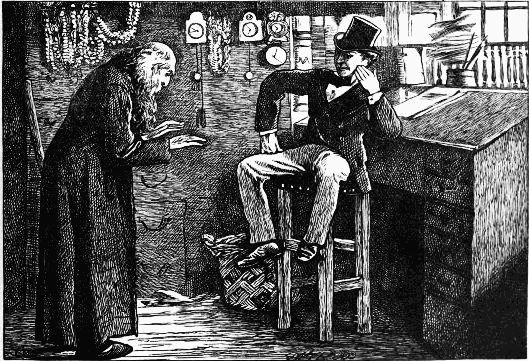 Perched on the stool, with his hat cocked on his head, and one of his legs dangling, the youth of
Fledgeby hardly contrasted to advantage with the age of the Jewish man as he stood with his
bare head bowed—Book 2, chap. v.
Perched on the stool, with his hat cocked on his head, and one of his legs dangling, the youth of
Fledgeby hardly contrasted to advantage with the age of the Jewish man as he stood with his
bare head bowed—Book 2, chap. v.
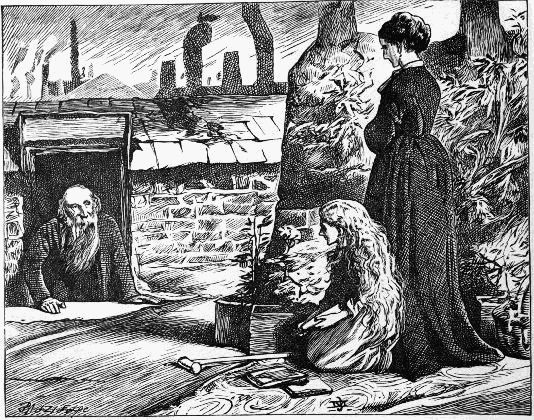
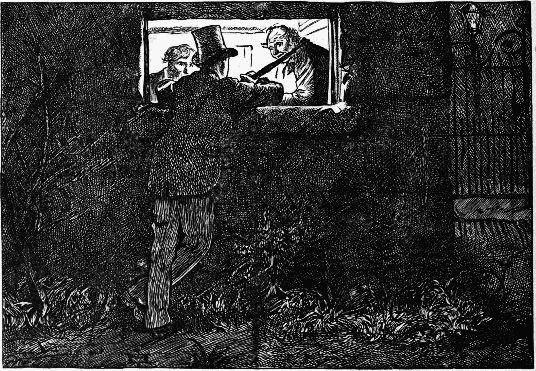 "Good evening, Mr. Wegg. The yard-gate lock should be looked to, if you please; it don't catch"—Book 2, chap. vii.
"Good evening, Mr. Wegg. The yard-gate lock should be looked to, if you please; it don't catch"—Book 2, chap. vii.
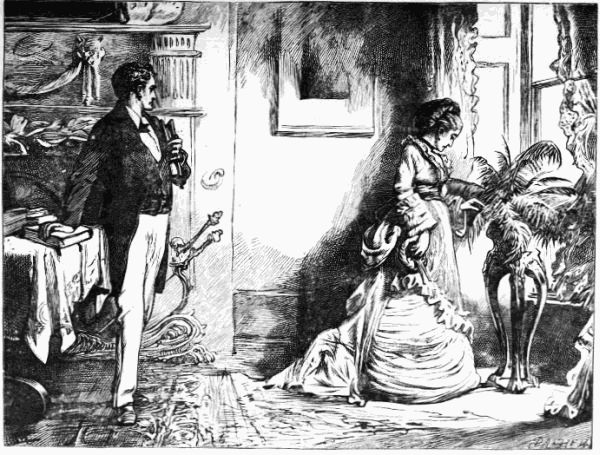 "You never charge me, Miss Wilfer," said the secretary, encountering her by chance alone in the great drawing-room, "with
commissions for home. I shall always be happy to execute any commands you may have in that direction"—Book 2, chap. viii.
"You never charge me, Miss Wilfer," said the secretary, encountering her by chance alone in the great drawing-room, "with
commissions for home. I shall always be happy to execute any commands you may have in that direction"—Book 2, chap. viii.
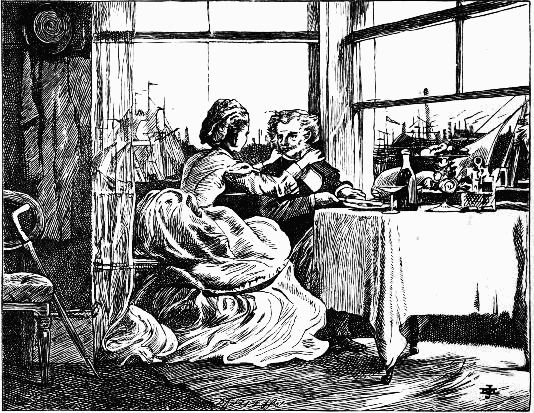
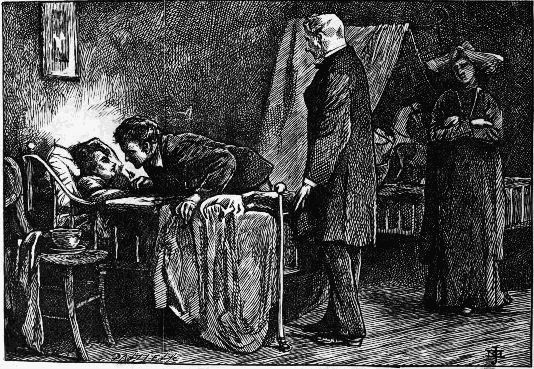 "A kiss for the boofer lady"—Book 2, chap. ix.
"A kiss for the boofer lady"—Book 2, chap. ix.
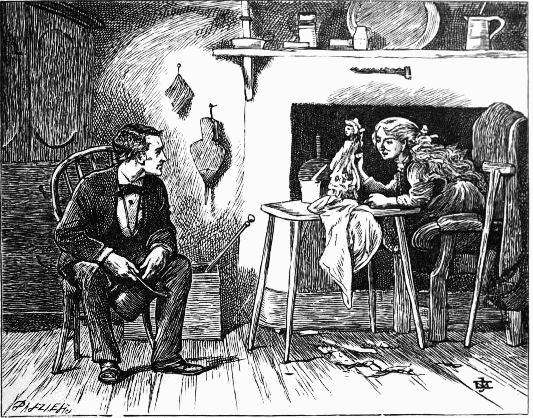
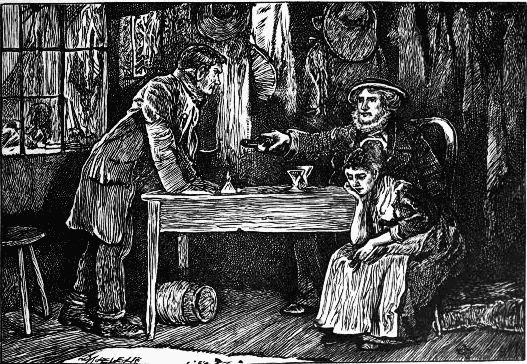 And now, as the man held out the bottle to fill all round, Riderhood stood up, leaned over the
table to look closer at the knife, and stared from it to him—Book 2, chap. xii.
And now, as the man held out the bottle to fill all round, Riderhood stood up, leaned over the
table to look closer at the knife, and stared from it to him—Book 2, chap. xii.
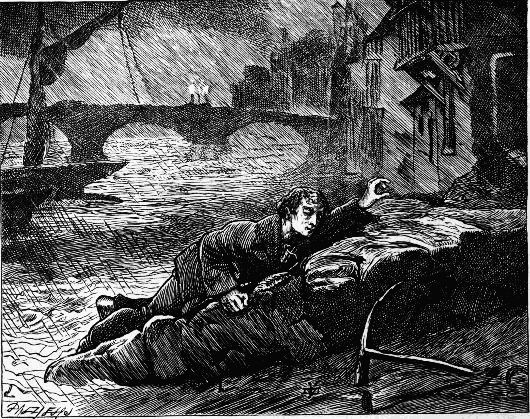
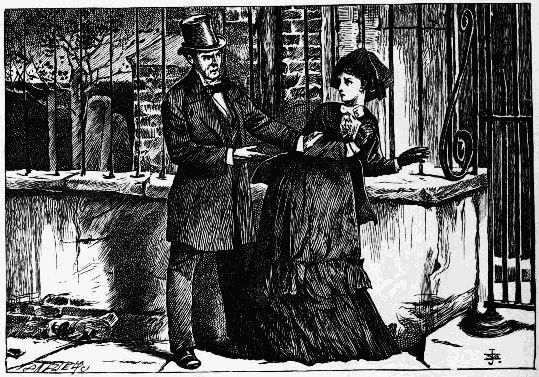 The dark look of hatred and revenge with which the words broke from his livid lips . . . made her
so afraid of him that she turned to run away. But he caught her by the arm—Book 2, chap. xv.
The dark look of hatred and revenge with which the words broke from his livid lips . . . made her
so afraid of him that she turned to run away. But he caught her by the arm—Book 2, chap. xv.
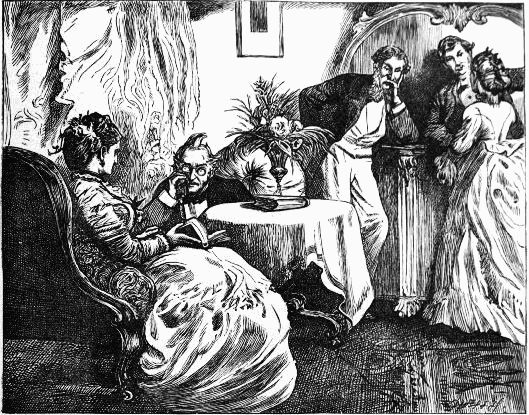
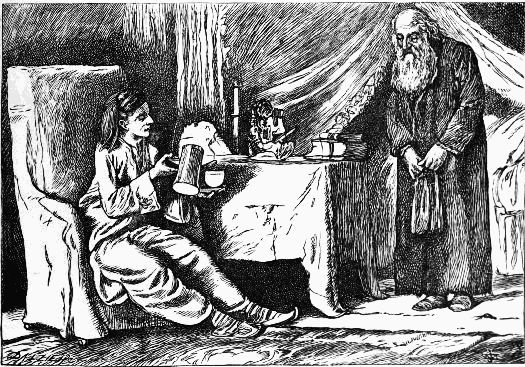 It was an edifying spectacle, the young man in his easy chair taking his coffee, and the old
man, with his grey head bent, standing awaiting his pleasure—Book 3, chap. i.
It was an edifying spectacle, the young man in his easy chair taking his coffee, and the old
man, with his grey head bent, standing awaiting his pleasure—Book 3, chap. i.
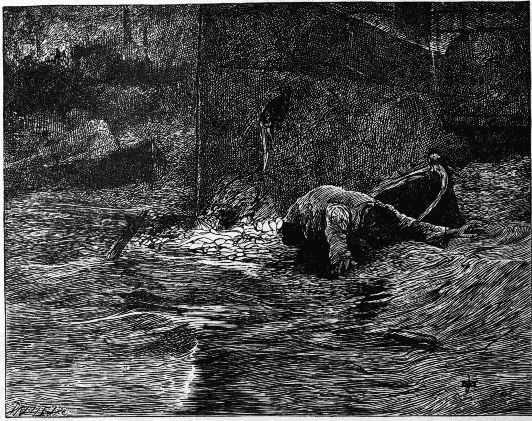
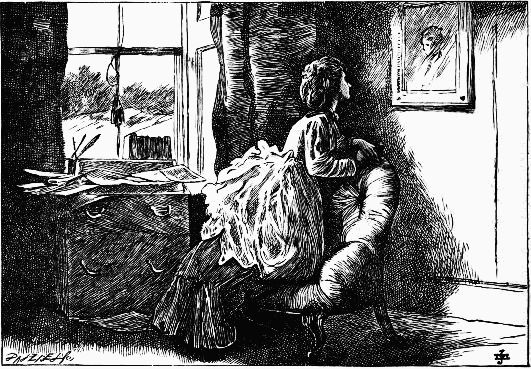 "Oh, indeed, sir! I fancy I can guess whom you think that's like"—Book 3, chap. iv.
"Oh, indeed, sir! I fancy I can guess whom you think that's like"—Book 3, chap. iv.
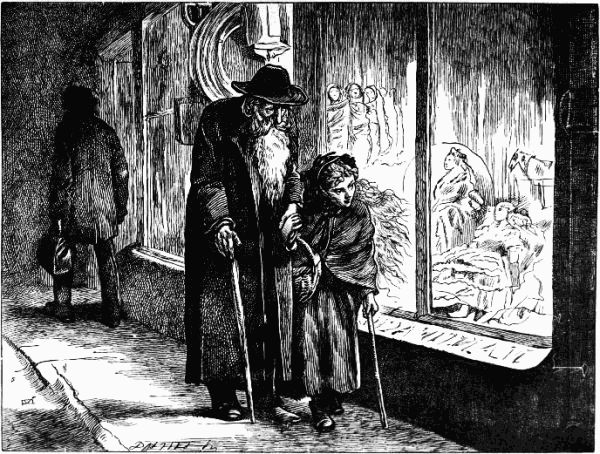 Jenny twisted her venerable friend aside, to a brilliantly lighted toy-shop window, and said, "Now look at 'em! All my
work!"—Book 3, chap. ii.
Jenny twisted her venerable friend aside, to a brilliantly lighted toy-shop window, and said, "Now look at 'em! All my
work!"—Book 3, chap. ii.
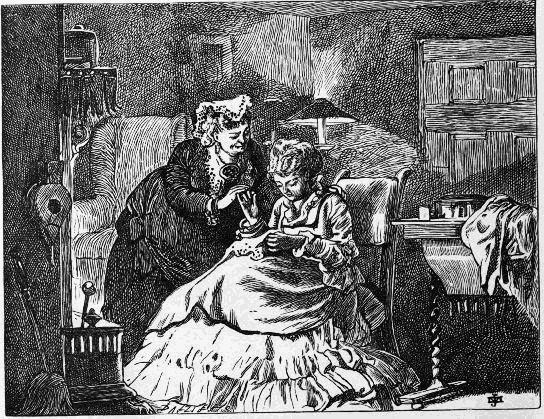
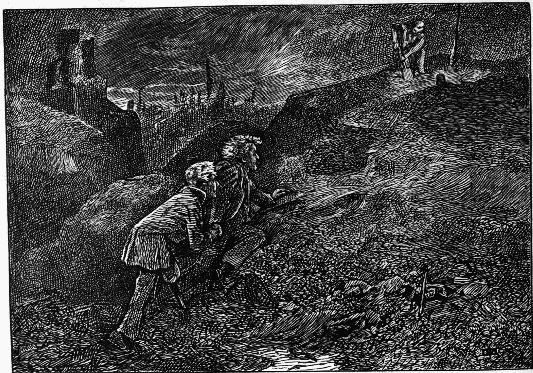 "He can never be going to dig up the pole!" whispered Venus as they dropped low and kept close—Book 3, chap. vi.
"He can never be going to dig up the pole!" whispered Venus as they dropped low and kept close—Book 3, chap. vi.
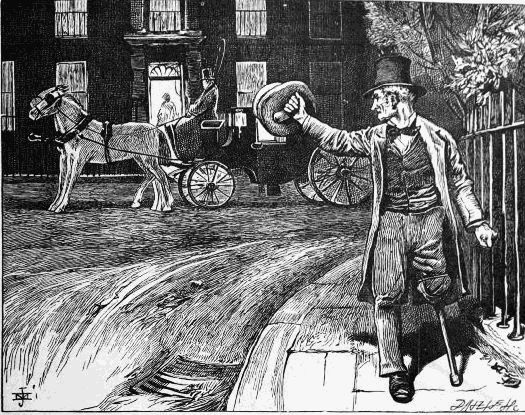
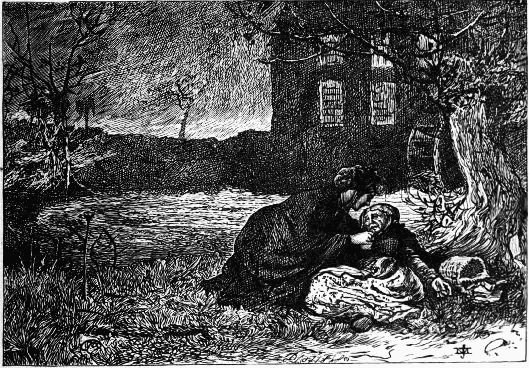 Lizzie Hexham very softly raised the weather-stained grey head, and lifted her as high as heaven—Book 3, chap. viii.
Lizzie Hexham very softly raised the weather-stained grey head, and lifted her as high as heaven—Book 3, chap. viii.
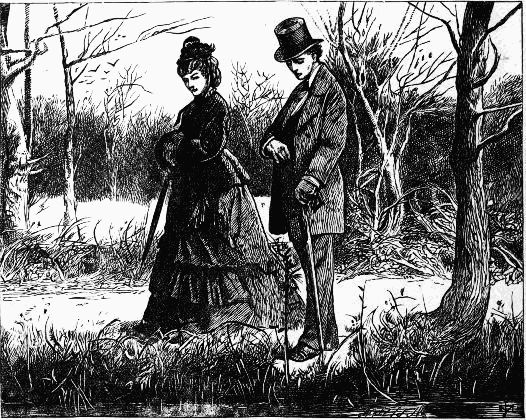
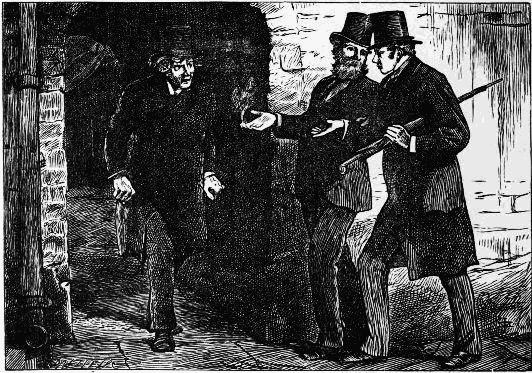 "And you see, as I was saying, Mortimer," remarked Eugene aloud with the utmost coolness, as
though there were no one within hearing but themselves, "and you see, as I was saying—undergoing
grinding torments"—Book 3, chap. x.
"And you see, as I was saying, Mortimer," remarked Eugene aloud with the utmost coolness, as
though there were no one within hearing but themselves, "and you see, as I was saying—undergoing
grinding torments"—Book 3, chap. x.
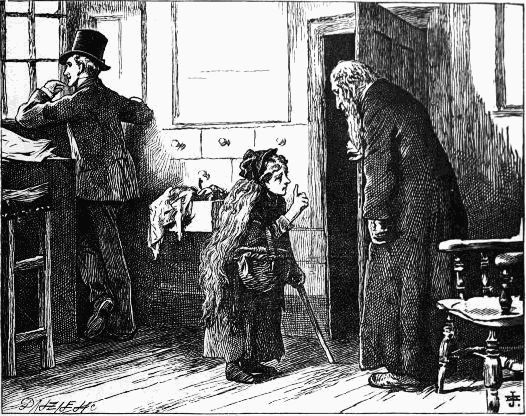
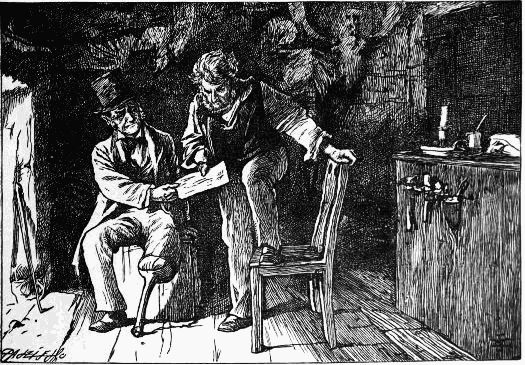 Mr. Venus produced the document, holding on by his usual corner. Mr. Wegg, holding on by the
opposite corner, sat down on the seat so lately vacated by Mr. Boffin, and looked it over—Book 3, chap. xiv.
Mr. Venus produced the document, holding on by his usual corner. Mr. Wegg, holding on by the
opposite corner, sat down on the seat so lately vacated by Mr. Boffin, and looked it over—Book 3, chap. xiv.
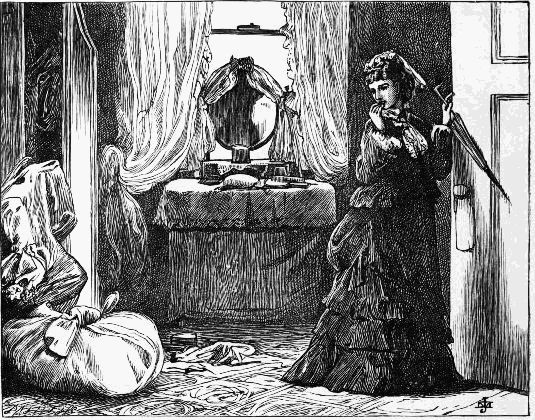
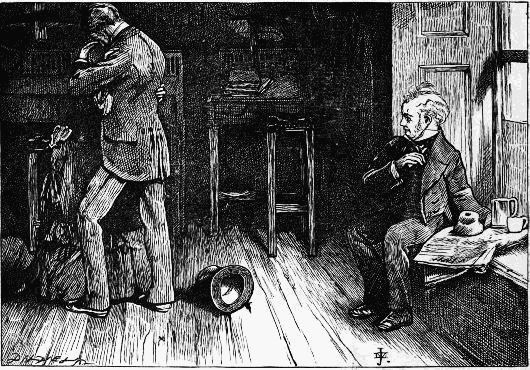 The Cherub, whose hair would have done for itself under the influence of this amazing spectacle,
what Bella had just now done for it, staggered back into the window seat from which he had
risen, and surveyed the pair with his eyes dilated to their utmost—Book 3, chap. xvi.
The Cherub, whose hair would have done for itself under the influence of this amazing spectacle,
what Bella had just now done for it, staggered back into the window seat from which he had
risen, and surveyed the pair with his eyes dilated to their utmost—Book 3, chap. xvi.
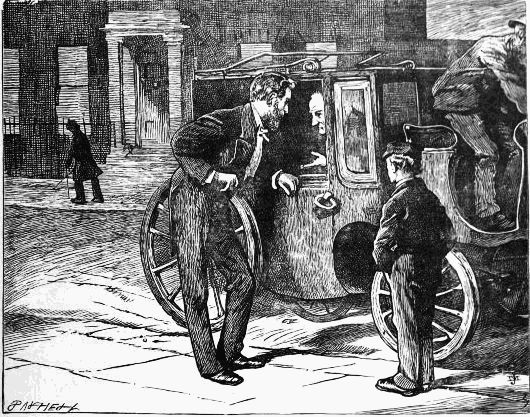
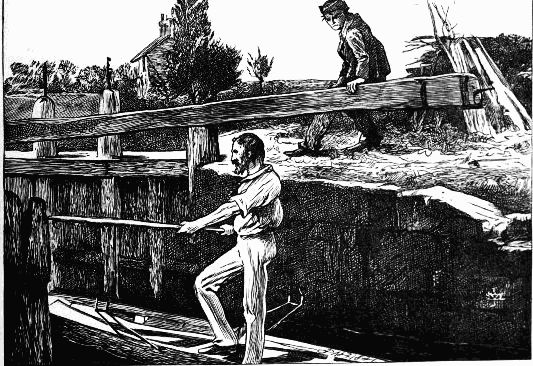 Rogue Riderhood recognised his "t'other governor," Mr. Eugene Wrayburn—Book 4, Chap. i.
Rogue Riderhood recognised his "t'other governor," Mr. Eugene Wrayburn—Book 4, Chap. i.
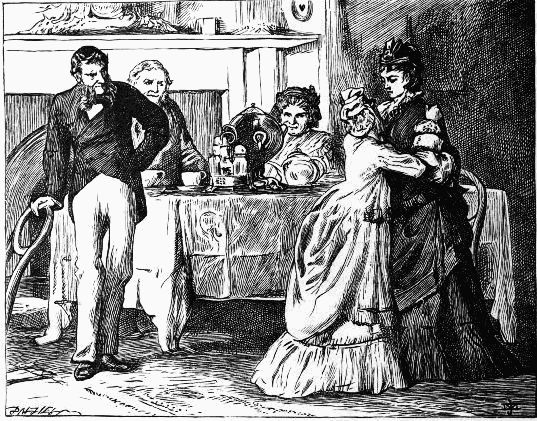
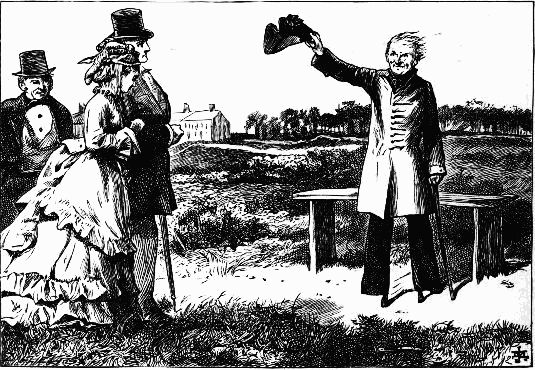 It was a pleasant sight, in the midst of the golden bloom, to see this salt old gruff and glum
waving his shovel hat at Bella, while his thin white hair flowed free, as if she had once more
launched him into blue water again—Book 4, chap. iv.
It was a pleasant sight, in the midst of the golden bloom, to see this salt old gruff and glum
waving his shovel hat at Bella, while his thin white hair flowed free, as if she had once more
launched him into blue water again—Book 4, chap. iv.
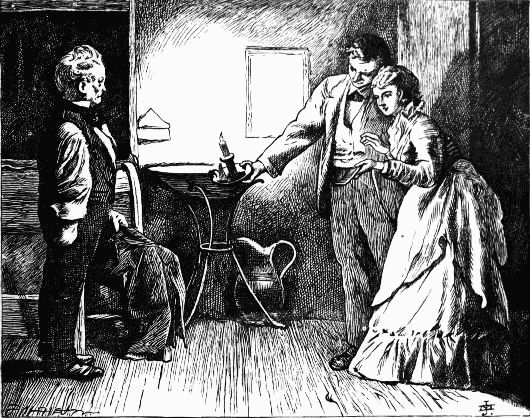
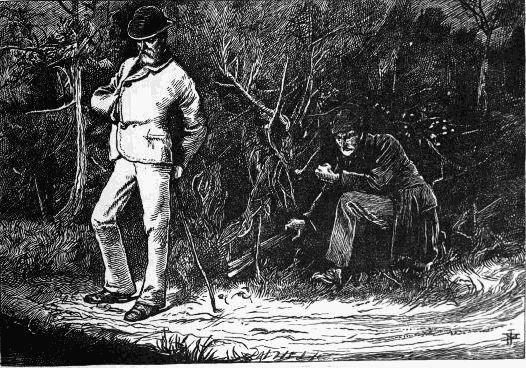 He had sauntered far enough. Before returning to retrace his steps, he stopped upon the margin to
look down at the reflected night—Book 4, chap. vi.
He had sauntered far enough. Before returning to retrace his steps, he stopped upon the margin to
look down at the reflected night—Book 4, chap. vi.
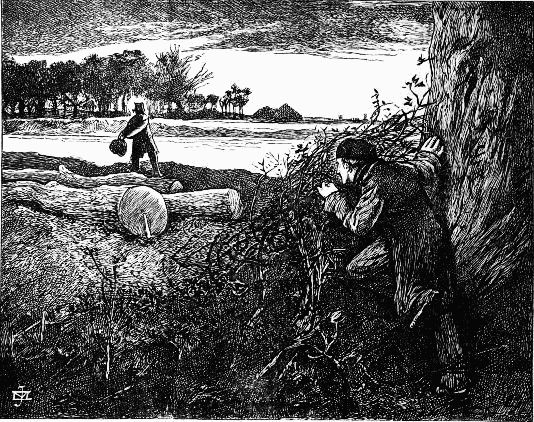
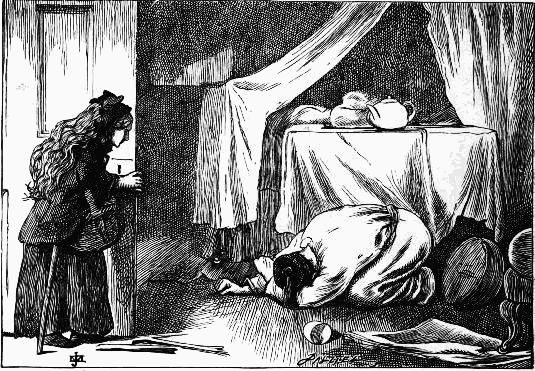 She took the liberty of opening an inner door, and then beheld the extraordinary spectacle of
Mr. Fledgeby in a shirt, a pair of Turkish trousers, and a Turkish cap, rolling over and over
on his own carpet, and spluttering wonderfully—Book 4, chap. viii.
She took the liberty of opening an inner door, and then beheld the extraordinary spectacle of
Mr. Fledgeby in a shirt, a pair of Turkish trousers, and a Turkish cap, rolling over and over
on his own carpet, and spluttering wonderfully—Book 4, chap. viii.
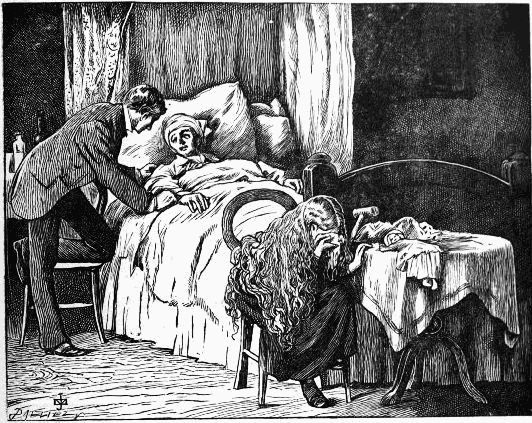
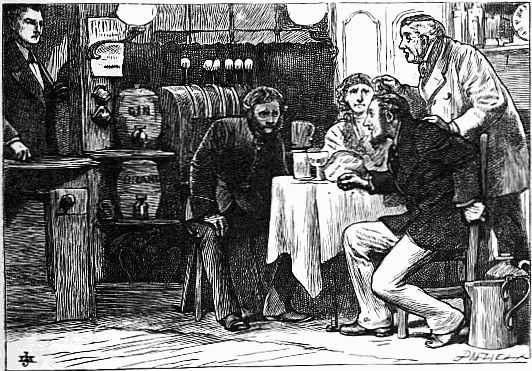 Bella's husband stepped softly to the half-door of the bar and stood there—Book 4, chap. xii.
Bella's husband stepped softly to the half-door of the bar and stood there—Book 4, chap. xii.
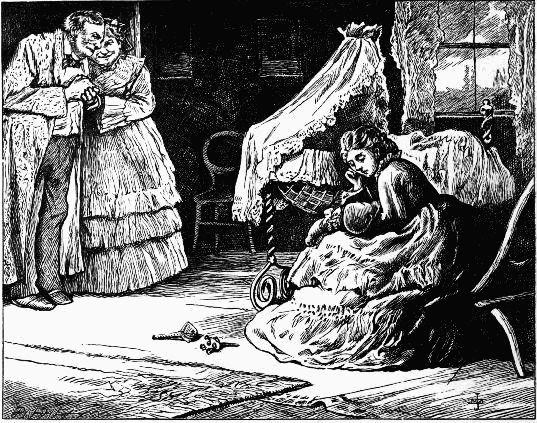
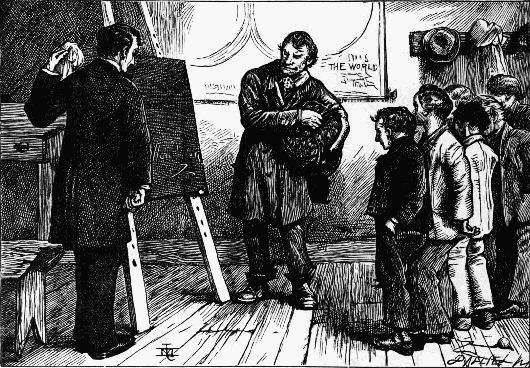 Bradley hesitated for a moment, but placed his usual signature, enlarged, upon the board—Book 4, chap. xv.
Bradley hesitated for a moment, but placed his usual signature, enlarged, upon the board—Book 4, chap. xv.
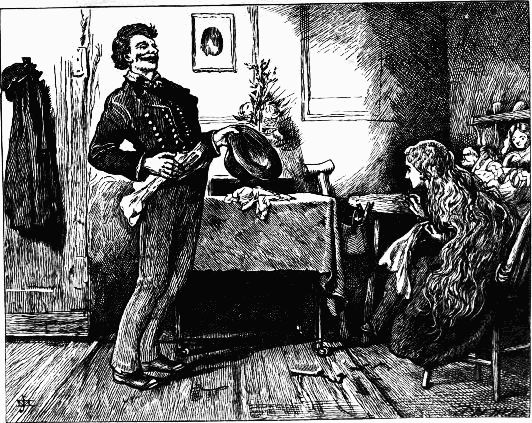 "There, there, there!" said Miss Wren, "for goodness' sake stop, giant, or I shall be swallowed up
alive before I know it"—Book 4, chap. xvi.
"There, there, there!" said Miss Wren, "for goodness' sake stop, giant, or I shall be swallowed up
alive before I know it"—Book 4, chap. xvi.
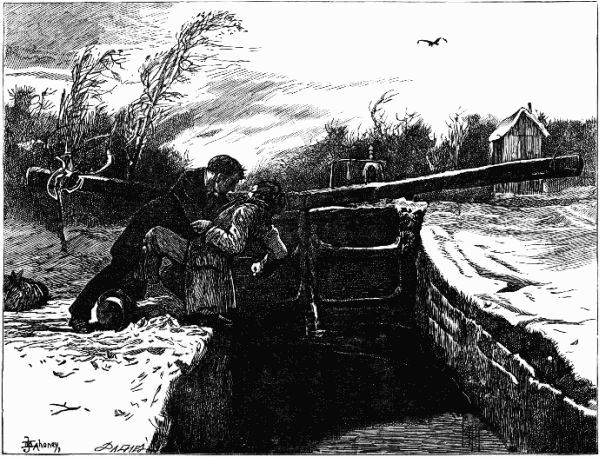 Riderhood went over into the smooth pit backwards, and Bradley Headstone upon him—Book 4, chap. xv.
Riderhood went over into the smooth pit backwards, and Bradley Headstone upon him—Book 4, chap. xv.
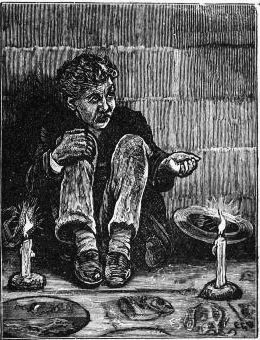
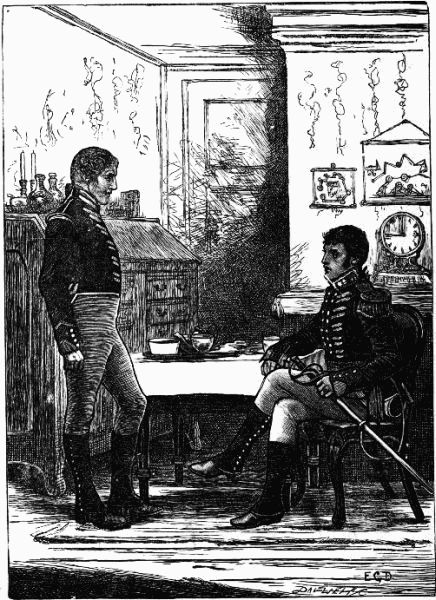 "I'm only a common soldier, sir," said he. "It signifies very little what
such a poor brute comes to"—Seven Poor Travellers, chap. ii.
"I'm only a common soldier, sir," said he. "It signifies very little what
such a poor brute comes to"—Seven Poor Travellers, chap. ii.
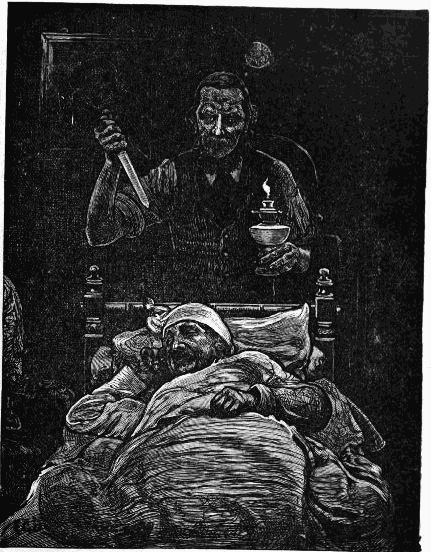 And when the visitor (oppressed with pie) had fallen asleep, this wicked
landlord would look softly in with a lamp in one hand and a knife in
the other, would cut his throat, &c.—Holly Tree Inn, First Branch.
And when the visitor (oppressed with pie) had fallen asleep, this wicked
landlord would look softly in with a lamp in one hand and a knife in
the other, would cut his throat, &c.—Holly Tree Inn, First Branch.
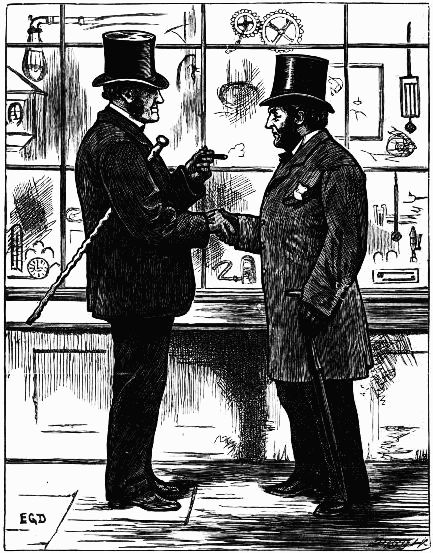 "My dear Captain Kavender," says he. "Of all the men on earth, I
wanted to see you most. I was on my way to you"—The Wreck of the Golden Mary—The Wreck
"My dear Captain Kavender," says he. "Of all the men on earth, I
wanted to see you most. I was on my way to you"—The Wreck of the Golden Mary—The Wreck
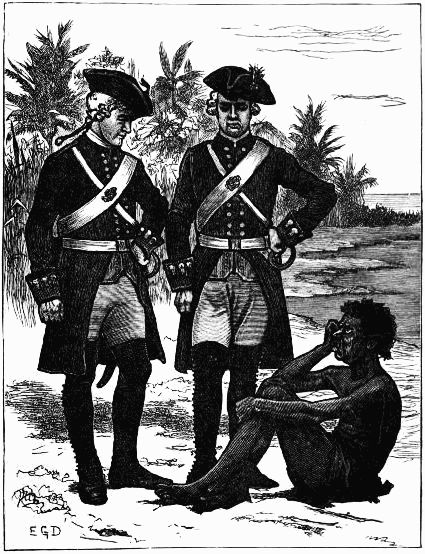 "O Christian George King sar berry sorry!" says the Sambo vagabond—The Perils of Certain English Prisoners, chap. i.
"O Christian George King sar berry sorry!" says the Sambo vagabond—The Perils of Certain English Prisoners, chap. i.
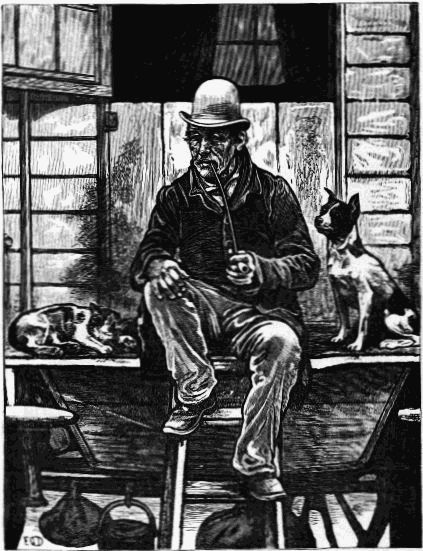 A grizzled personage in velveteen, with a face so cut up by varieties of
weather that he looked as if he had been tattooed, was found smoking a
pipe at the door of a wooden house on wheels—Going into Society
A grizzled personage in velveteen, with a face so cut up by varieties of
weather that he looked as if he had been tattooed, was found smoking a
pipe at the door of a wooden house on wheels—Going into Society
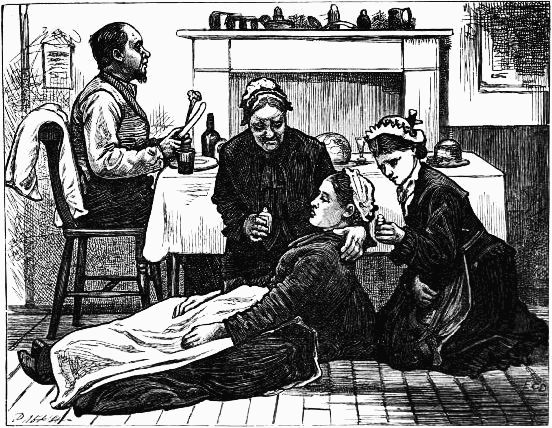 An imperturbable and speechless man, he had sat at his supper, with Streaker present in a
swoon—The Haunted House, The Mortals in the House
An imperturbable and speechless man, he had sat at his supper, with Streaker present in a
swoon—The Haunted House, The Mortals in the House
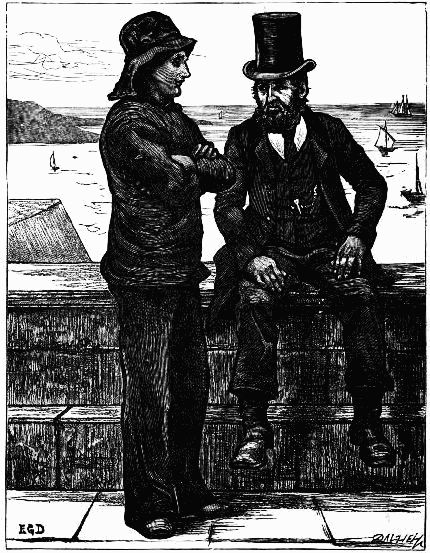 "Might you be married now?" asked the Captain when he had some task
with this new acquaintance. . . . "Not yet." . . . "Going to be?" said the
Captain. . . . "I hope so"—A Message from the Sea, chap. i.
"Might you be married now?" asked the Captain when he had some task
with this new acquaintance. . . . "Not yet." . . . "Going to be?" said the
Captain. . . . "I hope so"—A Message from the Sea, chap. i.
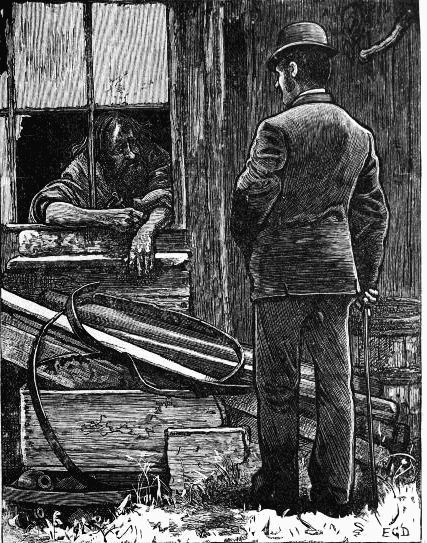 "What is your name, sir, and where do you come from!" asked Mr. Mopes
the hermit—Tom Tiddler's Ground, chap. i.
"What is your name, sir, and where do you come from!" asked Mr. Mopes
the hermit—Tom Tiddler's Ground, chap. i.
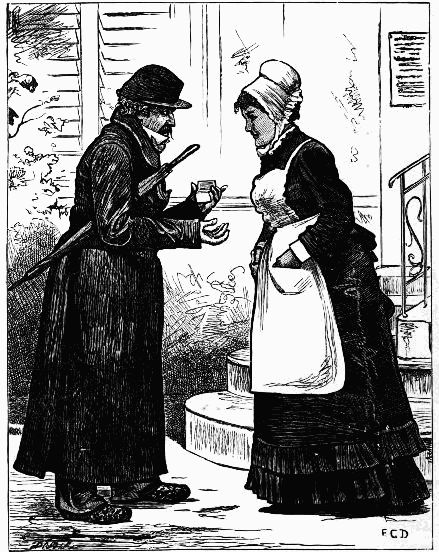 "But it is not impossible that you are a pig!" retorted Madame Bouclet—Somebody's Luggage, chap. ii.
"But it is not impossible that you are a pig!" retorted Madame Bouclet—Somebody's Luggage, chap. ii.
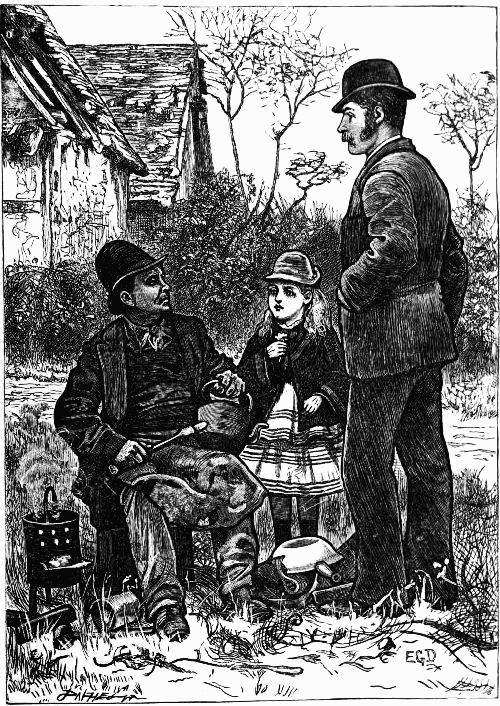 "I am glad to see you employed," said Mr. Traveller. . . . "I am glad to be
employed," returned the tinker-Tom Tiddler's Ground, chap. vii.
"I am glad to see you employed," said Mr. Traveller. . . . "I am glad to be
employed," returned the tinker-Tom Tiddler's Ground, chap. vii.
 Willing Sophy down upon her knees scrubbing early and late and ever
cheerful but always smiling with a black face—Mrs. Lirriper's Lodgings,
chap. i.
Willing Sophy down upon her knees scrubbing early and late and ever
cheerful but always smiling with a black face—Mrs. Lirriper's Lodgings,
chap. i.
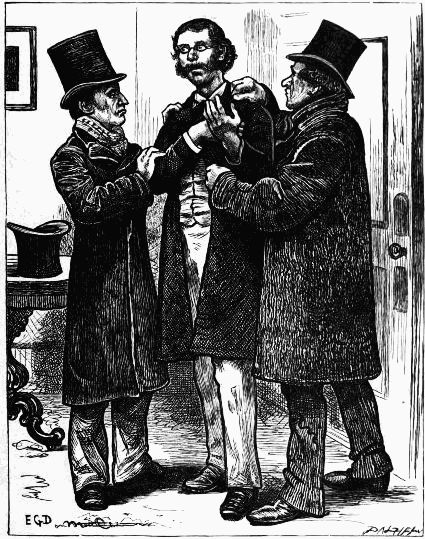 "Come, sir! Remove me to my vile dungeon. Where is my mouldy straw!"—Mrs. Lirriper's Legacy, chap. i.
"Come, sir! Remove me to my vile dungeon. Where is my mouldy straw!"—Mrs. Lirriper's Legacy, chap. i.
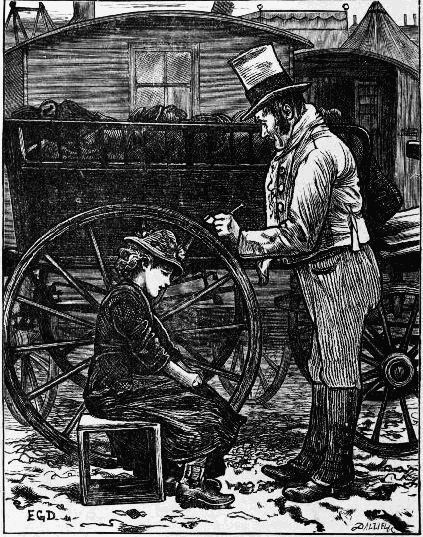 And at last sitting dozing against a muddy cart wheel, I come upon the
poor girl who was deaf and dumb—Dr. Marigold
And at last sitting dozing against a muddy cart wheel, I come upon the
poor girl who was deaf and dumb—Dr. Marigold
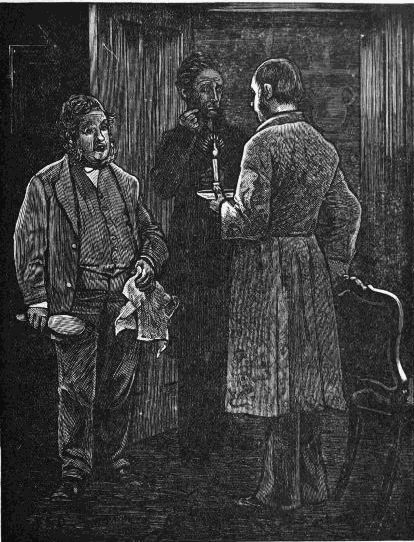 While I was speaking to him, I saw it open, and a man look in, who very
earnestly and mysteriously beckoned to me—Two Ghost Stories, I.
While I was speaking to him, I saw it open, and a man look in, who very
earnestly and mysteriously beckoned to me—Two Ghost Stories, I.
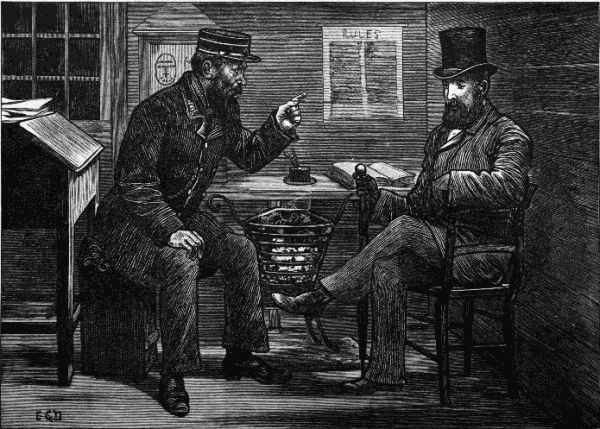 "I took you for some one else yesterday evening. That troubles me"—Two Ghost Stories, II.
"I took you for some one else yesterday evening. That troubles me"—Two Ghost Stories, II.
 "What would you do with twopence, if I gave it you!" . . . "'Pend it"—Mugby Junction, chap. ii.
"What would you do with twopence, if I gave it you!" . . . "'Pend it"—Mugby Junction, chap. ii.
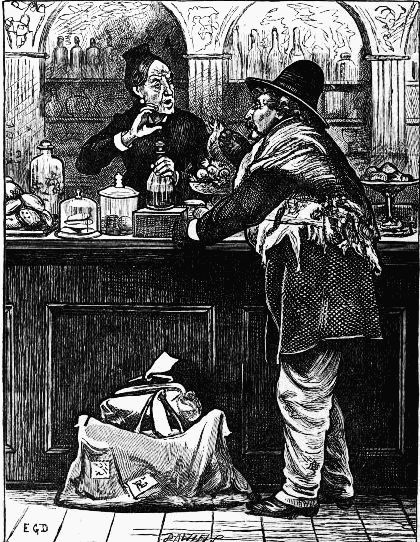 Cotched the decanter out of his hand, and said "Put it down, I won't
allow that!"—Mugby Junction, chap. iii.
Cotched the decanter out of his hand, and said "Put it down, I won't
allow that!"—Mugby Junction, chap. iii.
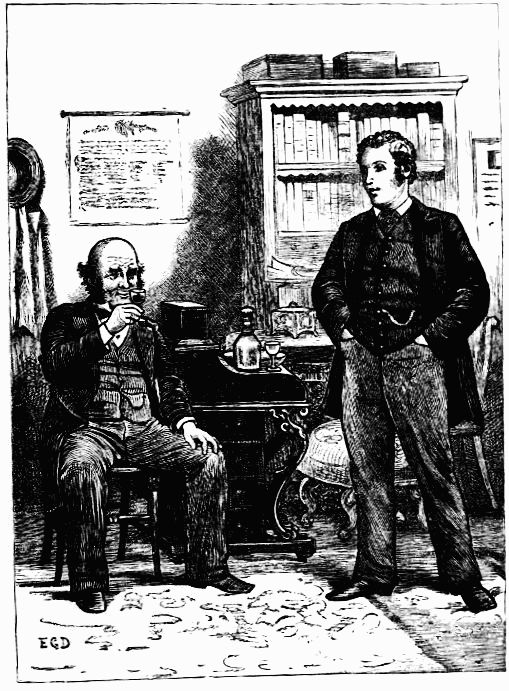 "It's from the best corner of our best forty-five-year-old bin," said
Mr. Wilding. . . . "Thank you, sir," said Mr. Bintry. "It's most excellent"—No Thoroughfare, Act i.
"It's from the best corner of our best forty-five-year-old bin," said
Mr. Wilding. . . . "Thank you, sir," said Mr. Bintry. "It's most excellent"—No Thoroughfare, Act i.
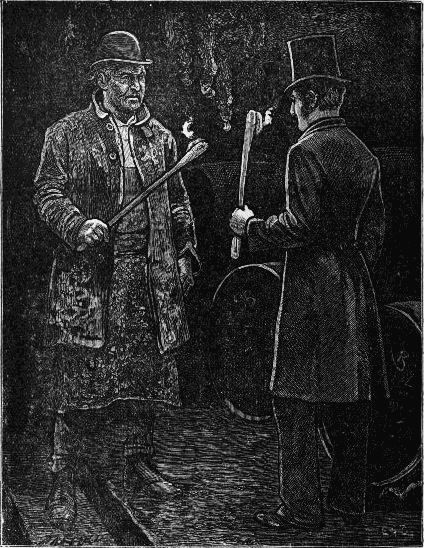 "We are famous for the growth in this vault, aren't we!"—No Thoroughfare,
Act i.
"We are famous for the growth in this vault, aren't we!"—No Thoroughfare,
Act i.
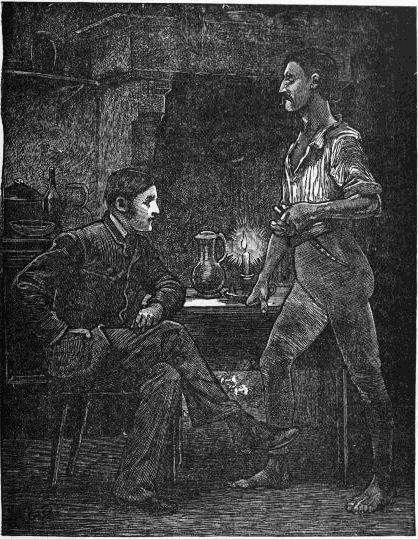 "If there had been a wrestle with a robber, as I dreamed," said
Obenreizer, "you see I was stripped for it." . . . "And armed too," said
Vendale, glancing at his girdle—No Thoroughfare, Act iii.
"If there had been a wrestle with a robber, as I dreamed," said
Obenreizer, "you see I was stripped for it." . . . "And armed too," said
Vendale, glancing at his girdle—No Thoroughfare, Act iii.
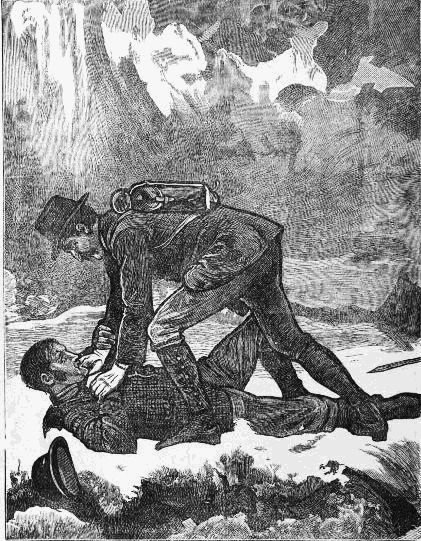 He became roused to the knowledge that Obenreizer had set upon him,
and that they were struggling desperately in the snow—No Thoroughfare,
Act iii.
He became roused to the knowledge that Obenreizer had set upon him,
and that they were struggling desperately in the snow—No Thoroughfare,
Act iii.
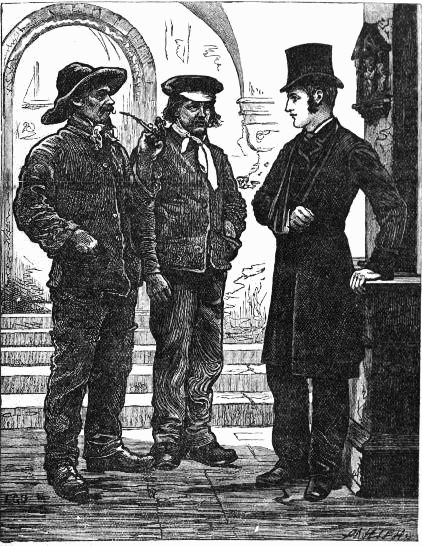 At the side door of the church are the same two men from the Hospice—No Thoroughfare, Act iv.
At the side door of the church are the same two men from the Hospice—No Thoroughfare, Act iv.
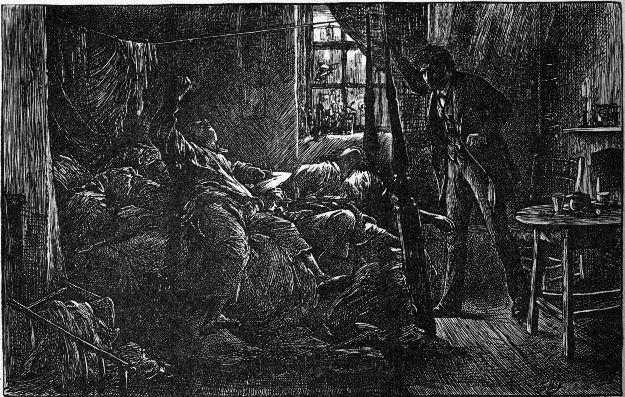
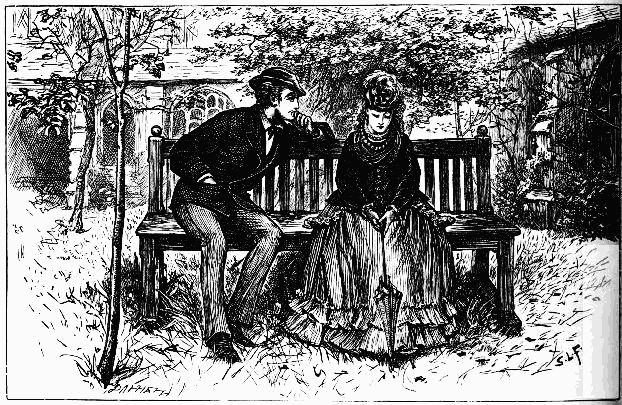 Under the trees—Chap. iii.
Under the trees—Chap. iii.
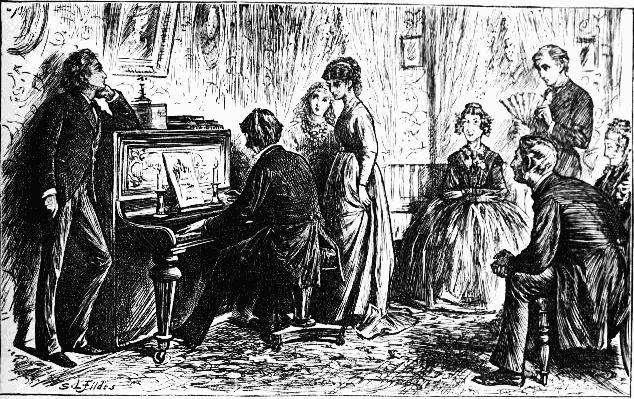
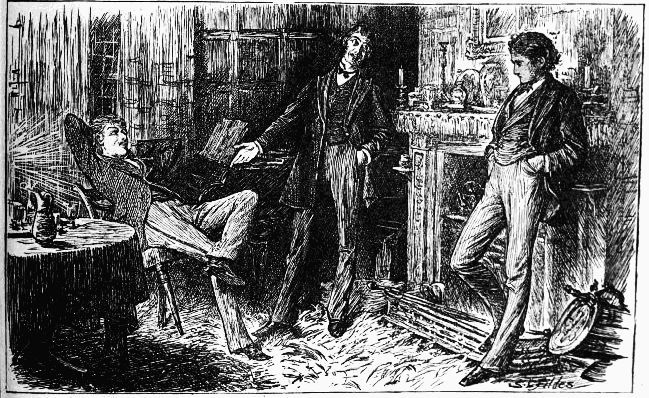 On dangerous ground—Chap. viii.
On dangerous ground—Chap. viii.
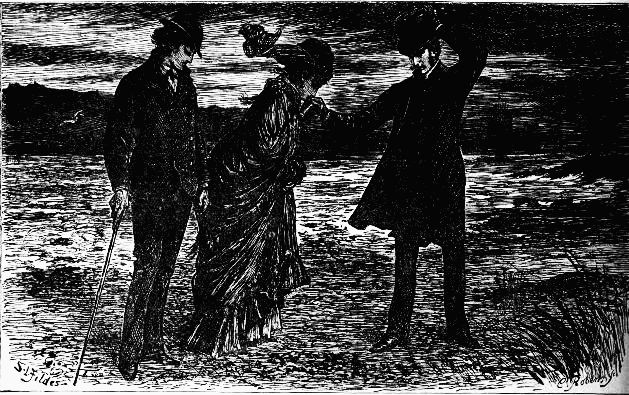
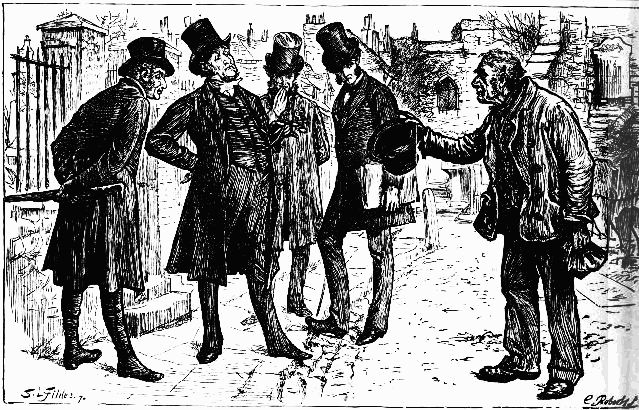 Durdles cautions Mr. Sapsea against boasting—Chap. xii.
Durdles cautions Mr. Sapsea against boasting—Chap. xii.
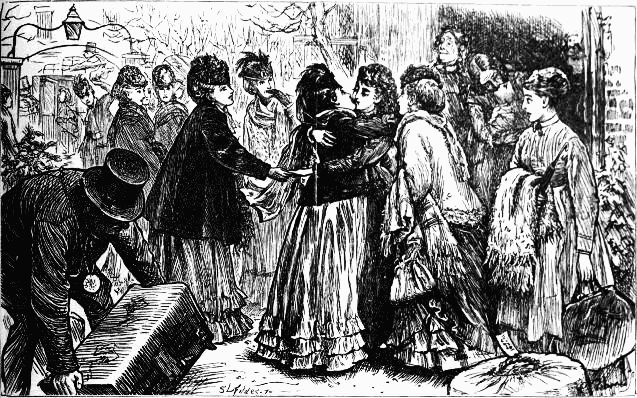
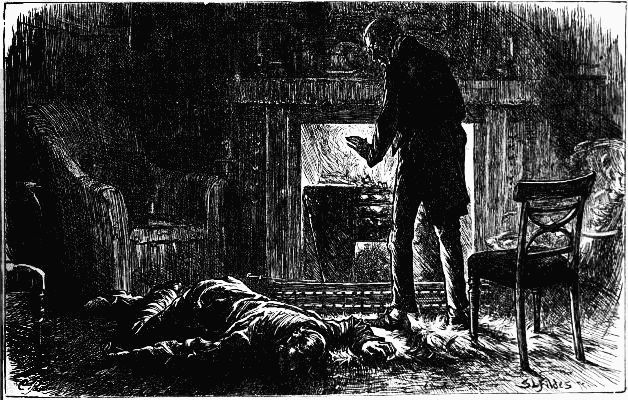 Mr. Grewgious has his suspicions—Chap. xv.
Mr. Grewgious has his suspicions—Chap. xv.
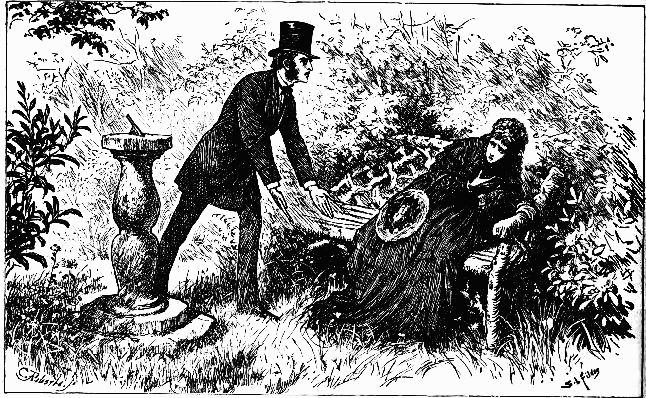
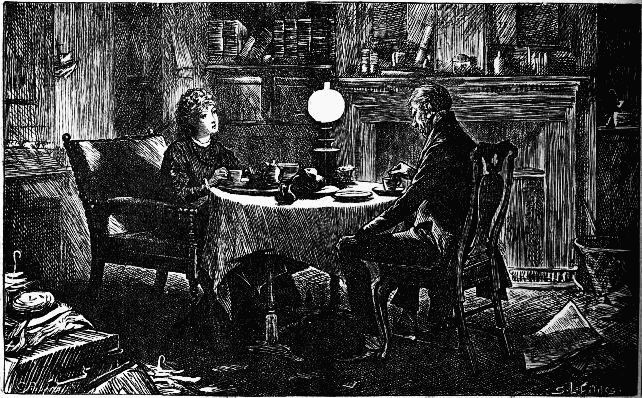 Mr. Grewgious experiences a new sensation—Chap. xx.
Mr. Grewgious experiences a new sensation—Chap. xx.
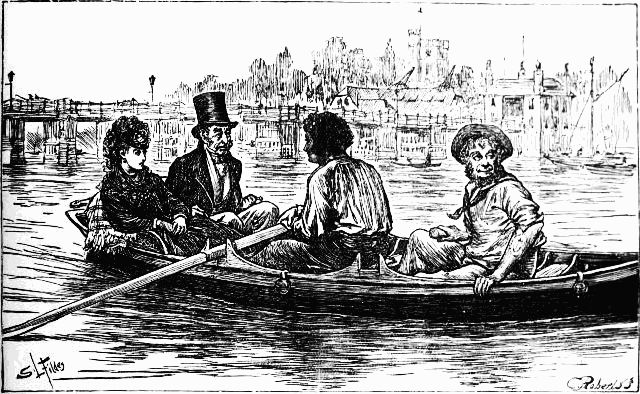
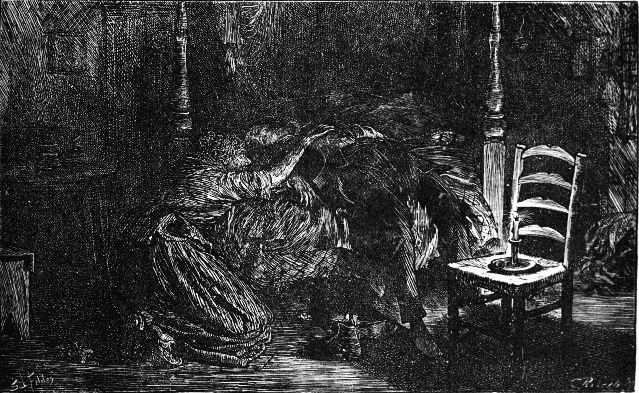 Sleeping it off—Chap. xxiii.
Sleeping it off—Chap. xxiii.
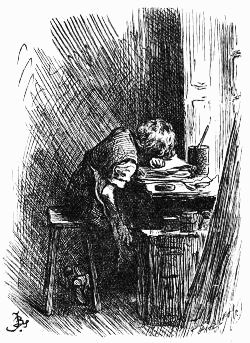
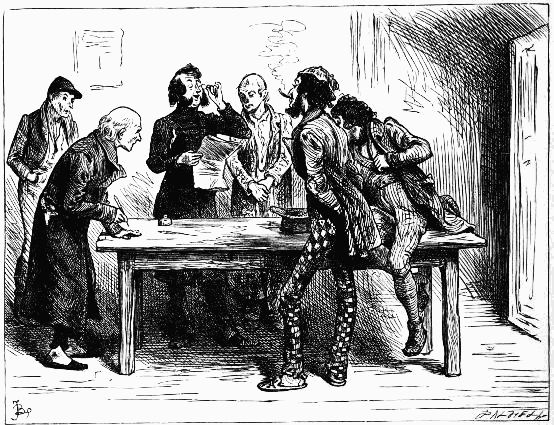
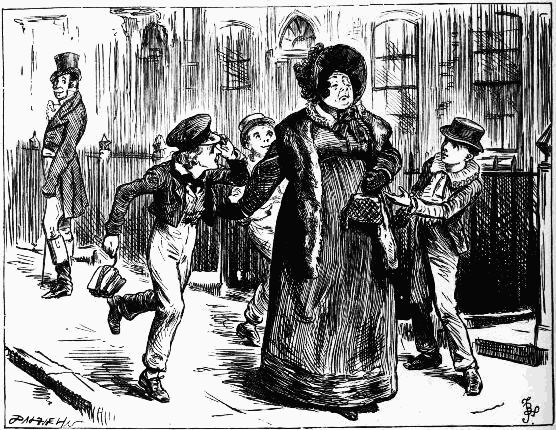 One of whom told us she "had no money for beggar boys"—Book 1, chap. iii.
One of whom told us she "had no money for beggar boys"—Book 1, chap. iii.
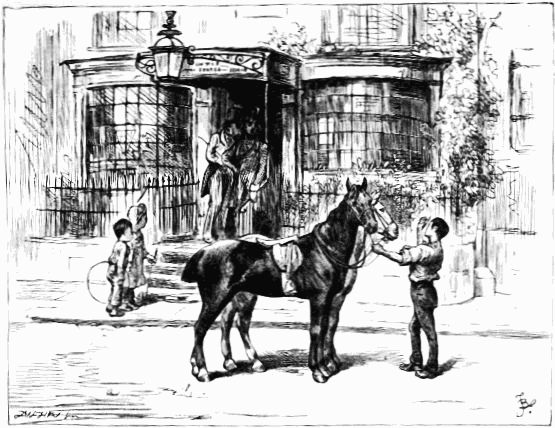 Jack Straw's Castle, memorable for many happy meetings in coming years—Book 2, chap. i.
Jack Straw's Castle, memorable for many happy meetings in coming years—Book 2, chap. i.
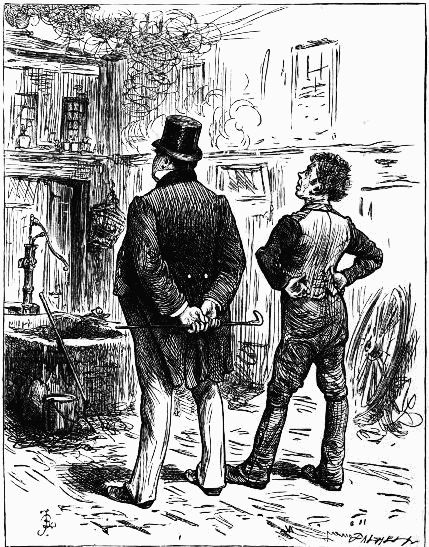 "It a'nt a smokin' your way, sir, I says;" he says, "No more it is, coachman,
and as long as it smokes anybody else's way, it's all right and I'm agreeable"—Book
2, chap. viii.
"It a'nt a smokin' your way, sir, I says;" he says, "No more it is, coachman,
and as long as it smokes anybody else's way, it's all right and I'm agreeable"—Book
2, chap. viii.
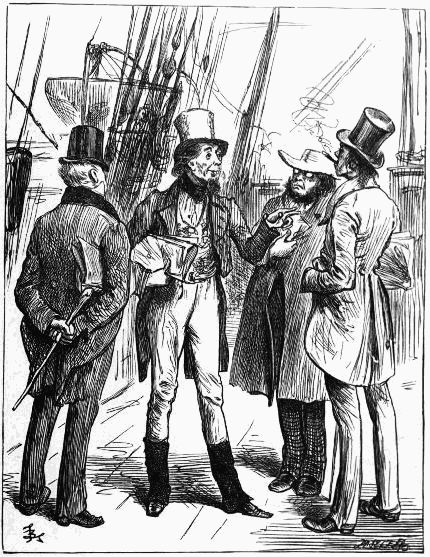 If you could but know how I hated one man in very dirty gaiters, and with
very protruding upper teeth, who said to all comers after him, "So you've
been introduced to our friend Dickens—eh!"—Book 3, Chap. ii.
If you could but know how I hated one man in very dirty gaiters, and with
very protruding upper teeth, who said to all comers after him, "So you've
been introduced to our friend Dickens—eh!"—Book 3, Chap. ii.
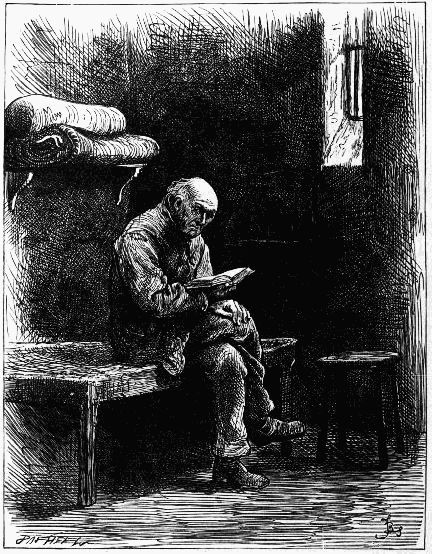 He looked up at me; gave himself an odd, dogged kind of shake; and fixed
his eyes on his book again—Book 4, chap. iv.
He looked up at me; gave himself an odd, dogged kind of shake; and fixed
his eyes on his book again—Book 4, chap. iv.
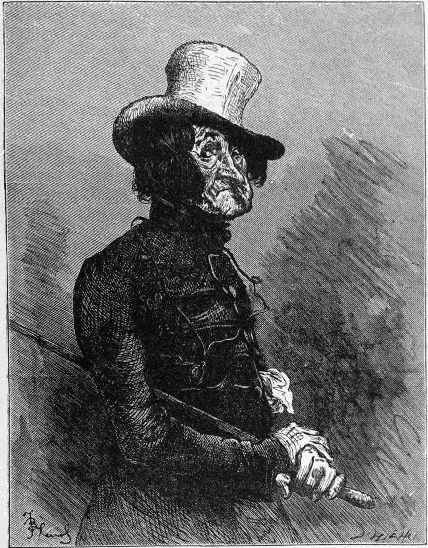 He is perhaps the most horrible bore in the country—Book 3, chap. v.
He is perhaps the most horrible bore in the country—Book 3, chap. v.
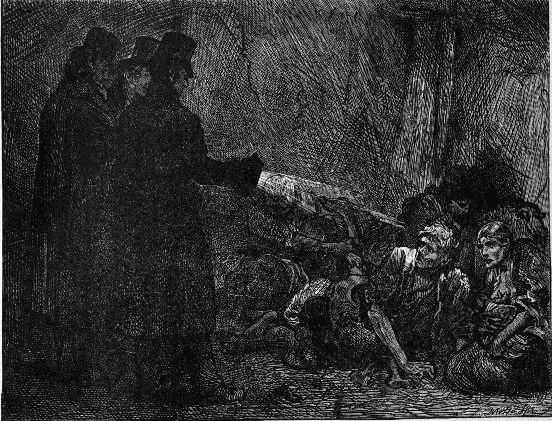
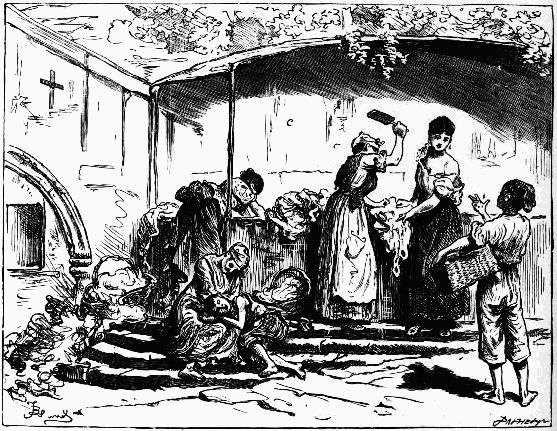 Genoese washerwomen—Book 4, chap. v.
Genoese washerwomen—Book 4, chap. v.
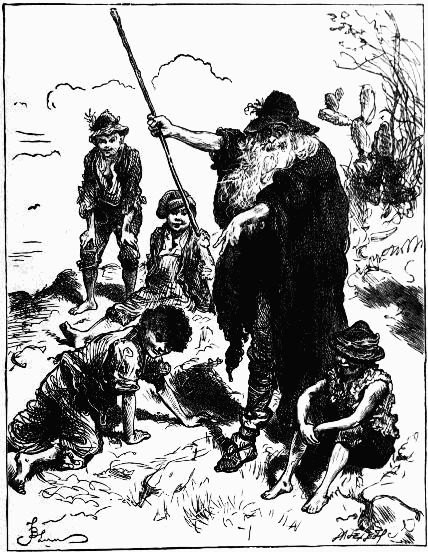 The Radicofani Wizard—Book 4, chap. vii.
The Radicofani Wizard—Book 4, chap. vii.
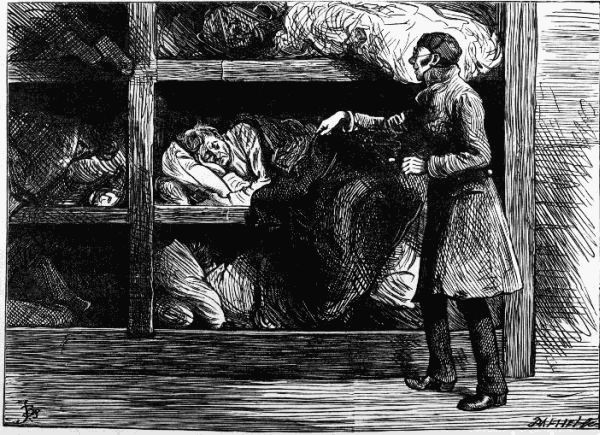 "I say, what's French for a pillow!" "Is there any Italian phrase for a lump of sugar! Just look, will you!" "What the
devil does echo mean! The garsong says echo to everything"—Book 4, Chap. vi.
"I say, what's French for a pillow!" "Is there any Italian phrase for a lump of sugar! Just look, will you!" "What the
devil does echo mean! The garsong says echo to everything"—Book 4, Chap. vi.
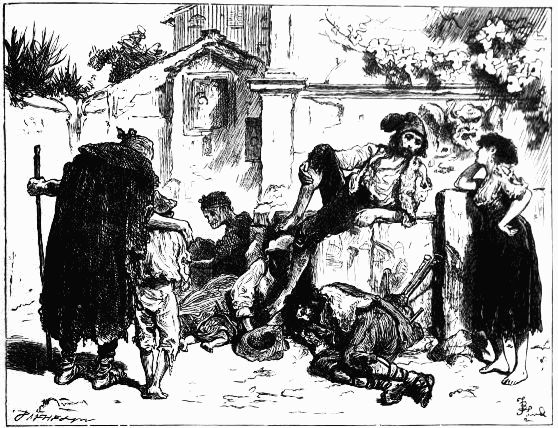
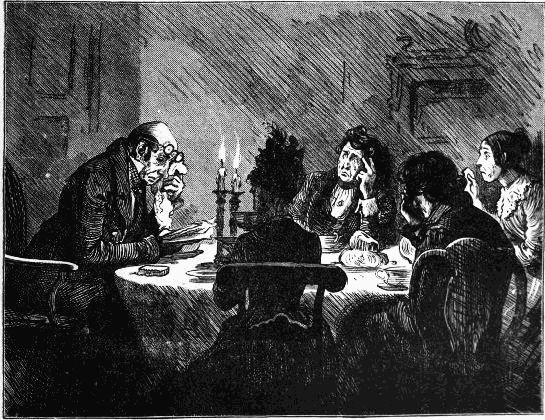 Reading "Dombey" at the snuff shop—Book 5, chap. vii.
Reading "Dombey" at the snuff shop—Book 5, chap. vii.
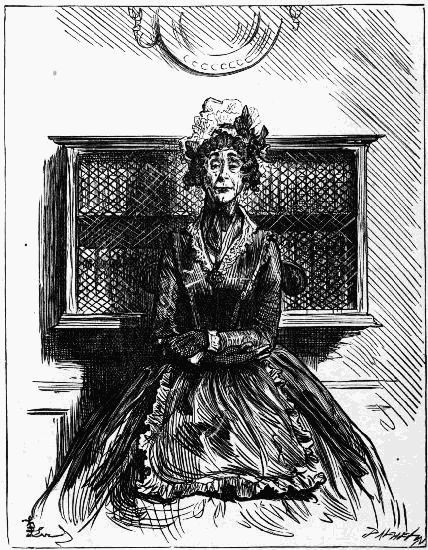 "I have never been able to see what they are, because one of the old ladies
always sits before them; but they look, outside, like very old backgammon
boards"—Book 5, chap. iv.
"I have never been able to see what they are, because one of the old ladies
always sits before them; but they look, outside, like very old backgammon
boards"—Book 5, chap. iv.
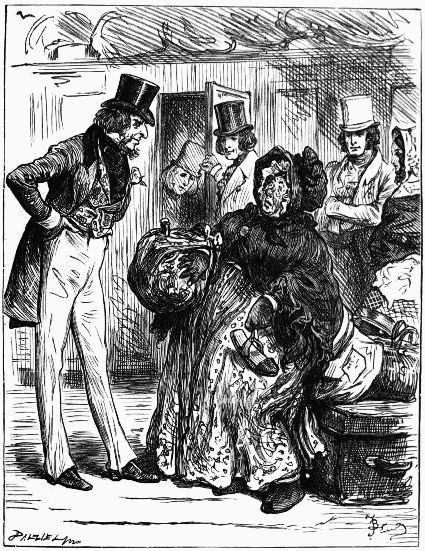 "Halloa, Mrs. Gamp, what are you up to!"—Book 6, chap. i
"Halloa, Mrs. Gamp, what are you up to!"—Book 6, chap. i
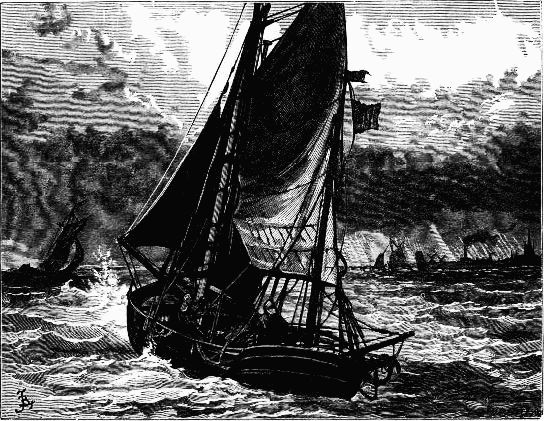 Off Yarmouth—Book 6, chap. vi.
Off Yarmouth—Book 6, chap. vi.
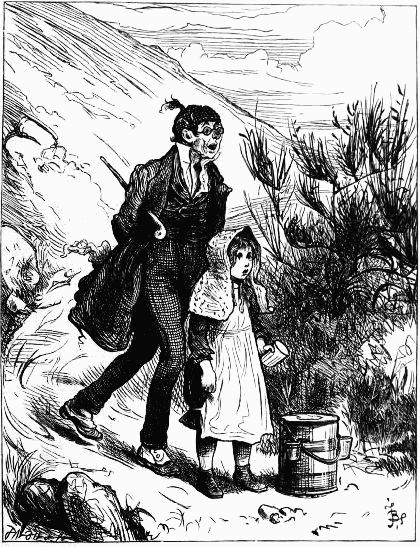 Likewise an old man who ran over a milk-child rather than stop!—with no
neckcloth, on principle; and with his mouth wide open to catch the morning
air—Book 6, chap. vi.
Likewise an old man who ran over a milk-child rather than stop!—with no
neckcloth, on principle; and with his mouth wide open to catch the morning
air—Book 6, chap. vi.
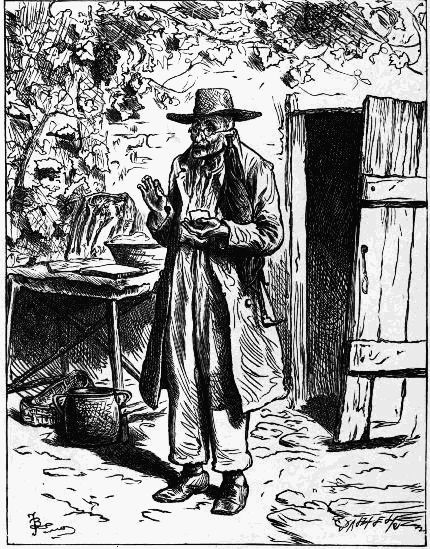 Bye and bye I came upon a polenta-shop in the clouds, where an old Frenchman
with an umbrella like a faded tropical leaf (it had not rained in Naples
for six weeks) was staring at nothing at all, with a snuff-box in his hand—Book 7, chap. iii.
Bye and bye I came upon a polenta-shop in the clouds, where an old Frenchman
with an umbrella like a faded tropical leaf (it had not rained in Naples
for six weeks) was staring at nothing at all, with a snuff-box in his hand—Book 7, chap. iii.
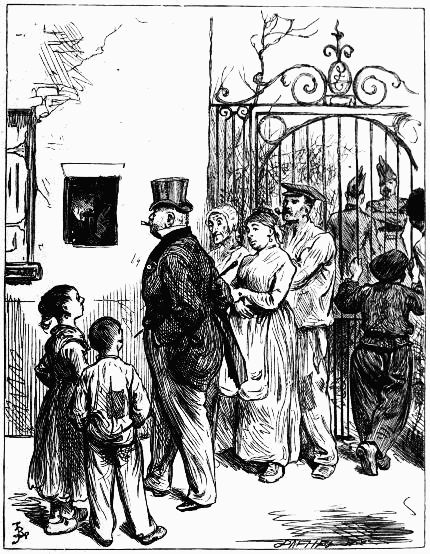 "C'est vrai donc," says the Duke, "Que Madame la Duchesse n'est plus!" . . .
"C'est trop vrai, Monseigneur." . . . "Tant mieux," says the Duke, and walks off
deliberately, to the great satisfaction of the assemblage—Book 7, chap. v.
"C'est vrai donc," says the Duke, "Que Madame la Duchesse n'est plus!" . . .
"C'est trop vrai, Monseigneur." . . . "Tant mieux," says the Duke, and walks off
deliberately, to the great satisfaction of the assemblage—Book 7, chap. v.
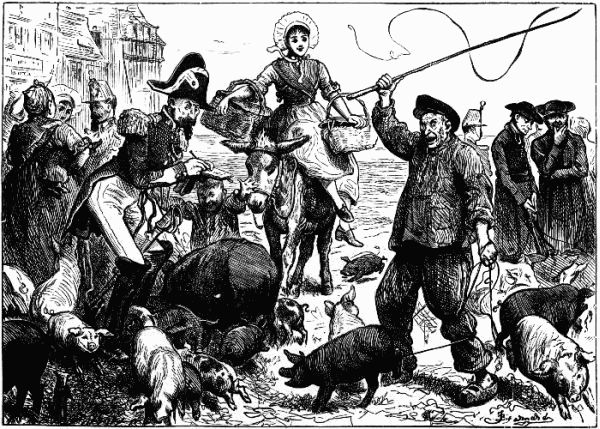 A warm corner in the pig-market at Boulogne—Book 7, chap. v.
A warm corner in the pig-market at Boulogne—Book 7, chap. v.
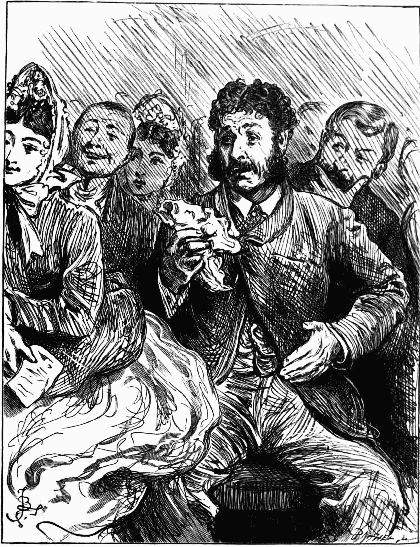 Whenever he felt Toots coming again, he began to laugh and wipe his eyes
afresh; and when Toots came once more, he gave a kind of cry, as if it were
too much for him—Book 8, chap. iv.
Whenever he felt Toots coming again, he began to laugh and wipe his eyes
afresh; and when Toots came once more, he gave a kind of cry, as if it were
too much for him—Book 8, chap. iv.
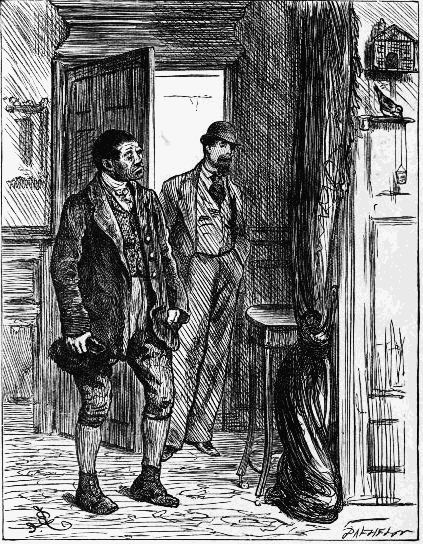 He . . . slightly cocked up his evil eye at the goldfinch. Instantly a raging
thirst beset that bird; and when it was appeased he still drew several
unnecessary buckets of water, leaping about his perch and sharpening his
bill with irrepressible satisfaction—Book 8, chap. v.
He . . . slightly cocked up his evil eye at the goldfinch. Instantly a raging
thirst beset that bird; and when it was appeased he still drew several
unnecessary buckets of water, leaping about his perch and sharpening his
bill with irrepressible satisfaction—Book 8, chap. v.
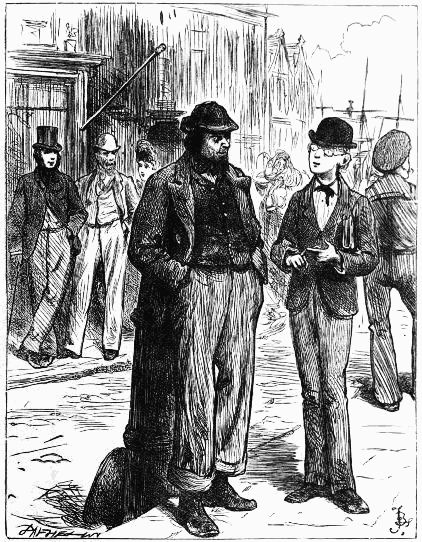 The uneducated father in fustian and the educated boy in spectacles—Book 9, chap. v.
The uneducated father in fustian and the educated boy in spectacles—Book 9, chap. v.
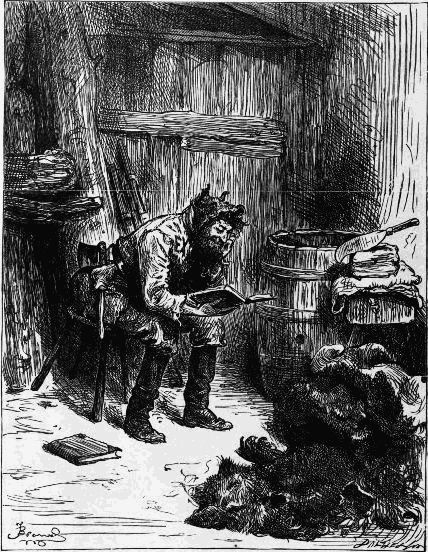 Sam Weller in Sierra Nevada—Book 9, chap. viii.
Sam Weller in Sierra Nevada—Book 9, chap. viii.
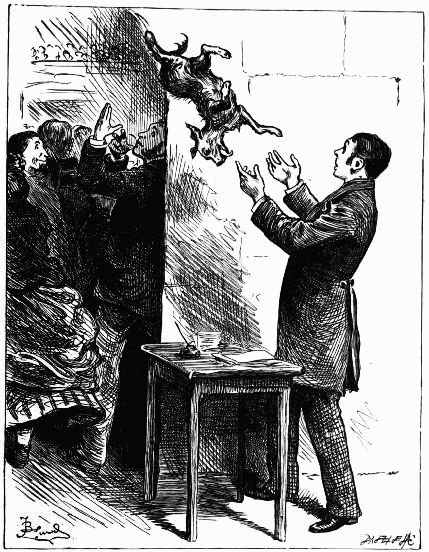 In a transport of presence of mind and fury, he instantly caught him up in
both hands, and threw him over his own head out into the entry, where the
check-takers received him like a game at ball—Book 10, chap. ii.
In a transport of presence of mind and fury, he instantly caught him up in
both hands, and threw him over his own head out into the entry, where the
check-takers received him like a game at ball—Book 10, chap. ii.
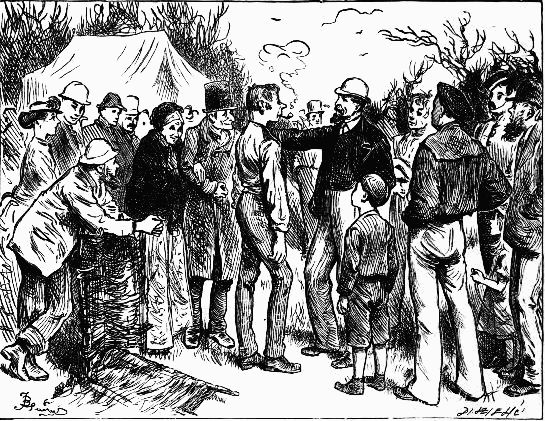
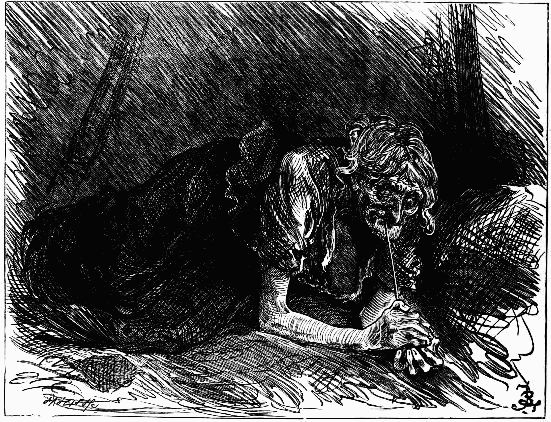 "In a miserable court at night," says Mr. Fields, "we found a haggard old woman blowing at a
kind of pipe made of an old ink-bottle"—Book 1, chap. xii.
"In a miserable court at night," says Mr. Fields, "we found a haggard old woman blowing at a
kind of pipe made of an old ink-bottle"—Book 1, chap. xii.
Obvious punctuation repaired.
Page 24, "the" changed to "The" at start of sentence. (The body washed ashore)
Page 61, "i" changed to "I" (I'll eat my head)
Page 63, "i" changed to "I" (Directly I leave go)
Page 81, "i" changed to "I" (and I have the strength)
Page 82, "vi" changed to "xvi" (Chap. xvi.)
Page 85, "i" changed to "I" (here I am)
Page 86, first word of new sentence "He" capitalized. (He had now fallen)
Page 111, "i" changed to "I" (No, no, I'm not)
Page 111, "—Chap. lxiii." added to illustration
Page 117, "Heavans" changed to "Heavens" (Heavens! Can I write)
Page 150, "is'nt" changed to "isn't" (there he isn't)
Page 162, "—Chap. xlviii." added to illustration
Page 201, "xxvl" changed to "xxvi" (Chap. xxvi.)
Page 323, "Hamlet'8" changed to "Hamlet's" (Hamlet's aunt betrays)
Page 381, "Buckett" changed to "Bucket" (Mr. Bucket urging a sensible)
Page 402, "i" changed to "I" (that I have meant)
Page 431, "rome" changed to "Rome" (the walls of Rome)
Page 464, "sunday" changed to "Sunday" (theatre, Sunday night)
Page 521, "Wraeburn" changed to "Wrayburn" (Mr. Eugene Wrayburn)
Page 522, "p easant" changed to "pleasant" (It was a pleasant sight)
Page 545, "i" changed to "I" (if I gave it you)
End of the Project Gutenberg EBook of Scenes and Characters from the Works
of Charles Dickens, by Charles Dickens
*** END OF THIS PROJECT GUTENBERG EBOOK SCENES, CHARACTERS FROM DICKENS ***
***** This file should be named 43207-h.htm or 43207-h.zip *****
This and all associated files of various formats will be found in:
http://www.gutenberg.org/4/3/2/0/43207/
Produced by Chris Curnow, Emmy and the Online Distributed
Proofreading Team at http://www.pgdp.net (This file was
produced from images generously made available by The
Internet Archive)
Updated editions will replace the previous one--the old editions
will be renamed.
Creating the works from public domain print editions means that no
one owns a United States copyright in these works, so the Foundation
(and you!) can copy and distribute it in the United States without
permission and without paying copyright royalties. Special rules,
set forth in the General Terms of Use part of this license, apply to
copying and distributing Project Gutenberg-tm electronic works to
protect the PROJECT GUTENBERG-tm concept and trademark. Project
Gutenberg is a registered trademark, and may not be used if you
charge for the eBooks, unless you receive specific permission. If you
do not charge anything for copies of this eBook, complying with the
rules is very easy. You may use this eBook for nearly any purpose
such as creation of derivative works, reports, performances and
research. They may be modified and printed and given away--you may do
practically ANYTHING with public domain eBooks. Redistribution is
subject to the trademark license, especially commercial
redistribution.
*** START: FULL LICENSE ***
THE FULL PROJECT GUTENBERG LICENSE
PLEASE READ THIS BEFORE YOU DISTRIBUTE OR USE THIS WORK
To protect the Project Gutenberg-tm mission of promoting the free
distribution of electronic works, by using or distributing this work
(or any other work associated in any way with the phrase "Project
Gutenberg"), you agree to comply with all the terms of the Full Project
Gutenberg-tm License available with this file or online at
www.gutenberg.org/license.
Section 1. General Terms of Use and Redistributing Project Gutenberg-tm
electronic works
1.A. By reading or using any part of this Project Gutenberg-tm
electronic work, you indicate that you have read, understand, agree to
and accept all the terms of this license and intellectual property
(trademark/copyright) agreement. If you do not agree to abide by all
the terms of this agreement, you must cease using and return or destroy
all copies of Project Gutenberg-tm electronic works in your possession.
If you paid a fee for obtaining a copy of or access to a Project
Gutenberg-tm electronic work and you do not agree to be bound by the
terms of this agreement, you may obtain a refund from the person or
entity to whom you paid the fee as set forth in paragraph 1.E.8.
1.B. "Project Gutenberg" is a registered trademark. It may only be
used on or associated in any way with an electronic work by people who
agree to be bound by the terms of this agreement. There are a few
things that you can do with most Project Gutenberg-tm electronic works
even without complying with the full terms of this agreement. See
paragraph 1.C below. There are a lot of things you can do with Project
Gutenberg-tm electronic works if you follow the terms of this agreement
and help preserve free future access to Project Gutenberg-tm electronic
works. See paragraph 1.E below.
1.C. The Project Gutenberg Literary Archive Foundation ("the Foundation"
or PGLAF), owns a compilation copyright in the collection of Project
Gutenberg-tm electronic works. Nearly all the individual works in the
collection are in the public domain in the United States. If an
individual work is in the public domain in the United States and you are
located in the United States, we do not claim a right to prevent you from
copying, distributing, performing, displaying or creating derivative
works based on the work as long as all references to Project Gutenberg
are removed. Of course, we hope that you will support the Project
Gutenberg-tm mission of promoting free access to electronic works by
freely sharing Project Gutenberg-tm works in compliance with the terms of
this agreement for keeping the Project Gutenberg-tm name associated with
the work. You can easily comply with the terms of this agreement by
keeping this work in the same format with its attached full Project
Gutenberg-tm License when you share it without charge with others.
1.D. The copyright laws of the place where you are located also govern
what you can do with this work. Copyright laws in most countries are in
a constant state of change. If you are outside the United States, check
the laws of your country in addition to the terms of this agreement
before downloading, copying, displaying, performing, distributing or
creating derivative works based on this work or any other Project
Gutenberg-tm work. The Foundation makes no representations concerning
the copyright status of any work in any country outside the United
States.
1.E. Unless you have removed all references to Project Gutenberg:
1.E.1. The following sentence, with active links to, or other immediate
access to, the full Project Gutenberg-tm License must appear prominently
whenever any copy of a Project Gutenberg-tm work (any work on which the
phrase "Project Gutenberg" appears, or with which the phrase "Project
Gutenberg" is associated) is accessed, displayed, performed, viewed,
copied or distributed:
This eBook is for the use of anyone anywhere at no cost and with
almost no restrictions whatsoever. You may copy it, give it away or
re-use it under the terms of the Project Gutenberg License included
with this eBook or online at www.gutenberg.org
1.E.2. If an individual Project Gutenberg-tm electronic work is derived
from the public domain (does not contain a notice indicating that it is
posted with permission of the copyright holder), the work can be copied
and distributed to anyone in the United States without paying any fees
or charges. If you are redistributing or providing access to a work
with the phrase "Project Gutenberg" associated with or appearing on the
work, you must comply either with the requirements of paragraphs 1.E.1
through 1.E.7 or obtain permission for the use of the work and the
Project Gutenberg-tm trademark as set forth in paragraphs 1.E.8 or
1.E.9.
1.E.3. If an individual Project Gutenberg-tm electronic work is posted
with the permission of the copyright holder, your use and distribution
must comply with both paragraphs 1.E.1 through 1.E.7 and any additional
terms imposed by the copyright holder. Additional terms will be linked
to the Project Gutenberg-tm License for all works posted with the
permission of the copyright holder found at the beginning of this work.
1.E.4. Do not unlink or detach or remove the full Project Gutenberg-tm
License terms from this work, or any files containing a part of this
work or any other work associated with Project Gutenberg-tm.
1.E.5. Do not copy, display, perform, distribute or redistribute this
electronic work, or any part of this electronic work, without
prominently displaying the sentence set forth in paragraph 1.E.1 with
active links or immediate access to the full terms of the Project
Gutenberg-tm License.
1.E.6. You may convert to and distribute this work in any binary,
compressed, marked up, nonproprietary or proprietary form, including any
word processing or hypertext form. However, if you provide access to or
distribute copies of a Project Gutenberg-tm work in a format other than
"Plain Vanilla ASCII" or other format used in the official version
posted on the official Project Gutenberg-tm web site (www.gutenberg.org),
you must, at no additional cost, fee or expense to the user, provide a
copy, a means of exporting a copy, or a means of obtaining a copy upon
request, of the work in its original "Plain Vanilla ASCII" or other
form. Any alternate format must include the full Project Gutenberg-tm
License as specified in paragraph 1.E.1.
1.E.7. Do not charge a fee for access to, viewing, displaying,
performing, copying or distributing any Project Gutenberg-tm works
unless you comply with paragraph 1.E.8 or 1.E.9.
1.E.8. You may charge a reasonable fee for copies of or providing
access to or distributing Project Gutenberg-tm electronic works provided
that
- You pay a royalty fee of 20% of the gross profits you derive from
the use of Project Gutenberg-tm works calculated using the method
you already use to calculate your applicable taxes. The fee is
owed to the owner of the Project Gutenberg-tm trademark, but he
has agreed to donate royalties under this paragraph to the
Project Gutenberg Literary Archive Foundation. Royalty payments
must be paid within 60 days following each date on which you
prepare (or are legally required to prepare) your periodic tax
returns. Royalty payments should be clearly marked as such and
sent to the Project Gutenberg Literary Archive Foundation at the
address specified in Section 4, "Information about donations to
the Project Gutenberg Literary Archive Foundation."
- You provide a full refund of any money paid by a user who notifies
you in writing (or by e-mail) within 30 days of receipt that s/he
does not agree to the terms of the full Project Gutenberg-tm
License. You must require such a user to return or
destroy all copies of the works possessed in a physical medium
and discontinue all use of and all access to other copies of
Project Gutenberg-tm works.
- You provide, in accordance with paragraph 1.F.3, a full refund of any
money paid for a work or a replacement copy, if a defect in the
electronic work is discovered and reported to you within 90 days
of receipt of the work.
- You comply with all other terms of this agreement for free
distribution of Project Gutenberg-tm works.
1.E.9. If you wish to charge a fee or distribute a Project Gutenberg-tm
electronic work or group of works on different terms than are set
forth in this agreement, you must obtain permission in writing from
both the Project Gutenberg Literary Archive Foundation and Michael
Hart, the owner of the Project Gutenberg-tm trademark. Contact the
Foundation as set forth in Section 3 below.
1.F.
1.F.1. Project Gutenberg volunteers and employees expend considerable
effort to identify, do copyright research on, transcribe and proofread
public domain works in creating the Project Gutenberg-tm
collection. Despite these efforts, Project Gutenberg-tm electronic
works, and the medium on which they may be stored, may contain
"Defects," such as, but not limited to, incomplete, inaccurate or
corrupt data, transcription errors, a copyright or other intellectual
property infringement, a defective or damaged disk or other medium, a
computer virus, or computer codes that damage or cannot be read by
your equipment.
1.F.2. LIMITED WARRANTY, DISCLAIMER OF DAMAGES - Except for the "Right
of Replacement or Refund" described in paragraph 1.F.3, the Project
Gutenberg Literary Archive Foundation, the owner of the Project
Gutenberg-tm trademark, and any other party distributing a Project
Gutenberg-tm electronic work under this agreement, disclaim all
liability to you for damages, costs and expenses, including legal
fees. YOU AGREE THAT YOU HAVE NO REMEDIES FOR NEGLIGENCE, STRICT
LIABILITY, BREACH OF WARRANTY OR BREACH OF CONTRACT EXCEPT THOSE
PROVIDED IN PARAGRAPH 1.F.3. YOU AGREE THAT THE FOUNDATION, THE
TRADEMARK OWNER, AND ANY DISTRIBUTOR UNDER THIS AGREEMENT WILL NOT BE
LIABLE TO YOU FOR ACTUAL, DIRECT, INDIRECT, CONSEQUENTIAL, PUNITIVE OR
INCIDENTAL DAMAGES EVEN IF YOU GIVE NOTICE OF THE POSSIBILITY OF SUCH
DAMAGE.
1.F.3. LIMITED RIGHT OF REPLACEMENT OR REFUND - If you discover a
defect in this electronic work within 90 days of receiving it, you can
receive a refund of the money (if any) you paid for it by sending a
written explanation to the person you received the work from. If you
received the work on a physical medium, you must return the medium with
your written explanation. The person or entity that provided you with
the defective work may elect to provide a replacement copy in lieu of a
refund. If you received the work electronically, the person or entity
providing it to you may choose to give you a second opportunity to
receive the work electronically in lieu of a refund. If the second copy
is also defective, you may demand a refund in writing without further
opportunities to fix the problem.
1.F.4. Except for the limited right of replacement or refund set forth
in paragraph 1.F.3, this work is provided to you 'AS-IS', WITH NO OTHER
WARRANTIES OF ANY KIND, EXPRESS OR IMPLIED, INCLUDING BUT NOT LIMITED TO
WARRANTIES OF MERCHANTABILITY OR FITNESS FOR ANY PURPOSE.
1.F.5. Some states do not allow disclaimers of certain implied
warranties or the exclusion or limitation of certain types of damages.
If any disclaimer or limitation set forth in this agreement violates the
law of the state applicable to this agreement, the agreement shall be
interpreted to make the maximum disclaimer or limitation permitted by
the applicable state law. The invalidity or unenforceability of any
provision of this agreement shall not void the remaining provisions.
1.F.6. INDEMNITY - You agree to indemnify and hold the Foundation, the
trademark owner, any agent or employee of the Foundation, anyone
providing copies of Project Gutenberg-tm electronic works in accordance
with this agreement, and any volunteers associated with the production,
promotion and distribution of Project Gutenberg-tm electronic works,
harmless from all liability, costs and expenses, including legal fees,
that arise directly or indirectly from any of the following which you do
or cause to occur: (a) distribution of this or any Project Gutenberg-tm
work, (b) alteration, modification, or additions or deletions to any
Project Gutenberg-tm work, and (c) any Defect you cause.
Section 2. Information about the Mission of Project Gutenberg-tm
Project Gutenberg-tm is synonymous with the free distribution of
electronic works in formats readable by the widest variety of computers
including obsolete, old, middle-aged and new computers. It exists
because of the efforts of hundreds of volunteers and donations from
people in all walks of life.
Volunteers and financial support to provide volunteers with the
assistance they need are critical to reaching Project Gutenberg-tm's
goals and ensuring that the Project Gutenberg-tm collection will
remain freely available for generations to come. In 2001, the Project
Gutenberg Literary Archive Foundation was created to provide a secure
and permanent future for Project Gutenberg-tm and future generations.
To learn more about the Project Gutenberg Literary Archive Foundation
and how your efforts and donations can help, see Sections 3 and 4
and the Foundation information page at www.gutenberg.org
Section 3. Information about the Project Gutenberg Literary Archive
Foundation
The Project Gutenberg Literary Archive Foundation is a non profit
501(c)(3) educational corporation organized under the laws of the
state of Mississippi and granted tax exempt status by the Internal
Revenue Service. The Foundation's EIN or federal tax identification
number is 64-6221541. Contributions to the Project Gutenberg
Literary Archive Foundation are tax deductible to the full extent
permitted by U.S. federal laws and your state's laws.
The Foundation's principal office is located at 4557 Melan Dr. S.
Fairbanks, AK, 99712., but its volunteers and employees are scattered
throughout numerous locations. Its business office is located at 809
North 1500 West, Salt Lake City, UT 84116, (801) 596-1887. Email
contact links and up to date contact information can be found at the
Foundation's web site and official page at www.gutenberg.org/contact
For additional contact information:
Dr. Gregory B. Newby
Chief Executive and Director
gbnewby@pglaf.org
Section 4. Information about Donations to the Project Gutenberg
Literary Archive Foundation
Project Gutenberg-tm depends upon and cannot survive without wide
spread public support and donations to carry out its mission of
increasing the number of public domain and licensed works that can be
freely distributed in machine readable form accessible by the widest
array of equipment including outdated equipment. Many small donations
($1 to $5,000) are particularly important to maintaining tax exempt
status with the IRS.
The Foundation is committed to complying with the laws regulating
charities and charitable donations in all 50 states of the United
States. Compliance requirements are not uniform and it takes a
considerable effort, much paperwork and many fees to meet and keep up
with these requirements. We do not solicit donations in locations
where we have not received written confirmation of compliance. To
SEND DONATIONS or determine the status of compliance for any
particular state visit www.gutenberg.org/donate
While we cannot and do not solicit contributions from states where we
have not met the solicitation requirements, we know of no prohibition
against accepting unsolicited donations from donors in such states who
approach us with offers to donate.
International donations are gratefully accepted, but we cannot make
any statements concerning tax treatment of donations received from
outside the United States. U.S. laws alone swamp our small staff.
Please check the Project Gutenberg Web pages for current donation
methods and addresses. Donations are accepted in a number of other
ways including checks, online payments and credit card donations.
To donate, please visit: www.gutenberg.org/donate
Section 5. General Information About Project Gutenberg-tm electronic
works.
Professor Michael S. Hart was the originator of the Project Gutenberg-tm
concept of a library of electronic works that could be freely shared
with anyone. For forty years, he produced and distributed Project
Gutenberg-tm eBooks with only a loose network of volunteer support.
Project Gutenberg-tm eBooks are often created from several printed
editions, all of which are confirmed as Public Domain in the U.S.
unless a copyright notice is included. Thus, we do not necessarily
keep eBooks in compliance with any particular paper edition.
Most people start at our Web site which has the main PG search facility:
www.gutenberg.org
This Web site includes information about Project Gutenberg-tm,
including how to make donations to the Project Gutenberg Literary
Archive Foundation, how to help produce our new eBooks, and how to
subscribe to our email newsletter to hear about new eBooks.